Adani Response
ADANI RESPONSE January 29, 2023 1
Contents SUMMARY .................................................................................................................... 3 ABOUT ADANI PORTFOLIO ................................................................................................. 8 A. Adani Portfolio presence and business expansion ............................................................. 8 B. Portfolio credit highlights ........................................................................................ 9 C. Equity Injection in the Adani Portfolio ........................................................................ 11 D. Banking Relationships ............................................................................................ 15 E. Environment, Social and Governance (ESG) Highlights ...................................................... 16 F. Social Responsibility Initiatives – Adani Foundation ......................................................... 22 G. Accounting Process ............................................................................................... 24 SHORT SELLER ALLEGATIONS – A BRIEF RESPONSE .................................................................... 27 A. Disclosed, discredited and disproven allegations ............................................................ 27 B. Baseless allegations around transactions which are in fact, compliant with law, fully disclosed and on proper commercial terms .......................................................................................... 32 C. Misleading claims around offshore entities being allegedly “related parties” without regard for applicable law and standards ......................................................................................... 40 D. False suggestions based on malicious misrepresentation of the governance practices in Adani portfolio .................................................................................................................. 41 E. Manipulated narrative around unrelated third party entities .............................................. 45 F. Biased and unsubstantiated rhetoric ........................................................................... 51 ANNEXURES ................................................................................................................. 55 Annexure 1: Page references for Table 1 from Annual Reports of the listed businesses ..................... 55 Annexure 2: Disclosures in public documents ...................................................................... 58 Annexure 3: Order of Customs, Excise & Service Tax Appellate Tribunal (CESTAT) dated 26th August 2015 ...................................................................................................................... 70 Annexure 4: Order of the Supreme Court on India dated 22nd July 2016 ..................................... 127 Annexure 5: Order of the Supreme Court on India dated 30th March 2017 ................................... 130 Annexure 6: Order of Customs, Excise & Service Tax Appellate Tribunal (CESTAT) dated 27th July 2022 ... ..................................................................................................................... 132 Annexure 7: Order of the National Company Law Tribunal NCLT approving Adani Power Limited’s resolution plan for Mahan Energen Limited ........................................................................ 221 Annexure 8: Order of Customs, Excise & Service Tax Appellate Tribunal (CESTAT) dated 25th August 2022 ..................................................................................................................... 271 Annexure 9: Order of the High Court of Gujarat approving scheme of amalgamation of Growmore Trade and Investment Private Limited with Adani Power Limited dated 11th April 2012 .......................... 350 Annexure 10: Press Release of Ministry of Information and Broadcasting dated 18th August 2022 ........ 400 Annexure 11: Details about AIMSL ................................................................................... 410 2
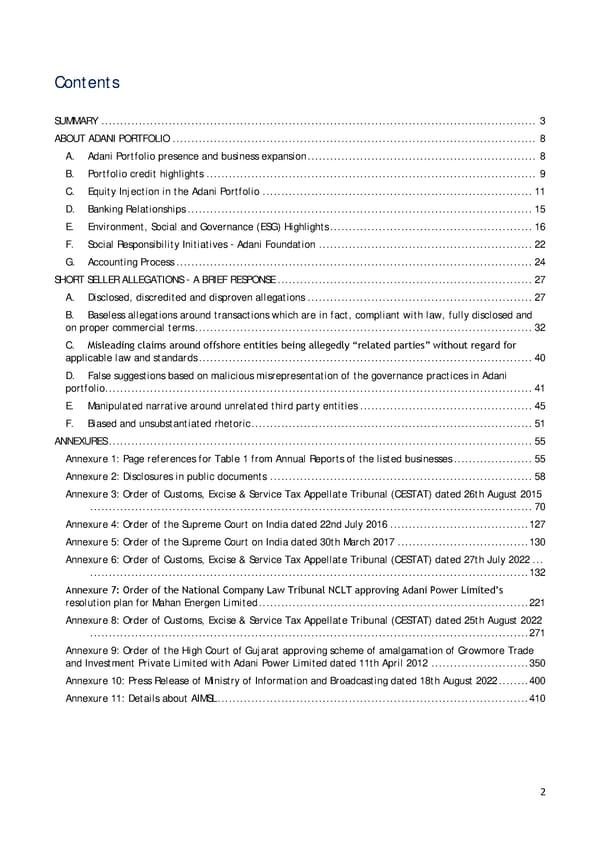
SUMMARY I. A NOTE OF CAUTION TO OUR STAKEHOLDERS We are shocked and deeply disturbed to read the report published by the “Madoffs of Manhattan” - Hindenburg Research on 24 January 2023 which is nothing but a lie. The document is a malicious combination of selective misinformation and concealed facts relating to baseless and discredited allegations to drive an ulterior motive. This is rife with conflict of interest and intended only to create a false market in securities to enable Hindenburg, an admitted short seller, to book massive financial gain through wrongful means at the cost of countless investors. It is tremendously concerning that the statements of an entity sitting thousands of miles away, with no credibility or ethics has caused serious and unprecedented adverse impact on our investors. The mala fide intention underlying the report is apparent given its timing when Adani Enterprises Limited is undertaking what would be the largest ever further public offering of equity shares in India. This is not merely an unwarranted attack on any specific company but a calculated attack on India, the independence, integrity and quality of Indian institutions, and the growth story and ambition of India. While we are under no obligation whatsoever to respond to these baseless allegations made in the report, in the spirit of good governance, transparency to our stakeholders and to avoid false market, we provide our responses to the Report as also the “88 questions” raised in the report. There are three key themes from the Hindenburg Report: (i) Selective and manipulative presentation of matters already in the public domain to create a false narrative. (ii) Complete ignorance or deliberate disregard of the applicable legal and accounting standards as well as industry practice. (iii) Contempt for the Indian institutions including the regulators and the judiciary. II. UNVEILING HINDENBURG’S MOTIVES The report has been put out with the admitted intent of Hindenburg (holding short positions in various listed companies of the Adani portfolio through U.S. traded bonds and non-Indian-traded derivatives, along with other non-Indian-traded reference securities) to profiteer at the cost of our shareholders and public investors. Hindenburg has not published this report for any altruistic reasons but purely out of selfish motives and in flagrant breach of applicable securities and foreign exchange laws. 3
The truth of the matter is that Hindenburg is an unethical short seller. A short seller in the securities market books gain from the subsequent reduction in prices of shares. Hindenburg took “short positions” and then, to effect a downward spiral of share price and make a wrongful gain, Hindenburg published a document to manipulate and depress the price of stock, and create a false market. The allegations and insinuations, which were presented as fact, spread like fire, wiping off a large amount of investor wealth and netting a profit for Hindenburg. The net result is that public investors lose and Hindenburg makes a windfall gain. Thus, the report is neither “independent” nor “objective” nor “well researched”. The report claims to have undertaken a “2-year investigation” and “uncover evidence”, but comprises of nothing other than selective and incomplete extracts of disclosed information which has been in the public domain for years if not decades, attempts to highlight allegations which have since been judicially determined to be false, narrates as fact what is attributed to hearsay, rumours and gossip spread by unnamed sources such as “a former trader” or “touts” of a “close relationship”, questions the independence of the judicial processes and regulators in the nation, and selectively extracts statements devoid of their context and with no understanding of Indian law or industry practice. It is telling that not one of the allegations is a result of any independent or journalistic fact finding. The allegations and innuendoes made in the Hindenburg report are knowingly false. Hindenburg’s conduct is nothing short of a calculated securities fraud under applicable law. III. THE SHOE IS ON THE OTHER FOOT – HINDENBURG’S ACTIVE CONCEALMENT Ironically for an organization that seeks transparency and openness, nothing much is known about either Hindenburg or its employees or its investors. Its website alleges that the organisation has an experience that “spans decades” and yet appears to have been set up only in 2017. Despite all its talks of “transparency”, Hindenburg has actively concealed the details of its short positions, the source of its own funding, who is behind them, the illegality underlying the synthetic structures by which they hold such positions, or the profit it has made by holding such positions in our securities. IV. OUR RESPONSE TO THE ALLEGATIONS Not one of these 88 questions is based on independent or journalistic fact finding. They are simply selective regurgitations of public disclosures or rhetorical innuendos colouring rumours as fact. The report seeks answers to “88 questions” – 65 of these relate to matters that have been duly disclosed by Adani Portfolio companies in their annual reports available on their websites, offering memorandums, financial statements and stock exchange disclosures from time to time. Of the balance 23 questions, 18 relate to public shareholders and third parties (and not the Adani portfolio companies), while the balance 5 are baseless allegations based on imaginary fact patterns. Nonetheless, we have responded to all these questions, summarized below: 4
1. Disclosed, discredited and disproven allegations: Allegations no. 1, 2, 3, 27, 28, 29, 30, 31, 72, 73, 74, 75, 76, 77, 78, 79, 80 present no new findings and only dredge up allegations (in some cases from a decade ago) which have been judicially determined in our favour and have also been disclosed by us to our investors and the regulators. By way of an example, there are multiple false narratives being created in relation to certain allegations concerning diamond exports, which matters have all been closed by the Appellate Tribunal (CESTAT) in our favour. This decision has been further confirmed by the Supreme Court itself twice over, a fact which has been deliberately ignored and concealed in the Hindenburg report (which contemptuously raises questions on the competence of the Appellate Tribunal with baseless claims that it has ignored evidence). 2. Baseless allegations around transactions which are in fact, compliant with law, fully disclosed and on proper commercial terms: Allegation no. 9, 15, 19, 24, 25, 32, 33, 35, 40, 41, 42, 43, 44, 45, 46, 47, 48, 49, 50, 51, 53, 54, 55, 56, 57, 58, 59, 60, 61, 81, 82 & 83 are again a selective regurgitation of disclosures from the financial statements of Adani entities to paint a biased picture. These disclosures have already been approved by third parties who are qualified and competent to review these (rather than an unknown overseas shortseller) and are in line with applicable accounting standards and applicable law. In another instance (allegation 41 of the Hindenburg Report), they have falsely claimed that Emerging Market Investment DMCC gave a loan of USD 1 billion to Mahan Energen. The simple fact of the matter is that Emerging Market acquired the USD 1 billion “unsustainable debt” of Mahan Energen from its lenders for USD 100 as part of a resolution plant duly approved by the National Company Law Tribunal under the Indian Bankruptcy Code. These are mala fide attempts to question bona fide transactions, the details of which are fully disclosed and available in the public domain, to create doubt in the minds of our stakeholders and the public. In fact, the mala fide intent of Hindenburg can be clearly seen from it suggesting structures that would not be in compliance with corporate governance. By way of example, a fully disclosed transaction (see allegation 61 of the Hindenburg Report) of Adani Enterprises Limited’s subsidiary with NQXT to pay a standard security deposit (a common feature under long term take or pay contracts) for use of terminals has been questioned. Hindenburg seems to suggest that NQXT (a corporate entity in its own right and subject to its own regulations) should provide Adani Enterprises long term terminals for no charges at all – a transaction that would amount to providing a benefit to a related party without arm’s length terms. 3. Misleading claims around offshore entities being allegedly “related parties” without regard for applicable law and standards: Allegation no. 4, 36, 37, 38, and 39 from the report are in reference to offshore entities. The queries make reckless statements without any evidence whatsoever and purely on unsubstantiated speculations without any understanding of the Indian laws around related parties and related party transactions. 5
4. False suggestions based on malicious misrepresentation of the governance practices in Adani portfolio : Allegation no. 34, 62, 63, 64, 65, 66, 67, 68, 69, 70, and 71 use selective information to make insinuations, when in fact, the Adani portfolio has instituted various corporate governance policies and committees including our Corporate Responsibility Committee consisting solely of independent directors tasked with keeping the Board of Directors informed about the ESG performance of businesses. Our ESG approach is based on well-thought out goals, commitments and targets which are independently verified through an assurance process. An example of where the report exposes its motives is the question around “convoluted structures” and multiplicity of subsidiaries, while failing to comprehend that in the infrastructure business, especially in a sprawling geography like India, most large corporates operate in a similar fashion because projects are housed in separate SPVs and these need to be ring fenced from a lender perspective for limited recourse project finance and in many cases on account of specific regulatory requirements. As an example, transmission projects in India are awarded under tariff based competitive bidding, in such bidding the successful bidder has to acquire the SPV which is undertaking the project. Hence, it is a regulatory requirement as part of the Electricity Act, 2003 and the regulations of the Central Electricity Regulatory Commission to execute projects in different SPVs 5. Manipulated narrative around unrelated third party entities: Allegation no. 5, 6, 7, 8, 10, 11, 12, 13, 14, 16, 17, 18, 20, 21, 22, 23, 26 and 52 from the report seek information on our public shareholders. Shares of listed companies on Indian stock exchanges are traded on a regular basis. The listed entity does not have control over who buys / sells / owns the publicly traded shares in the company. A listed company does not have nor is it required to have information on its public shareholders and investors. Hindenburg deliberately ignores Indian legal processes and regulations in their insinuations against us. For instance, they have raised several questions around the offer for sale undertaken by Adani Green Energy Limited in 2019 while maliciously ignoring the fact that in India the process for OFS is a regulated process implemented through an automated order book matching process on the platform of the stock exchange. This is not a process which is controlled by any entity and the purchasers are not visible to anyone of the platform. 6. Biased and unsubstantiated rhetoric: Allegation no. 84, 85, 86, 87, and 88 from the report are inherently biased statements around our openness to address criticism with a window- dressing to garb them as questions. Criticism does not include the right to make false and defamatory statement which could damage the interests of our stakeholders. We continue to have the right to seek judicial remedy before Indian courts when such interests are threatened, and in all cases, we have exercised these rights in due compliance with law and the judicial process. Hindenburg has sought to spotlight selective media reporting while deliberately ignoring judicial findings. For instance, in another twisting of facts, Hindenburg questions why we sought to have a “critical journalist” jailed. The fact of the matter is that he was never jailed in connection with any proceedings related to us and in fact, a non-bailable warrant had been 6
issued to him by the judge because he failed to appear before the court despite summons and was not complying with the judicial process. V. OUR COMMITMENT TO HIGHEST LEVELS OF COMPLIANCE AND CONTINUED GROWTH We reaffirm that we are in compliance with all applicable laws and regulations. We are committed to the highest levels of governance to protect the interests of all our stakeholders. The Adani Portfolio also has very strong internal controls and audit controls. All the listed companies of Adani Portfolio have a robust governance framework. The Audit Committee of each of the listed companies is composed of 100% of Independent Directors and chaired by Independent Director. The Statutory Auditors are appointed only upon recommendation by the Audit Committee to the Board of Directors. Adani Portfolio company’s follow a stated policy of having global big 6 or regional leaders as Statutory Auditors. The focus of the Adani portfolio and the Adani verticals is to contribute to nation building and take India to the world. We will exercise our rights to pursue remedies to safeguard our stakeholders before all appropriate authorities and we reserve our rights to respond further to any of the allegations or contents of the Hindenburg report or to supplement this statement. 7
ABOUT ADANI PORTFOLIO Prior to responding on the specific queries raised in the report, we would like to highlight certain points in relation to the Adani Portfolio. A. Adani Portfolio presence and business expansion Adani Portfolio operates in four broad verticals − The first two verticals are Energy and Utility Vertical, Transport and Logistics vertical, which together form the infrastructure sector businesses of Adani portfolio. The businesses are fully integrated in their respective sectors and present across the entire value chain. − The third vertical is Primary Industries vertical, which feeds off the strengths of the portfolio across Energy and utility vertical and transport and logistics vertical. For example, the Cement manufacturing business has significant adjacencies to power, energy, resource and logistics businesses of the portfolio. − The fourth vertical is direct to consumer (Emerging B2C), which includes consumer businesses such as Adani Digital Labs and Adani Wilmar Limited. It may be further noted that all businesses which require shareholder support are housed under the incubator arm – Adani Enterprises Limited (AEL). These businesses continue under AEL till the time the business is self-sustaining post which they are listed separately creating value for AEL’s shareholders. Further, all the listed businesses operate on a strict “no financial accommodation” policy and have independent boards and management. The businesses operate on a simple yet robust and repeatable business model focused on development and origination, operations and management and capital management plan. 8
B. Portfolio credit highlights Adani Portfolio companies have successfully and repeatedly executed an industry beating expansion plan over the past decade. While doing so, the companies have consistently de-levered with portfolio net debt to EBITDA ratio coming down from 7.6x to 3.2x (Please see Chart A below), EBITDA has grown 22% CAGR in the last 9 years and debt has only grown by 11% CAGR during the same period. Please see below a table summarizing key financial metrics and ratios for Adani portfolio companies – Table 1: Key Financial Metrics and Ratios (For the financial year ended 31st Mar 2022) Particulars (INR Bn) AEL AGEL APSEZ APL ATGL ATL Total (1) EBITDA 50.00 39.55 120.99 138.69 8.15 54.93 412 (2) Run Rate EBITDA (RR EBITDA ) 87.13 66.44 130.55 154.75 8.15 60.04 507 Unrestricted Cash 9.12 19.53 95.63 7.80 3.89 22.95 159 Restricted Cash (such as DSRA) 30.04 19.14 33.61 20.09 - 7.72 111 Total Cash for Netting off 39.16 38.67 129.24 27.89 3.89 30.67 270 Gross Debt(3) 284.83 443.90 456.37 414.18 9.95 274.91 1,884 Net Debt(4) 245.67 405.23 327.13 386.29 6.06 244.24 1,615 Gross Leverage (Gross Debt / EBITDA) 5.70x 11.22x 3.77x 2.99x 1.22x 5.01x 4.57x Gross Debt / RR EBITDA 3.27x 6.68x 3.50x 2.68x 1.22x 4.58x 3.72x 9
Particulars (INR Bn) AEL AGEL APSEZ APL ATGL ATL Total Net Leverage (Net Debt / EBITDA) 4.91x 10.25x 2.70x 2.79x 0.74x 4.45x 3.92x Net Debt / RR EBITDA 2.82x 6.10x 2.51x 2.50x 0.74x 4.07x 3.18x (5) EBITDA / Gross Interest 1.98x 1.51x 4.73x 3.39x 15.37x 2.32x 2.90x Note: AEL: Adani Enterprises Limited, AGEL: Adani Green Energy Limited, APSEZ: Adani Ports and Special Economic Zone Limited, APL: Adani Power Limited, ATGL: Adani Total Gas Limited, ATL: Adani Transmission Limited Please refer Annexure 1 for references to above numbers from annual reports of respective companies 1. EBITDA: Earnings before interest, taxes, depreciation and amortization. EBITDA includes other income and is as per numbers reported in audit financials 2. RR EBITDA: Run-rate EBITDA considers annualized EBITDA for assets commissioned after the start of the year. Run rate EBITDA includes other income. AEL Run-rate EBITDA includes annualized EBITDA for Road and Mining Assets which has been operational for partial Period. It also includes the ramp-up based EBITDA of Airport Assets. AGEL Run-rate EBITDA includes the annualized EBITDA for the Assets which has been operational for partial period and also the assets which have been commissioned but not achieved the COD as per PPA. APSEZ Run-rate EBITDA includes the Annual EBITDA of Gangavaram Port which will be consolidated fully post NCLT approval from 1st April 2021 onwards. APL Run-rate EBITDA includes the Annual EBITDA of Mahan Energen and Merchant Revenue being annualized basis market of Q4FY22 3. Gross debt includes term debt and working capital debt and excludes shareholder subordinated debt 4. Net debt = Gross debt less (Cash and cash equivalents). Both restricted and unrestricted cash and cash equivalents are considered 5. Gross interest includes interest corresponding to Gross debt Kindly note that the annotated backup of all the numbers is as attached in Annexure 1 of this document. Chart A: EBITDA growth is 2X the growth of debt over last 5 years Net Debt / RR EBIDTA 7.6x 4.0x 3.2x 2013 2016 2022 The leverage ratios of Adani Portfolio companies continue to be healthy and are in line with the industry benchmarks of the respective sectors. Over the last 10 years we have actively worked to improve our debt-metrics through our capital management strategy. Please refer Chart B below for diversification of our long-term debt profile through our capital management strategy. 10
Chart B: Diversifying long term debt profile towards higher share of bonds March 2016 55 31 14 March 2022 25 8 37 6 18 6 PSU Private Banks Bonds DII Global Intl. Banks PSU - Capex LC The Adani portfolio companies have a full-fledged Capital Management Plan (CMP) which has all credit metrics inbuild. The CMP of companies are set in a manner to automatically pushing it for deleveraging path. C. Equity Injection in the Adani Portfolio Adani Portfolio has raised USD 16 bn equity under a systematic capital management plan for all the Portfolio companies over the last 3 years as a combination of primary, secondary and committed equity from marquee investors like TotalEnergies, IHC, QIA, Warburg Pincus etc. The overview of our partnership model is as presented below. 11
This has also resulted in the deleveraging of the Promoter level debt, allowing the reduction in the promoter stake pledge in the listed companies (Please refer Chart C below). Chart C: Promoter Gross Pledge position The equity contribution includes the platform level investments made by IHC across 3 of its portfolio 1 companies AEL (USD 1 bn ), AGEL (USD 500 mn) and ATL (USD 500 mn) totaling to USD 2 bn which was settled in May 2022. 1. Approx INR 77 bn 12
TotalEnergies, one of the leading integrated energy players globally, has strategic alliance with the Adani portfolio across its four verticals, namely LNG Terminal (Adani Total Private Limited), City Gas Distribution (Adani Total Gas Limited), Renewable Power Generation (Adani Green Energy Limited) and Green Hydrogen ecosystem (Adani New Industries Limited) with committed investments of USD 7.3 bn over past 3 years. Adani has also successfully concluded the IPO of portfolio FMCG company AWL (Adani Wilmar Limited) amounting to INR 36 bn (USD 450 mn) during the month of February 2022. 13
Adani portfolio companies have a strong track record of delivering value to shareholders attracting equity investors. For example, INR 150 invested in Adani Enterprises Limited, which was the first IPO (in 1994) out of the Adani portfolio, has generated a market valuation of INR 9,00,000 in the past 28 years that is a 6,000x multiple. Over the past three years, the Adani portfolio has raised USD 32.3bn capital, which is split into USD 8.3bn in DCM issuances, USD 8bn in Go To market facilities and USD 16bn in Equity Capital program, which is the largest program by any group in India We also refer to a paragraph in the report that “there may be additional, hidden leverage within the Adani empire in the form of pledges on the undisclosed shareholdings described in Part 1” It may be noted that any encumbrance creation needs to be created through depository participant of respective shareholder. As part of the regulated reporting process, the depository participant reports this to the depository (National Securities Depository Limited / Central Depository Services Limited). The corresponding information automatically gets captured within stock exchange database as well. The above process needs to be followed to ensure that the encumbrance is valid, registered and enforceable. Stock exchanges disclose encumbrance created on both promoter held and public held shares as compiled in the above table. Therefore, there is no possibility of any additional, hidden leverage as referenced in the report. Below is breakup of the equity share pledge for Adani listed companies as on December 31, 2022, which is also available publicly on the exchange websites on a quarterly basis. Company % Shares publicly held % Promoter Shares % Public Shares by Promoter Group encumbered encumbered AGEL 60.75% 4.36% -% APL 74.97% 25.01% -% ATGL 74.80% -% -% 14
Company % Shares publicly held % Promoter Shares % Public Shares by Promoter Group encumbered encumbered ATL 74.19% 6.62% -% AEL 72.63% 2.66% -% APSEZ 65.13% 17.31% -% AWL 87.94% -% -% Source: Bombay stock exchange (BSE), National stock exchange (NSE) Note: AEL: Adani Enterprises Limited, AGEL: Adani Green Energy Limited, APSEZ: Adani Ports and Special Economic Zone Limited, APL: Adani Power Limited, ATGL: Adani Total Gas Limited, ATL: Adani Transmission Limited, ACL: Ambuja Cements Limited, ACCL: ACC Limited; AWL: Adani Wilmar Limited D. Banking Relationships The portfolio has developed deep domestic and international bank relationships, which is outlined below. This has strengthened access to diverse funding sources and structures. Further, Adani Portfolio companies have demonstrated successful syndication of the banking transactions, resulting in de-risking of the banks in volatile markets. Case in point being Holcim’s Indian cement business acquisition with international banks, and Navi Mumbai Airport and Kutch Copper refinery with domestic banks. 15
It may be noted that Adani Portfolio has issued 30Yr bonds (USPP – Adani Transmission Portfolio), 20 Yr Bonds (APSEZ 2041) and 20 Yr Amortiser Bonds (AGEL, RG2), which outlines deep access to international bond markets and infrastructure investors. E. Environment, Social and Governance (ESG) Highlights Adani Portfolio companies are fully committed to ESG aspects and have a robust ESG framework and glide path in place, which is focused on assurance framework. 16
We have identified key ESG risks and adopted multiple mitigation measures which are business specific for e.g. Mangrove Afforestation in Adani Ports and Increasing Renewable mix in power procurement from 3% in FY21 to 30% FY23 and 60% by FY27 in Adani Electricity Mumbai, part of Adani Transmission Limited. The Adani portfolio companies have adopted best-in-class global disclosures and standards like TCFD, SBTi, CDP, SDGs. The portfolio companies are on track to achieve the following: − Water neutrality − Zero Waste to Landfill − Single use plastic free sites − Mangrove Afforestation − Zero Biodiversity Net Loss − Carbon Neutrality Additionally, we have improved our Governance standards to align it with Global Best practices. We have already constituted a Corporate Responsibility Committee (consisting of 100% independent directors) in all of our portfolio companies which does the review of the ESG progress and framework alignment with progress of the same. Most of the Board Committees in the portfolio companies have majority representation from independent directors. All committee’s Terms of References (TOR) has to be reviewed by the board on periodic basis. Below is a short summary of the ESG credentials and environmental commitments of Adani Portfolio companies: 17
Key Environmental commitments of Adani Portfolio companies Note: TCFD: Task Force on Climate-Related Financial Disclosures, SBTi: Science Based Targets initiative, UNGC: United Nations Global Compact, DJSI: Dow Jones Sustainability Indices Governance At the heart of the Adani governance commitment is a one tier Board system with Board of Directors possessing a disciplined orientation and distinctive priorities. Our robust governance structure is based on well-structured policies and procedures that are the backbone of our governance philosophy. Our policies are formulated to ensure business continuity and to maintain a high quality throughout our operations. Board of Directors are the highest authority for the governance and the custodian who push our businesses in the right direction. They provide the overall strategic insights and guidance to our business operations. Our governance framework reflects our value system and is built to boost our governance mechanisms. Ethics and integrity: The Boards of the Adani portfolio (“Boards”) are committed to the highest integrity standards. Directors commit to abide by the ‘Code of Conduct’, regulations and policies under oath, endeavouring to demonstrate intent and actions consistent with stated values. Responsible conduct: The Boards emphasize the Adani portfolio’s role in contributing to neighbourhoods, terrains, communities and societies. In line with this, the Adani portfolio is accountable for its environment and societal impact, corresponded by compliance with laws and regulations. As a mark of responsibility, the Adani businesses extend beyond minimum requirements with the objective of emerging as a responsible corporate. Accountability and transparency: The Boards engage in comprehensive financial and nonfinancial reporting, aligned to best practices relating to disclosures; it follows internal and/or external assurance and governance procedures Structure of the board: All Adani portfolio entities’ Board represents an appropriate balance between executive, non-executive and independent directors to safeguard the interests of 18
stakeholders, including shareholders. The Board comprises of at least 50% Independent Directors and the businesses are headed by professional CEOs/ Executive directors. To ensure the effectiveness of corporate governance and that all our operations are well-governed, the Board has established sub-committees that supervise various business functions. This enables the Board to remain updated on all developments in the Company, as the Committees provide in- depth scrutiny over all business aspects. All Committees conduct meetings with defined periodicity to ensure the smooth functions of the business functions they are responsible for. Committees to the Board have at least 50% members as Independent Directors. Following is the summary of the Committees: Name of the Committee Composition Meeting Frequency Audit Committee 100% Independent Directors Quarterly Nomination and Remuneration 75% Independent Directors At least twice in a Committee year Stakeholders’ Relationship Committee 50% Independent Directors Quarterly Corporate Social Responsibility 75% Independent Directors Half Yearly Committee Risk Management Committee 50% Independent Directors Quarterly Corporate Responsibility Committee 100% Independent Directors Quarterly Information Technology & Data >50% Independent Directors Half Yearly Security Committee (Sub-Committee to Risk Management Committee) Mergers & Acquisitions Committee >50% Independent Directors As and when (Sub-Committee to Risk Management applicable Committee) Legal, Regulatory & Tax Committee 100% Independent Directors Half Yearly (Sub-Committee to Risk Management Committee) Reputation Risk Committee (Sub- >50% Independent Directors Half Yearly Committee to Risk Management Committee) Detailed charters for the committees are available on the website of each of the Adani portfolio listed entities. Board diversity: Our Boards diversity harnesses differences in knowledge, skills, regional exposure, industry experience, cultural backgrounds, ages, ethnicity, races and gender. Adani businesses developed a Board Diversity Policy, which is available on their respective websites. Skills and experience: The Boards aggregate knowledge, perspective, professionalism, differentiated mindsets and experience. The Board members possess a rich understanding of different sectors, strategy, governance, risks, legal, technical, environmental, social, financial, 19
non-financial, risks, legal, different sectors, strategy, governance, risks, legal, technical, environmental, social, financial, non-financial, risks, legal and environment matters. The Board members are periodically upskilled on emerging risks and trends, including ESG related risks and opportunities. Board member credentials The Board members are identified and selected based on their skillsets, capabilities, business requirement including compliance with the following: • Embrace the shared organisational vision, mission and values • Knowledge of the industrial/ sectors, policies, major risks and potential opportunities in which the relevant Adani portfolio operates • Technical skills/experience in accounting/finance, governance or public policy, economy, human resource management, strategy development and implementation of capital planning • Governance attributes such as compliance, leadership, risk management experience and a sound business judgment • Unqualified independence, in case of independent directors • Willingness to act in the best interest of stakeholders Based on above criteria, the Nomination and Remuneration Committee (NRC) recommends the candidature of Board members to the respective Board, for its approval, subject to the consent of shareholders, within the defined timelines, as prescribed under the applicable laws. The selection for second term is based on formal evaluation and recommended of NRC. Board evaluation and compensation The Boards are evaluated through a formal mechanism which comprises an evaluation of individual Board Members, committees, Chairperson(s) and the Board as a whole. The exercise is carried out through a structured process, covering the Board and committee composition as well as comprehensive functioning, experience and competencies, performance of specific duties and obligations, contribution at meetings and otherwise, independent judgment and governance issues, among others. The breadth of fiduciary responsibility of the Board critically attaches the Board evaluation mechanism to the overall performance. With respect to evaluating effectiveness of the Board, Adani portfolio listed entities are engaging independent third parties for this annual evaluation. The Board compensation is guided by the Remuneration Policy of Directors and is in accordance with law. The Independent Directors are provided fixed sitting fees, commission and the reimbursement of travel expenses. The Independent Directors are not entitled for any stock options. 20
Policies to ensure Transparency and Accountability The Adani Portfolio listed entities have adopted the following governance policies to enhance transparency and accountability across the organisation: 1) Related party transaction policy 2) Whistle-blower Policy 3) Code of conduct for each of the employees (with specific attention to for anti-corruption. Fraud reporting and bribery) 4) Code of conduct for the Board of Directors and senior management personnel 5) Code of ethics 6) Material events policy 7) Policy on Preservation of documents 8) Dividend Distribution policy 9) Anti-Corruption and Anti-Bribery policy 10) Cyber security & Data privacy Policy 11) Remuneration Policy 12) Policy on preservation of Unpublished Price Sensitive Information 13) Policy on preservation of documents 14) Policy on gender equality 15) Employee Grievance management policy 16) Supplier code of conduct 17) Bio Diversity Policy 18) Water Stewardship Policy 19) Human Rights Policy 20) Organisational Health & Safety 21) Prevention of Sexual Harassment 22) ESG / Sustainability Policies Additionally, all Adani portfolio listed entities have published its first Business Responsibility and Sustainability Reporting for FY 2022 on voluntarily basis in order to provide detailed and transparent information to the stakeholders. These reports were also verified by independent third parties. In order to put in place and continually raise the governance standards of Adani portfolio entities and to equip all directors and management with global perspective and ingrain industry best practices, we regularly invite leading sector experts to share their valuable inputs with directors and the management. For example, we have organized sessions with Grant Thornton for financial reporting, with Moody’s for their valuable inputs on ratings and with Latham & Watkins on ESG. 21
F. Social Responsibility Initiatives – Adani Foundation Growth with Goodness is imbibed in the culture of Adani Portfolio. It is about the real impact which we can create, touch the lives, nourish the communities and inspire for future endeavor. Focus is on creating viable livelihood for the people in general, and specifically towards upliftment of women by providing them platform for sustainable growth. Adani Foundation is the delivery partner for various Adani Portfolio companies to deliver the social enterprise. We have created women led social enterprises in the interiors of the country (places like Godda, Bhuj, Mundra, Sarguja, Vizhinjam etc). Our platform is touching, transforming & uplifting 3.7 million lives across more than 2400 village communities in close to 20 States of India. The platform created by Adani portfolio develops and nurtures the Entrepreneurship across various service functions which in turn cascades to various strata of the society. A few case studies of our impact stories is as below Case Study 1 – Vizhinjam – Clean4u – Creating Women Entrepreneurs The Women Entrepreneurs have developed Clean 4 U brand with support from Adani and run it in the most professional way. Not only they provide excellent services to households and offices but employ the local women to get the job done 22
Vi hin am Clean u Creating omen Entrepreneurs Brand Creation Clean u CreatingEmploymentforLocalcommunity Employing 28 women, providing end to end Support of services related to health and hygiene of Adani oundation different sections of society such as schools, hospitals, govtbuildings. THE STORY De elopingleadership Access to human and Empowered28Local Communitywomenof Self funded program financial capital. i hinjamby shaping them into self reliant Hire,train develop workforce. WomenEntrepreneurs Ensuringpropercapital management Facilitate networking Building assets for the Company along with by increasing access to THE IMPACT the growth. local and lobal Improved Standard of Living alleviate markets. Poverty OperationalE cellence: Creatingnetworkfor consumer complaints. Ensuring diversity in Respect in Society Proper channel for correct assessment of hiring activities. Self reliance worktobe executed. uality Education forc hildren Dynamic pricing model based on location, Help in adopting Livelihood earning time,and payingcapacity of consumer. changing technology 17 Case Study 2 – Vizhinjam – Vanitha Krishi Karma Sena – Enabling Women to be self reliant Vanitha rishi arma Sena Vi hin am Enabling omen to be Self Reliant arm Schools Imparting otnh e ob training for Entrepreneurship enabling Self reliance Support of Employing anitha rishi arma Sena with 20 Adani oundation women, Lead by Shashikala (President), Udaya Rani(treasurer)Pr, asanna umari(Secretary) Providingbothservices products: Access to financial THE STORY Ser ice:sTeaching skill set providingtechno capital for building solutions to households for growing farm business Establishmentof rishi armaSena with20 products. It has broughttransformativechanges Local womenof i hinjamby enablingthem in society by moneti ingsurplus land in the Training program to todevelopsubsistentBusinessEnterprise. society. overcome social psychological constraints THE IMPACT roduc:t Availability of Organic vegetables Improved Standard of Living (which are seasonalin nature). Ensuringprice Regular training and Respect in Society paritywithlocal market,maintainingdynamic monitoring for skill Self reliance pricingdependingon demandand supply of the upgradation and enabling uality Education for their children product. women self reliance. Livelihood earning 23
Case Study 3 – SEVAH Local Home grown Brands like SEVAH (Safe to Eat Vegetable for All Homes) focus on running kitchen Garden projects for the community through scientific and Organic farming. SEVAH Vi hin am Safe to eat egetables for households SEVAH ro ect Training for de eloping itchen Gardensto promotebetterhealthand well beingof local Support of communit:y Adani oundation An initiativeto train local people on growing organicvegetableswithinthehouseholds. itchengardensate eryhome: Imparting technical THE STORY Health and well beingof local communityis training, awareness Started with a small initiati e of Training of utmost importance for achieving and knowledge. SEVAH itchen gardens ha e now sustainabledevelopment. reached households at Vi hin am Access to required growing organic egetables and selling itchen garden is an initiative by Adani finance and Input kits them thereby promoting health as well as foundation to promote the well being of and materials. creating employment. people by enabling them to grow organic THE IMPACT vegetablesintheirhouseholdsitself. The Avg production per season 0kgs ero Hunger Distributionof Input kits to households in ood health and well being association with vegetable and fruit Monthly Per Capita ender Equality promotion council. Implemented in 760 Productivity saving s Decent work and Economic growth Households, 2 fishermanhouses. 2. kg. Rs 1, 2 G. Accounting Process Internal Financial control process and governance mechanism is facilitated and monitored by the group based on five key pillars namely a. Centralized ERP Governance Mechanism and Reporting System, b. Periodic internal and external reviews of various processes c. Issuing Corporate guidelines and ensuring their adherence d. Appointment of competent and reputed statutory auditors for all verticals. e. Capacity building programs for facilitating the controls. With these 5 pillars group ensures that highest standards of governance and reporting is being maintained by all businesses across all verticals. Centralized ERP governance mechanism and Reporting system Adani Business Excellence Team (ABEX) is a centralized team which handles accounting and financial controls of all companies across all verticals. All the processes are governed through Standard Operating Practices (SOPs) and the ABEX team ensures that all the financial control parameters are uniformly followed by all the verticals across the group. Also, it is ensured that all group companies follow the stringent financial control governance mechanism established through SAP. There is a well established and properly documented mechanism of maker and checker process established at ABEX. These processes have received various six sigma and ISO awards for maintaining highest degree of compliances and governance. 24
Periodic internal and external reviews of various processes At portfolio level, various processes are being monitored and based on risk assessment different processes are selected for internal or external reviews. In FY22 we have appointed Deloitte and many other auditing firms for doing a health checkup exercise for all business across different verticals. Similarly various processes are being continuously monitored internally to increase our own operating standards. Key book hygiene parameters are also identified which are being monitored every month for all businesses. Issuing Corporate guidelines and ensuring their adherence In order to harmonize different accounting, recognition and disclosure practices followed in various business, the Group Financial & Management Control (GFMC) team issues corporate guidelines to all the verticals. In order to ensure the guidelines are being followed, compliance certificates are taken from CFOs of all the business across various verticals. While issuing the group guidelines its always ensured that disclosure and accounting practices specified in guidelines are far more stringent and requires more disclosures compared the requirement of Ind AS (Indian Accounting Standards), guidance notes, opinions and other reference materials issued by ICAI (The Institute of Chartered Accountants of India). Appointment of competent and reputed statutory auditors for all verticals. All the listed companies of Adani Portfolio have a robust governance framework. The Audit Committee of each of the listed companies is composed of 100% of Independent Directors and chaired by Independent Director. The Statutory Auditors are appointed only upon recommendation by the Audit Committee to the Board of Directors. Adani Portfolio company’s follow a stated policy of having global big 6 or regional leaders as Statutory Auditors. Adani Portfolio also has a policy to conduct an independent review of disclosure and notes by one of the big 6 across all group companies and the last review carried out for FY 20 and FY 21 was undertaken by Grant Thornton. Capacity building programs for facilitating the controls. The group gears up the team across all verticals by including them in training programs imparted by reputed Institutes and prominent subject experts. This is done a part of capability building across all verticals. The team works on set of principles, procedures to make sure that financial statements reflect true and fair view of the state of affairs of all the listed entities. One example of major exercise undertaken in FY 22 across all verticals was preparing a comprehensive risk management (Hedging) policy, which is explained hereunder: Hedging policy: 25
To enhance the risk management and mitigation of various identified risks, during the current financial year (FY23) the group has undertaken detailed exercise of preparing and implementing the hedge policy for different businesses with the help of external expert The group identified different financial risk in the nature of interest rate risk, foreign exchange risk, asset liability maturity mismatches, commodity price risk, credit risk and various other risks for each business. After understanding of different risks in different value chains with plethora of discussion, the group implemented various tools and instruments to mitigate these risks. It is important to note that this exercise ensured that the group is not exposed to any adverse movement in macro-economic parameters. This was very critical considering the fact that group is largest infrastructure group in India and very much vulnerable to any positive or negative movement in domestic and well as foreign macro-economic environment. The group with its competent central treasury team uses different hedging instruments like forwards, options, POS, etc. for mitigating the risk. The risk management policy also ensure that wherever the risk is naturally hedged with business inflows and outflow just like Port business, such matching is properly documented and the same is considered while preparing and deciding for hedging strategy of these businesses. Further, group also continuously looks for opportunities to ensure that its operational excellence and prudent capital allocation is not affected by any negative event in our external economic environment. 26
SHORT SELLER ALLE ATIONS – A BRIEF RESPONSE A. Disclosed, discredited and disproven allegations Disclosed, discredited and disproven allegations: Allegations no. 1, 2, 3, 27, 28, 29, 30, 31, 72, 73, 74, 75, 76, 77, 78, 79, 80 present no new findings and only dredge up allegations (in some cases from a decade ago) which have been judicially disproven and have also been disclosed by us to our investors and the regulators. 1/ (Allegation #1) autam Adani’s younger brother, Rajesh Adani, was accused by the Directorate of Revenue Intelligence (DRI) of playing a central role in a diamond trading import/export scheme around 2004-2005. He was subsequently arrested twice over allegations of customs tax evasion, forging import documentation and illegal coal imports. Given his history, why was he subsequently promoted to serve as Managing Director at the Adani Group? 2/ (Allegation #72) Adani has been subject to numerous allegations of fraud by the DRI and other government agencies. In the 2004-2006 diamond scandal investigation, the government alleged that Adani Exports Ltd (renamed Adani Enterprises) and related entities’ exports were x the total exports of all the other 34 firms in the industry group put together. How does Adani explain that sudden surge in trading volume? 3/ (Allegation #73) The diamond export investigation also demonstrated the role played by Vinod Adani and entities in the UAE, Singapore and Hong Kong that were used to facilitate the back-and- forth movement of money and product. How does Adani explain all the trading that took place with entities associated with Vinod Adani? 4/ (Allegation #2) autam Adani’s brother-in-law, Samir Vora, was accused by the DRI of being a ringleader of a diamond trading scam and of repeatedly making false statements to regulators. Given his history, why was he subsequently promoted to Executive Director of the critical Adani Australia division? Common Response - Each of the above matters are closed and dismissed in our favour. Further, these have been disclosed by us in the public domain and all our stakeholders are aware of the same. These have been cited solely in an attempt to further the narrative of lies. In this respect, please see the following: i. Prospectus issued by Adani Ports and Special Economic Zone Limited dated June 5, 2013 (page 181) ii. Offering circular dated July 28, 2016 for the USD 500 million Senior Secured Notes issued by Adani Transmission Limited (page 149) iii. Offering circular dated November 14, 2019 for the USD 500 million Senior Secured Notes issued by Adani Transmission Limited (page 179) iv. Offering circular dated January 26, 2021 for USD 500 million Senior Secured Notes issued by Adani Ports and Special Economic Zone Limited (page 214-215), v. Offering circular dated July 28, 2020 for USD 750 million Senior Secured Notes issued by Adani Ports and Special Economic Zone Limited (page 215), 27
vi. Offering circular dated July 16, 2019 for USD 650 million Senior Secured Notes issued by Adani Ports and Special Economic Zone Limited (page 183), vii. Offering circular dated July 22, 2015 for USD 650 million issued by Adani Ports and Special Economic Zone Limited (page 172), viii. Offering circular dated June 22, 2017 for USD 500 million issued by Adani Ports and Special Economic Zone Limited (page 204), ix. Offering circular dated July 26, 2021 for USD 750 million issued by Adani Ports and Special Economic Zone Limited (page 222 - 223). The relevant excerpts are annexed hereto as Annexure 2. The order of Appellate Tribunal (CESTAT) of August 2015, setting aside all the allegations of DRI and confirming that all exports & imports transactions of diamond were valid & genuine is annexed as Annexure 3. The orders of the Supreme Court of India upholding the order of the Appellate Tribunal (CESTAT) are further annexed as Annexure 4 and Annexure 5. The Hindenburg report clearly omits the fact that the above mentioned order of the Appellate Tribunal (CESTAT) was upheld on further appeal by Supreme Court of India. Lastly, none of these disproven allegations have any relevance in relation to the promotion of Mr. Samir Vora. 5/ (Allegation #3) As part of the DRI investigation into over-invoicing of power imports, Adani claimed that inod Adani was “not at all having any involvement in any Adani roup of companies”, except as shareholder. Despite this claim, a pre-IPO prospectus for Adani Power from 2009 detailed that inod was director of at least 6 Adani roup companies. Were Adani’s original statements about Vinod, made to regulators, false? There were two DRI investigations initiated against us in respect of over-invoicing of power imports. The first DRI investigation (initiated pursuant to show cause notice issued to Maharashtra Eastern Grid Power Transmission Company Limited & others) has been adjudicated before the courts and has been closed and dismissed in our favour and consequently it has been determined that there was no over-invoicing. The second DRI investigation (initiated pursuant to show cause notice issued to Adani Power Maharashtra Limited, Adani Power Rajasthan Ltd. & others) has been decided in our favour both in the lower court as well as in appeal before the CESTAT and consequently it has been determined that there was no over-invoicing. Whilst an appeal in this respect has been preferred and is pending, we strongly believe this will be decided in our favour in line with the decision of the lower court and CESTAT. Each of these investigations are part of disclosures already made by us in the public domain, including the below and our stakeholders are aware of the same for many years. i. Offering circular dated February 5, 2020 for the U.S.$1 bn Senior Secured Notes by Adani Electricity Mumbai Limited (page 34), and ii. Offering circular dated July 13, 2021 for the U.S.$2 bn Global Medium Term Note Programme by Adani Electricity Mumbai Limited (page 53) iii. Offering circular dated July 28, 2016 for the U.S.$500 mn Senior Secured Notes issued by Adani Transmission Limited (page 37 and149) 28
iv. Offering circular dated November 14, 2019 for the U.S.$500 mn Senior Secured Notes issued by Adani Transmission Limited (page 32 and 182) The relevant excerpts from the above documents are annexed hereto in Annexure 2. The relevant orders are appended in Annexure 6 and Annexure 8. Further, the statement made by us in the pre-IPO prospectus in 2009 is absolutely correct. It may also be noted that the over-invoicing allegations for power imports pertains to the period between April 2010 till August 2014, during which period Mr. Vinod Adani was not even a director in any of the relevant Adani entities against whom such investigations were initiated and had no role in their day to day affairs. 6/ (Allegation #27) Our findings indicate that SEBI has investigated and prosecuted more than 70 entities and individuals, including Adani promoters, for manipulating Adani stock between 1999 to 2005. How does Adani respond? There are no ongoing proceedings against the Adani promoters before SEBI in relation to this issue and all past cases before SEBI have been closed. These have also been duly disclosed by us and our stakeholders are already aware of the same. See for instance, p. 51 of the APSEZ Institutional Private Placement Prospectus dated June 2013, the relevant excerpt of which is annexed hereto as Annexure 2. We are neither aware of, nor are we required to be, aware of any proceedings against these other “entities and individuals”, who are not Adani promoters. 7/ (Allegation #28) A SEBI ruling determined that Adani promoters aided and abetted Ketan Parekh in the manipulation of shares of Adani Exports (now Adani Enterprises), showing that 14 Adani private companies transferred shares to entities controlled by Parekh. How does Adani explain this coordinated, systematic stock manipulation in its shares, together with one of India’s most notorious convicted stock fraudsters? 8/ (Allegation #29) In its defense, Adani Group claimed it had dealt with Parekh and his stock manipulation efforts to finance operations at the Mundra port. Does Adani view extraction of capital through stock manipulation as a legitimate method of financing? 9/ (Allegation #30) Individuals close to Ketan Parekh have told us that he continues to work on transactions with his old clients, including Adani. What was and is the full extent of the relationship between Parekh and the Adani roup, including either entity’s relationship with inod Adani? Common Response - The allegation in relation to Ketan Parekh working with Adani companies are incorrect. This matter has been disposed of by SEBI on 17th April 2008 and has also been duly disclosed by us in the public domain. 10/ (Allegation #31) Given that Adani Group promoters pledge shares as collateral for loans, wouldn’t stock manipulation artificially inflate the collateral and borrowing base for such loans, posing a significant risk for the promoters’ counterparties and, by proxy, Adani shareholders who would suffer at the hands of a collateral call or deleveraging via equity sale? 29
Raising financing against shares as collateral is a common practice globally. These loans are given by large reputed financial institutions and banks on the back of thorough credit analysis of the underlying assets in the listed company as well as detailed assessment of liquidity of the company stock pledged as collateral. Further, there is a robust disclosure system in place in India wherein listed companies need to disclose their overall pledge position of shares to stock exchanges from time to time. Consequently, Hindenburg’s narrative of alleged stock manipulation on account of pledge of shares has no basis and stems from ignorance of the securities laws in India. Please refer chart below for promoter pledge position across Adani portfolio listed companies. This clearly shows a significant reduction in the pledge position across all the listed companies. Promoter Gross Pledge position Source: Bombay Stock Exchange (BSE) website. 11/ (Allegation #74) In 2011, the parliamentary Ombudsman for the Karnataka state issued a 466- page report describing Adani as the “anchor point” for a massive INR 600 billion (U.S. $12 billion) scam involving the illegal importation of iron ore, alleging that Adani had bribed all levels of the government in facilitation of the scheme. What is Adani’s response to the investigation and the extensive evidence presented as part of these findings? The proceeding has been closed in July 2017 in our favour. However, in the interest of governance and transparency to all of our stakeholders, the following are details of the matter. The Special Investigation Team (SIT) formed by Karnataka Lokayukta had lodged an FIR against AEL and others. The same was publicly disclosed by AEL vide stock exchange disclosure dated July 30, 2011 (link: https://www.bseindia.com/xml- data/corpfiling/CorpAttachment/2011/7/Adani_Enterprises_Ltd_300711.pdf). The SIT and after a detailed investigation, determined the allegations were false and filed a closure report stating that AEL was not involved in such alleged illegal gratification. This has been accepted by the designated Lokayukta court at Bangalore. 12/ (Allegation #75) In 2014, the DRI once again accused Adani of using intermediary UAE-based shell entities controlled by Vinod Adani to siphon funds, in this case through the over-invoicing of 30
power equipment. Did Adani invoice the power equipment purchases to UAE-based entities such as Electrogen Infra FZE? If so, why? 13/ (Allegation #76) Was there a markup from the original purchase price for the equipment? What services did the Vinod Adani-associated entities provide that would have justified a markup? 14/ (Allegation #77) The same DRI investigation found that inod Adani’s intermediary entity sent ~$900 million to a privately owned Adani entity in Mauritius. What is the explanation for these transactions? 15/ (Allegation #78) Where did the money from these transactions go after it was sent to a private Adani entity in Mauritius? 16/ (Allegation #79) The DRI investigation also documented many other transactions through the Vinod Adani intermediary entity, which were not probed further by investigators. What is Adani’s explanation for these other transactions? There were two DRI investigations initiated against us in respect of over-invoicing of power equipment. The first DRI investigation (initiated pursuant to show cause notice issued to Maharashtra Eastern Grid Power Transmission Company Limited & others) has been adjudicated before the courts and has been closed and dismissed in our favour. The second DRI investigation (initiated pursuant to show cause notice issued to Adani Power Maharashtra Limited, Adani Power Rajasthan Ltd. & others) has been decided in our favour both by the DRI (the same authority who issued the show cause notice) as well as in appeal before the CESTAT. It has been held by CESTAT that all the imports were genuine and being undertaken at arm’s length and concluded that the value declared is correct and the value is not required to be redetermined. Whilst another appeal in this respect has been preferred in November 2022 and is pending, we strongly believe this will be decided in our favour in line with the decision of CESTAT. Each of these investigations are part of disclosures already made by us in the public domain, including the below and our stakeholders are aware of the same for many years. i. Offering circular dated February 5, 2020 for the U.S.$1 bn Senior Secured Notes by Adani Electricity Mumbai Limited (page 34), and ii. Offering circular dated July 13, 2021 for the U.S.$2 bn Global Medium Term Note Programme by Adani Electricity Mumbai Limited (page 53) iii. Offering circular dated July 28, 2016 for the U.S.$500 mn Senior Secured Notes issued by Adani Transmission Limited (page 37 and149) iv. Offering circular dated November 14, 2019 for the U.S.$500 mn Senior Secured Notes issued by Adani Transmission Limited (page 32 and 182) The relevant excerpts from the above documents are annexed hereto in Annexure 2. The relevant orders are appended in Annexure 6 and Annexure 8. 17/ (Allegation #80) In yet another scandal, Adani was accused of over-valuing coal imports through shell entities in Dubai, the UAE, Singapore, and the BVI. Did Adani transact with entities in these jurisdictions? If so, which ones and why? DRI, Mumbai initiated an investigation against around 40 importers (40 Companies) of coal for import made during Oct. 2010 to Mar. 2016 and sought for various documents including Invoice of 31
Supplier, Country of Origin Certificate (Form A1), Bill of Entry, Bill of Lading etc. In compliance with the DRI directions, we have already submitted the necessary documents to the regulator. No show cause notice has been issued to us till date. B. Baseless allegations around transactions which are in fact, compliant with law, fully disclosed and on proper commercial terms Baseless allegations around transactions which are in fact, compliant with law, fully disclosed and on proper commercial terms: Allegation no. 9, 15, 19, 24, 25, 32, 33, 35, 40, 41, 42, 43, 44, 45, 46, 47, 48, 49, 50, 51, 53, 54, 55, 56, 57, 58, 59, 60, 61, 81, 82 & 83 are again a selective regurgitation of disclosures from the financial statements of Adani entities to paint a biased picture. These disclosures have already been approved by third parties who are qualified and competent to review these (rather than an unknown overseas shortseller) and are in line with applicable accounting standards and applicable law. The Indian legislations (Companies Act, Listing Regulations, Accounting Standards etc) have one of the most robust and well-defined framework to identify and determine “related parties”. Adani roup’s Indian entities follow and comply with these legislations at all times. Further, all related party transactions are at arm’s length, properly disclosed and reviewed/audited by statutory independent auditors, of relevant entities periodically. In a similar manner, overseas entities, follow the law of land, of their respective jurisdiction. The assumption that the entities, as stated in the Report, are related to Adani listed entities, is imaginary, vague and unsubstantiated and flows only from a lack of understanding by Hindenburg of the Indian laws, regulations and accounting standards. The Audit Committee of each of the listed companies that reviews and approves these related party transactions is composed of 100% of Independent Directors and chaired by Independent Director. The Statutory Auditors are appointed only upon recommendation by the Audit Committee to the Board of Directors. Adani Portfolio companies follow a stated policy of having global Big 6 or regional leaders as Statutory Auditors. Further Adani Portfolio also has a policy to conduct an independent review of disclosure and notes by one of the Big 6 across all portfolio companies and the last review carried out for FY 20 and FY 21 was undertaken by Grant Thornton. Indian regulations have high standards of corporate governance which we have consistently complied with. Hindenburg Research does not appear to have any understanding on matters of Indian law or accounting standards and yet makes claims of entities being undisclosed “related parties” with no understanding of what constitutes a related party. In several instances, the report makes unsubstantiated statements of “close relationships” and “conflicts of interest” as “related party”. Any mere close or business relationship of any promoter entity or their relatives does not make a transaction a related party transaction. 18/ (Allegation #35) We found at least 38 Mauritius-based entities associated with Vinod Adani and Subir Mittra (the head of the Adani private family office). We also found Vinod Adani associated entities in other tax haven jurisdictions like Cyprus, the UAE, Singapore, and various Caribbean islands. Several of these entities have transacted with Adani entities without disclosing the related party nature of the dealings, seemingly in violation of the law, as evidenced throughout our report. What is the explanation for this? 32
All transactions entered into by us with entities who qualify as ‘related parties’ under Indian laws and accounting standards have been duly disclosed by us. Further these have been carried out on arm’s length terms in accordance with applicable laws. Further, these are also disclosed by us, are publicly available to all regulators and our stakeholders, and have been duly verified and audited by independent third parties who are competent and have the required expertise in this respect. As stated above, Adani Portfolio companies follow a stated policy of having global big 6 or regional leaders as Statutory Auditors. 19/ (Allegation #44) We have identified a series of transactions from 2013-2015 whereby assets were transferred from a subsidiary of listed Adani Enterprises to a private Singaporean entity controlled by Vinod Adani, without disclosure of the related party nature of these deals. What is the explanation for these transactions and the lack of disclosure? 20/ (Allegation #45) The private Singaporean entity controlled by Vinod Adani almost immediately wrote down the value of the transferred assets. Were those still held on the books of Adani Enterprises, it likely would have resulted in an impairment and significant decline in reported net income. What is the explanation for why these assets were transferred to a private undisclosed related party before being written down? Common Response - The transactions relate to transfer of the cost to the specific project entity which was incorporated for rail businesses (Carmichael Rail Network Trust incorporated on 17th September 2014). These transactions have been carried out in compliance with applicable law and on arm’s length terms. The amounts transferred included: (i) Exploration and Evaluation Assets (i.e. Capital works in progress (‘C I ’)); and (ii) Amounts already expensed to profit and loss account and an arms length management fee charged by Adani Mining Pty Ltd (a step-down subsidiary of Adani Enterprises) These transactions were fully disclosed in the financial statements Adani Mining Pty Ltd. (AMPL), as below. Source: Page 14 of the Financial Statement of AMPL for FY15 showing the part-transfer of Exploration and Evaluation Assets. Source: Page 13 of the Financial Statement of AMPL for FY15 showing the reversal of cost which was expensed in P&L account in earlier years and other income on account of management fee 33
Treatment of these amounts in the acquiring entity The transaction represented a transfer of project specific amounts from CWIP & P&L, and to keep the treatment of the amount consistent with how it was originally treated in the financials of AMPL. The amount of A$92,928,540 (which represented the transfer of Exploration and Evaluation Assets) was recorded as CWIP and the balance amount taken to the P&L account through an expense of A$23,255,069 as general and administration expenses. The amount of A$23,255,069 presented as day one write off of CWIP were already part of the expenses of AMPL in the previous years and current year in which the transfer occurred and hence it was not an immediate write off of acquired assets but an accounting transfer of an amount from CWIP to P&L account as required and consistent with accounting principles. Source: Page 13 of the Financial Statement of Carmichael rail network trust for FY15 34
21/ (Allegation #40) A Vinod Adani-controlled Mauritius entity now called Krunal Trade & Investment lent INR 11.71 billion (U.S. ~$253 million) to a private Adani entity without disclosure of it being a related party loan. How does Adani explain this? 22/ (Allegation #42) A Vinod Adani-controlled Cyprus entity called Vakoder Investments has no signs of employees, no substantive online presence, and no clear operations. It had an investment of U.S. ~$85 million in an Adani private entity without disclosure that it was a related party. How does Adani explain this? 23/ (Allegation #43) What was the source of the Vakoder funds? 24/ (Allegation #46) We found that a “silver bar” merchant based at a residence with no website and no obvious signs of operations, run by a current and former Adani director, lent INR 15 billion (U.S. $202 million) to private Adani Infra with no disclosure of it being a related party transaction. What is the explanation for the lack of required disclosure? 25/ (Allegation #48) Gardenia Trade and Investments is a Mauritius-based entity with no website, no employees on LinkedIn, no social media presence, and no apparent web presence. One of its directors is Subir Mittra, the head of the Adani private family office. The entity lent INR 51.4 billion (U.S. $692.5 million) to private Adani Infra with no disclosure of it being a related party loan. What is the explanation for the lack of required disclosure? 26/ (Allegation #47) What was the purpose of the loan, and what was the original source of the “silver bar” merchant’s funds? 27/ (Allegation #49) What was the purpose of the loan, and what was the original source of the Gardenia Trade and Investments funds? 28/ (Allegation #50) Milestone Tradelinks, another claimed silver and gold merchant also run by a longstanding employee of the Adani Group and a former director of Adani companies, invested INR 7.5 billion (U.S. $101 million) into Adani Infra. Once again there was no disclosure of it being a related party loan. What is the explanation for the lack of required disclosure? 29/ (Allegation #51) What was the purpose of the loan, and what was the original source of the Milestone Tradelinks funds? Common Response - The above cited transactions with Krunal Trade & Investment, Vakoder, Rehvar Infrastructure, Milestone Tradelink, ardenia Trade and Investment and the ‘private Adani entities’ are not ‘related party transactions’ under laws of Indian or accounting standards. Consequently, we are neither aware nor required to be aware of their ‘source of funds’. All transactions cited above between the Adani listed entities and the “private Adani entities”, i.e., Adani Estates Private Limited, Sunbourne Developers Private Limited are related party transactions, which have been undertaken on arm’s length terms and in compliance with applicable Indian laws and standard, and have also been fully disclosed as related party transactions. 30/ (Allegation #41) A Vinod Adani-controlled UAE entity called Emerging Market Investment DMCC lists no employees on LinkedIn, has no substantive online presence, has announced no clients or 35
deals, and is based out of an apartment in the UAE. It lent U.S. $1 billion to an Adani Power subsidiary. What was the source of the Emerging Market Investment DMCC funds? This allegation is clearly incorrect and is due to a lack of understanding of the Indian debt restructuring regulations. As part of the debt resolution plan of Mahan Energen Limited (earlier named as Essar Mahan Limited), duly approved by the NCLT under the Indian Bankruptcy Code, Emerging Market Investment DMCC (an affiliate of Adani Power Limited, the successful bidder for this asset) acquired the unsustainable debt from the erstwhile lenders of Mahan Energen Limited for a consideration of USD 100. Emerging Market Investment DMCC has not ‘lent’ U.S. $1 billion to Mahan Energen, but has acquired this debt by paying USD 100 as part of the NCLT approved resolution plan. The order of the National Company Law Tribunal is annexed as Annexure 7. In any event, there is no restriction on Adani listed entities/ their subsidiaries to avail loans from promoter entities from time to time for their business purposes. All such loans are availed in compliance with relevant laws and are suitably disclosed as required under the laws and accounting standard. 31/(Allegation #58) In FY20, AdiCorp Enterprises only generated INR 6.9 million (U.S. $97,000) in net profit. That same year, 4 Adani Group companies entities lent it U.S. ~$87.4 million, or more than 900 years of AdiCorp net income. These loans seemed to make little financial sense. What was the underwriting process and business rationale that went into making these loans? 32/ (Allegation #59) AdiCorp almost immediately re-lent 98% of those loans to listed Adani Power. Was AdiCorp simply used as a conduit to surreptitiously move funds into Adani Power from other Adani Group entities and side-step related party norms? Common Response - AdiCorp is not a related party, and transactions with AdiCorp are not ‘related party transactions’ under laws of Indian or accounting standards and these have been undertaken in compliance with applicable law. 33/ (Allegation #61) Listed company Adani Enterprises paid U.S. $100 million to a company, ultimately held by private trust of the Adani family in the British Virgin Islands (BVI), a notorious Caribbean tax haven, with the claimed rationale being to pay a security deposit to use an Australian coal terminal. Why did the listed company need to pay such lucrative fees to Adani’s private interests? Hindenburg seems to suggest, that simply because two parties are related, transactions between them cannot be for arm’s length consideration. It has clearly been disclosed by us that North Queensland Export Terminal Pty Ltd (formerly known as Adani Abbot Point Terminal Pty Ltd) (“N XT”) is a related party of Adani Mining Pty Ltd (a stepdown subsidiary of Adani Enterprises Limited), and transactions between them are related party transactions. Hindenburg has also conveniently failed to mention that NQXT is a multi-user terminal and Adani Mining Pty Ltd is one of more than nine major long-term customers of NQXT. As part of any long term take or pay contract for accessing the port infrastructure such as NQXT, users typically provide credit support in order to secure their obligations. In this case, as fully disclosed, Adani Mining Pty Ltd paid N XT a ‘security deposit’ to secure its obligations under the long term take or pay contract. The amount was neither ‘charged’ nor was a ‘fee’ as incorrectly alleged in the report. 36
Instead, Hindenburg seems to suggest, in flagrant violation of standard governance requirements for related party transactions, that simply because two parties are related, NQXT (which is a separate corporate entity and subject to the regulations of Australian Securities & Investment Commission) should have provided long term access to the terminal for no security deposit or charges at all rather than a contract on arm’s length basis. 34/ (Allegation #60) Why have listed Adani companies paid private Adani entity “Adani Infrastructure Management Services” INR 21.1 billion (U.S. $260 million) over the past 5 years, given that the listed companies’ business is also managing infrastructure? This allegation stems from a complete lack of understanding the manner in which businesses are carried out by large companies in these sectors, with suggestions that merely because they manage infrastructure business, they cannot outsource parts work or enter into contracts for obtaining these services from other related parties who specialize in providing such services. It further flows from a complete lack of understanding of these complex businesses which require specialized services and management which cannot at all times be housed in the same corporate entity. Adani Infrastructure Management Services Limited (AIMSL) is such a specialized service provider for the Adani companies. AIMSL is a pioneer in operation and maintenance of key assets in India’s power sector with all required manpower and qualifications to be able to provide such services to the Adani companies on arms’ length terms. Currently, AIMSL is operating AGEL, ATL & APL assets spread across multiple states such as Rajasthan, Karnataka, Maharashtra, Gujarat, M.P, Haryana etc. and is being managed by experienced resources. Annexure 11 sets out further details about AIMSL and their credentials. 35/ (Allegation #9) What is the extent of the Adani Group Companies, and any Vinod Adani related entities’ dealings with Jatin Mehta? There are no business relationships or business dealings with Mr. Jatin Mehta. 36/ (Allegation #15) Adani has worked extensively with international incorporation firm Amicorp, which has established at least 7 of its promoter entities, at least 17 offshore shells and entities associated with Vinod Adani, and at least 3 Mauritius-based offshore shareholders of Adani stock. Amicorp played a key role in the 1MDB international fraud scandal, according to the book Billion Dollar Whale and U.S. legal case files, along with files from the Malaysian anti-corruption commission. Why has Adani continued to work closely with Amicorp despite its proximity to a major international fraud and money laundering scandal? Amicorp is a recognized firm that provides secretarial services to various entities and corporate groups from across the globe and not just the Adani portfolio entities. More details for Amicorp and its portfolio are available at: https://www.amicorp.com/. We are not concerned with these completely unrelated “scandals” that you refer to in a blatant attempt to build a false narrative around our group. Hindenburg can write to Amicorp to seek their response if it so wishes about any scandal they believe Amicorp is involved in. 37/ (Allegation #19) Trustlink’s CEO touts its close relationship with Adani. The same Trustlink CEO was previously alleged by the DRI to have been involved in a fraud using shell companies with Adani. 37
What are the full details of Trustlink’s CEO’s dealings with the Adani roup, including those detailed in the DRI investigative records? Trustlink is also a firm providing secretarial services to various entities and not just the Adani portfolio, including for incorporating companies in Mauritius and in the course of such services also acts as director in the Mauritius entities. The Trustlink CEO is not a director in any of the entities in the Adani Portfolio. We have already responded on the DRI investigations in detail above. Unfortunately Hindenburg’s report seems to include characteri ation of what is a history of individual’s job listings on LinkedIn as “touts” of a “close relationship”, which stems from a lack of understanding of laws in relevant jurisdictions and of the existence and work done by independent firms providing secretarial services in these jurisdictions. 38/ (Allegation #24) Adani chose Monarch Networth Capital to run the OFS offerings. An Adani private company has a small ownership stake in Monarch, and autam Adani’s brother-in-law had previously purchased an airline together with the firm. This close relationship seems to pose an obvious conflict of interest. How does Adani respond? 39/ (Allegation #25) Why did Adani choose Monarch Networth Capital, a small firm previously suspended and sanctioned by SEBI over allegations of market manipulation, to run the offerings, rather than a large, well-respected broker? Common response - Monarch Networth Capital Limited (MNCL) was selected (as fully disclosed in the public domain) for their credentials and ability to tap into the retail market. More details around Monarch are available at https://www.mnclgroup.com/ Monarch’s “suspension” that has been alluded to, was a 1 month suspension more than a decade ago in 2011 and has no further relevance to their appointment for the OFS. It may be noted that several other banks (including international banks) have been subjected to similar or lengthier suspensions in the Indian market. This fact has been deliberately omitted by Hindenburg. With nearly 3 decades of experience in retail broking, Institutional Equities, Investment Banking, fund management, global access and wealth and third-party product distribution, they are an award wining brokerage house with accreditations as the “Best regional retail broker by NSE in 2018”. The company was also awarded as the “Top performing member in the cash market for 2015-16” by NSE (National Stock Exchange). 40/ (Allegation #32) In 2007, an Economic Times article described a deal whereby a brokerage controlled by Dharmesh Doshi, a fugitive associated with Ketan Parekh, bought shares in a pharmaceutical company for a BVI entity where Vinod Adani served as shareholder and director. What was and is the full extent of the relationship between Dharmesh Doshi and the Adani Group, including with Vinod Adani? 41/ (Allegation #33) What is the explanation for a Vinod Adani entity receiving an alleged U.S. $1 million as part of a transaction with Jermyn Capital, the brokerage entity previously run by Dharmesh Doshi, at the time a fugitive and wanted market manipulator? 38
Common response - As already stated, all business transactions by the entities in the Adani portfolio are in ordinary course of our business, in compliance with all applicable laws and have been fully disclosed as required. 42/ (Allegation #54) Listed Adani companies have paid INR 63 billion to private contractor PMC Projects over the past 12 years to help construct major projects. A 2014 DRI investigation called PMC Projects a “dummy firm” for Adani roup. iven that constructing major projects is Adani’s business, is PMC Projects in fact just a “dummy firm”? 43/ (Allegation #55) PMC Projects has no current website. Historical captures for its website show that it shared an address and phone number with an Adani company. Numerous employee LinkedIn profiles show that they work concurrently at both. Several expressed confusion at whether there was any difference. Is PMC Projects a mere “dummy firm” for Adani? 44/ (Allegation #56) Newly revealed ownership records show that PMC Projects is owned by the son of Chang Chung-Ling, the close associate of Vinod Adani mentioned above. Taiwanese media reports that the son is “Adani roup’s Taiwan representative”. We found pictures of him literally holding an Adani sign at an official government event, where he represented Adani. Once again, is PMC projects a mere “dummy firm” for Adani, as earlier alleged by the government? 45/ (Allegation #57) If so, why hasn’t either company reported its extensive dealings as being related party transactions, as required? 46/ (Allegation #53) What is the nature of Chang Chung-Ling’s relationship with the Adani roup, including his relationship with Vinod Adani? Common Response - In August 2017, the Adjudicating authority of DRI i.e. which was the same authority who issued the show cause notice to Maharashtra Eastern Grid Power Transmission Limited (MEGPTCL) and PMC Projects, dealt with this issue in detail and concluded that the allegations were false, holding that all the imports were genuine and being undertaken at arm’s length. The Authority further concluded that the value declared is correct and is not required to be re-determined. Even the Appellate Tribunal (CESTAT) in appeal has upheld the order of the adjudicating authority and rejected the challenge from the Customs Department. These findings are also concurred by Indian Income Tax authorities. It can be clearly concluded that the allegation that PMC was managed and controlled by Adani portfolio through its entity MEGPTCL is unsustainable for the reason that the price was arrived at arm's length. The question of MEGPTCL influencing or controlling PMC is far-fetched as both MEGPTCL and PMC are not related. This can be referenced in sub para (ii) of Para 26 at page 22 of the order of the Appellate Tribunal appended in Annexure 8. This is an independent judicial process and has withstood scrutiny of challenge and any allegations to the contrary are baseless. We have already responded above in details on the DRI investigations. 47/ (Allegation #81) In 2019, the Singaporean entity Pan Asia Coal Trading won a coal supply tender floated by Adani roup. Pan Asia Coal Trading’s website provides no details on its coal trading 39
experience, nor does it name a single individual associated with the company. Why did Adani Group select such a small firm for coal supply? What was the due-diligence process that went into its selection? The transaction with Pan Asia has been clearly disclosed in the financials and hence the attempts to suggest that these transactions need to be brought to light are absurd when all relevant stakeholders have had access to this information for almost 4 years. In any event, the tenders floated by Adani portfolio entities have well laid out technical and financial qualification criteria for all prospective bidders and any prospective bidder who meets the aforementioned conditions is eligible to participate in the tenders. 48/ (Allegation #82) Corporate records show that a former Adani Group company director was a director and shareholder of Pan Asia. Why didn’t Adani roup disclose the potential conflict of interest in the transaction? This allegation stems from a complete misunderstanding by Hindenburg of the facts and what amounts to conflict of interest in bid documents. Hence to clarify, no Adani company director was a director or a shareholder in Pan Asia at the time of, or even close to the time of, when the said bidding process was carried out. Hence, there was no conflict of interest, potential or otherwise, while dealing with Pan Asia for this tender. 49/ (Allegation #83) In the same year as winning the coal deal in 2019, Pan Asia Coal Trading lent U.S. $30 million to a private entity of Adani Group, per Singaporean corporate records. Why did a private company of the Adani family take money from a small single shareholder entity in Singapore at the same time its listed company was awarding a coal supply deal to it? This loan transaction has no link to the tender. We have been informed that the loan transaction has been carried out in compliance with applicable laws by the relevant parties. C. Misleading claims around offshore entities being allegedly “related parties” without regard for applicable law and standards Misleading claims around offshore entities being allegedly “related parties” without regard for applicable law and standards: Allegation no. 4, 36, 37, 38, and 39 from the report are in reference to offshore entities. The queries make reckless statements without any evidence whatsoever and purely on unsubstantiated speculations without any understanding of the Indian laws around related parties and related party transactions. 50/ (Allegation #4) What has been the full extent of inod Adani’s role in the Adani Group to date, including all roles on deals and entities that have transacted with the Adani Group? 51/ (Allegation #36) How many entities is Vinod Adani associated with as either director, shareholder, or beneficial owner? What are the names and jurisdictions of these entities? 52/ (Allegation #37) What are the full details of the Vinod Adani-associated entities’ dealings with private and listed entities in the Adani empire? 40
53/ (Allegation #38) We found websites for 13 Vinod Adani entities that seem like rudimentary efforts to demonstrate that the entities have operations. Many websites were formed on the exact same day and listed the same set of nonsensical services such as “consumption abroad” and “commercial presence”. What business or operations do each of these entities actually engage in? 54/ (Allegation #39) One of the websites for a Vinod Adani-associated entity claimed “we trade in Services such as sale and delivery of an intangible product, like a Service, between a producer and consumer.” What does that even mean? Common Responses - Vinod Adani does not hold any managerial position in any Adani listed entities or their subsidiaries and has no role in their day to day affairs. As such, these questions have no relevance to the entities in the Adani portfolio and we are not in a position to comment on your allegations on the business dealings and transactions of Mr. Vinod Adani. We reiterate that any transactions by the Adani portfolio companies with any related party have been duly identified and disclosed as related party transactions in compliance with Indian laws and standard and have been carried out on arm’s length terms. D. False suggestions based on malicious misrepresentation of the governance practices in Adani portfolio False suggestions based on malicious misrepresentation of the governance practices in Adani portfolio : Allegation no. 34, 62, 63, 64, 65, 66, 67, 68, 69, 70, and 71 use selective information to make insinuations, when in fact, the Adani portfolio has instituted various corporate governance policies and committees including our Corporate Responsibility Committee consisting solely of independent directors tasked with keeping the Board of Directors informed about the ESG performance of businesses. Our ESG approach is based on well-thought out goals, commitments and targets which are independently verified through an assurance process. 55/ (Allegation #34) Investors generally prefer clean and simple corporate structures to avoid the conflicts of interest and accounting discrepancies that can lurk in sprawling, convoluted structures. Adani’s 7 key listed entities collectively have 578 subsidiaries and have engaged in a total of 6,025 separate related-party transactions in fiscal year 2022 alone, per BSE disclosures. Why has Adani chosen such a convoluted, interlinked corporate structure? This allegation again emanates from a complete lack of understanding by Hindenburg of the business structures and requirements of infrastructure companies. For infrastructure business in India and many other jurisdictions, companies typically have to operate with a ring fenced project finance structure wherein each project is housed in a separate company and financing is raised against the specific project assets. This structure is also preferred by banks and financial institutions as it provides bankruptcy remoteness. In some cases, regulatory considerations also require projects to be set up in separate companies. For example – Transmission projects in India are awarded under tariff based competitive bidding, in such bidding the successful bidder has to acquire the SPV which is undertaking the project. Hence, it is a regulatory requirement as part of the Electricity Act, 2003 and the regulations and bid documents approved by the Central Electricity Regulatory Commission to execute projects in different special purpose companies. 41
56/ (Allegation #62) Adani Enterprises has had 5 chief financial officers over the course of 8 years, a key red flag suggesting potential accounting irregularities. Why has Adani Enterprises had such a difficult time retaining someone for its top financial position? 57/ (Allegation #63) What were the reasons for the resignations or terminations each of these prior CFOs? 58/ (Allegation #64) Adani Green Energy, Adani Ports and Adani Power have each had 3 CFOs over 5 years, while Adani Gas and Adani Transmission have both had CFO turnover within the past 4 years. Why have Adani entities struggled to retain individuals at its top financial positions? 59/ (Allegation #65) What were the reasons for the resignations or terminations each of these prior CFOs? Common Response - Here again Hindenburg has tried to color the facts to suit their narrative and have completely misrepresented the truth in respect of our CFOs. The truth is that several of the CFOs that Hindenburg claims have left, are in fact still part of the organization in various other capacities, including taking on larger or key roles as part of our growth stories. Mr. Devang Desai (the CFO of Adani Enterprises Limited who resigned in May-2014), Mr. Ashok Jagetiya, Mr. Kaushal Shah (the CFOs of Adani Green Energy Limited who resigned in Aug-2017, Nov-2022), Mr. Suresh Chandra Jain (the CFO of Adani Power Limited who resigned in July-2020), and Mr. Rajiv Rustagi, Mr. Kaushal Shah (the CFOs of Adani Transmission Limited, who resigned in Oct-2015, Feb-2021), still continue to be part of the organization and play vital roles in the organization. The organisation allows and encourages development of individuals, including them taking on significantly larger roles from time to time. For example, Mr. Jugeshinder Singh, the current CFO of Adani Enterprises Limited, was appointed as CFO in May 2019, but has been with the organization since May-2012, where he played the role as advisor in Strategic Finance. The other CFOs mentioned in the report have left to pursue individual ambitions including their journey as entrepreneur, which we as an organization are happy to support. For example, Mr. Ameet Desai resigned as CFO of Adani Enterprises Limited to begin his journey as an entrepreneur; Mr. B. Ravi resigned as CFO of Adani Ports & SEZ Ltd for similar entrepreneurial journey. The Hindenburg report conveniently fails to mention that none of the resignation have ever been made pursuant to any alleged concerns against any of the underlying companies. Further, each of the cited resignations and changes in CFOs have been duly disclosed from time to time as per regulatory requirements and this information is already available in the public domain. 60/ (Allegation #66) The independent auditor for Adani Enterprises and Adani Gas is a tiny firm called Shah Dhandharia. Historical archives of its website show that it had only 4 partners and 11 employees. It seems to have no current website. Records show it pays INR 32,000 (U.S. $435 in 2021) in monthly office rent. The only other listed entity we found that it audits has a market capitali ation of about INR 6 0 million (U.S. $7.8 million). iven the complexity of Adani’s listed 42
companies, with hundreds of subsidiaries and thousands of interrelated dealings, why did Adani choose this tiny and virtually unknown firm instead of larger, more credible auditors? 61/ (Allegation #67) The audit partner at Shah Dhandharia who signed off on Adani as’ annual audits was 23 years old when he began approving the audits. He had just finished university. Is that individual really in a position to scrutinize and hold to account the financials of a firm controlled by one of the world’s most powerful individuals? 62/ (Allegation #68) The audit partner at Shah Dhandharia who signed off on Adani Enterprises annual audits was as young as 24 years old when he began approving the audits. Is that individual really in a position to scrutinize and hold to account the financials of a firm controlled by one of the world’s most powerful individuals? 63/ (Allegation #69) The audit partners signing off on Adani Gas and Adani Enterprises annual audits are now both 28 years old. Again, are they in a position to credibly scrutinize and hold to account the financials of firms controlled by one of the world’s most powerful individuals? Common Response - All these auditors who have been engaged by us have been duly certified and qualified by the relevant statutory bodies who are responsible to determine these benchmarks. All our auditors have been appointed in compliance with applicable laws. The financials and public documents of the Adani portfolio entities clearly disclose Shah Dhandharia & Co as our auditor to all regulators and stakeholders and hence, it is unclear what new findings are being brought to light by Hindenburg. In fact, and rather disturbingly, Hindenburg in furthering their agenda and profit have displayed a brazen disregard of personal privacy and safety in publishing private and personal information including pictures of government IDs without any consent or attempt to safeguard the identities of the people in question and making personal allegations and attacks around competence. The claims of seeking “transparency” and fairness ring hollow when taken in this context. In any case, all companies of Adani Portfolio have a robust governance framework. The Audit Committee of each of the listed companies is composed of 100% of Independent Directors and chaired by Independent Director. The Statutory Auditors are appointed only upon recommendation by the Audit Committee to the Board of Directors. Adani Portfolio company’s follow a stated policy of having global big 6 or regional leaders as Statutory Auditors and this can be seen from the table below. Adani Enterprises Limited: AEL acts as an incubator and has businesses in various sectors and subsidiaries and associates spread over eight jurisdictions. There are more than 35 Statutory Audit firms which audit the various entities within Adani Enterprises which include a mix of Big 6 Statutory Auditors as well as statutory auditors who are highly reputed in their respective jurisdictions. Shah Dhandharia & Co. does the statutory audit of AEL entity. Shah Dhandharia & Co is also a peer reviewed Chartered Accountancy firm registered with the Institute of Chartered Accountants of India since year 1999 with experience of more than 20 years. Below is a summary of the auditors in AEL’s subsidiaries Big 6 Audit Firms Entities Airport 3 4 43
Road, Metro, Rail and Water - - Australia 1 16 Defence 1 1 Others 2 2 Total 7 23 1 Regulatory Panel Audit Firms Entities Airport 3 7 Road, Metro, Rail and Water 4 13 Australia - - Defence - - Others - - Total 7 20 Others Audit Firms Entities Airport 3 11 Road, Metro, Rail and Water 3 12 Australia - - Defence 5 12 Others 19 103 Total 30 138 1. Regulatory panel includes auditors that are selected from the panel appointed by regulatory authorities (this is in line with the respective concession agreements) Listed Entity Statutory Auditor Remarks Adani Ports & Deloitte Haskins & Sells The Statutory Auditor before the rotation SEZ was SRBC & Co. (EY) Adani Power SRBC & Co. (EY) The Statutory Auditor before the rotation was Deloitte Haskins & Sells Adani Deloitte Haskins & Sells The Statutory Auditor before the rotation Transmission was Dharmesh Parikh & Co. Adani Green SRBC & Co. (EY) & The Statutory Auditor before the rotation Energy Dharmesh Parikh & Co. was BSR & Co. (KPMG) (Joint Auditors) Adani Shah Dhandharia & Co. AEL acts as an incubator and has businesses Enterprises & includes 27 other in various sectors and subsidiaries and (AEL) Statutory Audit Firms like associates spread over eight jurisdictions. Ernst & Young, PKF, Walker There are more than 27 Statutory Audit firms Chandiok & Co. & K S Rao & which audit the various entities within Adani Co., etc. Enterprises which include a mix of big four Statutory Auditors as well as statutory auditors who are highly reputed in their respective jurisdictions. 44
Listed Entity Statutory Auditor Remarks Shah Dhandharia & Co. does the statutory audit of AEL standalone entity which is into the business of trading and mining services only. Shah Dhandharia & Co is also a peer reviewed chartered accountancy firm registered with the Institute of Chartered Accountants of India in year 1999 with experience of more than 20 years. Adani Total Shah Dhandharia & Co. Gas Adani Wilmar SRBC & Co. (EY) & SRBC & Co. have been recently appointed as Dharmesh Parikh & Co. joint statutory auditor (Joint Auditors) Adani Portfolio also has a policy to conduct an independent review of disclosure and notes by one of the big 6 across all group companies and the last review carried out for FY 20 and FY 21 was undertaken by Grant Thornton. 64/ (Allegation #70) The auditor for Adani Power, an Ernst Young affiliate, gave a “qualified” opinion in its audit, saying that it had no way to support the value of INR 56.75 billion (U.S. ~700 million) in investments and loans held by Adani Power. What is Adani Power’s full explanation for the valuation of these investments and loans? 65/ (Allegation #71) Which parts of the valuation of Adani Power’s investments and loans did the auditor disagree with? Common Response - The ‘qualifications’ referred to above have been done by the auditor in compliance with law and taking into account various factors which affect the business from time to time. This matter is also fully disclosed in our financial statements and all our stakeholders are clearly aware of the same. E. Manipulated narrative around unrelated third party entities Manipulated narrative around unrelated third party entities: Allegation no. 5, 6, 7, 8, 10, 11, 12, 13, 14, 16, 17, 18, 20, 21, 22, 23, 26 and 52 from the report seek information on our public shareholders. Shares of listed companies on Indian stock exchanges are traded on a regular basis. The listed entity does not have control over who buys / sells / owns the publicly traded shares in the company. A listed company does not have nor is it required to have information on its public shareholders and investors. 66/ (Allegation #6) Recent right-to-information requests confirm that SEBI is investigating Adani’s foreign fund stock ownership. Can Adani confirm that this investigation is ongoing and provide details on the status of that investigation? 45
67/ (Allegation #7) What information has been provided thus far as part of any investigations, and to which regulators? Common Responses - The relevant entities have already responded to the stock exchanges through the disclosure dated 14th June 2021 as set out below: 68/ (Allegation #5) Mauritius-based entities like APMS Investment Fund, Cresta Fund, LTS Investment Fund, Elara India Opportunities Fund, and Opal Investments collectively and almost exclusively hold shares in Adani-listed companies, totaling almost U.S. $8 billion. Given that these entities are key public shareholders in Adani, what is the original source of funds for their investments in Adani companies? 69/ (Allegation #8) Entities associated with Monterosa Investment Holdings collectively own at least U.S. $ .5 billion in concentrated holdings of Adani Stock. Monterosa’s CEO served as director 46
in 3 companies alongside fugitive diamond merchant Jatin Mehta, whose son is married to Vinod Adani’s daughter. What is the full extent of the relationship between Monterosa, its funds, and the Adani family? 70/ (Allegation #10) A once-related party entity of Adani called Gudami International, headed by close Adani associate Chang Chung-Ling, invested heavily in one of the Monterosa funds that allocated to Adani Enterprises and Adani Power. Monterosa entities continue as key Mauritius shareholders in Adani companies. What is Adani’s explanation for this large, concentrated investment into Adani listed companies by a related-party entity? 71/ (Allegation #11) What was the original source of funds for each of the Monterosa funds and their investments in Adani? 72/ (Allegation #16) New Leaina is a Cyprus-based investment firm, which held ~95% of its holdings in shares of Adani listed companies, consisting of over U.S. $420 million. The entity is operated by Amicorp. What was the original source of funds for New Leaina and its investments in Adani? 73/ (Allegation #17) Opal Investment Private Ltd. is the largest claimed independent holder of shares of Adani Power, with 4.69% of the company (representing ~19% of the float). It was formed on the same day, in the same jurisdiction (Mauritius) by the same small incorporation firm (Trustlink) as an entity associated with Vinod Adani. How does Adani explain this? 74/ (Allegation #18) What was the original source of funds for Opal and its investments in Adani? 75/ (Allegation #12) A former trader for Elara, a firm with almost $3 billion in concentrated holdings of Adani shares, including a fund that is 99% concentrated in shares of Adani, told us that it is obvious that Adani controls the shares. He added that the structure of the funds is intentionally designed to conceal their beneficial ownership. How does Adani respond? 76/ (Allegation #13) Leaked emails show that the CEO of Elara had dealings with notorious stock manipulator Dharmesh Doshi, partner of Ketan Parekh, even after Doshi became a fugitive for his alleged manipulation activity. How does Adani respond to this relationship, given that Elara is one of the largest “public” holders of shares of Adani? 77/ (Allegation #14) What was the original source of funds for the Elara funds and their investments in Adani? 78/ (Allegation #20) The above-named offshore entities holding concentrated positions in Adani stock accounted for up to 30%-47% of the yearly delivery volume in Adani stocks, a massive irregularity, according to our analysis of data from Indian exchanges and disclosed trading volume per Adani filings. How does Adani explain the extreme trading volume from this concentrated group of opaque offshore funds? 79/ (Allegation #21) The nature of this trading suggests that these entities are involved in manipulative wash trading or other forms of manipulative trading. How does Adani respond? Common Responses - Each of the entities referenced in queries above are public shareholders in the listed companies in the Adani Portfolio. Innuendoes that they are in any manner related parties of the promoters are incorrect. A listed entity does not have control over who buys / sells / owns the publicly traded shares or how much volume is traded, or the source of funds for such public shareholders nor is it required to 47
have such information for its public shareholders under laws of India. Hence we cannot comment on trading pattern or behavior of public shareholders. 80/ (Allegation #22) In 2019, Adani Green Energy completed two offerings for sale (OFS) that were critical for ensuring that its public shareholders were above the 25% listing threshold requirement. What portion of these OFS deals were sold to offshore entities, including Mauritius and Cypriot entities named in our report? 81/ (Allegation #23) Indian listed corporates receive a weekly shareholding update, not disclosed to the public, which would detail the shareholding changes around the deals. Will Adani detail the full list of offshore entities that participated in the OFS deals? 82/ (Allegation #26) Mr. Robbie Singh, Group CFO at the time the shareholding issue erupted in public forums in 2021, claimed in an NDTV interview on June 16th 2021 that funds like the Mauritius shareholders had not made fresh investments and had come to own shares of other Adani stocks through vertical demergers. Our analysis shows that it was almost certain that the Mauritius shareholders made further investments in Adani Green. This coincides with the time when the promoters were required to bring their shareholding down to meet public shareholding norms. How does Adani Group respond to this new evidence? Common Responses - These allegations again emanate from a lack of understanding by Hindenburg of Indian laws. Under Indian laws, all listed entities are required to have a public shareholding of a minimum of 25%. Since the shares of AGEL got listed after the demerger from AEL in June 2018, AGEL was required to comply with the requirements of regulation 38 within 12 months from the date of listing thereof. The process for OFS is a regulated process implemented through an automated order book matching process on the platform of the stock exchange. This is not a process which is controlled by any entity and the purchasers are not visible to anyone on the platform. This process is not controlled by the seller or the buyer and are implemented through an automated order book matching process on the platform of the stock exchange. Even the purchaser of securities is not visible to the seller on the stock exchange platform. The shareholding pattern of AGEL, both pre and post completion of offerings for sale are already disclosed on the website of Stock Exchanges with total holdings amongst the different Foreign Portfolio Investors. Below table shows the Adani Green Energy Public Shareholding as on 31-Mar-2019 (pre-OFS), Source: https://www.nseindia.com/companies-listing/corporate-filings-shareholding- pattern?symbol=ADANIGREEN&tabIndex=equity 48
Below table is the Adani Green Energy Public Shareholding as on 30-Jun-2019 (post-OFS), Source: https://www.nseindia.com/companies-listing/corporate-filings-shareholding- pattern?symbol=ADANIGREEN&tabIndex=equity 49
83/ (Allegation #52) Another secretive Mauritius entity called Growmore Trade and Investment netted an overnight U.S. ~$423 million gain through a stock merger with Adani Power. According to court records, Growmore is controlled by Chang Chung-Ling, an individual who shared a residential address with Vinod Adani and had been named in DRI fraud allegations as director of a key intermediary entity used to siphon funds out of Adani Enterprises. What is the explanation for this windfall gain to an opaque private entity controlled by a close associate of the Adani family? The stock merger referred to in the allegation was undertaken after following due process as per Companies Act and all applicable regulations including SEBI regulations. The valuation for the stock merger was supported by an independent third party reputed valuers. Ernst & Young provided the valuation report supported by a fairness opinion from ICICI Securities. The scheme of amalgamation including exchange ratio and the allotment of shares were considered and approved by majority shareholders of both companies, various regulatory authorities including stock exchanges, Regional director of Central Government and the High court of Gujarat. The order of the High Court in annexed in Annexure 9. Hence innuendoes of overnight gain are incorrect and baseless. 50
We have already addressed above all allegations in respect of DRI investigations, which as detailed above have been closed and dismissed in our favour. F. Biased and unsubstantiated rhetoric Biased and unsubstantiated rhetoric: Allegation no. 84, 85, 86, 87, and 88 from the report are inherently biased statements around our openness to address criticism with a window-dressing to garb them as questions. Criticism does not include the right to make false and defamatory statement which could damage the interests of our stakeholders. We continue to have the right to seek judicial remedy before Indian courts when such interests are threatened, and in all cases, we have exercised these rights in due compliance with law and the judicial process. 84/ (Allegation #84) In interviews, autam Adani has said “I have a very open mind toward criticism.” iven this, why did Adani seek to have critical journalist Paranjoy uha Thakutra jailed following his articles on allegations of Adani tax evasion? 85/ (Allegation #87) If Adani Group has nothing to hide, why does it feel the need to pursue legal action against even the smallest of its critics? Common Response - Being open to criticism does not mean we have given up our legal right to defend ourselves against defamatory and false statements. We have exercised our rights in due compliance with law and through judicial processes in this respect. 86/ (Allegation #85) In the same interview, autam Adani said “Every criticism gives me an opportunity to improve myself.” iven this, in 2021, why did Adani seek a court gag order on a YouTuber that made critical videos of Adani? As above, action has been taken by us under law to defend ourselves not because these videos are “critical” but are patently false and defamatory. This was also examined by the court which after proper determination and hearing the parties, issued the order asking the YouTuber to take down the video. This YouTuber has a history of making such patently false and defamatory videos, and in a separate and unrelated incident he had an order passed against him by the Ministry of Information and Technology. A copy of this order is annexed hereto as Annexure 10. 87/ (Allegation #86) In the same interview, autam Adani said “I always introspect and try to understand the others’ point of view.” iven this, why has Adani roup filed legal suits against journalists and activists, which have been condemned by media watchdogs? Why did it have an activist in Australia followed by private investigators? Being open to introspection or understanding others point of view does not mean we have given up our legal right to defend ourselves, our businesses and other employees through proper legal channels. We have exercised our rights in this matter in due compliance with law and through proper judicial processes in this respect. 51
88/ (Allegation #88) Does Adani Group truly view itself as an organization with sound corporate governance that embodies its slogan, “ rowth With oodness?” Yes. Adani companies follow high standards of corporate governance in line with global best practices. In the last 10 years, Adani portfolios of companies have emerged as epitome in terms of governance. Adani portfolio companies have instituted various corporate governance policies and committees including our Corporate Responsibility Committee (“CRC”) consisting solely of independent directors tasked with keeping the Board of Directors informed about the ESG performance of businesses. Our ESG approach is based on well-thought out goals, commitments and targets which are independently verified through an assurance process. The image below provides an overview of our governance framework. As a result of these initiatives, Adani Enterprises Limited (AEL) is one the only company in India, in its sector to be included in the Dow Jones Sustainability Index ("DJSI") Emerging Market index and were ranked seventh in our global peer group (135 companies selected by S&P Global). AEL scored 51/100 against the industry average of 21 / 100, achieving a 96th percentile position in 2022 by S&P Global. Similarly, below is the ESG credentials of Adani Portfolio companies, 52
Below are select awards and recognition for Adani portfolio companies in relation to ESG Adani Transmission Limited (ATL): • ATL recogni ed with the Climate Action Program (CAP) 2.0° “Oriented Award” by Confederation of Indian Industry (CII) in the Energy, Mining and Heavy Manufacturing category. • ATL has also won ‘The lobal Sustainability Leadership Award’ in ‘Best Sustainable Strategies - Power Industry’ category from World Sustainability recently in Mauritius. Adani Green Energy Limited (AGEL): • AGEL won Sustainability 4.0 Award Conferred Jointly by Frost and Sullivan and TERI. • A EL conferred with the ‘Leaders Award’ and ‘Sustainability Front Runner’ under the ‘Mega large business’ category Adani Enterprises Limited (AEL): • Awarded from Federation of Indian Mineral Industries (FIMI) for Sustainable Mining for Parsa East & Kente Basin Coal Mine. • Adani Solar have won ‘ olden Peacock Eco-Innovation Award’ for the year 2022 for using ETP waste chemical sludge as raw material in other organizations. • Guwahati Airport awarded the Greentech Award 2022 for outstanding performance in environment and sustainability category. Adani Total Gas Limited (ATGL): • The Economic Times Biggest Initiative on the Gas Sector, ET Energyworld Annual Gas Conclave, facilitated Adani Total as Limited for the Category “ES initiative of the year” for Greenmosphere - Low Carbon society. 53
Adani Ports and SEZ Limited (APSEZ): • APSEZ Mundra port received two OSH India Awards; One is Safety & Excellence Award - for saving lives of the truck drivers and second is on Environment Management – for various environmental initiatives 54
ANNEXURES Annexure 1: Page references for Table 1 from Annual Reports of the listed businesses EBITDA – FY22 AEL AGEL APSEZ APL ATGL ATL Reference page number from FY22 Annual Report [PAT, Tax, Deferred 347 375 512 275 309 395 Tax, Depreciation, Finance Cost, Exception items] Reference page number - FY22 407 Annual Report [Unrealised FX Loss (Note - 512 - - - / (Gain)] 38) PAT 4.75 4.89 47.95 49.12 5.05 12.64 [+] Tax 3.91 (0.04) 7.46 7.68 1.47 2.44 [+] Deferred Tax 0.85 0.68 - 9.76 0.27 1.92 [+] Depreciation 12.48 8.49 27.40 31.18 0.83 14.27 [+] Finance Cost 25.26 26.17 25.41 40.95 0.53 23.65 [+] Unrealised FX Loss / (Gain) 2.75 - 8.72 - - - [+] Exceptional item - (0.64) 4.05 - - - EBIDTA 50.00 39.55 120.99 138.69 8.15 54.93 Cash and cash equivalents – As on 31 Mar 22 AEL Particulars INR bn AEL FY22 Annual Report reference Cash & Cash Equivalents 9.12 Page 346 [+] Bank Balances 30.04 Page 346 Total 39.16 AGEL Particulars INR bn AGEL FY22 Annual Report reference Cash & Cash Equivalents 5.67 Page 374 [+] Bank Balances 10.26 Page 374 [+] Fixed Deposits with Original Maturity more than 12 months 0.01 Page 426, Note 8 [+] Balances held as Margin Money or security against borrowings 17.72 Page 426, Note 8 [+] Financial Assets: Investments 5.01 Page 425, Note 6 Total 38.67 ATL Particulars INR bn ATL FY22 Annual Report reference Cash & Cash Equivalents 1.89 Page 394 [+] Bank Balances 13.04 Page 394 [+] Investments 2.97 Page 394 [+] Balances held as Margin Money or security against borrowings 5.08 Page 431 Note 8 [+] Fixed Deposits with maturity over 12 months 5.24 Page 430 Note 8 [+] Aggregate market value of Quoted Investments 2.46 Page 430 Note 6 Total 30.67 55
APSEZ Particulars INR bn APSEZ FY22 Annual Report reference Cash & Cash Equivalents 85.97 Page 511 [+] Bank Balances 18.95 Page 511 [+] Investments 4.78 Page 511 [+] Bank Deposits having maturity over twelve months 19.54 Page 511 Total 129.24 APL Particulars INR bn APL FY22 Annual Report reference Cash & Cash Equivalents 7.82 Page 274 [+] Bank Balances 15.82 Page 274 [+]Bank balances held as Margin money (security against 4.24 Page 306 Note 6 borrowings and others) Total 27.89 ATGL Particulars INR bn ATGL FY22 Annual Report reference Cash & Cash Equivalents 0.31 Page 308 [+] Bank Balances 0.03 Page 308 [+] Balances held as Margin Money or security against Credit facilities 3.15 Page 328 Note 6 [+] Fixed Deposits with Original Maturity more than 12 months 0.40 Page 328 Note 6 Total 3.89 Debt – As on 31 Mar 22 AGEL Particulars INR bn AGEL FY22 Annual Report reference Non Current Debt 427.17 Page 435, Note 19A Shareholders sub debt (70.78) Page 435, Note 19A Net Long term Debt 356.39 Current Debt 34.63 Page 446, Note 19B Shareholders sub debt (7.20) Page 446, Note 19B Trade Credit 60.08 Page 446, Note 19B Short term Debt 87.51 Total 443.90 ATGL Particulars INR bn ATGL FY22 Annual Report reference Non Current Debt 3.52 Page 333, Note 18 Current Debt 4.64 Page 335, Note 23 Trade Credit 1.79 Page 335, Note 23 Short term Debt 6.43 Total 9.95 56
APL Particulars INR bn APL FY22 Annual Report reference Non Current Debt 378.71 Page 312, Note 20 Shareholders sub debt (68.28) Page 312, Note 20 Net Long term Debt 310.43 Current Debt 78.73 Page 318, Note 26 Shareholders sub debt (5.49) Page 318, Note 26 Trade Credit 30.51 Page 318, Note 26 Short term Debt 103.75 Total 414.18 ATL Particulars INR bn ATL FY22 Annual Report reference Non Current Debt 277.74 Page 439, Note 22 Shareholders sub debt (23.24) Page 439, Note 22 Net Long term Debt 254.51 Current Debt 20.41 Page 445, Note 29 Short term Debt 20.41 Total 274.91 AEL Particulars INR bn AEL FY22 Annual Report reference Non Current Debt 208.03 Page 397, Note 22 Shareholders sub debt (61.62) Page 419, Note 42 Net Long term Debt 146.41 Current Debt 202.20 Page 402, Note 27 Shareholders sub debt (63.79) Page 419, Note 42 Short term Debt 138.41 Total 284.83 APSEZ Particulars INR bn APSEZ FY22 Annual Report reference Non Current Debt 396.91 Page 563, Note 14 Shareholders sub debt (1.15) Page 563, Note 14 Net Long term Debt 395.76 Current Debt 51.61 Page 570, Note 18 Trade Credit 9.00 Page 570, Note 18 Short term Debt 60.61 Total 456.37 57
Annexure 2: Disclosures in public documents (I) Offering circular dated July 28, 2016 for U.S.$500,000,000 Senior Secured Notes issued by Adani Transmission Limited (A) Risk Factor in relation to the DRI Show Cause Notice There are claims of alleged customs violations against us, which if adversely determined, could have a material adverse effect on our business In 2014, the Directorate of Revenue Intelligence in India (the “DRI”) issued a show cause notice against MEGPTCL. The notice alleges that MEGPTCL, in relation to the procurement of equipment and machinery from outside India, inflated invoices above the actual value of the goods, in violation of the Customs Act, 1962. Notwithstanding certain media allegations regarding relationships between us and Electrogen Infra FZE, a subcontractor for the equipment and machinery that is the subject of the DRI notice, we believe our procurement of the equipment and machinery that is the subject of the DRI notice was conducted on an arm’s length basis in accordance with all applicable laws. This matter is still pending with the DRI. If the DRI were to issue an adverse order against us, we could appeal to the courts, up to the Supreme Court of India. However, we cannot assure you that the DRI or any other regulator or any court will accept our position. The alleged amount of overvaluation represented approximately 13% of our consolidated assets as of March 31, 2016. Any order or judgment against MEGPTCL could result in significant monetary fines and confiscation of equipment and machinery and other adverse consequences, including penalties under Indian law, including without limitation the FEMA. Our management’s time may be diverted in relation to such proceedings, and we may also be required to utilize financial resources for our defense. Any potential violation of any Indian laws and regulations, if adversely determined, could have a material adverse effect on our business, prospects, financial condition, results of operations and reputation. See also “Legal Proceedings—Litigation Relating to Subsidiaries—MEGPTCL”. (B) Risk factor in relation to material related party transactions We have material related party transactions and may continue to do so. We have entered into transactions with other Adani Group Companies in the ordinary course of our business. While we believe that all such transactions (which have included (unsecured) inter-corporate deposits and guarantees given on behalf of our subsidiaries and joint ventures) have been conducted on an arm’s length basis, we might have achieved more favorable terms had such transactions not been entered into with related parties. Furthermore, we may enter into additional related party transactions in the ordinary course of our business in accordance with the provisions of the Common Terms Deed. Such transactions, individually or in the aggregate, could have a material adverse effect on our business, prospects, financial condition and results of operations. See “Management’s Discussion and Analysis of Financial Condition and Results of Operations — Related Party Transactions”. (C) Risk factor in relation to claims against directors and/or other Adani Group Companies or Promoters There are claims made against us, our directors and/or other Adani Group Companies or Promoters from time to time that can result in litigation or regulatory proceedings which could result in liability or harm our reputation. 58
From time to time, we and/or our directors and management are involved in litigation, claims and other proceedings relating to the conduct of our business, including environmental claims, non-compliance with provisions of our various licenses, tax disputes and proceedings involving the securities dealings of our directors. Any claims could result in litigation against us and could also result in regulatory proceedings being brought against us by various government and state agencies that regulate our business. Often these cases raise complex factual and legal issues, which are subject to risks and uncertainties and which could require significant time from our directors and/or our management, Promoters or Adani Group Companies. Litigation and other claims and regulatory proceedings against us or our management could result in unexpected expenses and liabilities and could also materially adversely affect our business, prospects, financial condition and results of operations. Currently, there are outstanding legal proceedings against us that are incidental to our business and operations, including certain criminal proceedings against our Company, certain of our Directors, Promoters and our subsidiaries. These proceedings are pending at different levels of adjudication before various courts, tribunals, enquiry officers and appellate tribunals. Such proceedings could divert management time and attention, and consume financial resources in their defense. Further, an adverse judgment in some of these proceedings could have a material adverse effect on our business, prospects, financial condition and results of operations. For further details, see “Legal Proceedings”. In addition, other Adani Group Companies from time to time are involved in litigation, claims and other proceedings relating to the conduct of their businesses, including environmental claims, proceedings relating to abuse of market position, tax disputes and proceedings involving securities dealings by other Adani Group Companies and/or their directors. Any such claims could result in litigation and/or regulatory proceedings against the Adani Group, which could harm our reputation as a member of the Adani Group and materially adversely affect our business, prospects, financial condition and results of operations. (D) Disclosure of legal proceedings in relation to Customs Act and DRI Show Cause Notice Litigation Relating to Directors There are three outstanding legal proceedings involving Mr. Gautam S. Adani. These relate to: (i) a civil dispute filed by Container Corporation of India Limited seeking to restrain the defendants named therein, including AEL and Mr. Gautam Adani, from proceeding with a cold chain project; (ii) the alleged violation of certain provisions of the Customs Act, 1962 (the “Customs Act”) relating to the alleged misuse of an advance license granted to a third party for the import of metallurgical coke and the evasion of customs duty in relation thereto; and (iii) the alleged violation of certain provisions of the Customs Act relating to the import and misuse of an aircraft. These proceedings are pending at various stages of adjudication. There are certain outstanding legal proceedings involving Mr. Rajesh S. Adani in relation to alleged violations of the Customs Act, the Foreign Exchange Regulations Act, 1973 and FEMA. Such proceedings relate to alleged violations stemming from the import and export of various items by AEL, investment in a wholly-owned subsidiary without prior approval from the RBI and remittance of overseas agency commission. These proceedings are pending at various stages of adjudication. 59
Litigation related to Subsidiaries MEGPTCL In 2014, the DRI issued a show cause notice to MEGPTCL. The notice alleges that MEGPTCL, in relation to the procurement of equipment and machinery from outside India, inflated invoices above the actual value of the goods in violation of the Customs Act, 1962. Notwithstanding certain media allegations regarding relationships between us and Electrogen Infra FZE, a subcontractor for the equipment and machinery that is the subject of the DRI notice, we believe our procurement of the equipment and machinery that is the subject of the DRI notice was conducted on an arm’s length basis in accordance with all applicable laws. This matter is still pending with the DRI. If the DRI were to issue an adverse order against us, we could appeal to the courts, up to the Supreme Court of India. However, there can be no assurance that the DRI or any other regulator or any court will accept our position. The alleged amount of overvaluation represented approximately 13% of our consolidated assets as of March 31, 2016. Any order or judgment against MEGPTCL could result in significant monetary fines and confiscation of equipment and machinery, and there could be other adverse consequences, including penalties under Indian law, including without limitation the FEMA. See “Risk Factors—Risks Related to Our Operational Projects— There are claims of alleged customs violations against us, which if adversely determined, could have a material adverse effect on our business”. (II) Offering circular dated November 14, 2019 for U.S.$500,000,000 Senior Secured Notes issued by Adani Transmission Limited (A) Risk Factor in relation to the DRI Show Cause Notice There are claims of alleged customs violations against us, which if adversely determined, could have a material adverse effect on our business. In 2014, the Directorate of Revenue Intelligence in India (the “DRI”) issued a show cause notice against ME PTCL. The notice alleged that MEGPTCL, in relation to the procurement of equipment and machinery from outside India, inflated invoices above the actual value of the goods, in violation of the Customs Act, 1962. 32 Notwithstanding certain media allegations regarding relationships between us and Electrogen Infra FZE, a subcontractor for the equipment and machinery that is the subject of the DRI notice, we believe our procurement of the equipment and machinery that is the subject of the DRI notice was conducted on an arm’s length basis in accordance with all applicable laws. The alleged amount of overvaluation represented approximately 13% of our consolidated assets as of March 31, 2016. In October 2017, the Additional Director General (Adjudication), the adjudicating authority of the DRI (the “Adjudicating Authority”), set aside all the allegations and dropped the show cause notice. It has been held by the Adjudicating Authority that all the imports between the Adani group entities in India and Electrogen Infra F E were genuine and being undertaken at arm’s length and concluded that the value declared is correct and the value is not required to be re- determined. In February 2018, the Indian Customs Department filed an appeal against the DRI order before the Appellate Tribunal, Mumbai. However, no stay has been granted against the DRI order. The matter is currently pending and no hearing date has been fixed as of the date of this Offering Circular. Any order or judgment against MEGPTCL could result in significant monetary fines and confiscation of equipment and machinery and other adverse consequences, including penalties under Indian law, including without limitation the FEMA. Our management’s time may be diverted in relation to such proceedings, and we may also be required to utilize financial resources for our defense. Any potential violation of any Indian laws and regulations, if adversely determined, could have a material adverse effect 60
on our business, prospects, financial condition, results of operations and reputation. See also “Legal Proceedings — Litigation Relating to Subsidiaries — MEGPTCL”. (B) Risk factor in relation to material related party transactions We have material related party transactions and may continue to do so. We have entered into transactions with other Adani Group Companies in the ordinary course of our business. While we believe that all such transactions (which have included (unsecured) inter-corporate deposits and guarantees given on behalf of our subsidiaries and joint ventures) have been conducted on an arm’s length basis, we might have achieved more favorable terms had such transactions not been entered into with related parties. Furthermore, we may enter into additional related party transactions in the ordinary course of our business in accordance with the provisions of the Common Terms Deed. Such transactions, individually or in the aggregate, could have a material adverse effect on our business, prospects, financial condition and results of operations. See “Management’s Discussion and Analysis of Financial Condition and Results of Operations — Related Party Transactions”. (C) Risk factor in relation to claims against directors and /or other Adani Group Companies or Promoters There are claims made against us, our directors and/or other Adani Group Companies or Promoters from time to time that can result in litigation or regulatory proceedings which could result in liability or harm our reputation. From time to time, we and/or our directors and management are involved in litigation, claims and other proceedings relating to the conduct of our business, including environmental claims, non-compliance with provisions of our various licenses, tax disputes and proceedings involving the securities dealings of our directors. Any claims could result in litigation against us and could also result in regulatory proceedings being brought against us by various government and state agencies that regulate our business, including the Ministry of Environment, Forest and Climate Change (“MoFF”), the CERC, the MERC and SEBI. Often these cases raise complex factual and legal issues, which are subject to risks and uncertainties and which could require significant time from our directors and/or our management, Promoters or Adani Group Companies. Litigation and other claims and regulatory proceedings against us or our management could result in unexpected expenses and liabilities and could also materially adversely affect our business, prospects, financial condition and results of operations. Currently, there are outstanding legal proceedings against us that are incidental to our business and operations, including certain criminal proceedings against our Company, certain of our Directors, Promoters and our subsidiaries. These proceedings are pending at different levels of adjudication before various courts, tribunals, enquiry officers and appellate tribunals. For example, on December 10, 2018, the MERC constituted a factfinding committee to investigate an increase in power bills issued by AEML from September to November 2018. The fact finding committee concluded that the electricity bills were raised on the basis of tariffs approved by the MERC. We believe that the increase in power bills was due to an increase in power consumption brought on inter alia, by high temperatures and increased humidity during the period investigated by the MERC, and due to the worker’s strike organi ed in the period from August 28 to September 1, 2018, due to which a large number of electricity meters could not be read. The committee inter alia, recommended that since adverse weather conditions are likely to arise at least twice a year, AEML should switch to smart meters in a phased and time bound manner and that consumers should have the option of viewing their consumption on a real time basis. Following this incident, we have taken several remedial measures such as increasing our use 61
of smart meters to more accurately measure power consumption and enhance the efficiency and accuracy of our meter reading and bill distribution process. Any similar investigations or other proceedings in the future could divert management time and attention, and consume financial resources in their defense. Further, an adverse judgment in some of these proceedings could have a material adverse effect on our business, prospects, reputation, financial condition and results of operations. For further details, see “Legal Proceedings”. In addition, other Adani Group Companies from time to time are involved in litigation, claims and other proceedings relating to the conduct of their businesses, including environmental claims, proceedings relating to abuse of market position, tax disputes and proceedings involving securities dealings by other Adani Group Companies and/or their directors. Any such claims could result in litigation and/or regulatory proceedings against the Adani Group, which could harm our reputation as a member of the Adani Group and materially adversely affect our business, prospects, financial condition and results of operations. (D) Disclosure of legal proceedings in relation to Customs Act and DRI Show Cause Notice Litigation Relating to Directors There are three outstanding legal proceedings involving Mr. Gautam S. Adani. These relate to: (i) a civil dispute filed by Container Corporation of India Limited seeking to restrain the defendants named therein, including AEL and Mr. Gautam Adani, from proceeding with a cold chain project; (ii) alleged violation of certain provisions of the Customs Act, 1962 (the “Customs Act”) relating to the alleged misuse of an advance license granted to a third party for the import of metallurgical coke and the evasion of customs duty in relation thereto, which matter is presently pending on appeal before the Supreme Court; and (iii) alleged violation of certain provisions of the Customs Act relating to the import and misuse of an aircraft, which is pending before the Customs, Excises and Service Tax Appellate Tribunal (“Appellate Tribunal”). Matters relating to similar violations are pending before the Supreme Court of India. The Appellate Tribunal has kept the matter before it pending, with liberty to be mentioned, once the Supreme Court has resolved the matters pending before it. These proceedings are pending at various stages of adjudication. There are certain outstanding legal proceedings involving Mr. Rajesh S. Adani in relation to alleged violations of the Customs Act, the Foreign Exchange Regulations Act, 1973 and FEMA. Such proceedings relate to alleged violations in relation to the import and export of various items by AEL and investment in a wholly-owned subsidiary without prior approval from the RBI. These proceedings are pending at various stages of adjudication. Litigations involving MEGPTCL Civil Cases The Directorate of Revenue Intelligence (“DRI”) issued a show cause notice dated May 15, 201 (the “Notice”) to ME PTCL and others. The notice alleges that ME PTCL, in relation to the procurement of equipment and machinery from outside India, inflated invoices above the actual value of the goods in violation of the Customs Act, 1962. Through an order dated October 17, 2017 (the “Order”), the Additional Director eneral, DRI (Adjudication) who issued the show cause notice, after dealing with the issue in detail, set aside the allegations levelled in the Notice, holding that the import of equipment and machinery by MEGPTCL was undertaken on an arm’s length basis. The Customs Department has filed an appeal against the Order before the Customs, Excise and Service Tax Appellate Tribunal at Mumbai. No stay has presently been granted against the Order. This matter is currently pending. (III) Offering circular dated February 5, 2020 for U.S.$1,000,000,000 Senior Secured Notes by Adani Electricity Mumbai Limited 62
(A) Disclosure in relation to the DRI Show Cause Notice Certain Adani Group Companies are involved in various legal, regulatory and other proceedings which could have a material adverse effect on our business and reputation. Certain Adani Group Companies from time to time are involved in litigation, claims and other proceedings relating to the conduct of their businesses, including environmental claims, proceedings relating to abuse of market position, tax disputes and proceedings involving securities dealings by other Adani Group Companies and/or their directors. Any such claims could result in litigation, including regulatory proceedings by Government and other agencies including the MERC, the MOEF, the Maharashtra Pollution Control Board, the Ministry of Home Affairs, the Central Bureau of Investigation and SEBI against the relevant Adani Group Company, which could harm our reputation and materially adversely affect our business, prospects, financial condition and results of operations. Notwithstanding certain media allegations regarding relationships of the relevant Adani Group Company with Electrogen Infra FZE, a subcontractor for the equipment and machinery that is the subject of the DRI notice, we believe that the relevant Adani roup Company’s procurement of the equipment and machinery, that is the subject of the DRI notice, was conducted on an arm’s length basis in accordance with all applicable laws. In October 2017, the Additional Director General (Adjudication), the adjudicating authority of the DRI (the “Adjudicating Authority”), set aside all the allegations and dropped the show cause notice. It has been held by the Adjudicating Authority that all the imports between the Adani group entities in India and Electrogen Infra F E were genuine and being undertaken at arm’s length and concluded that the value declared is correct and the value is not required to be re- determined. In February 2018, the Indian Customs Department filed an appeal against the DRI order before the Appellate Tribunal, Mumbai. However, no stay has been granted against the DRI order. The matter is currently pending and no hearing date has been fixed as of the date of this Offering Circular. Any order or judgment in this matter could result in significant monetary fines and confiscation of equipment and machinery and other adverse consequences, including penalties under Indian law, including without limitation the FEMA. The management’s time may be diverted in relation to such proceedings, and Adani roup Companies may also be required to utilize financial resources towards these matters. Any potential violation of any Indian laws and regulations, if adversely determined, could have a material adverse effect on the Adani roup’s business, prospects, financial condition, results of operations and reputation. (B) Disclosure in relation to the related party transactions We have material related party transactions and will continue to do so in the future. We have entered into transactions with other entities owned by the Adani Group, including ATL, in the ordinary course of our business. While we believe that all such transactions (which have included supply of services and inter entity loans) have been conducted on an arm’s length basis, we might have achieved more favorable terms had such transactions not been entered into with related parties. Furthermore, we may enter into additional related party transactions, in the ordinary course of our business in the future. Such transactions, individually or in the aggregate, could have a material adverse effect on our business, prospects, financial condition, results of operations and cash flows. See “Management’s Discussion and Analysis of Financial Condition and Results of Operations — Related Party Transactions” for further details. 63
(IV) Offering circular dated July 13, 2021 for U.S.$2,000,000,000 Global Medium Term Note Programme by Adani Electricity Mumbai Limited (A) Disclosure in relation to the DRI Show Cause Notice Certain Adani Group Companies are involved in various legal, regulatory and other proceedings which could have a material adverse effect on our business and reputation. Certain Adani Group Companies from time to time are involved in litigation, claims and other proceedings relating to the conduct of their businesses, including environmental claims, proceedings relating to abuse of market position, tax disputes and proceedings involving securities dealings by other Adani Group Companies and/or their directors. Any such claims could result in litigation, including regulatory proceedings by the GoI and other agencies including MERC, the Ministry of Environment, Forest and Climate Change (the “MoEF”), the Maharashtra Pollution Control Board, the Ministry of Home Affairs, the Central Bureau of Investigation and SEBI against the relevant Adani Group Company, which could harm our reputation and materially adversely affect our business, prospects, financial condition and results of operations. In February 2018, the Indian Customs Department filed an appeal against the Directorate of Revenue Intelligence, oI (“DRI”) order before the Appellate Tribunal, Mumbai. However, no stay has been granted against the DRI order. The matter is currently pending, and no hearing date has been fixed as of the date of this Offering Circular. Any order or judgment in this matter could result in significant monetary fines and confiscation of equipment and machinery and other adverse consequences, including penalties under Indian law, including, without limitation, the FEMA. The management’s time may be diverted in relation to such proceedings, and Adani Group Companies may also be required to utilize financial resources towards these matters. Any potential violation of any Indian laws and regulations, if adversely determined, could have a material adverse effect on the Adani roup’s business, prospects, financial condition, results of operations and reputation. (B) Disclosure in relation to the related party transactions We have material related party transactions and will continue to do so in the future. We have entered into transactions with other entities owned by the Adani Group, including ATL, in the ordinary course of our business. While we believe that all such transactions (which have included supply of services and inter entity loans) have been conducted on an arm’s length basis, we might have achieved more favorable terms had such transactions not been entered into with related parties. Furthermore, we may enter into additional related party transactions, in the ordinary course of our business in the future. Such transactions, individually or in the aggregate, could have a material adverse effect on our business, prospects, financial condition, results of operations and cash flows. See “Management’s Discussion and Analysis of Financial Condition and Results of Operations — Related Party Transactions” for further details. 64
(V) Offering circular dated July 26, 2021 for USD 750 Million issued by ASPEZ (A) DRI Disclosure Certain Adani Group Companies are involved in various legal, regulatory and other proceedings which could have a material adverse effect on our business and reputation. Certain Adani Group Companies from time to time are involved in litigation, claims and other proceedings relating to the conduct of their businesses, including environmental claims and proceedings, tax disputes and other regulatory proceedings. Any such claims could result in litigation, including regulatory proceedings by the GoI and other agencies including DRI and SEBI against the relevant Adani Group Company, which could materially adversely affect our business, prospects, financial condition and results of operations. Adani Group Companies may also be required to utilize financial resources towards these matters. Any potential violation of any Indian laws and regulations, if adversely determined, could have a material adverse effect on the Adani roup’s business, prospects, financial condition, results of operations and reputation. Claims made against us, our directors and/or other Adani Group companies from time to time can result in litigation or regulatory proceedings which could result in liability or harm our reputation. From time to time, we and/or our directors and management are involved in litigation, claims and other proceedings relating to the conduct of our business, including environmental claims, non-compliance with provisions of our various licenses, tax disputes, and proceedings involving the securities dealings of our directors. Any claims could result in litigation against us and could also result in regulatory proceedings being brought against us by various Government and state agencies that regulate our business, including the MoEF, the respective state pollution control boards, the Ministry of Commerce, Directorate of Revenue Intelligence, the Serious Fraud Investigation Office, the Ministry of Home Affairs and SEBI. Often these cases raise complex factual and legal issues, which are subject to risks and uncertainties and which could require significant time from our directors and/or our management. Litigation and other claims and regulatory proceedings against us or our management could result in unexpected expenses and liability and could also materially adversely affect our operations and our reputation. For further details, see “Legal Proceedings”. Adani Group companies from time to time are involved in litigation, claims and other proceedings relating to the conduct of their businesses, including environmental claims, proceedings relating to abuse of market position, tax disputes and proceedings involving securities dealings by other Adani Group companies and/or their directors. Any claims could result in litigation and/or regulatory proceedings against the Adani Group, which could harm our reputation as a member of the Adani Group and ultimately materially adversely affect our operations. (B) Disclosure referring SEBI and Indian securities market There may be less information available in the Indian securities markets than in more developed securities markets in other countries. There is a difference between the level of regulation and monitoring of the Indian securities markets and that of the activities of investors, brokers and other participants in securities 65
markets in more developed economies. SEBI is responsible for monitoring disclosure and other regulatory standards for the Indian securities market. SEBI has issued regulations and guidelines on disclosure requirements, insider trading and other matters. There may be, however, less publicly available information about Indian companies than is regularly made available by public companies in more developed countries, which could adversely affect the market for the Notes. As a result, investors may have access to less information about our business, financial condition, cash flows and results of operations, on an ongoing basis, than investors in companies subject to the reporting requirements of other more developed countries. (C) Representation referring SEBI in Section – Board of Directors and Senior Management) Prohibition by SEBI or Other Governmental Authorities None of the Directors or the companies with which they are or were associated as promoters, directors or persons in control are currently debarred from accessing the capital markets under any order or direction passed by SEBI, stock exchanges in India or court/tribunal. (D) Disclosure of legal proceedings in relation to violations of the Customs Act, 1962 and FEMA stemming from import and export of items by AEL Litigation Relating to Directors There are certain outstanding legal proceedings involving Mr. Rajesh S. Adani. These relate to (i) alleged violations of the Customs Act, 1962, Foreign Exchange Regulations Act, 1973 and FEMA, which relate to violations stemming from the import and export of various items by AEL investment in a wholly-owned subsidiary without prior approval from the RBI; (ii) a criminal complaint under Sections 420 and 120B of the Indian Penal Code, 1860 was filed by the Serious Fraud Investigation Office (“SFIO”) before the learned magistrate, Ballard Pier, Mumbai against Mr. Rajesh S. Adani and others on the allegation that he conspired with the other accused in relation to share prices of AEL. The learned magistrate, Ballard Pier, Mumbai discharged Mr. Rajesh S. Adani on the grounds that no prima facie case was made out by the SFIO against him. However, the SFIO challenged that order before the Court of the Sessions for reater Mumbai (“Sessions Court”) by way of a criminal revision application. Further, the Sessions Court has allowed the criminal revision application and directed the parties to appear before the Additional Chief Metropolitan Magistrate for hearing (the “Impugned Order”). Subsequently, Rajesh S. Adani and autam S. Adani have filed a writ petition before the High Court of Judicature at Bombay (“High Court”) challenging the Impugned Order. Currently, the High Court has stayed the Impugned Order until the next hearing; (iii) the alleged violation of certain provisions of the Customs Act, 1962 relating to the import and misuse of an aircraft; and (iv) certain complaints were filed in relation to products of Adani Wilmar Limited before various forums under the Prevention of Food Adulteration Act, 1954 against Adani Wilmar Limited, its nominees, Mr. Rajesh S. Adani (in his capacity as the director of Adani Wilmar Limited) and others. The matters are currently pending. [Note: Please note that a similar disclosure on proceedings pertaining to import and export of items by AEL was also included in the Offering Circular dated January 26, 2021 for notes of USD 500 million issued by APSEZ, Offering Circular dated July 28, 2020 for notes of USD 750 million issued by APSEZ, Offering Circular dated July 16, 2019 for notes of USD 650 66
million issued by APSEZ, Offering Circular dated July 22, 2015 for notes of USD 650 million issued by APSEZ.] (E) Disclosure of legal proceedings in relation to stock manipulation Litigation Relating to Directors There are certain outstanding legal proceedings involving Mr. Gautam S. Adani. These relate to (i) a civil dispute filed by Container Corporation of India Limited seeking to restrain defendants named therein, including Adani Logistics and Mr. Gautam Adani from proceeding with a cold chain project; (ii) a criminal complaint under Sections 420 and 120B of the Indian Penal Code, 1860 was filed by the Serious Fraud Investigation Office (“SFIO”) before the learned magistrate, Ballard Pier, Mumbai against Mr. Gautam S. Adani and others on the allegation that he conspired with the other accused in relation to share prices of AEL. The learned magistrate, Ballard Pier, Mumbai discharged Mr. Gautam S. Adani on the grounds that no prima facie case was made out by the SFIO against him. However, the SFIO challenged that order before the Court of the Sessions for reater Mumbai (“Sessions Court”) by way of a criminal revision application. Further, the Sessions Court has allowed the criminal revision application and directed the parties to appear before the Additional Chief Metropolitan Magistrate for hearing (the “Impugned Order”). Subsequently, Rajesh S. Adani and Gautam S. Adani have filed a writ petition before the High Court of Judicature at Bombay (“High Court”) challenging the Impugned Order. Currently, the High Court has stayed the Impugned Order until the next hearing; (iii) the alleged violation of certain provisions of the Customs Act, 1962 relating to the import and misuse of an aircraft; and (iv) certain complaints were filed in relation to products of Adani Wilmar Limited before various forums under the Prevention of Food Adulteration Act, 1954 against Adani Wilmar Limited, its nominees, Mr. Gautam S. Adani (in his capacity as the director of Adani Wilmar Limited) and others. The matters are currently pending. [Note: Please note that similar disclosures in relation to the SFIO complaint were included in the offering circulars for Offering Circular dated January 26, 2021 for notes of USD 500 million issued by APSEZ, Offering Circular dated July 28, 2020 for notes of USD 750 million issued by APSEZ, Offering Circular dated July 16, 2019 for notes of USD 650 million issued by APSEZ.] (F) Disclosure on reason for resignation of Chief Financial Officer Mr. Deepak Maheshwari, Chief Financial Officer, has resigned due to personal reasons with effect from May 5, 2021. (VI) APSEZ Institutional Private Placement Prospectus dated June 5, 2013 Our Promoters and certain Promoter Group entities have in the past been subject to criminal litigations initiated by SEBI which were compounded pursuant to consent applications. SEBI had filed a criminal complaint against Adani Enterprises Limited, Rajeshbhai S. Adani Family Trust (represented by its trustees Rajesh S. Adani and Ms. Shilin R. Adani) and certain other Promoter roup entities (collectively the “Promoter roup Entities”) in the Court of Additional Chief Metropolitan Magistrate, Mumbai in relation to violation of various 67
provisions of the SCRA and certain notifications issued by SEBI. In accordance with the SEBI Circular no. EFD/ED/Cir-I 2007 dated April 20, 2007 (the “Circular”), the Promoter roup Entities had filed consent applications dated January 16, 2008 (the “Consent Applications I”). Pursuant to the Consent Applications I, the criminal case was compounded by the Court of Additional Chief Metropolitan Magistrate Court, Mumbai through order dated August 30, 2008 upon payment of ` 3.00 million. SEBI had issued a show cause notice to certain entities forming part of the Promoter roup (“Prohibited Entities”) in relation to aiding and abetting entities associated with Ketan Parekh in manipulating the price of the equity shares of Adani Enterprises Limited. Further, by an order dated May 25, 2007, SEBI prohibited the Prohibited Entities from accessing the securities market directly or indirectly and also prohibited them from buying, selling or otherwise dealing in securities, in any manner whatsoever, for a period of two years. An appeal was filed with Securities Appellate Tribunal (“SAT”) against the above mentioned SEBI order. In accordance with the Circular the Prohibited Entities had filed consent applications dated November 28, 2007. SEBI vide its letter dated April 17, 2008 agreed to settle the case upon payment of certain amounts by the Prohibited Entities. The terms of the settlement were approved by SAT by its order dated April 24, 2008. Our Promoters and certain Promoter Group entities have in the past been subject to criminal litigations initiated by SEBI which were compounded pursuant to consent applications. SEBI had filed a criminal complaint against Adani Enterprises Limited, Rajeshbhai S. Adani Family Trust (represented by its trustees Rajesh S. Adani and Ms. Shilin R. Adani) and certain other Promoter roup entities (collectively the “Promoter roup Entities”) in the Court of Additional Chief Metropolitan Magistrate, Mumbai in relation to violation of various provisions of the SCRA and certain notifications issued by SEBI. In accordance with the SEBI Circular no. EFD/ED/Cir-I 2007 dated April 20, 2007 (the “Circular”), the Promoter roup Entities had filed consent applications dated January 16, 2008 (the “Consent Applications I”). Pursuant to the Consent Applications I, the criminal case was compounded by the Court of Additional Chief Metropolitan Magistrate Court, Mumbai through order dated August 30, 2008 upon payment of ` 3.00 million. SEBI had issued a show cause notice to certain entities forming part of the Promoter roup (“Prohibited Entities”) in relation to aiding and abetting entities associated with Ketan Parekh in manipulating the price of the equity shares of Adani Enterprises Limited. Further, by an order dated May 25, 2007, SEBI prohibited the Prohibited Entities from accessing the securities market directly or indirectly and also prohibited them from buying, selling or otherwise dealing in securities, in any manner whatsoever, for a period of two years. An appeal was filed with Securities Appellate Tribunal (“SAT”) against the above mentioned SEBI order. In accordance with the Circular the Prohibited Entities had filed consent applications dated November 28, 2007. SEBI vide its letter dated April 17, 2008 agreed to settle the case upon payment of certain amounts by the Prohibited Entities. The terms of the settlement were approved by SAT by its order dated April 24, 2008. Litigation against Directors There are two outstanding legal proceedings involving Mr. Gautam S. Adani. These relate to (i) a civil dispute seeking to restrain defendants named therein from proceeding with a cold chain project, and (ii) alleged violation of certain provisions of the Customs Act, 1962 emanating from alleged misuse of advance licence granted to a third party for import of metallurgical coke and evasion of customs duty in relation thereof. These proceedings are pending at various stages of adjudication. There are certain outstanding legal proceedings 68
involving Mr. Rajesh S. Adani in relation to alleged violations of the Customs Act, 1962, Foreign Exchange Regulations Act, 1973 and Foreign Exchange Management Act, 1999. Such proceedings relate to violations stemming from import and export of various items, investment in a wholly owned subsidiary without prior approval from RBI and remittance of overseas agency commission. These proceedings are pending at various stages of adjudication. 69
Annexure 3: Order of Customs, Excise & Service Tax Appellate Tribunal (CESTAT) dated 26th August 2015 70
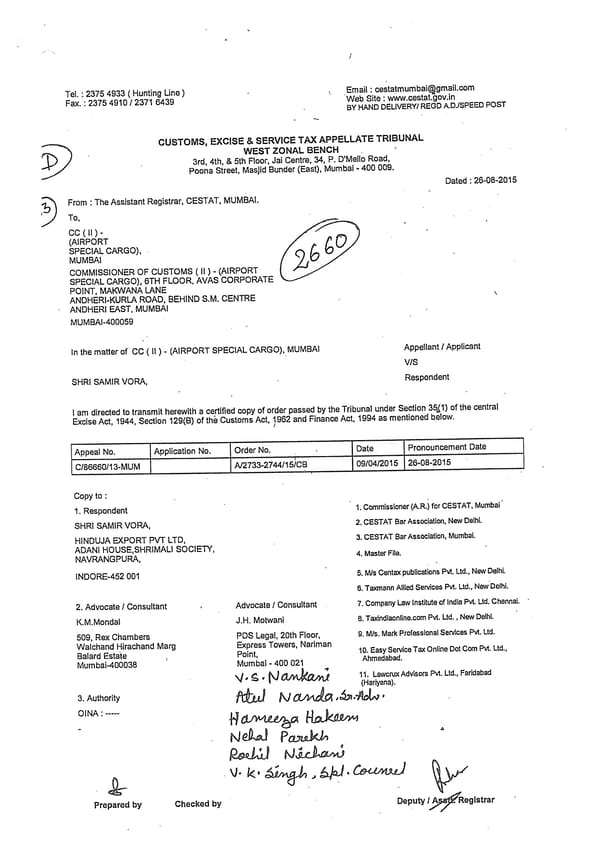
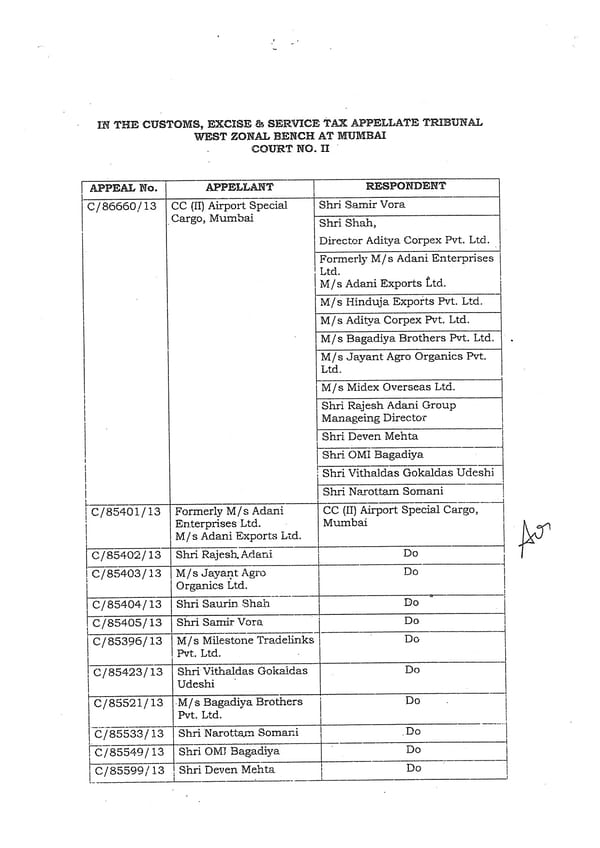
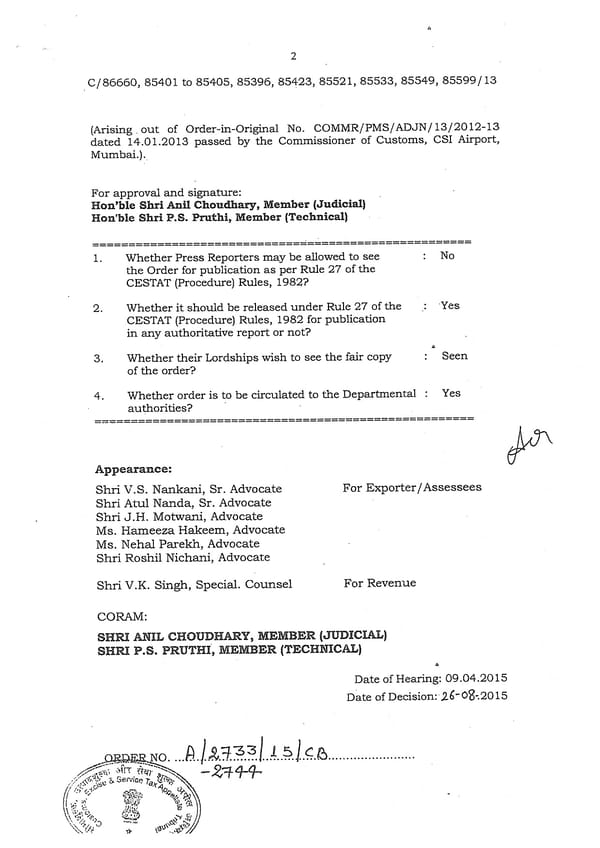
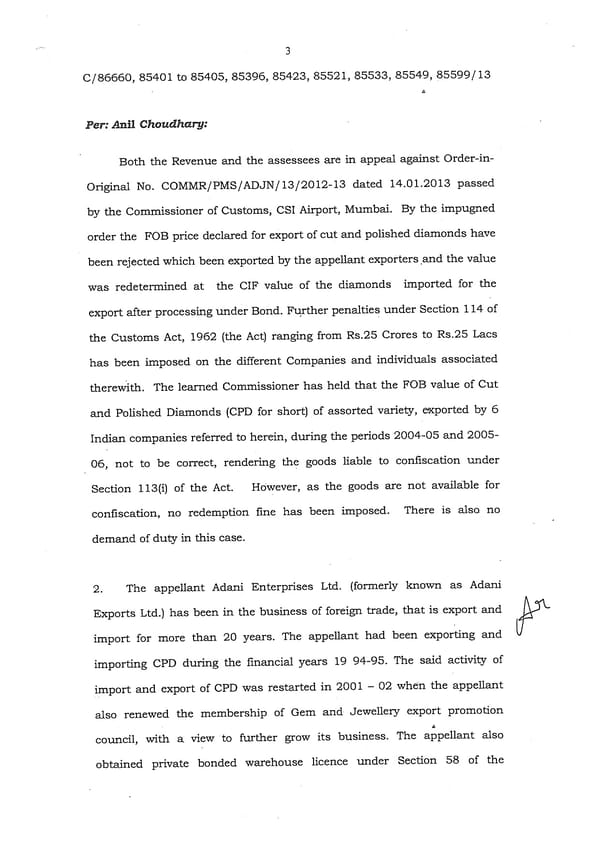
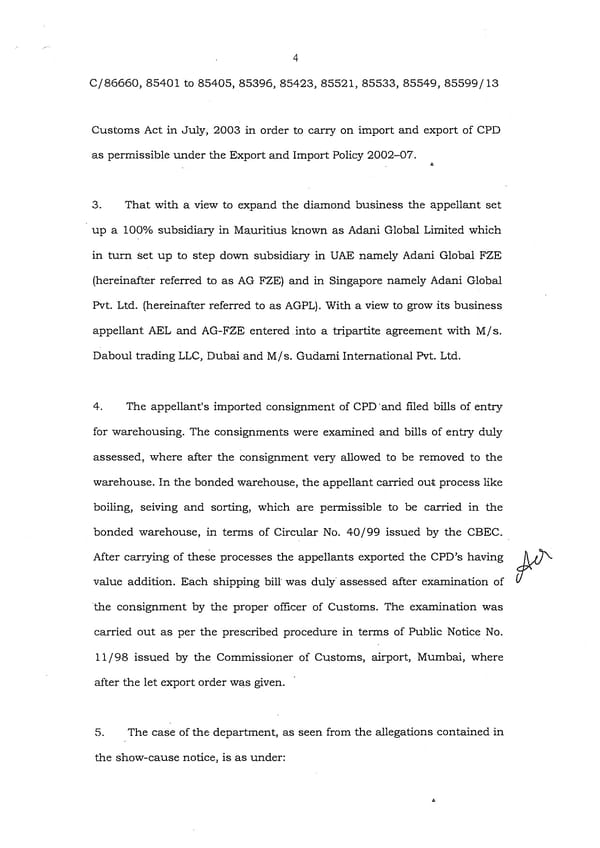
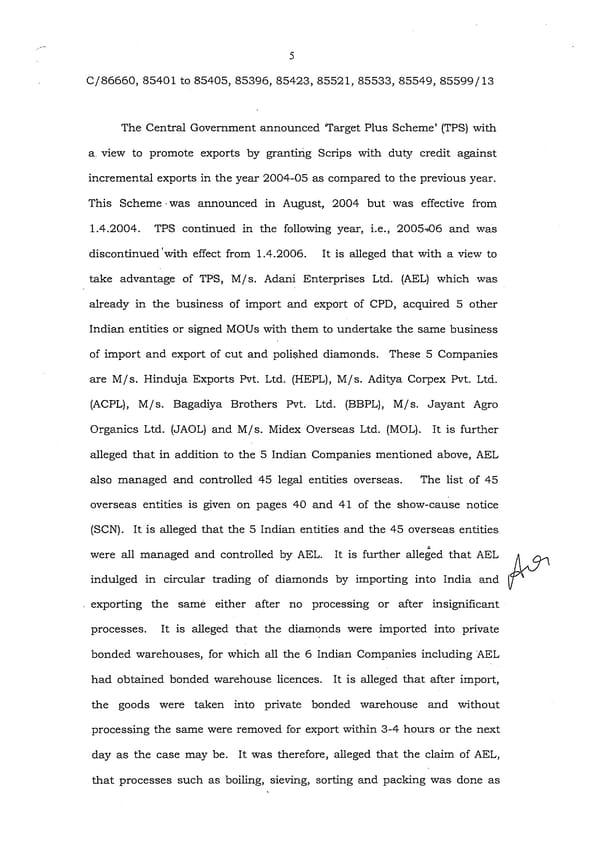
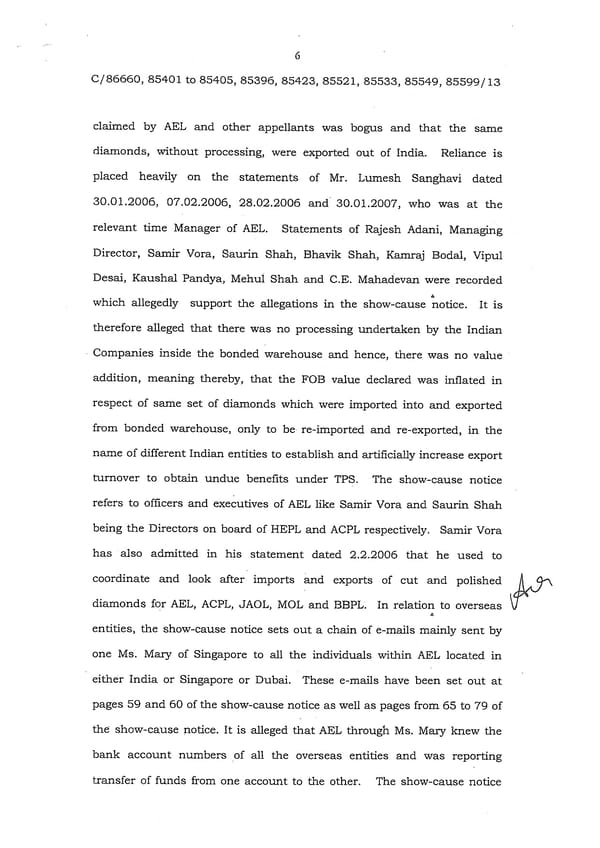
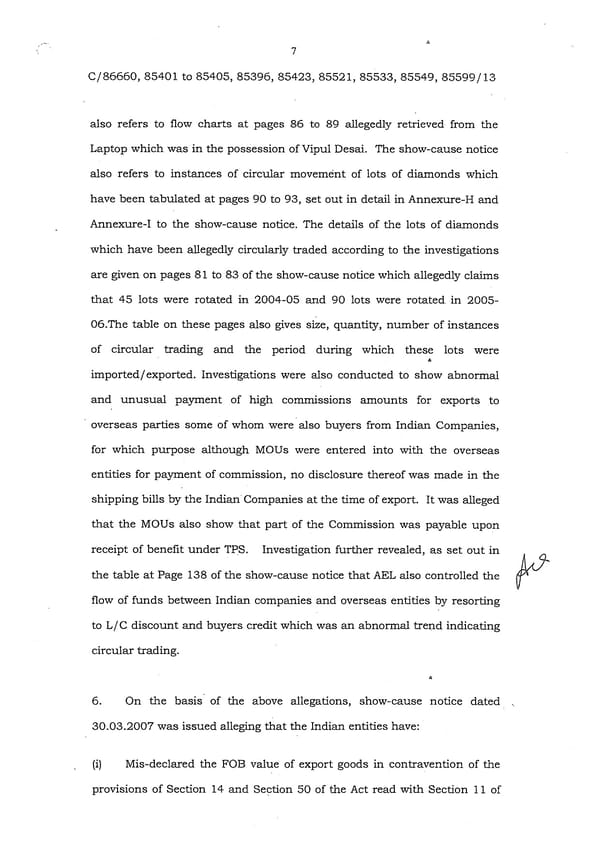
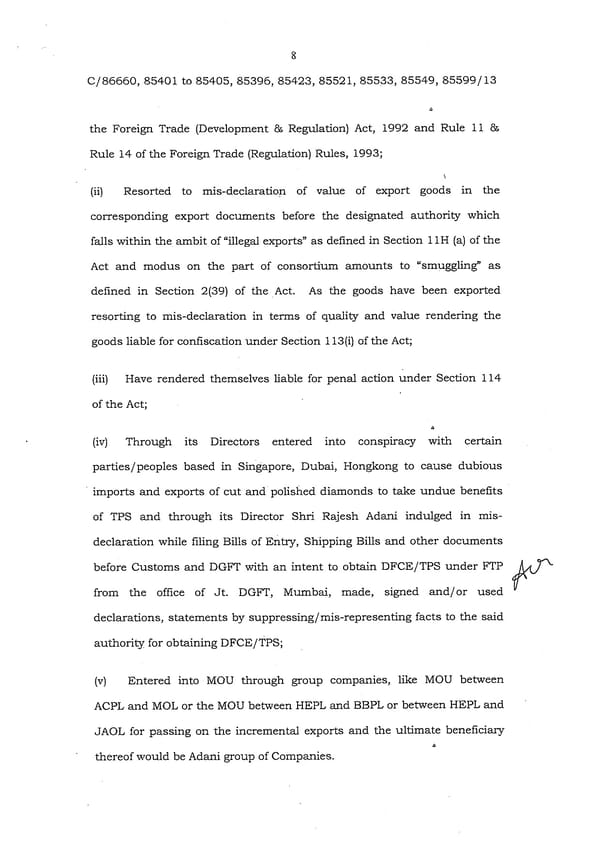
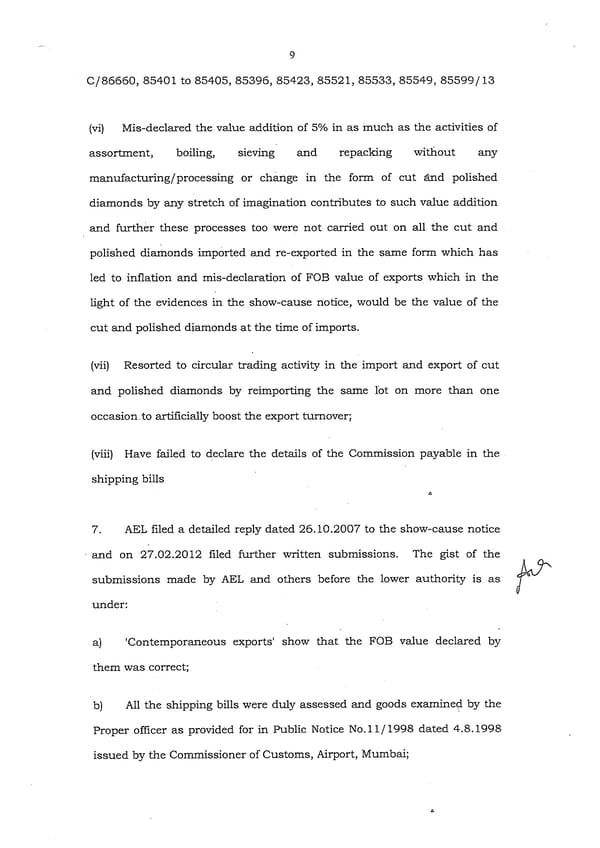
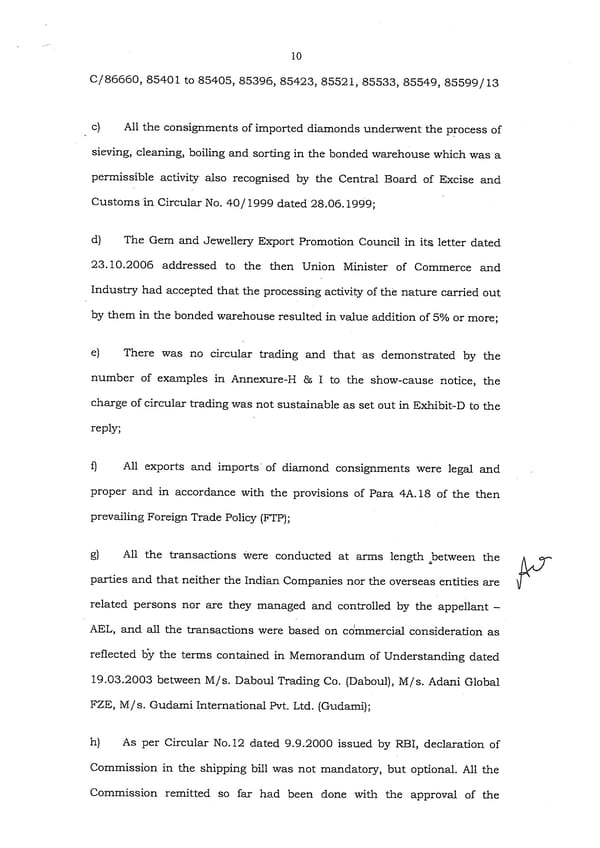
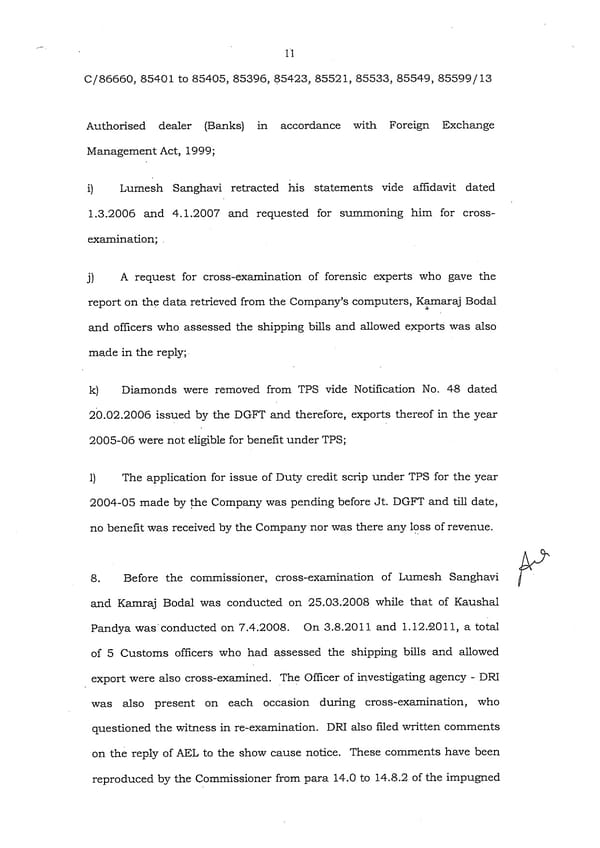
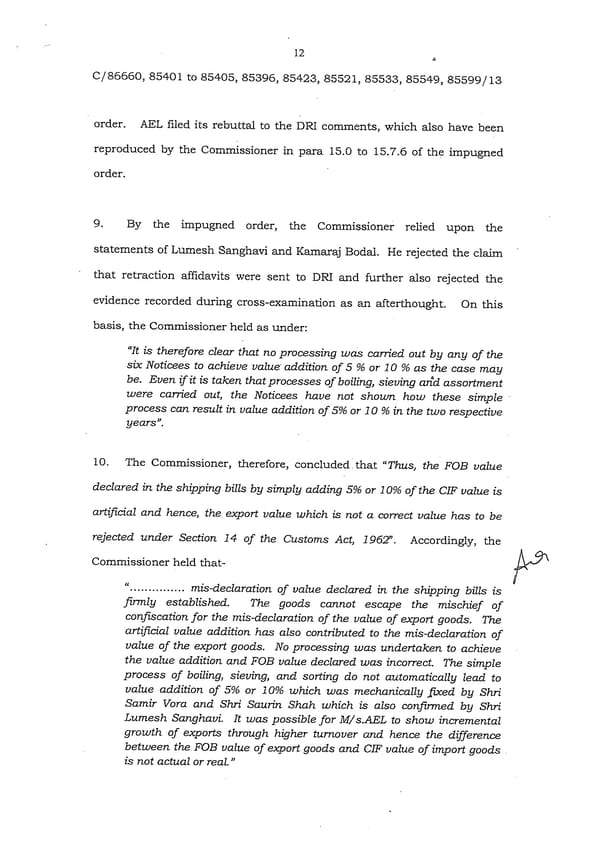
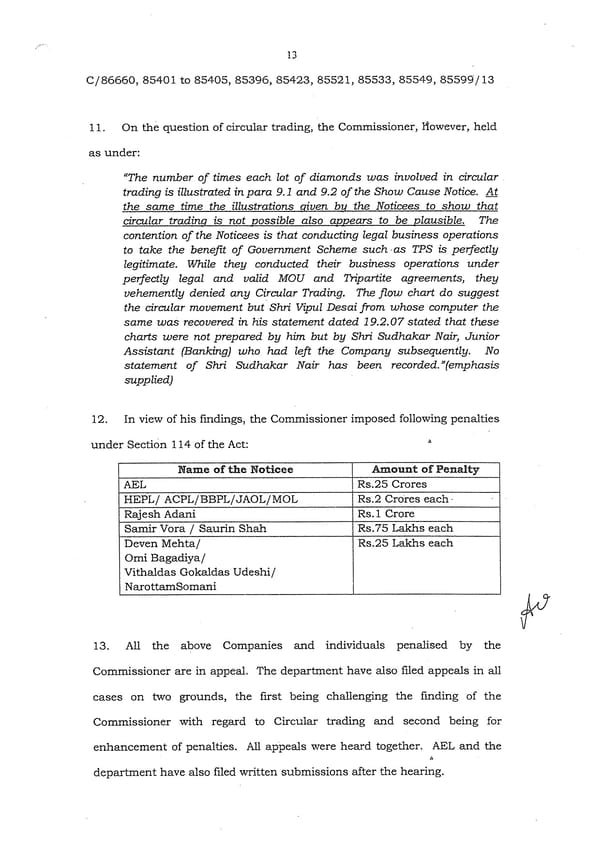
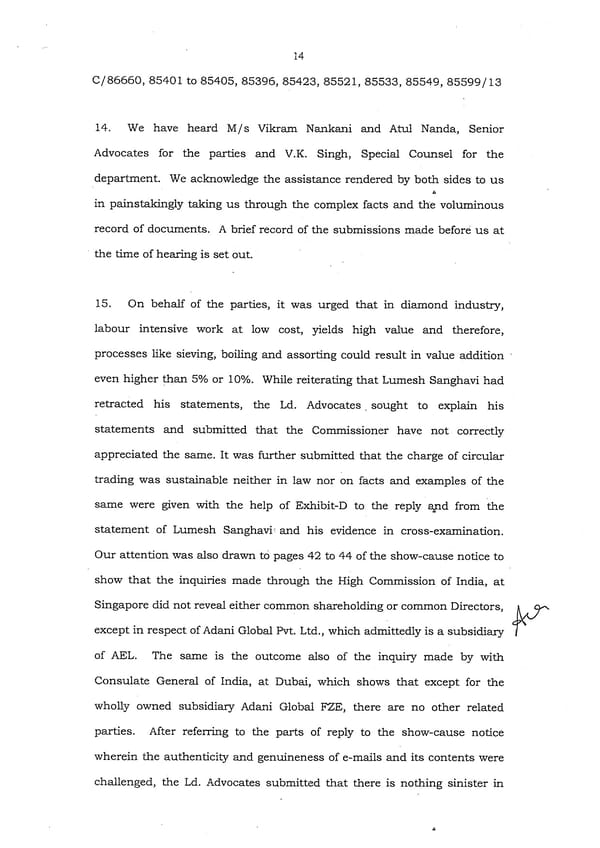
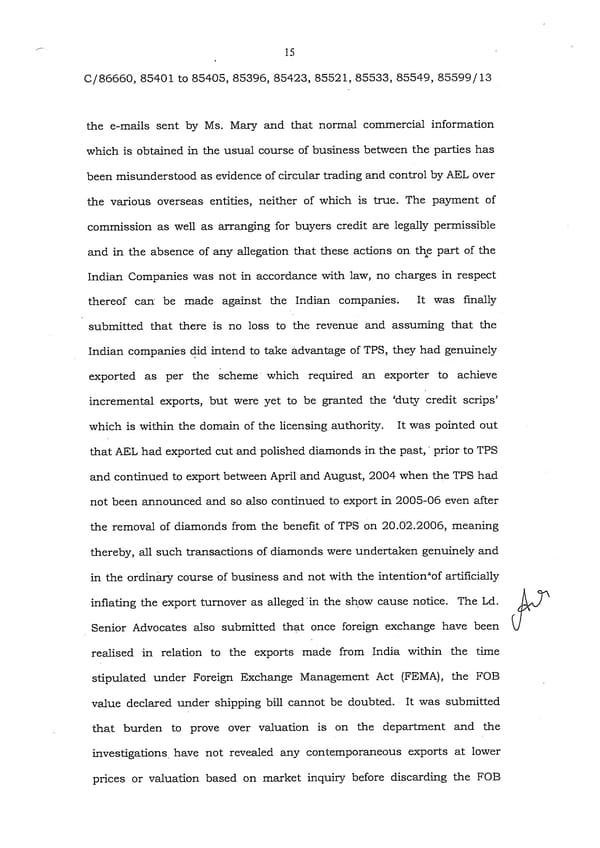
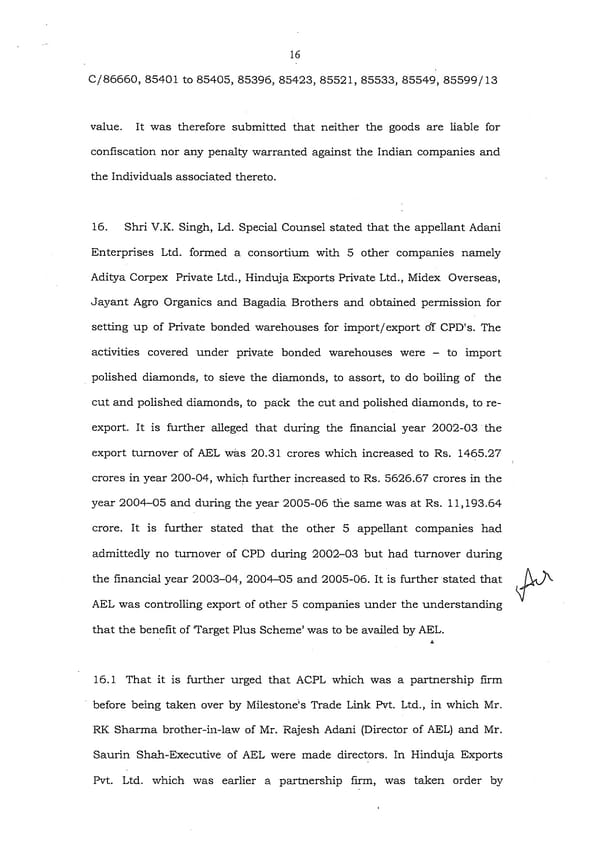
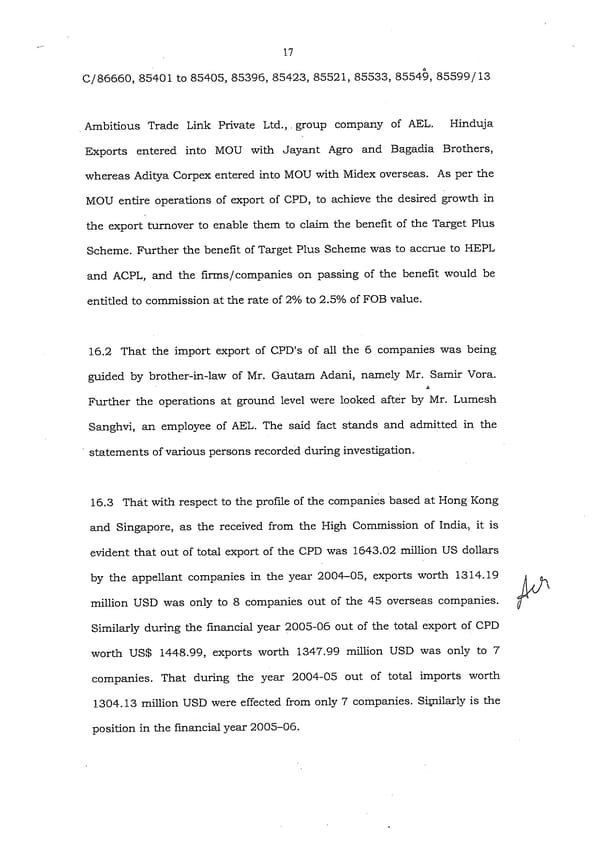
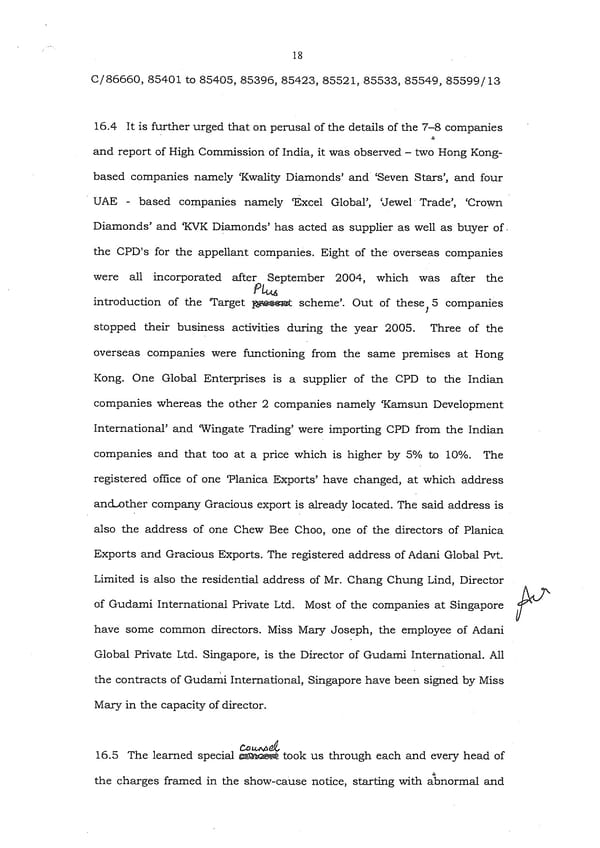
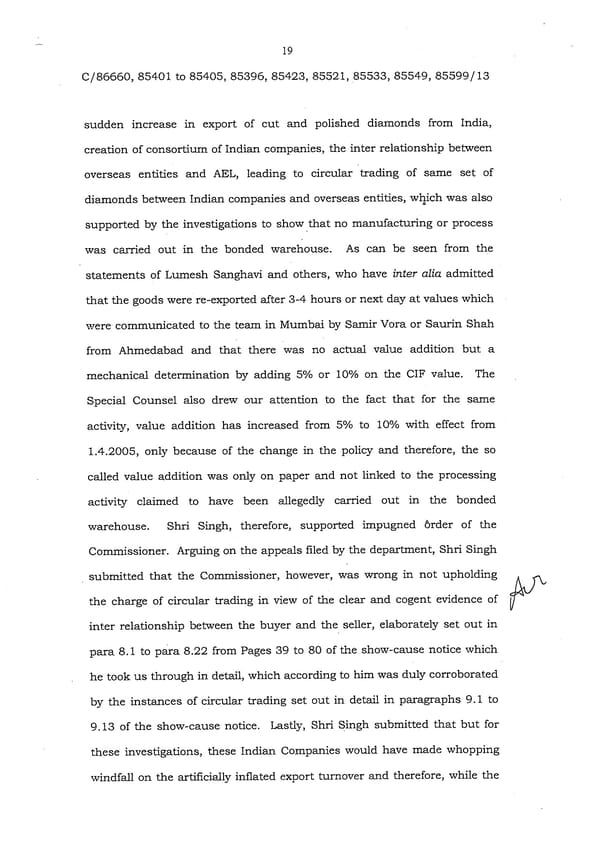
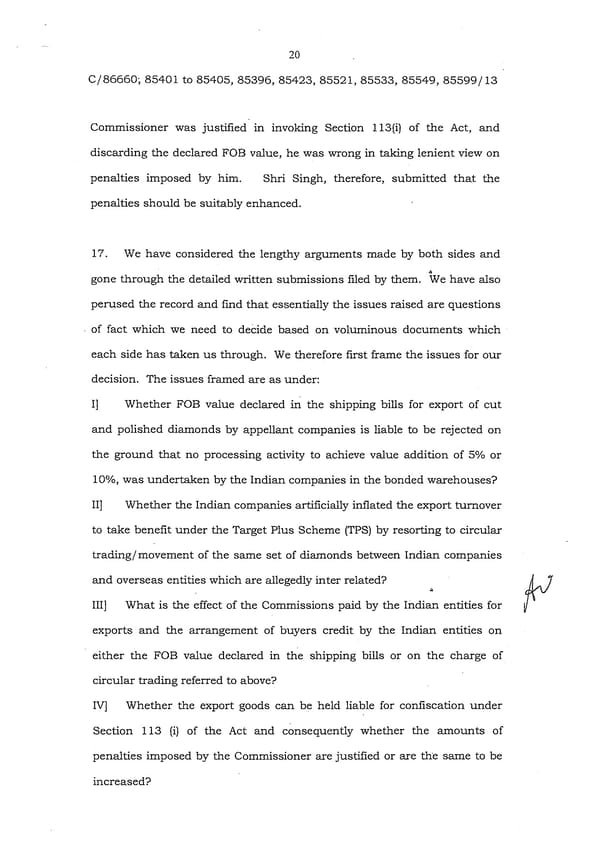
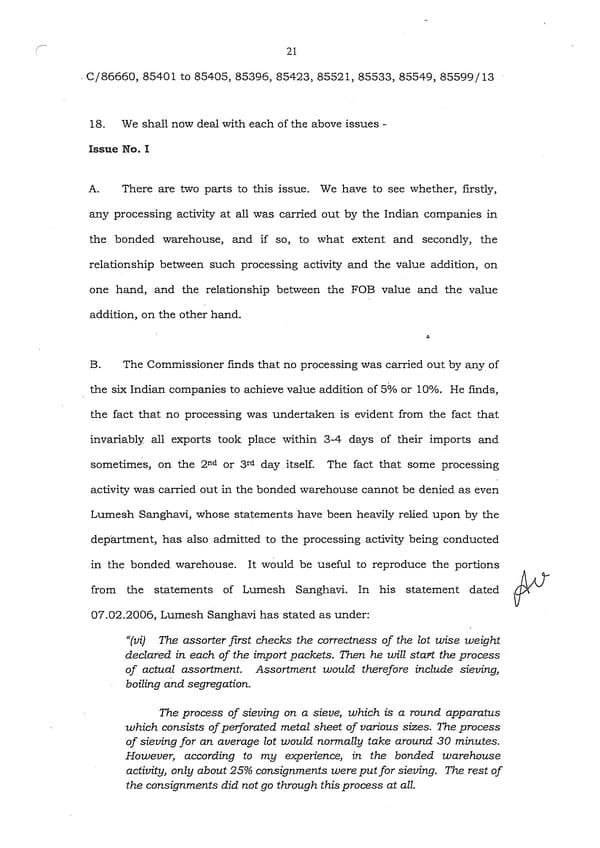
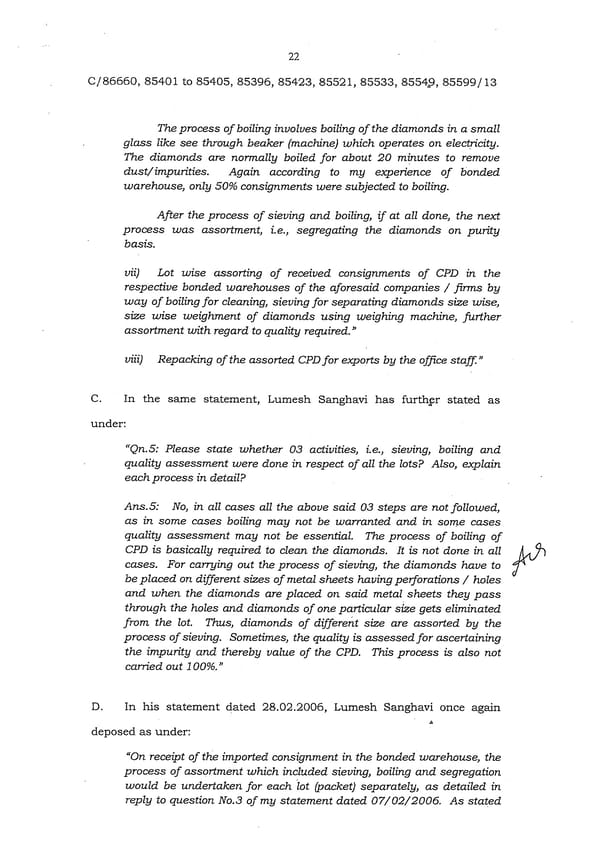
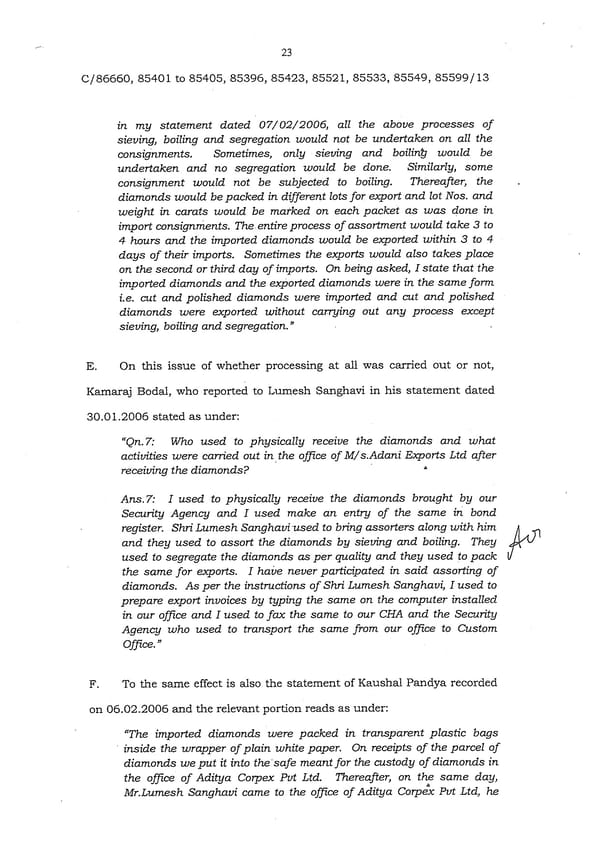
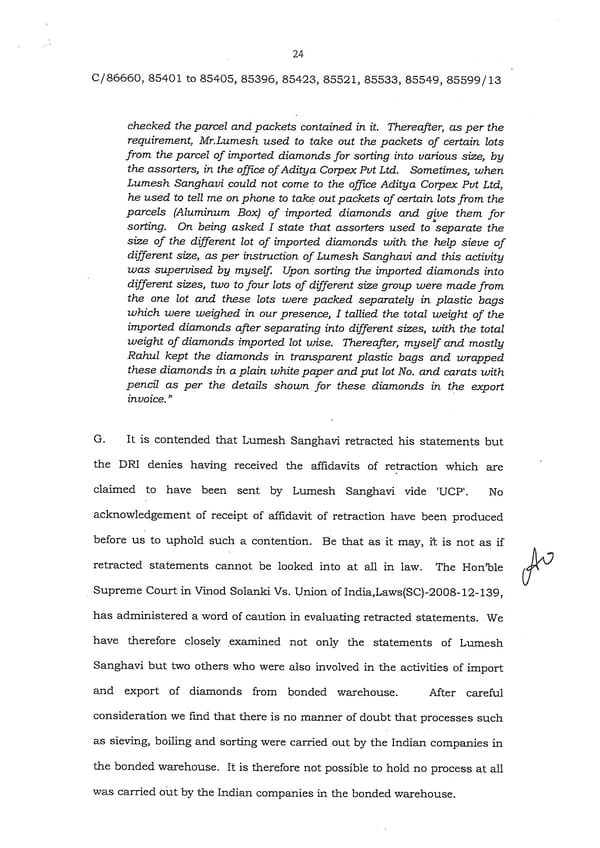
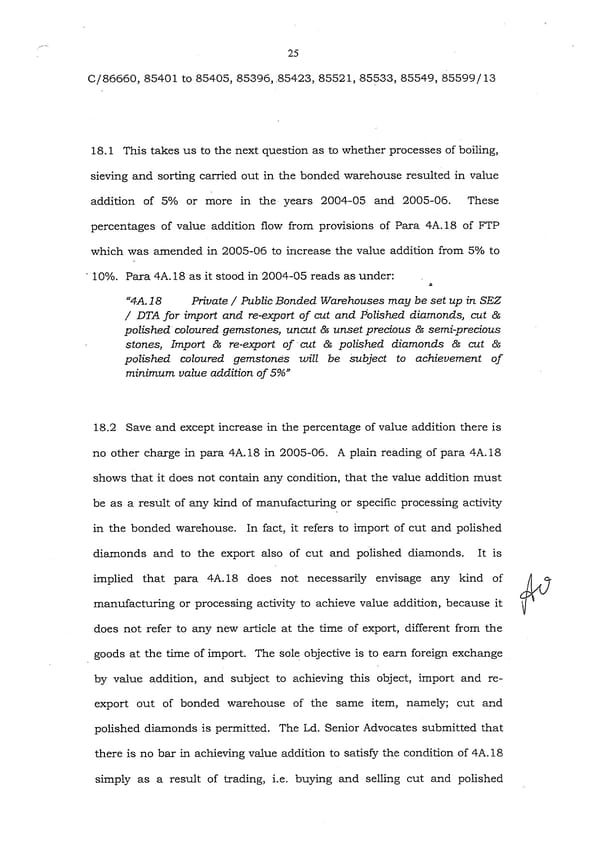
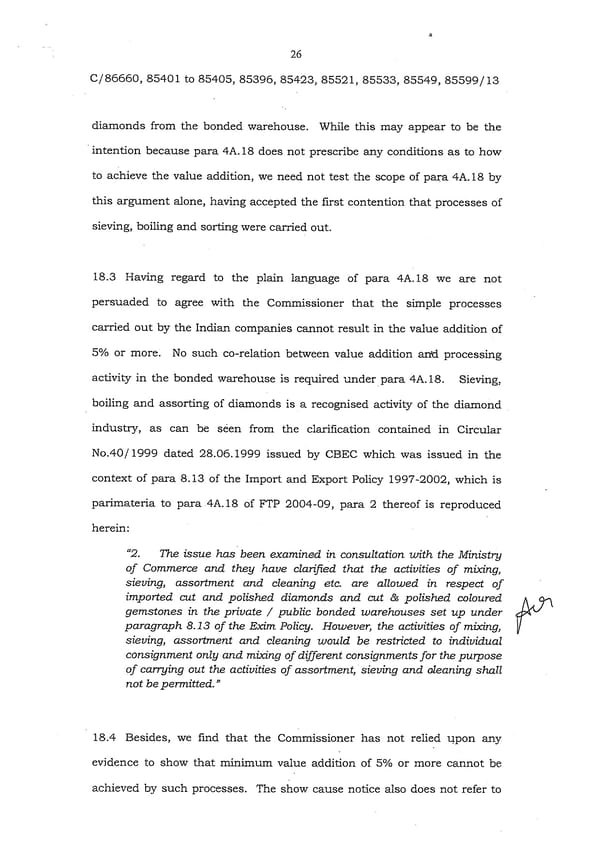
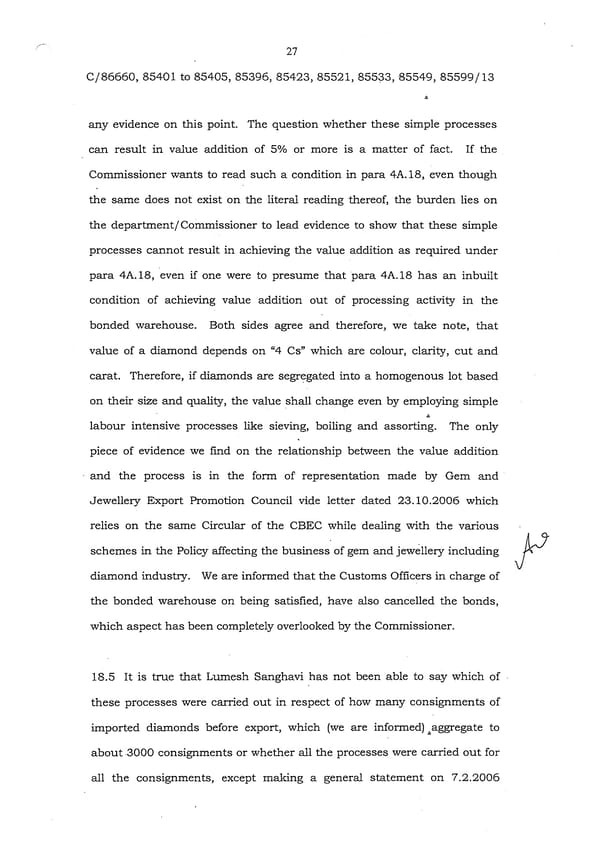
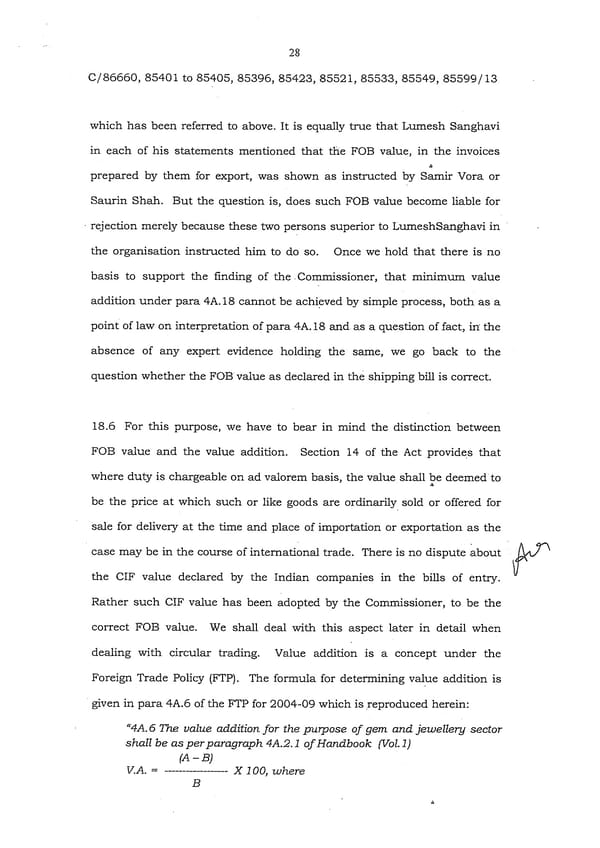
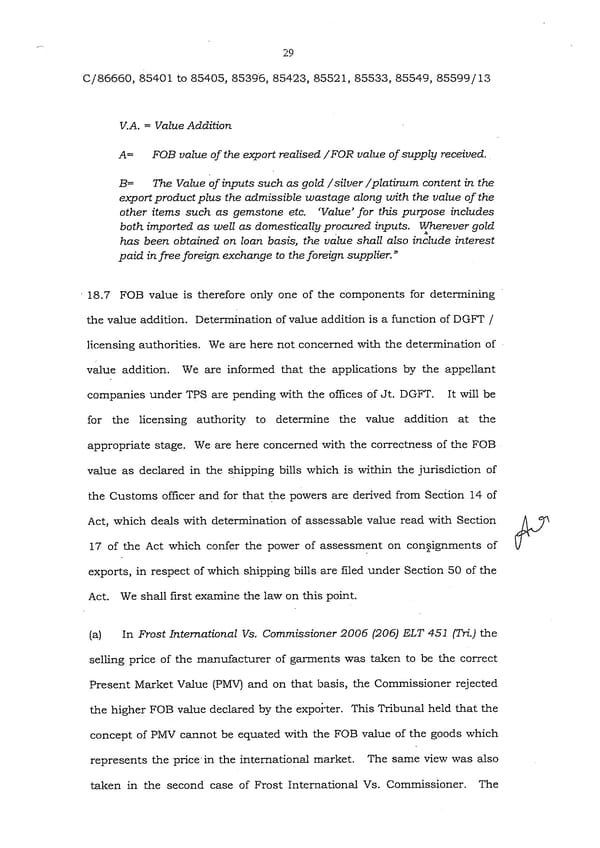
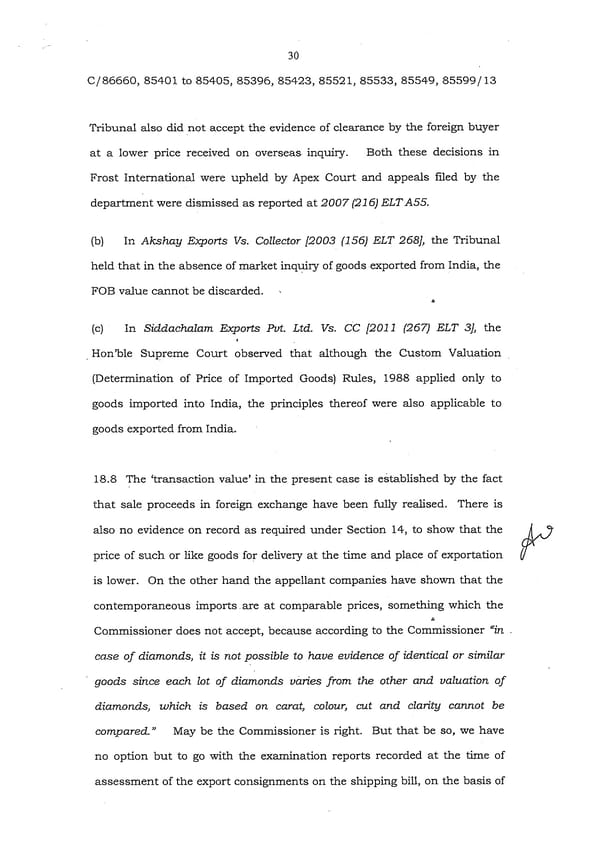
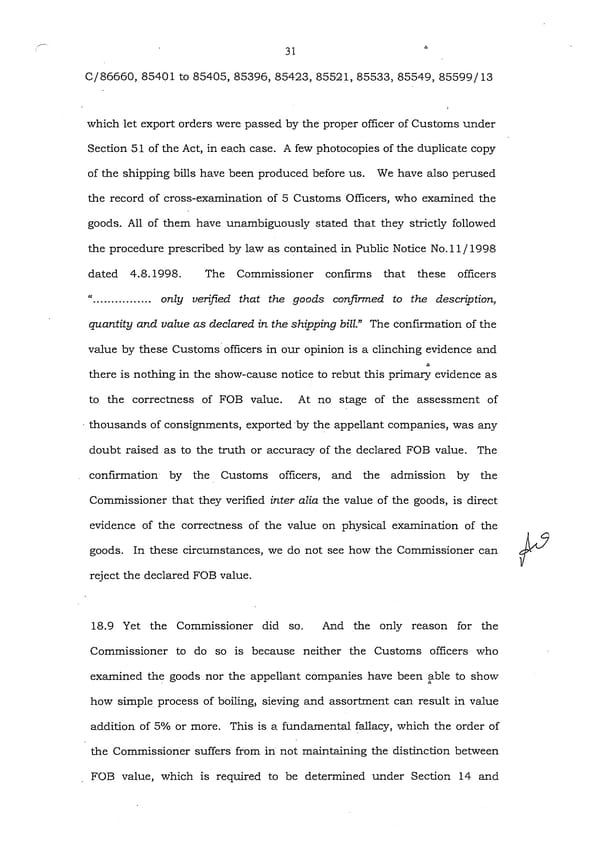
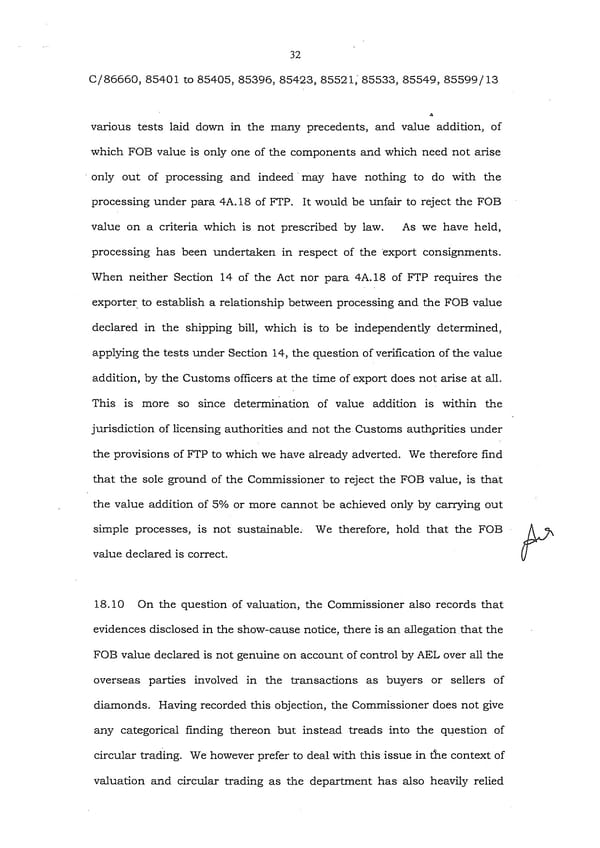
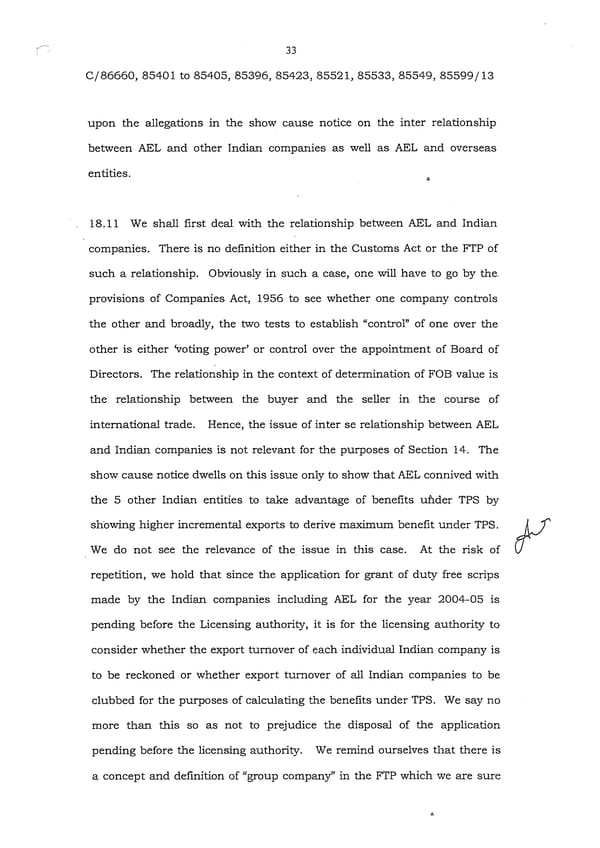
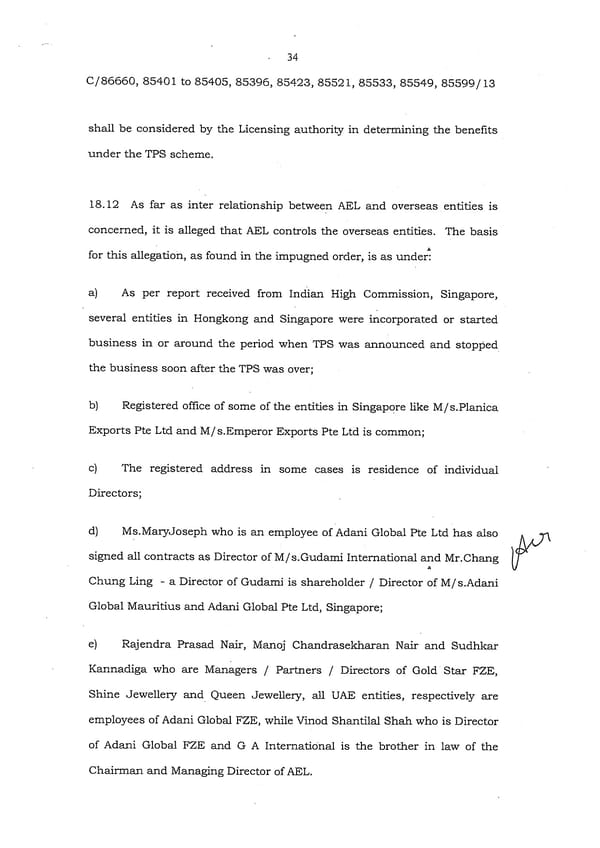
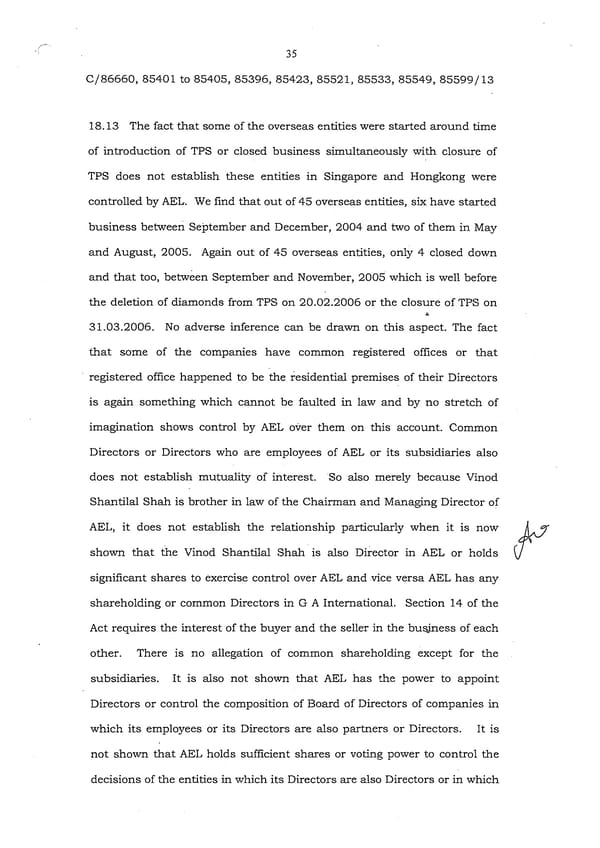
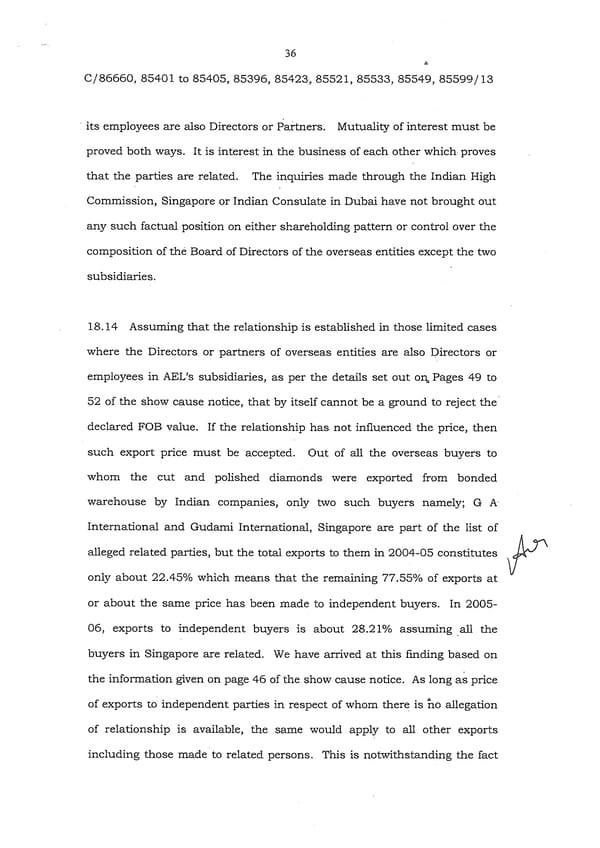
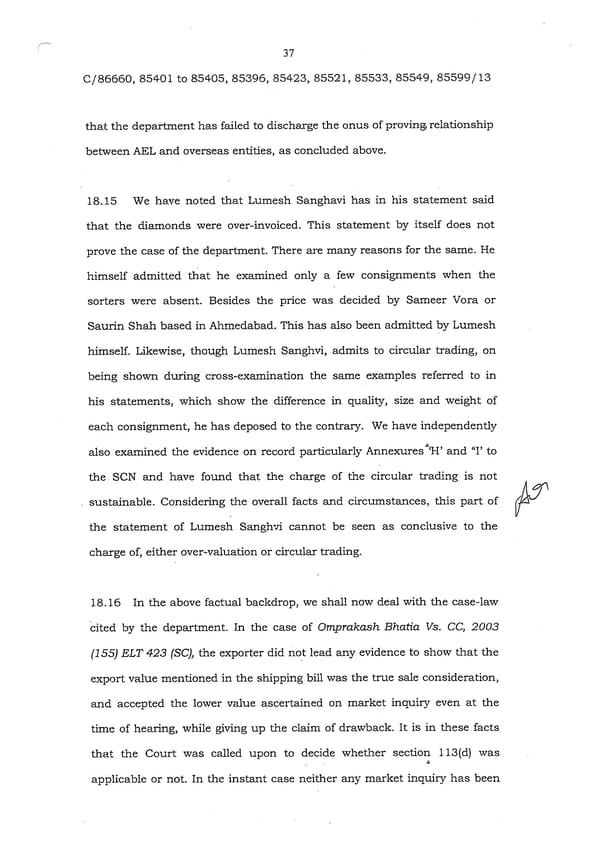
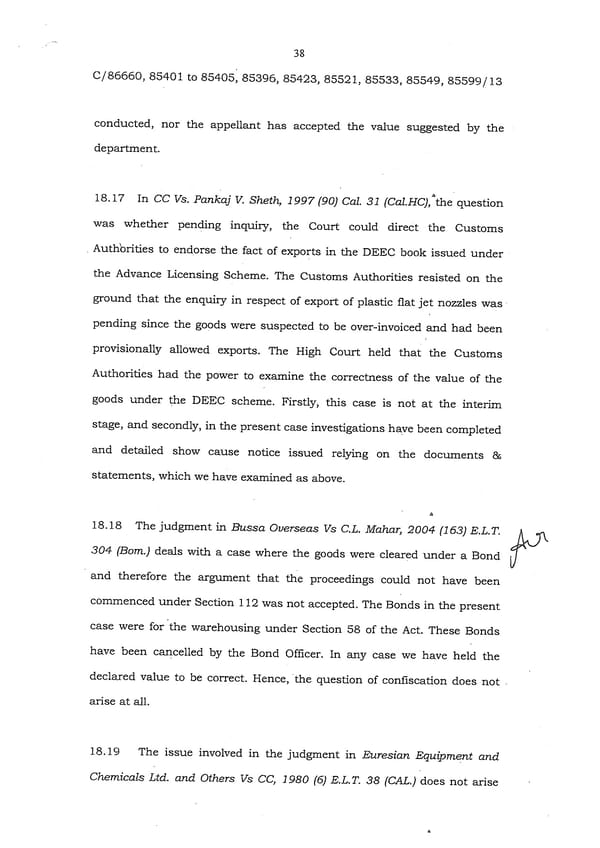
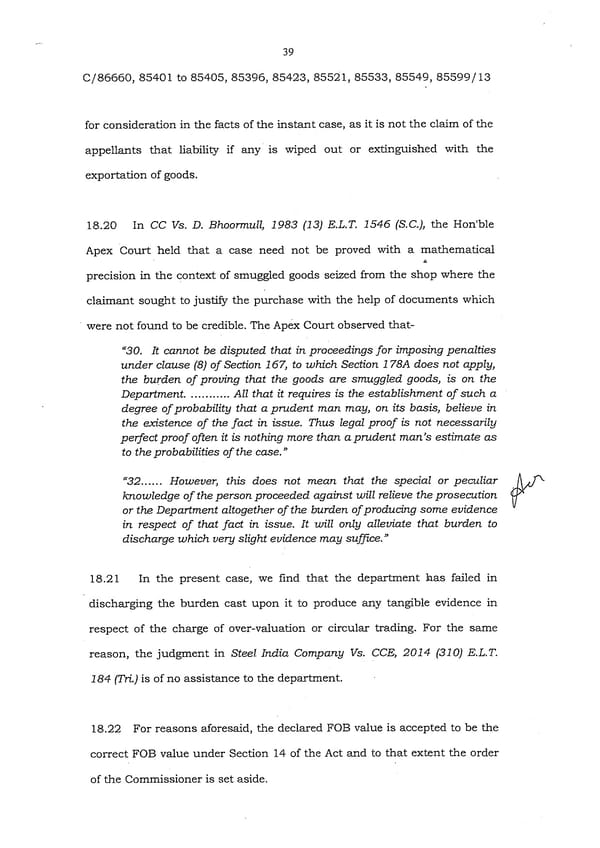
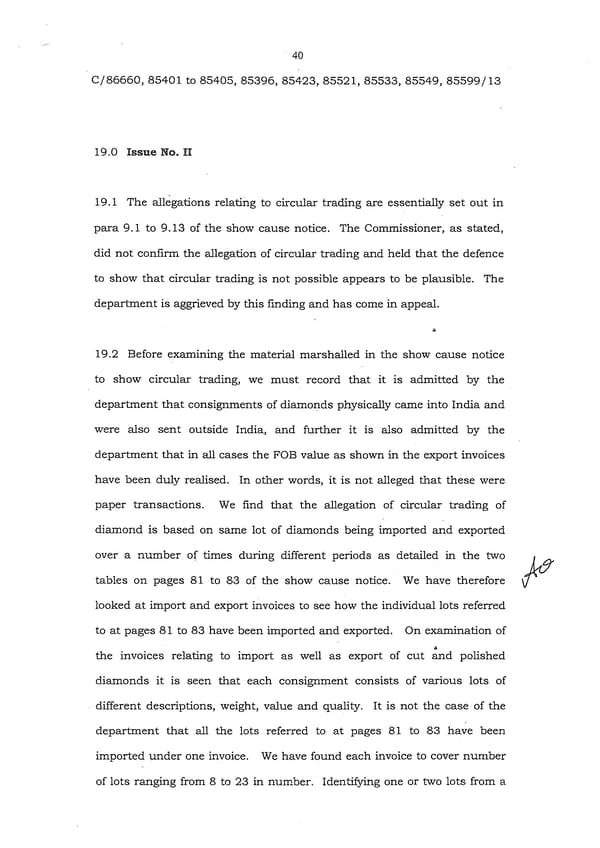
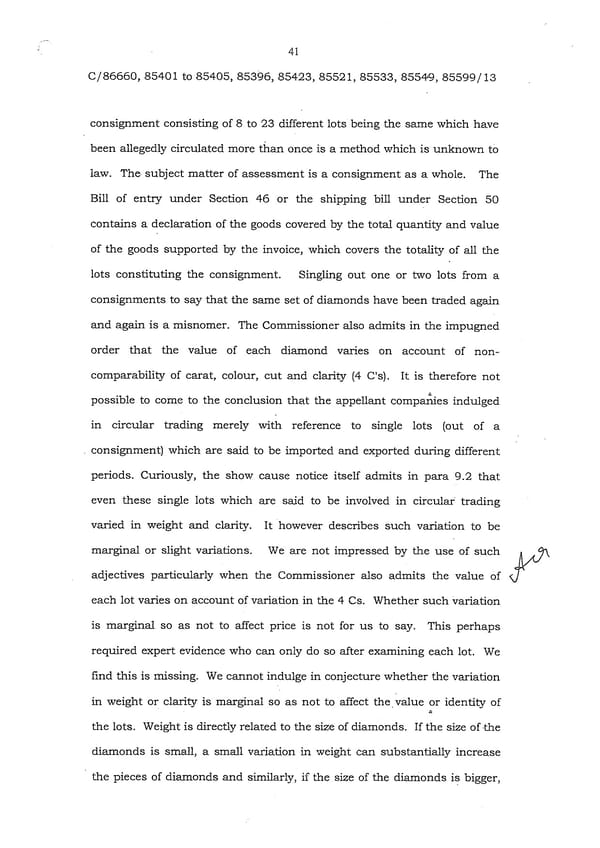
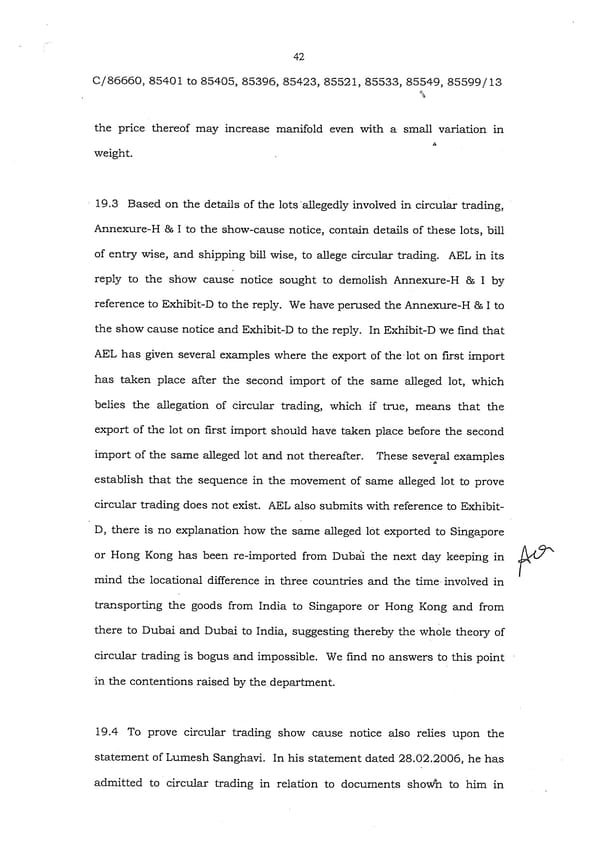
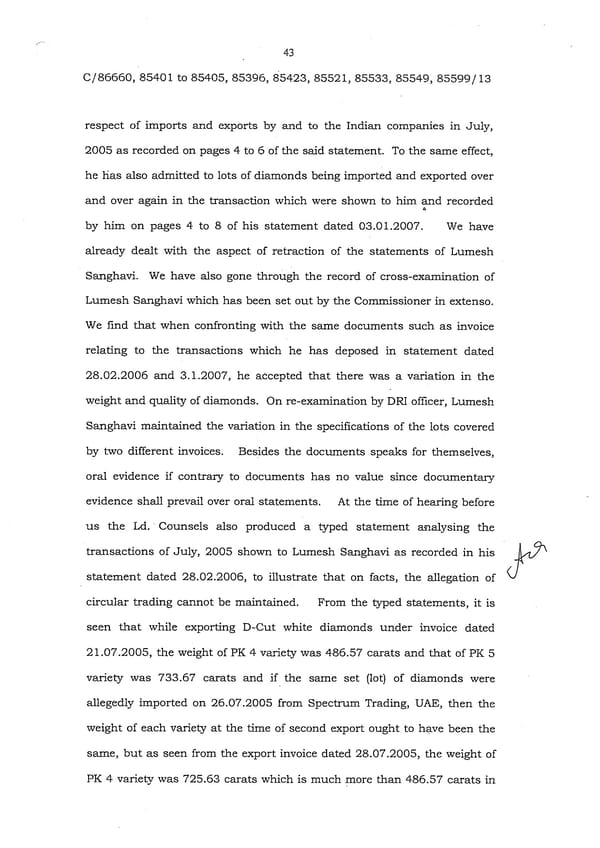
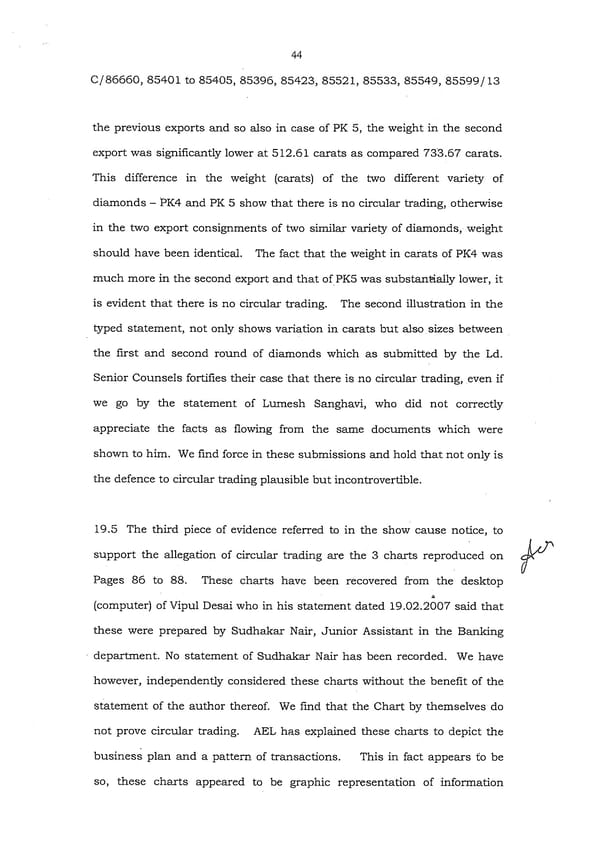
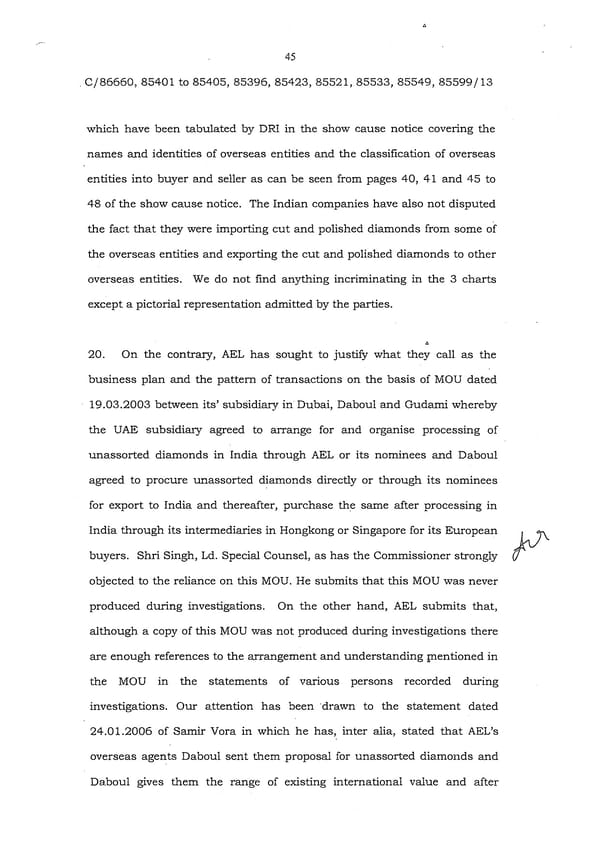
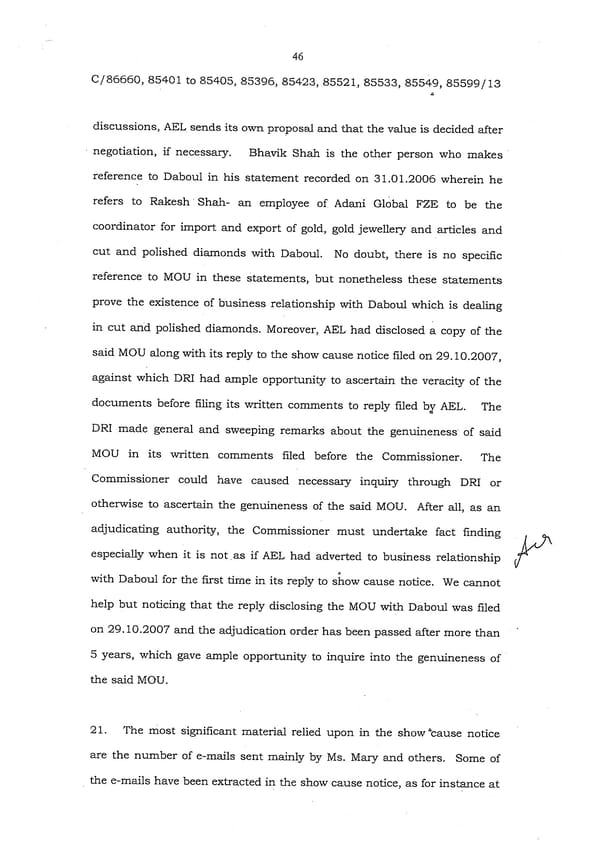
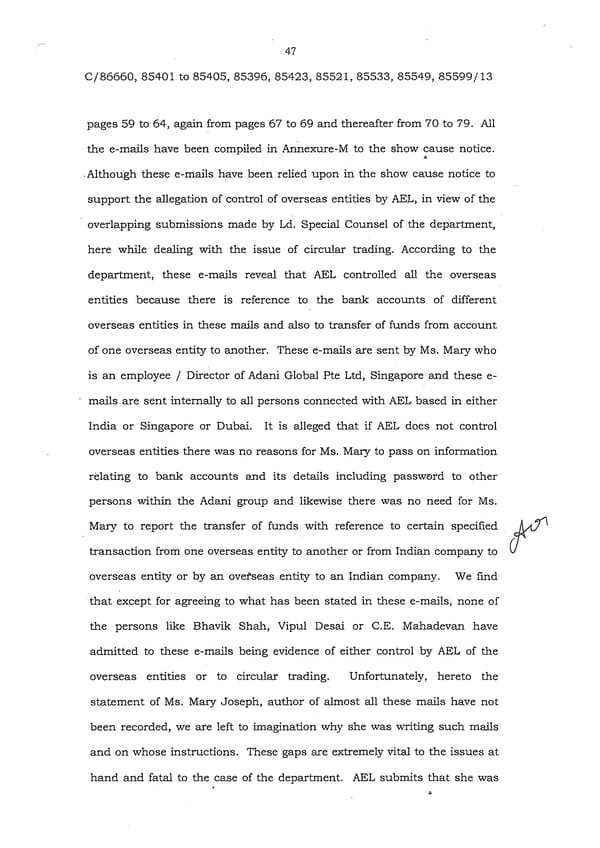
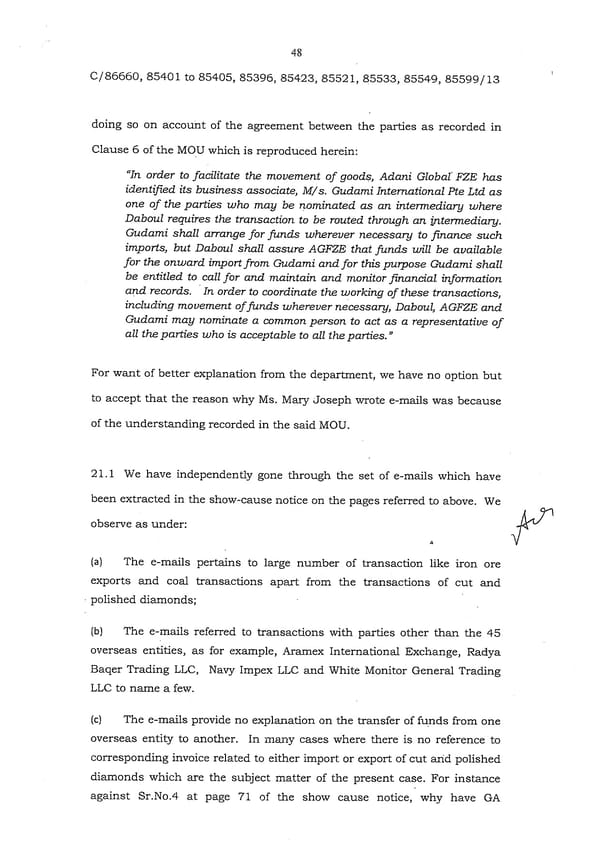
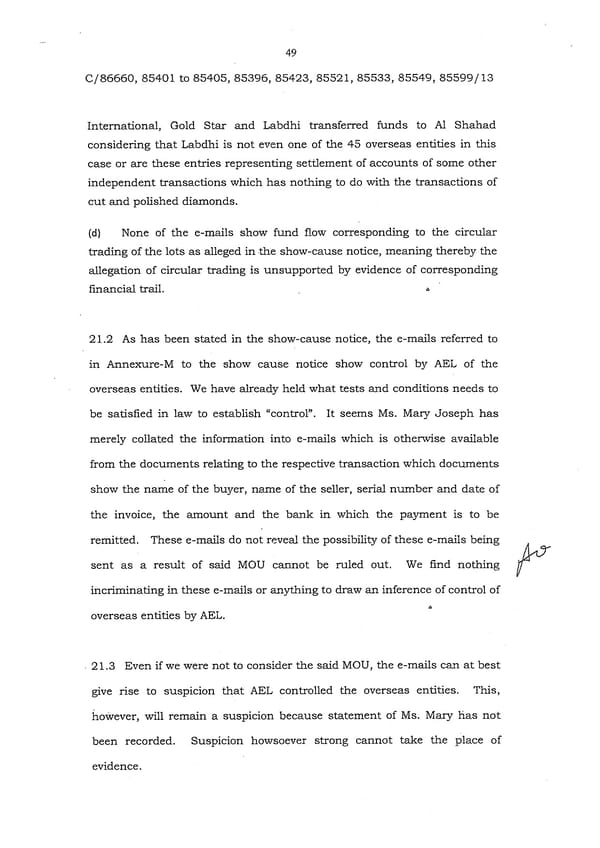
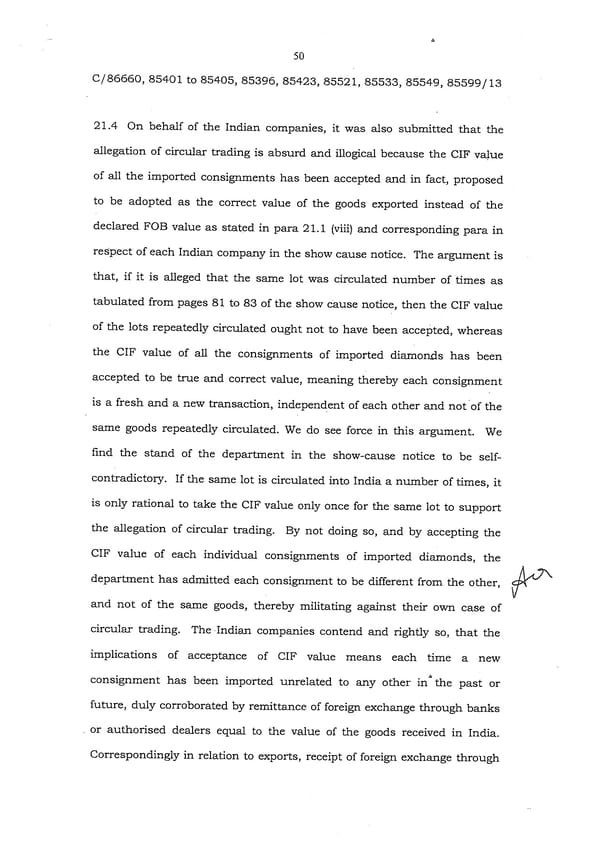
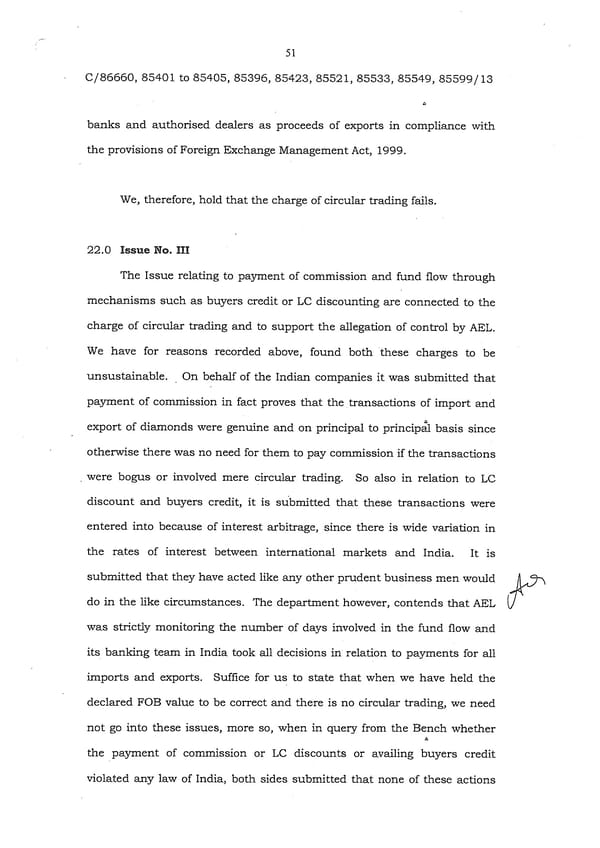
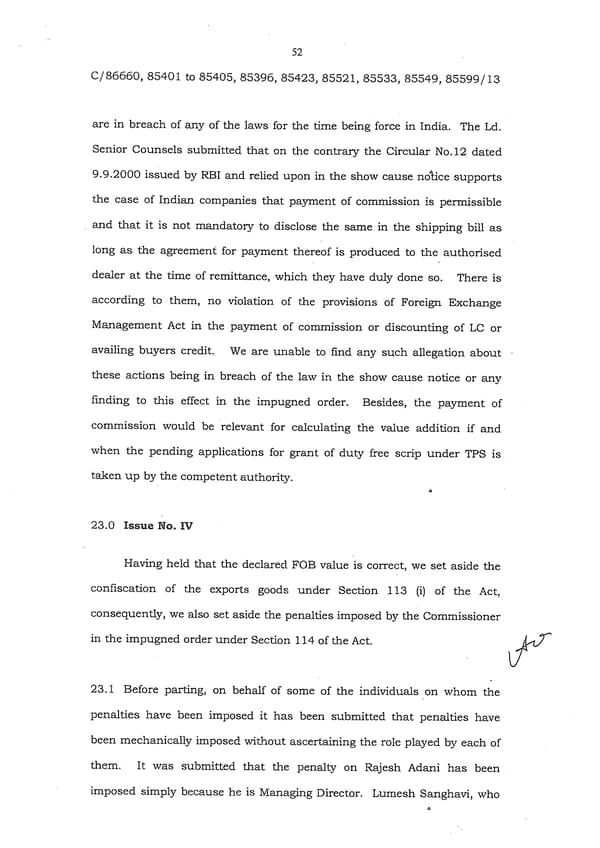
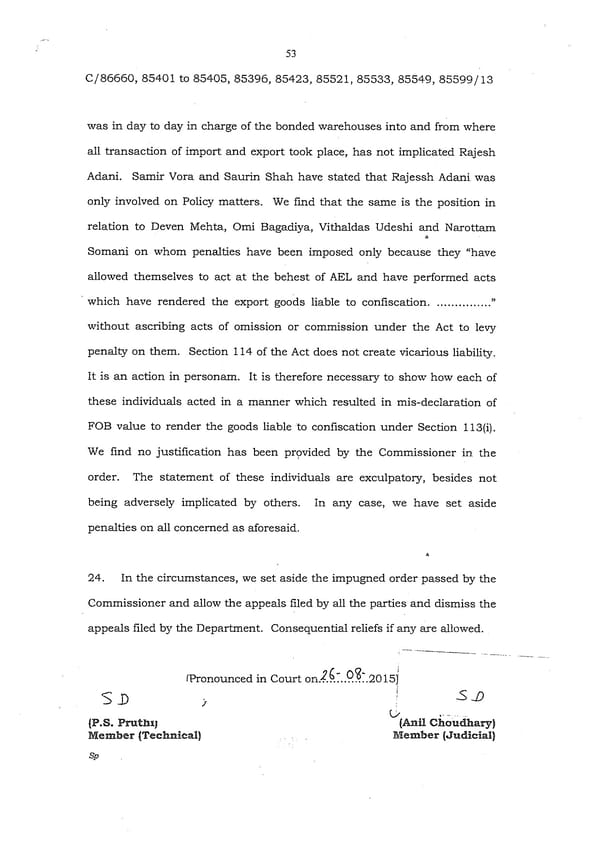
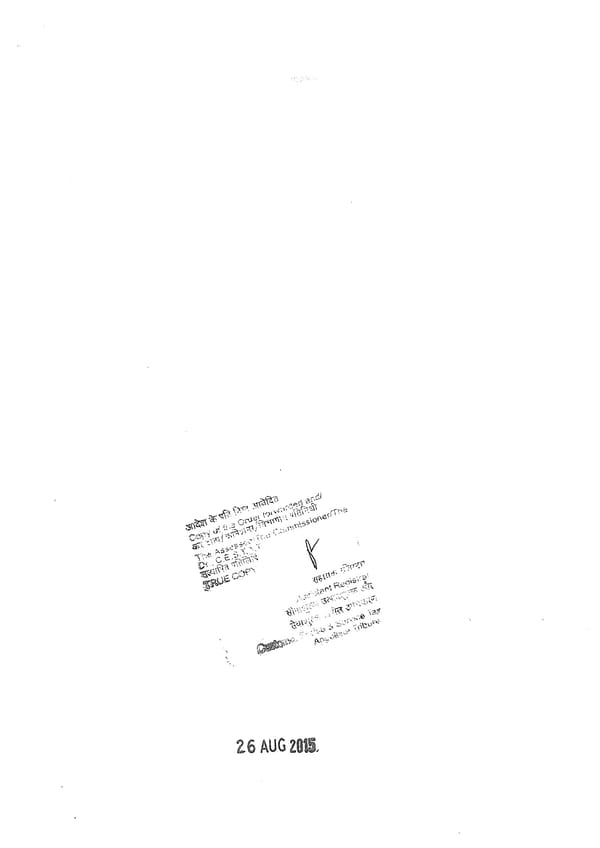

Annexure 4: Order of the Supreme Court on India dated 22nd July 2016 127
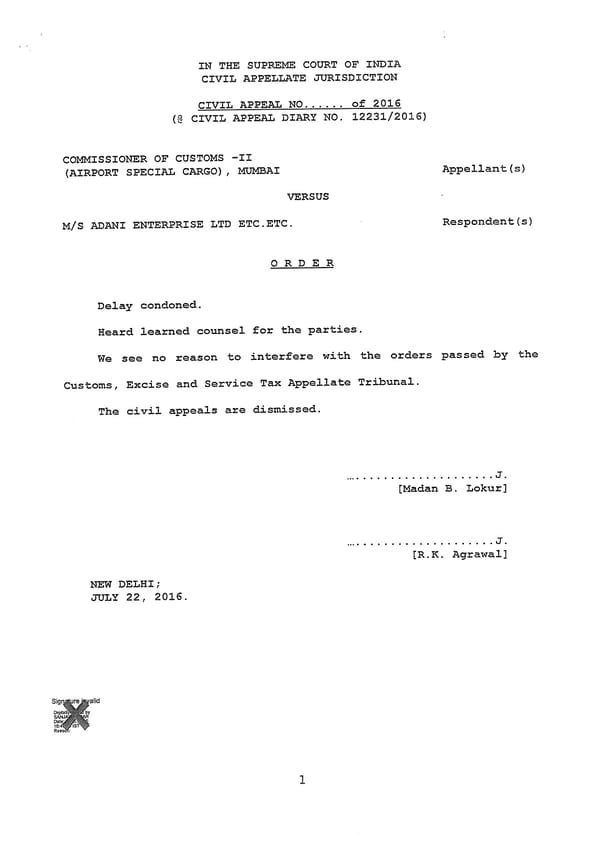
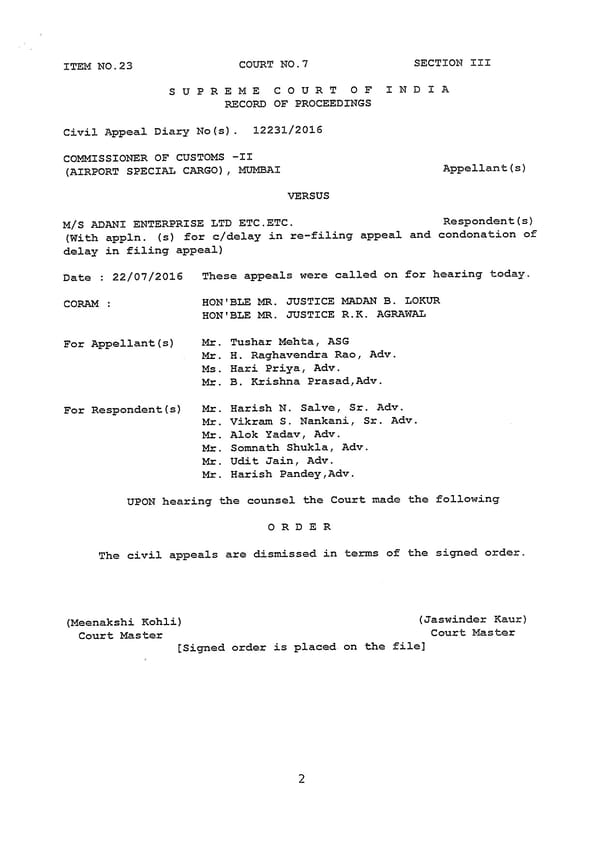
Annexure 5: Order of the Supreme Court on India dated 30th March 2017 130
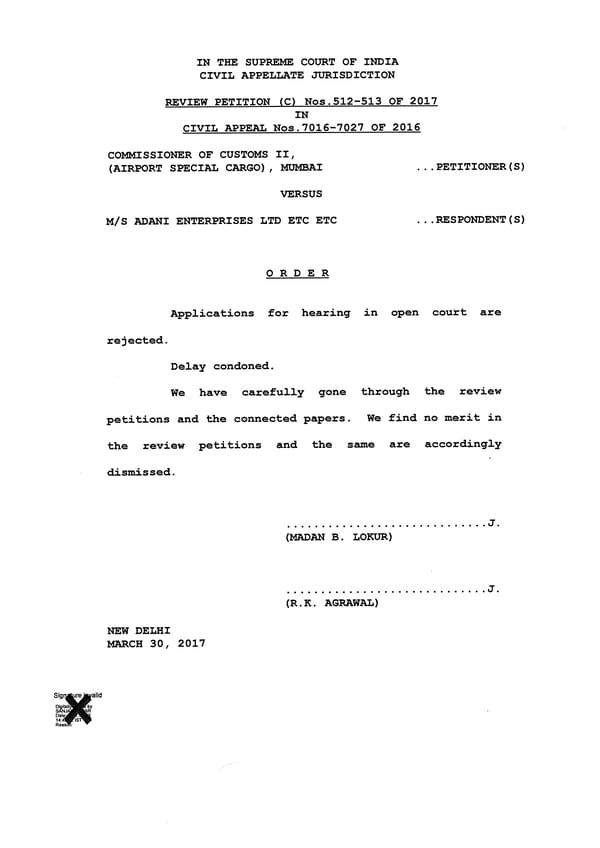
Annexure 6: Order of Customs, Excise & Service Tax Appellate Tribunal (CESTAT) dated 27th July 2022 132
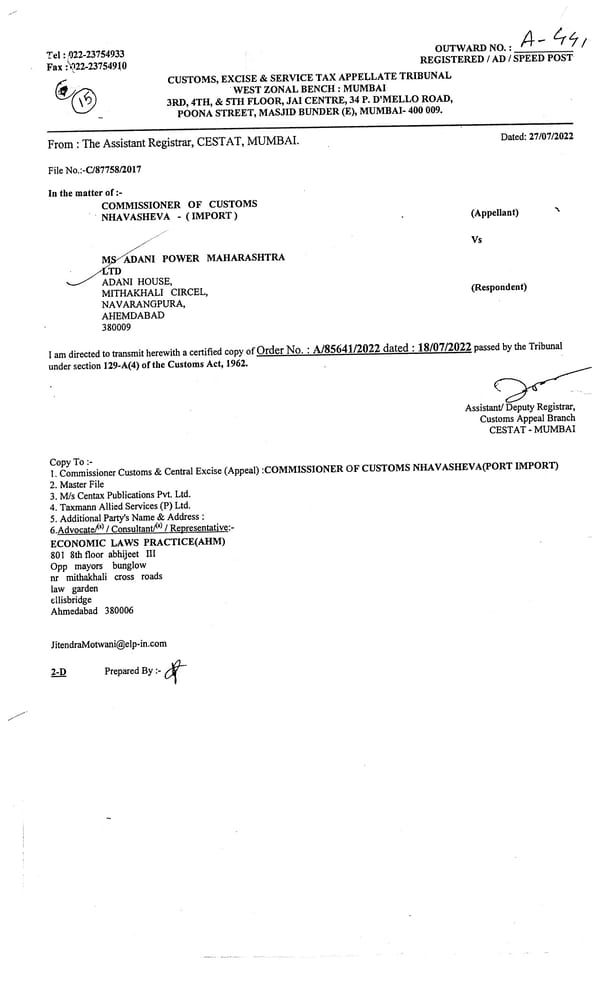
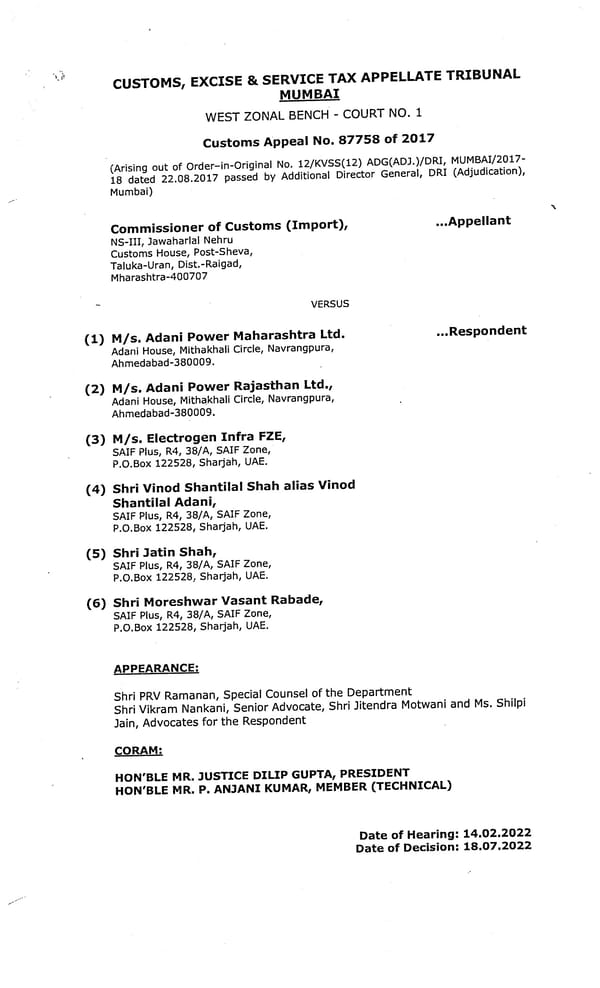
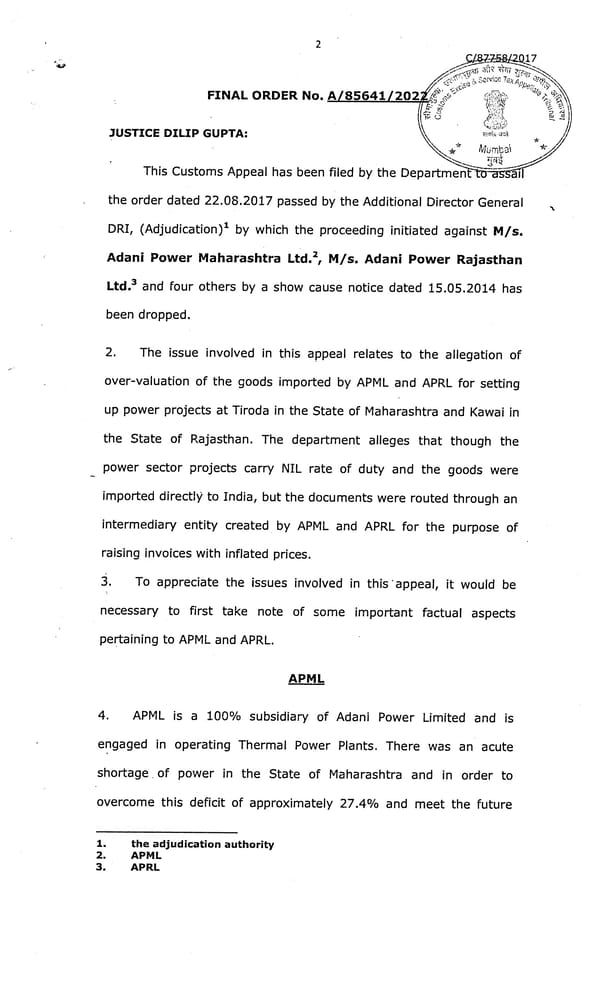
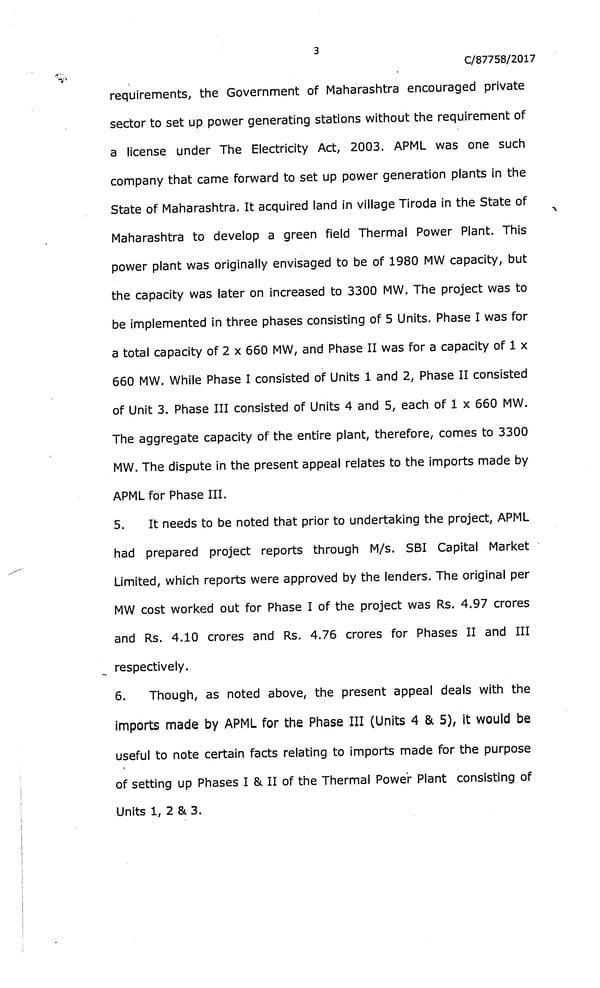
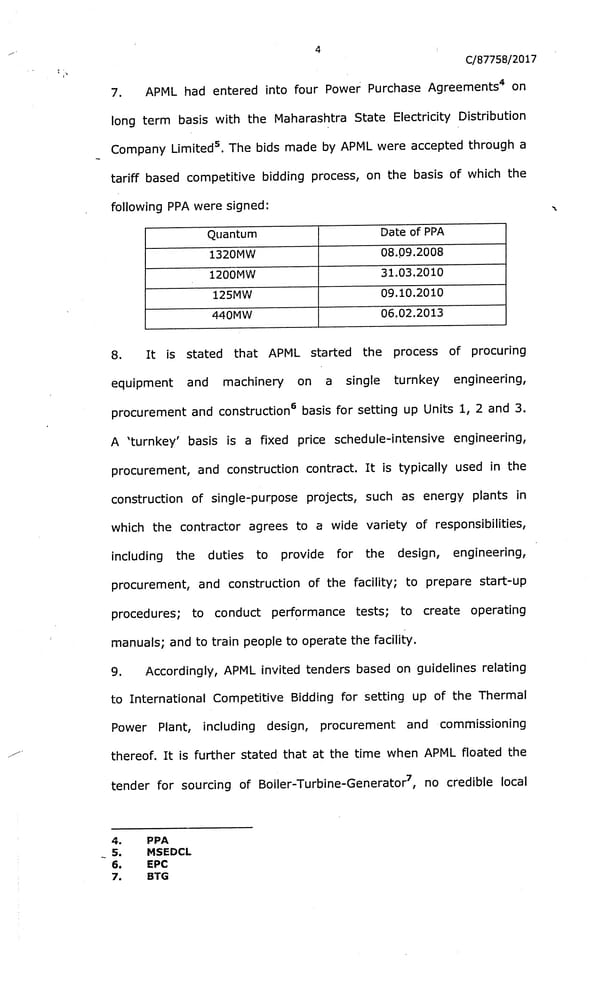
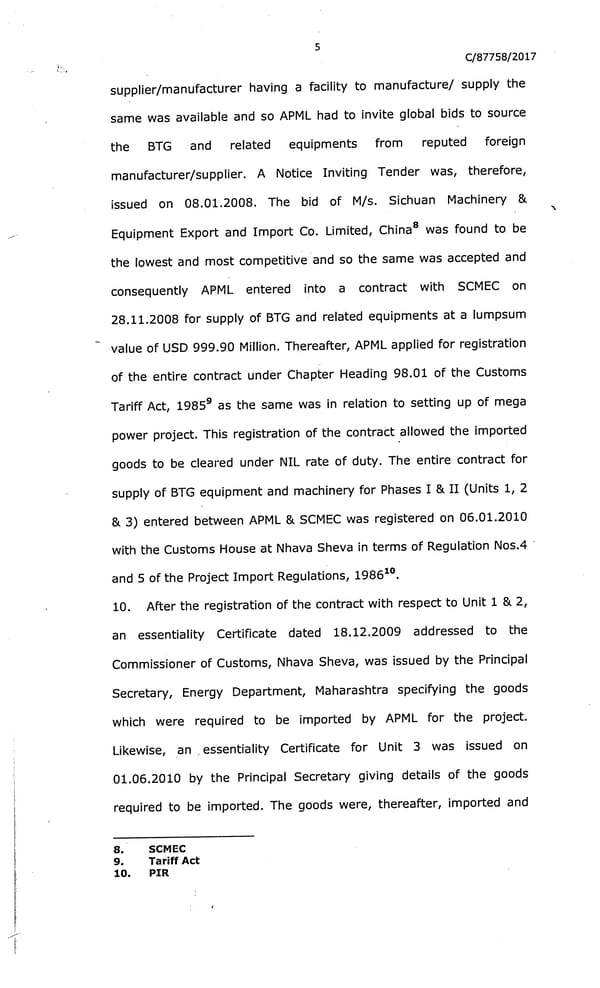
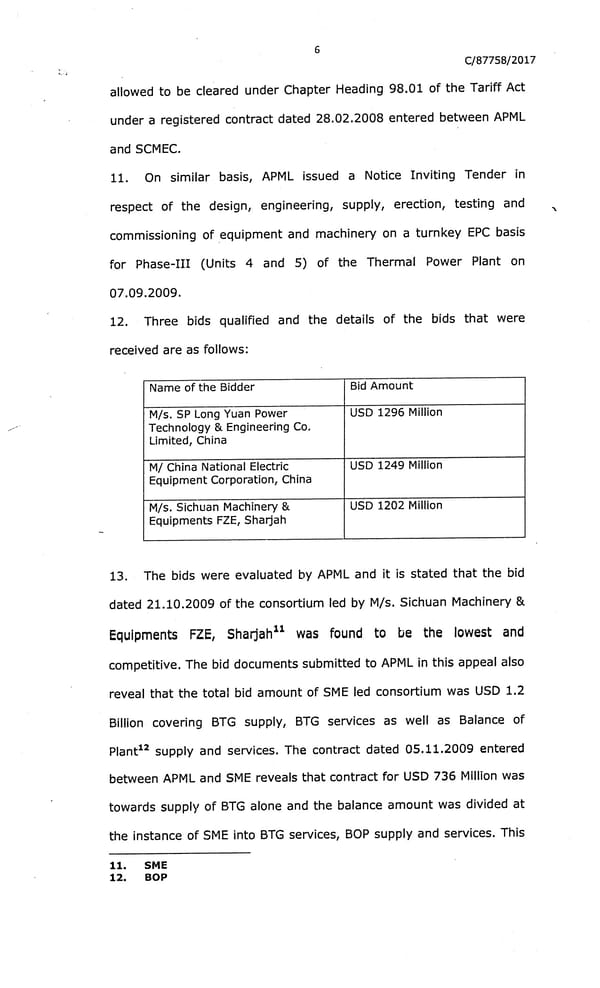
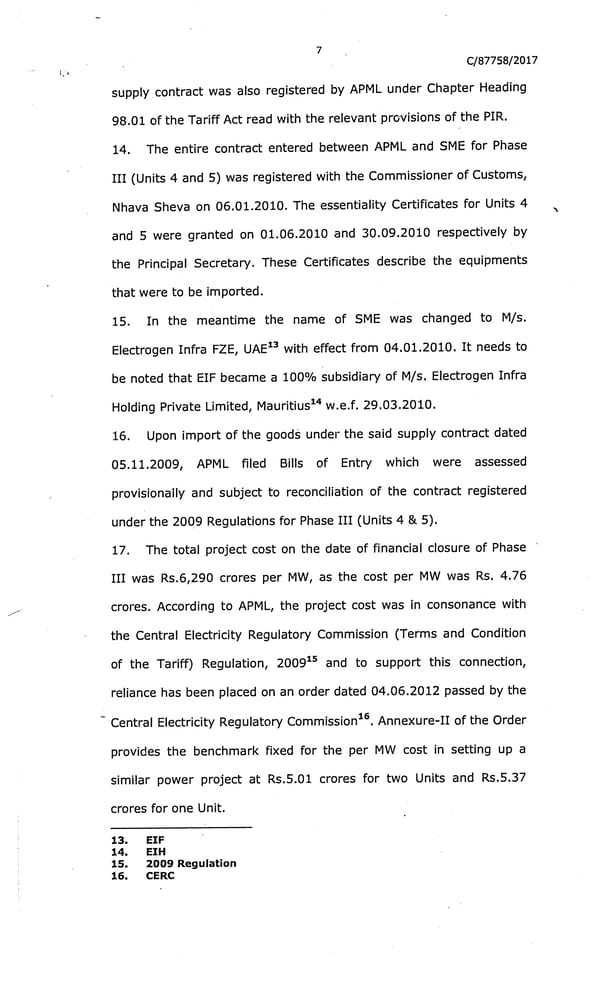
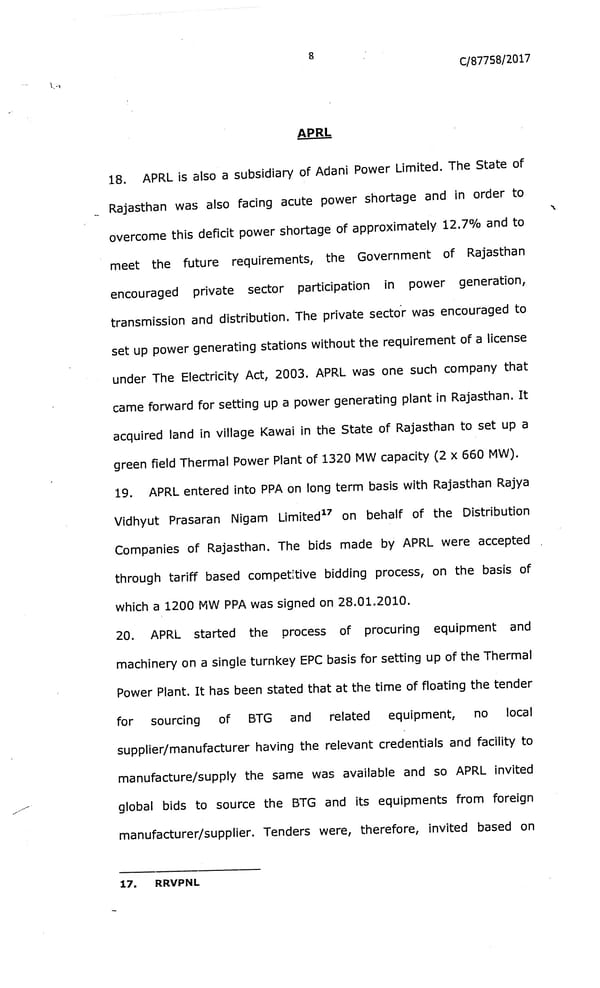
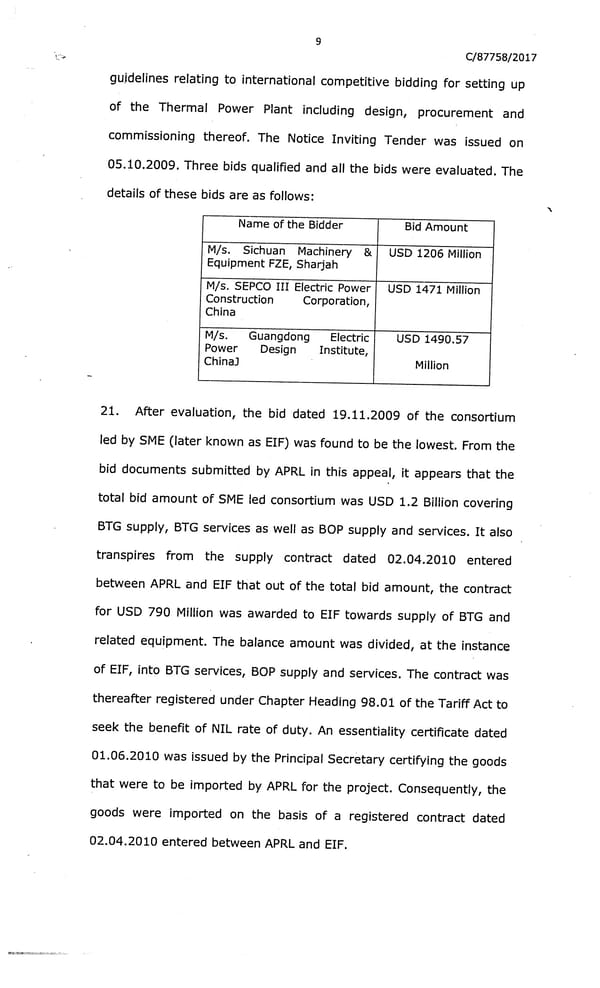
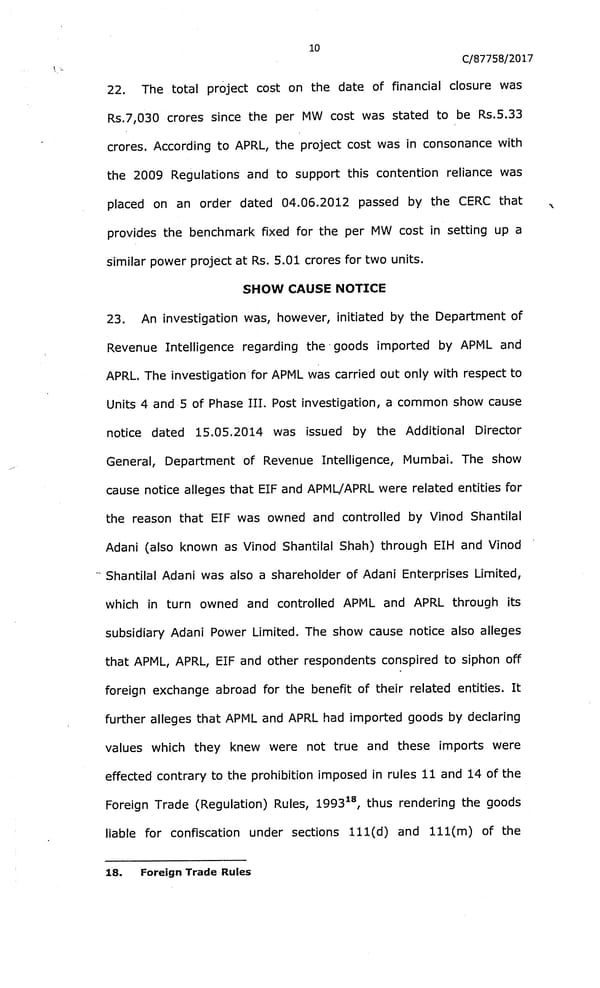
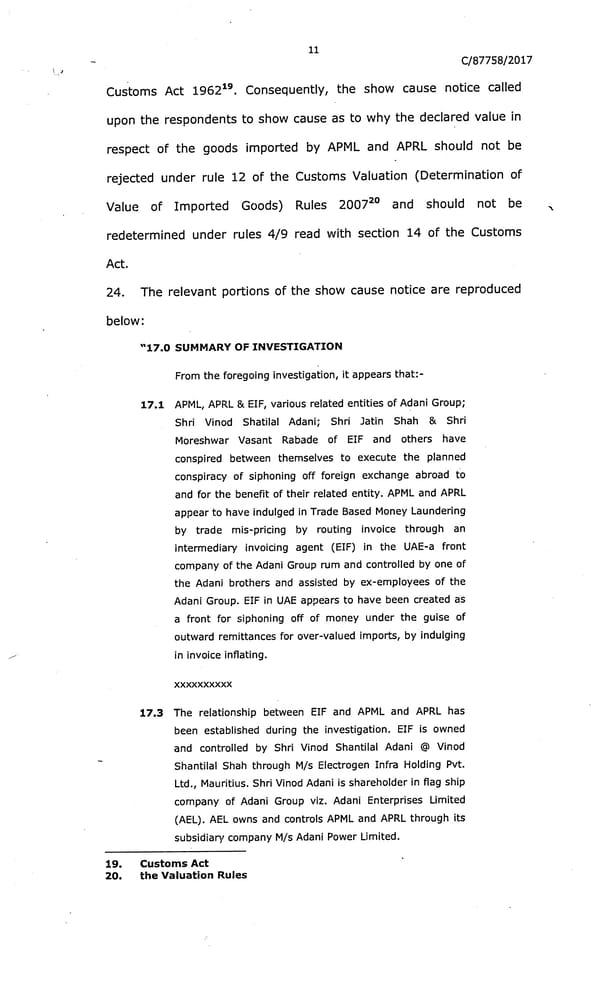
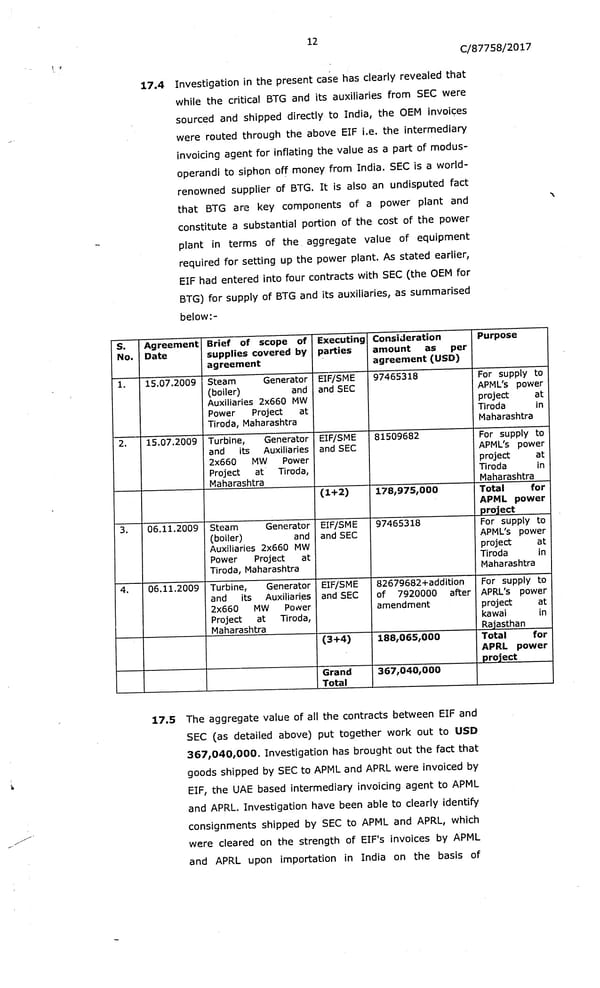
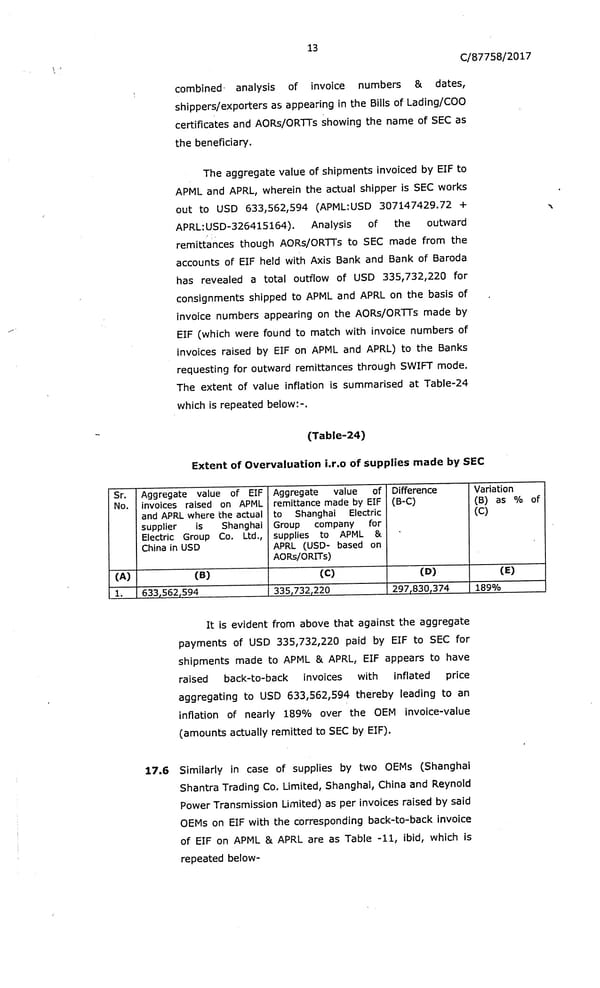
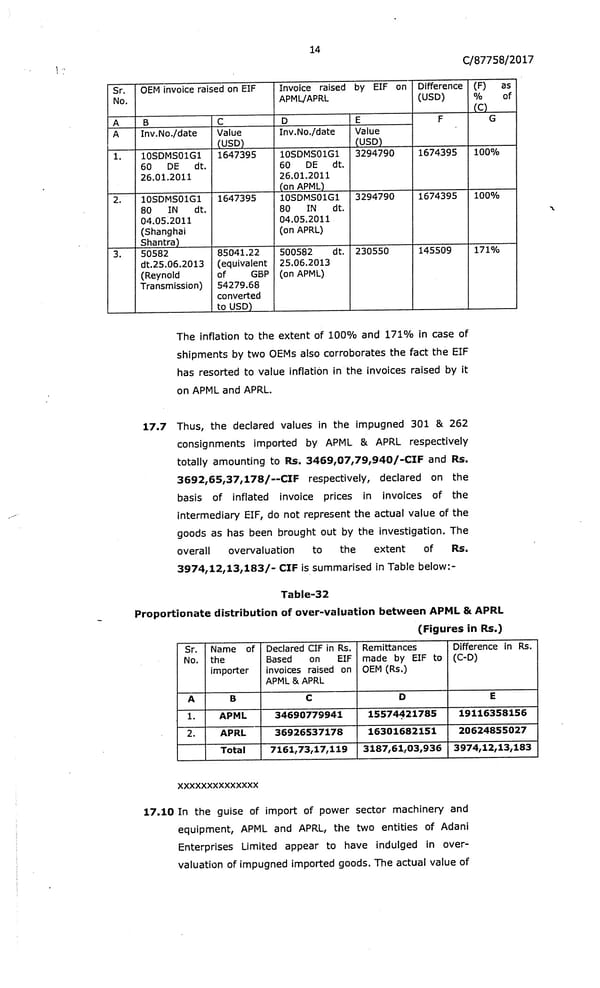
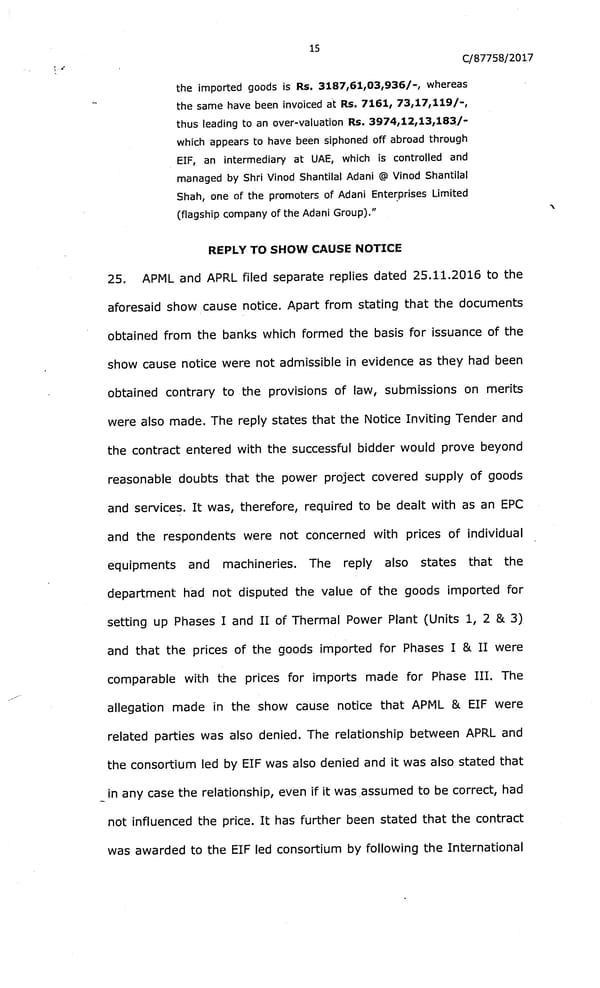
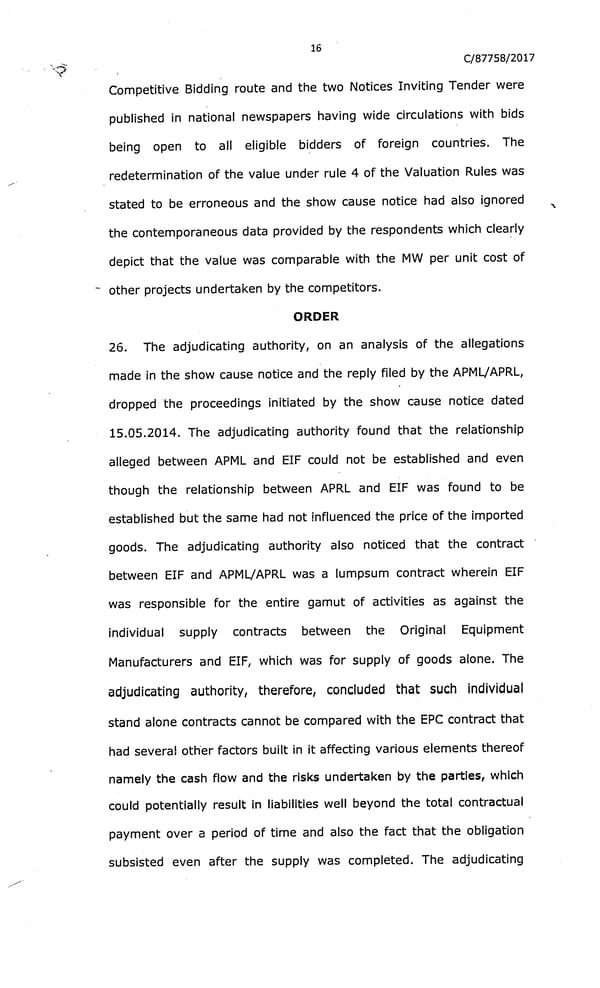
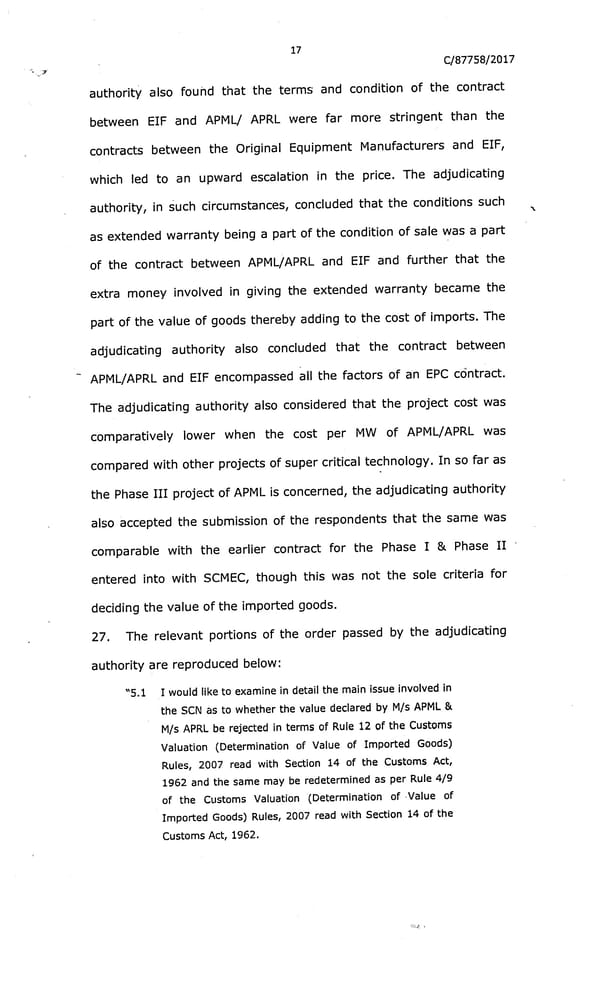
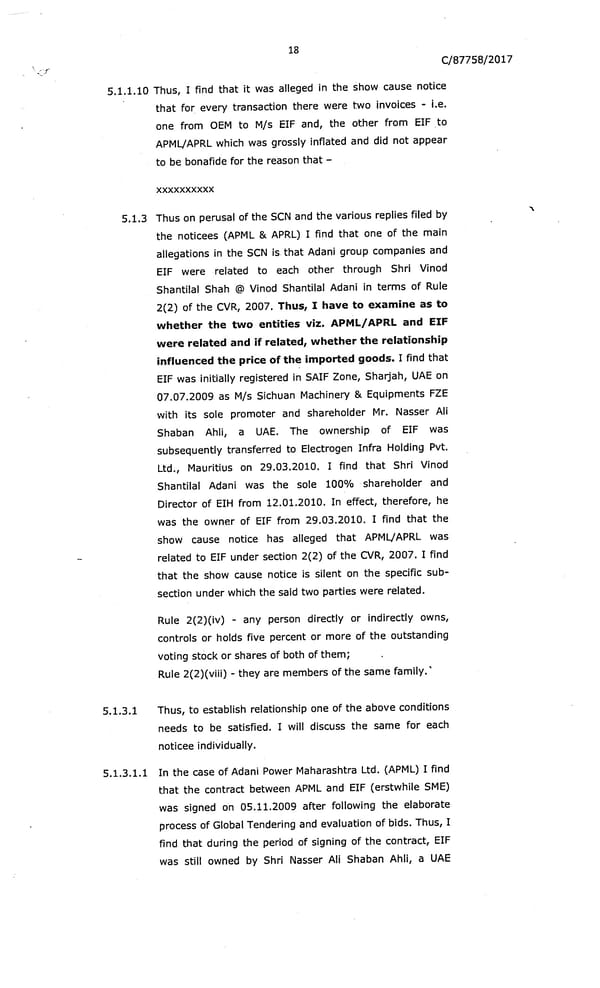
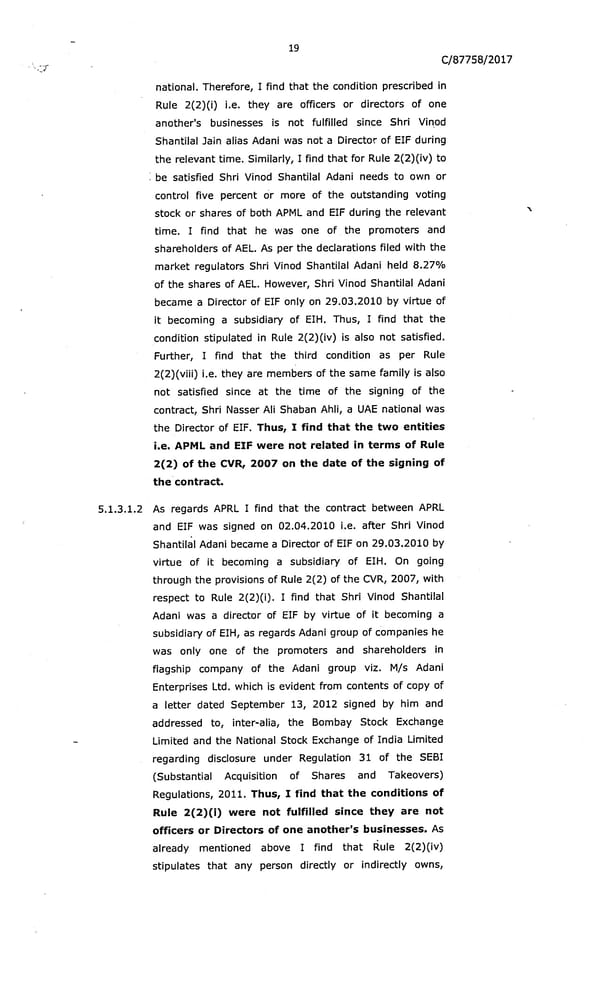
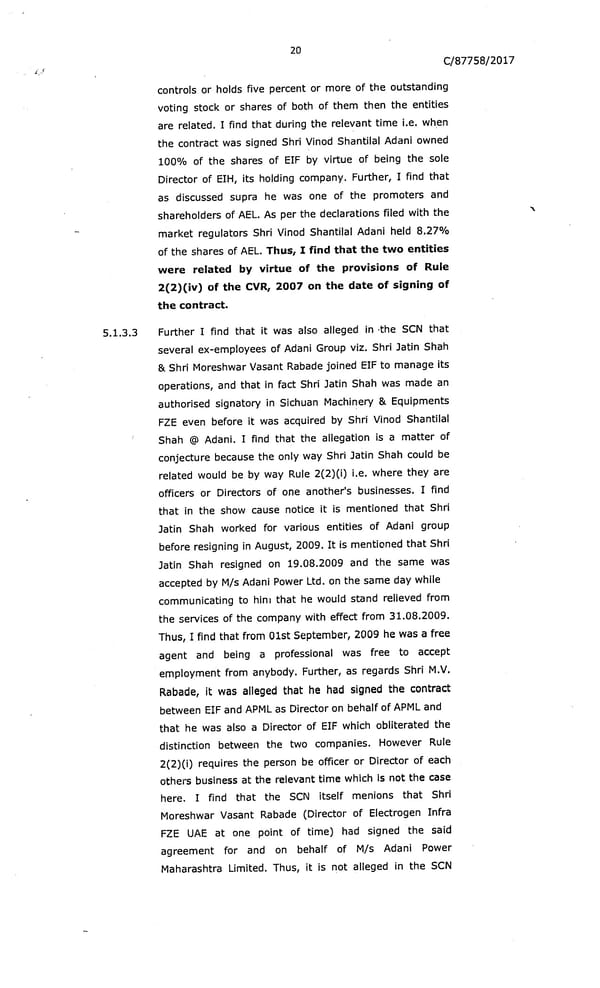
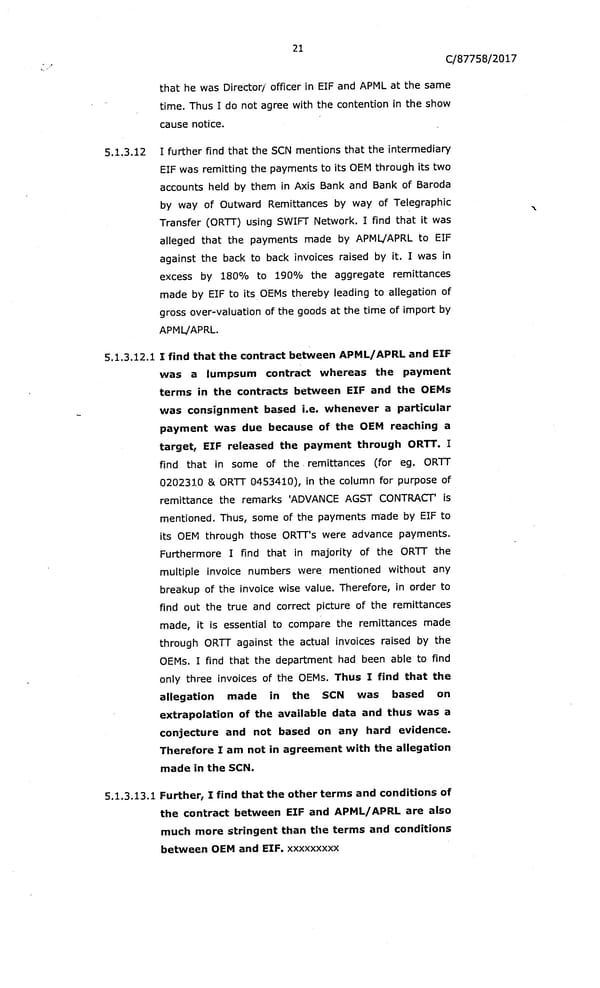
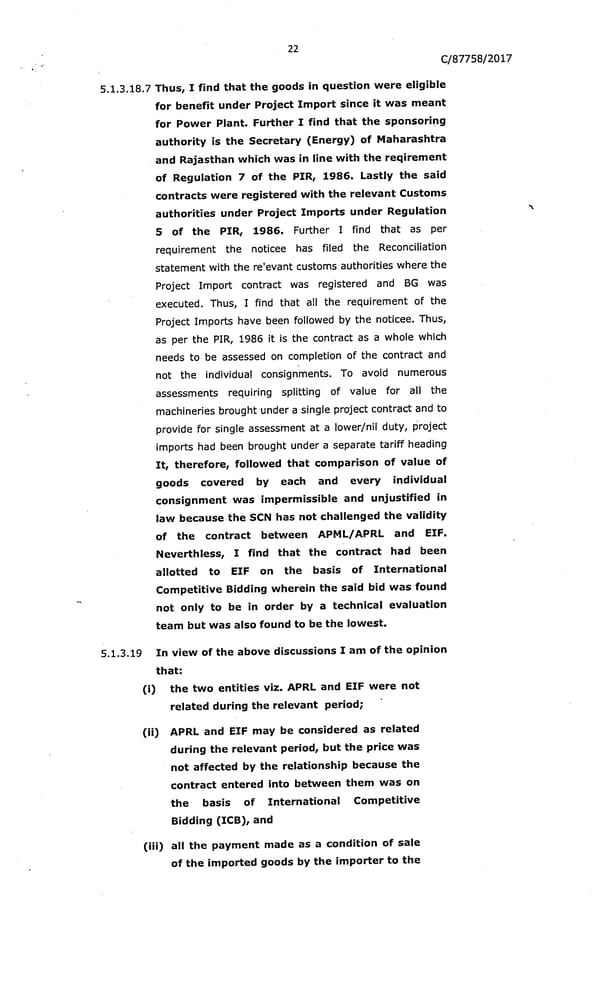
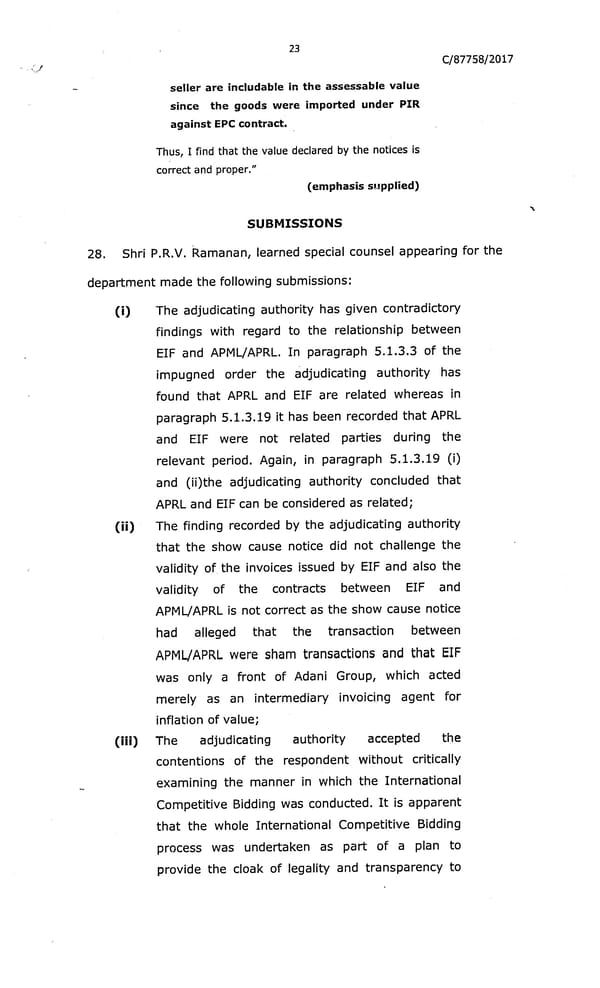
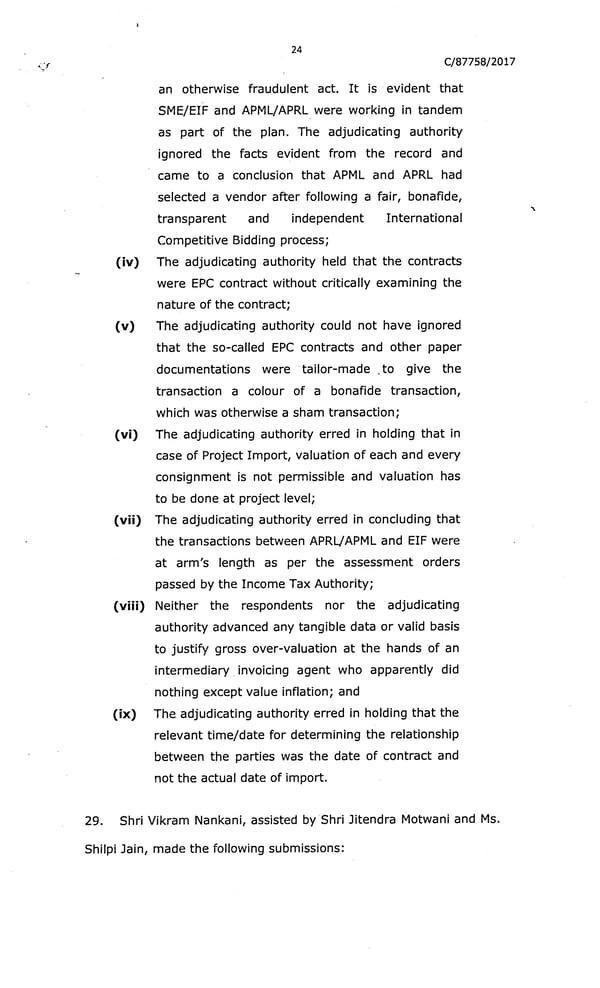
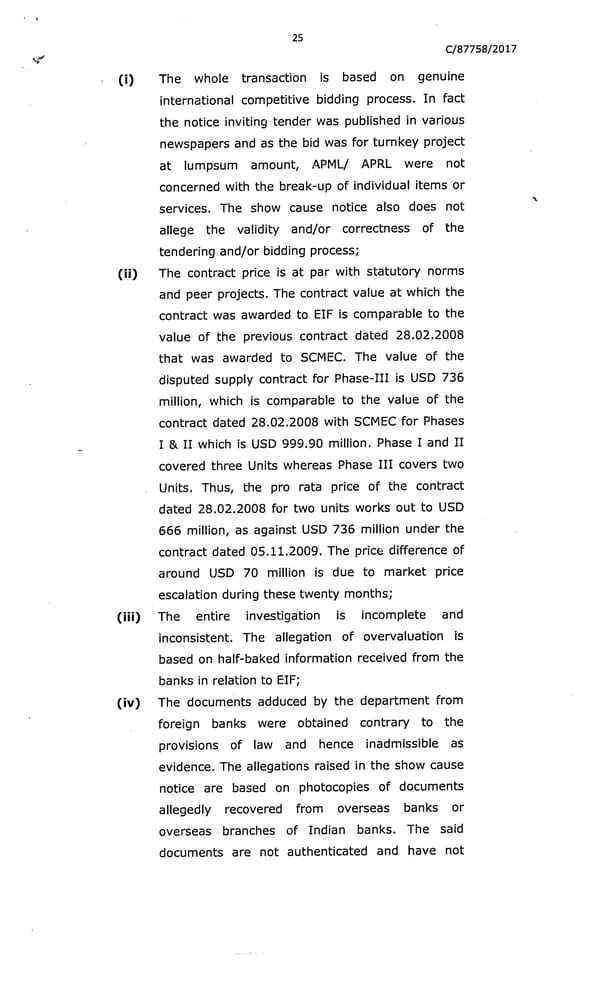
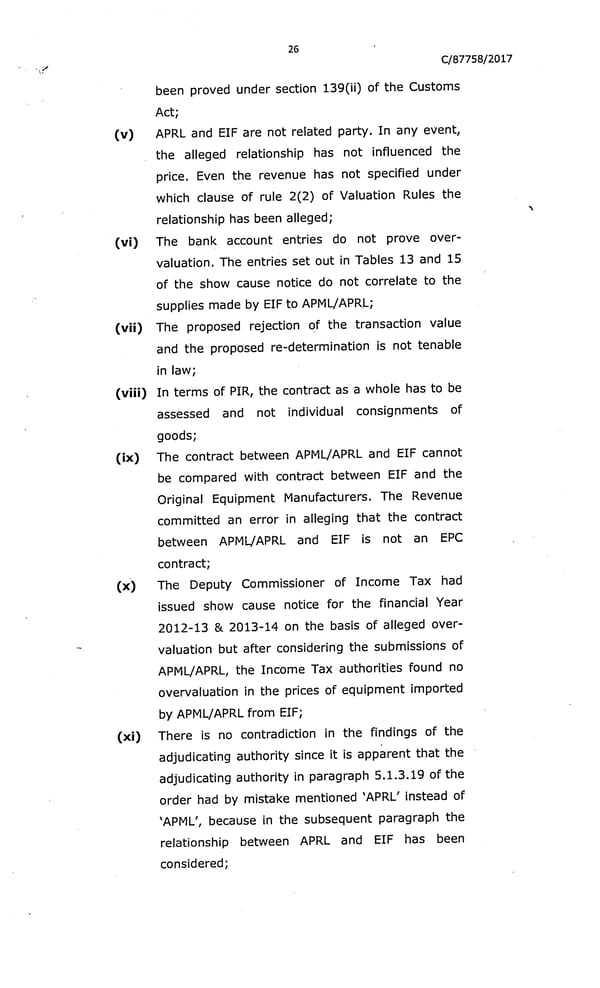
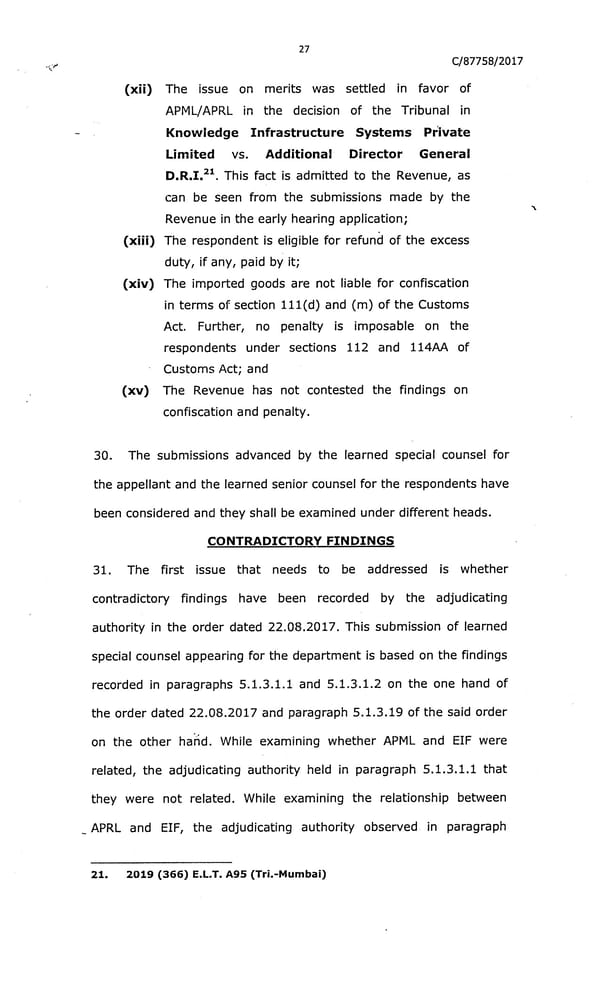
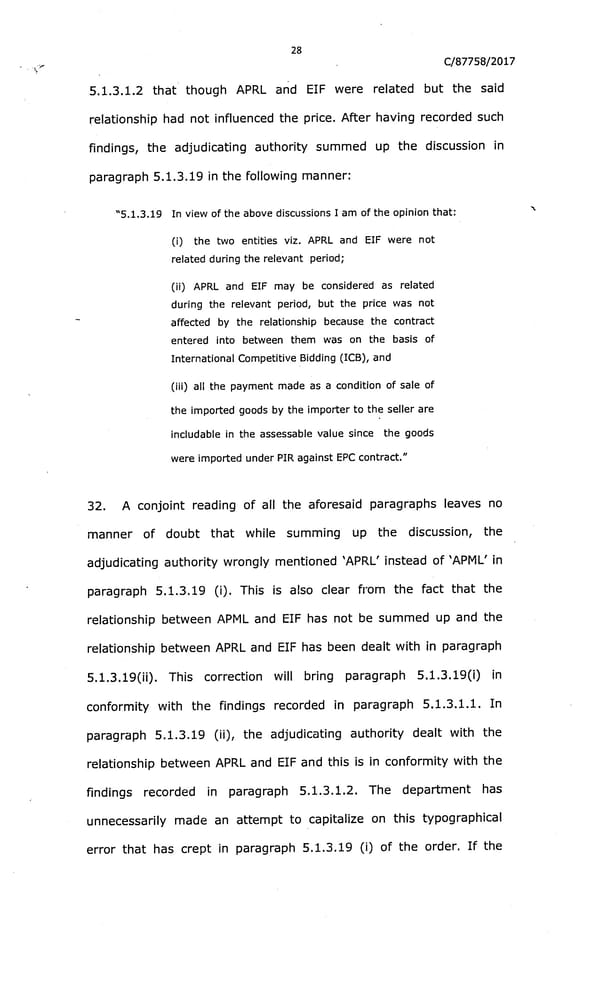
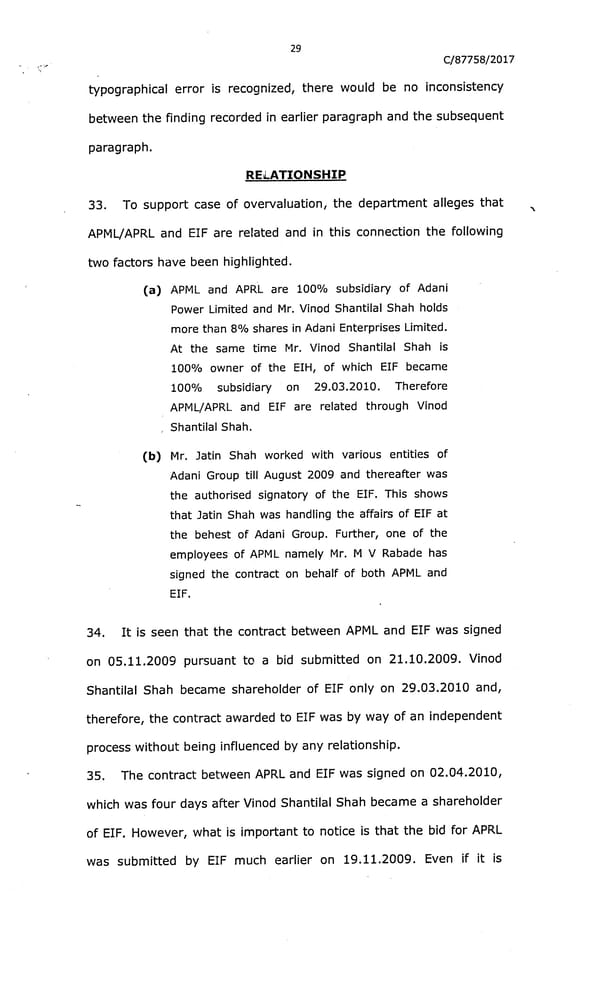
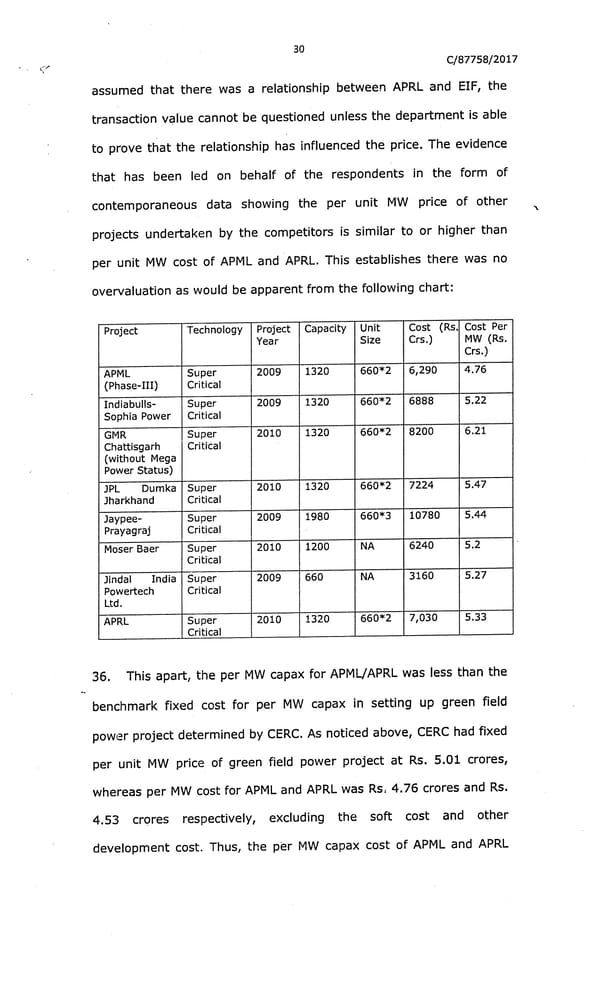
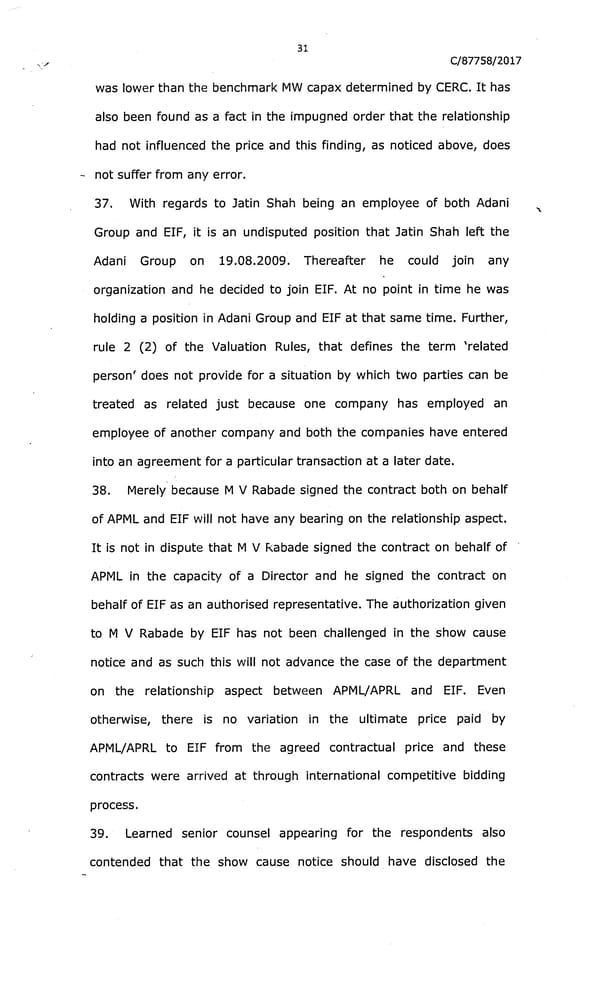
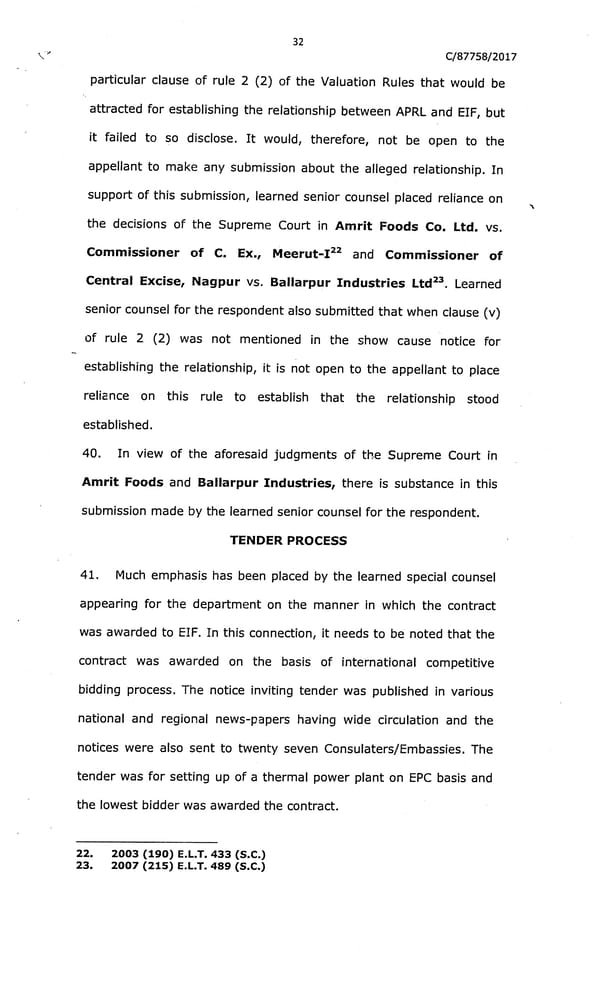
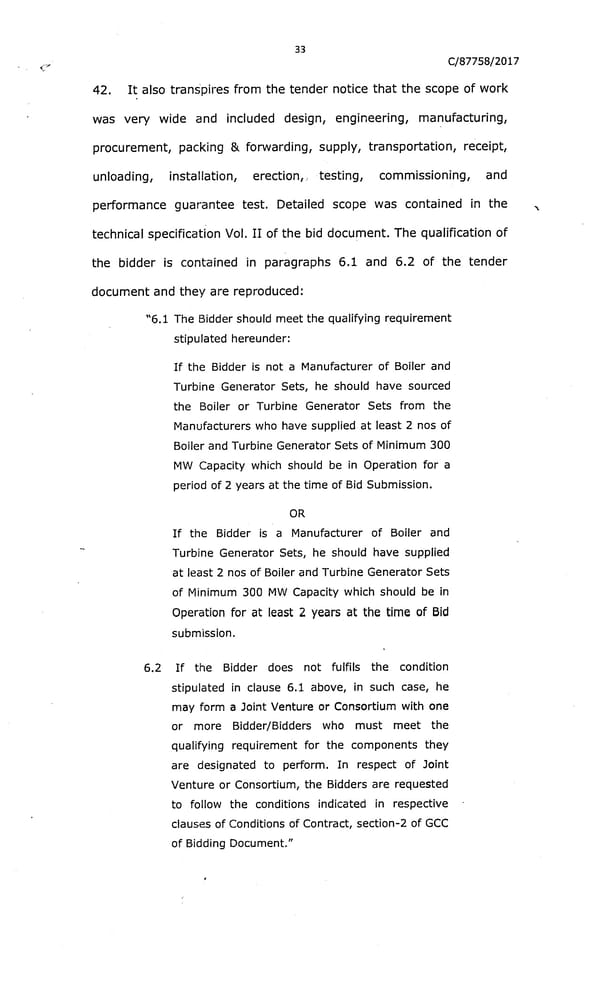
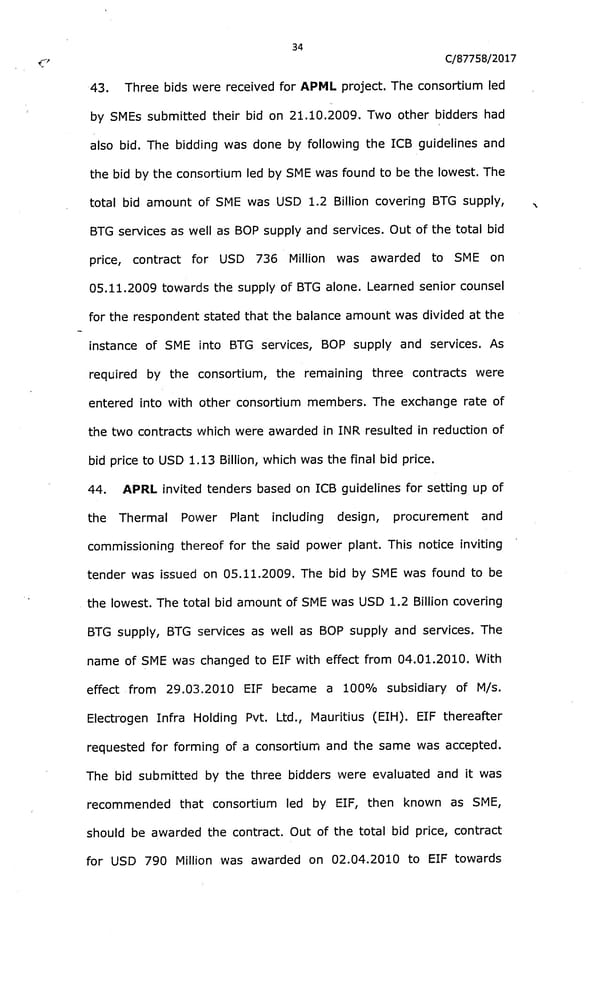
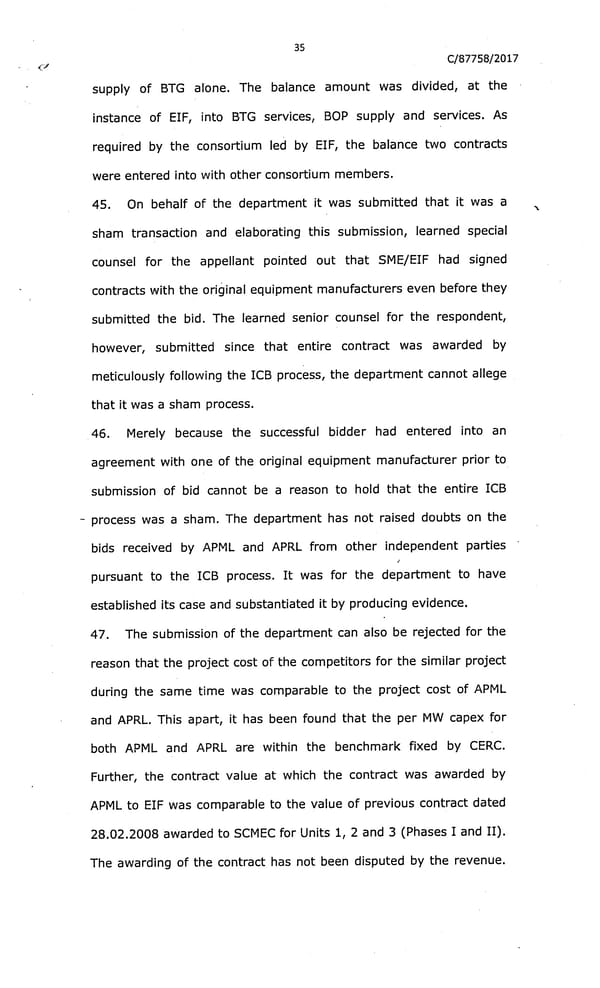
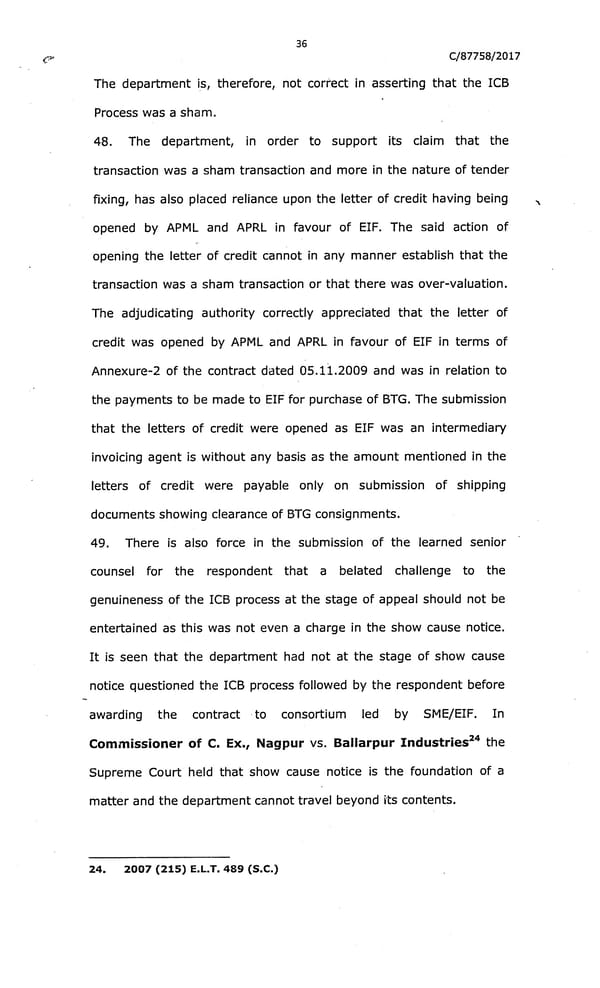
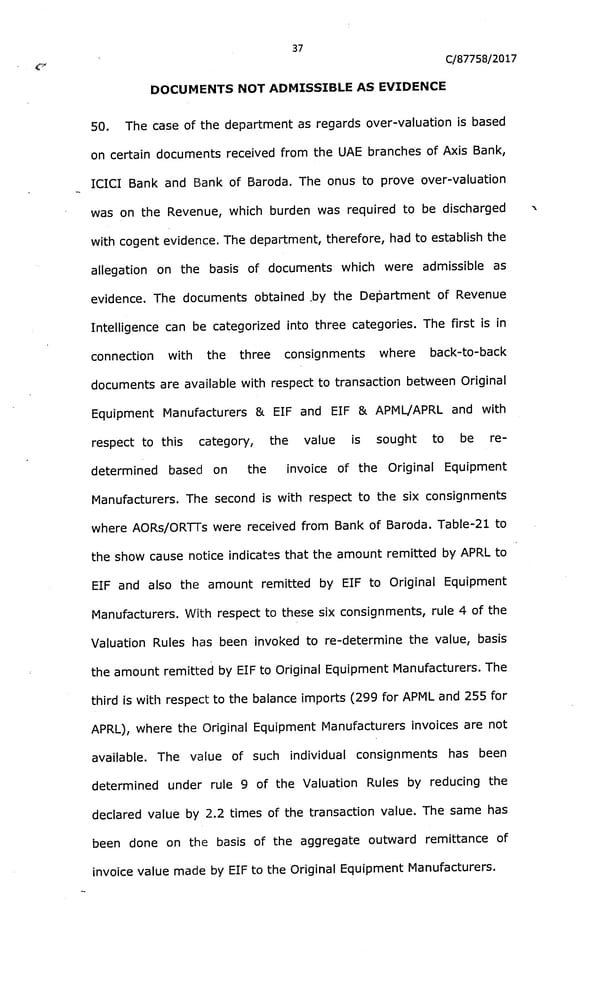
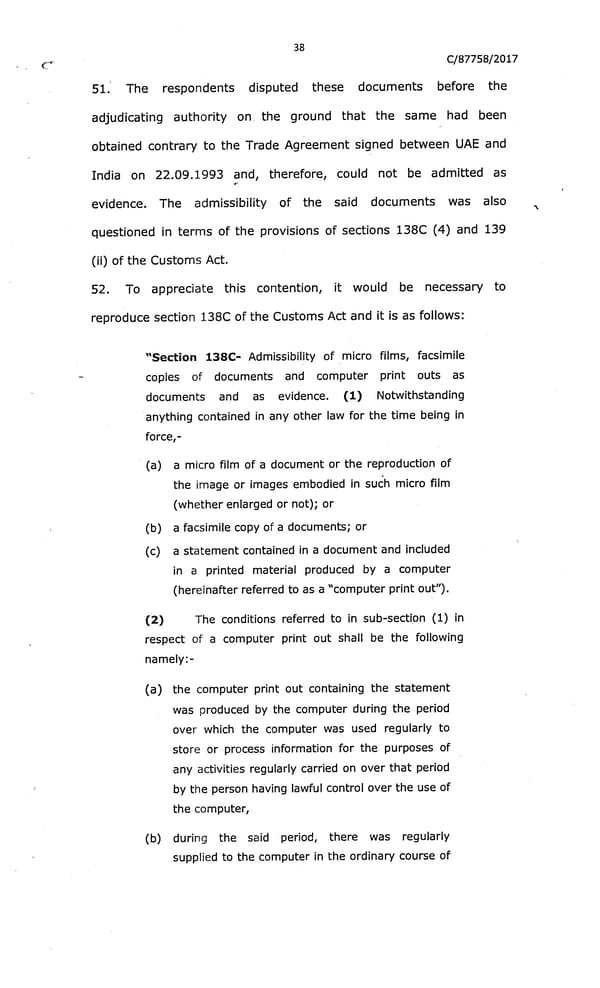
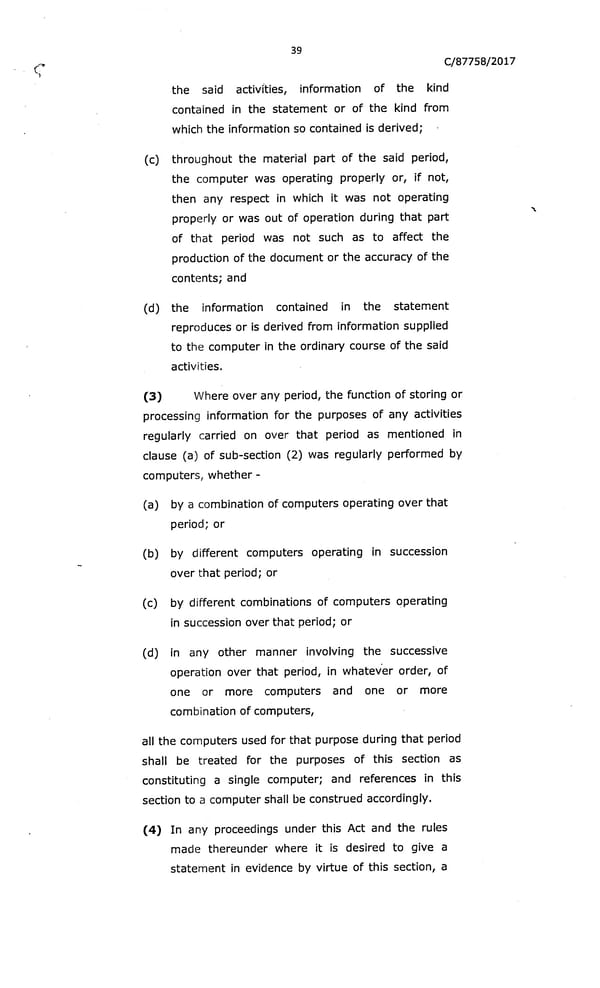
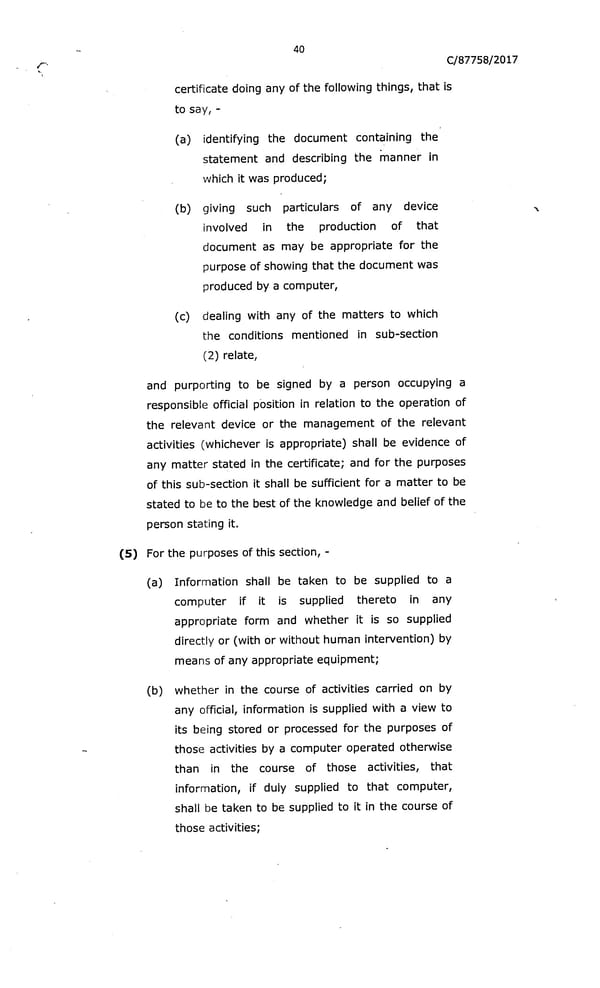
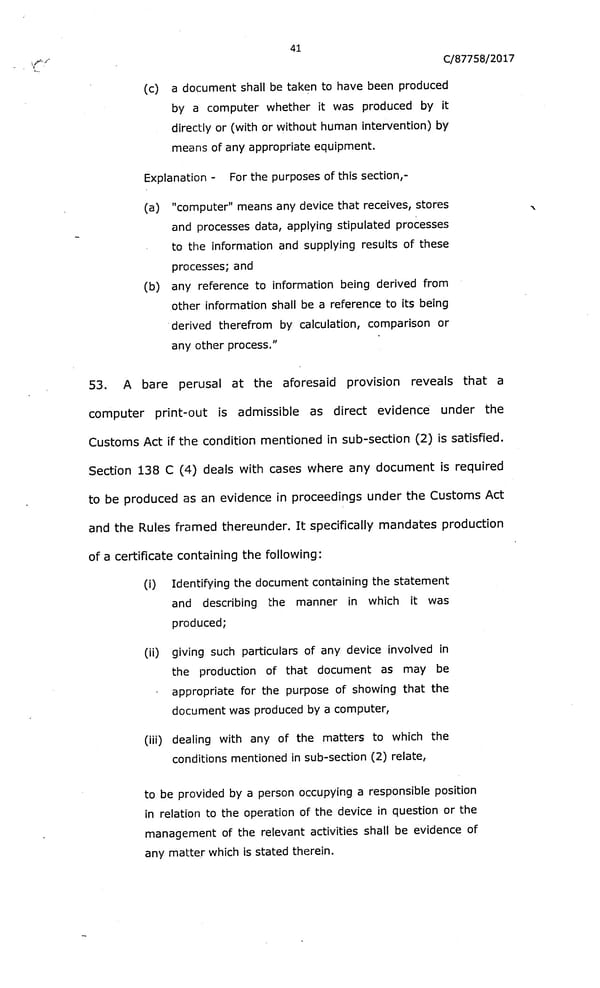
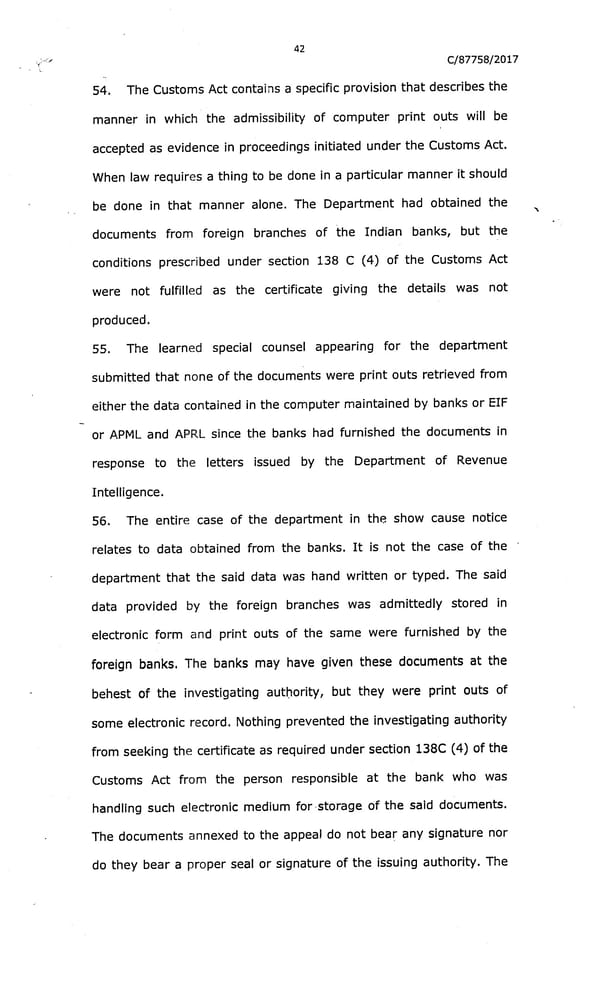
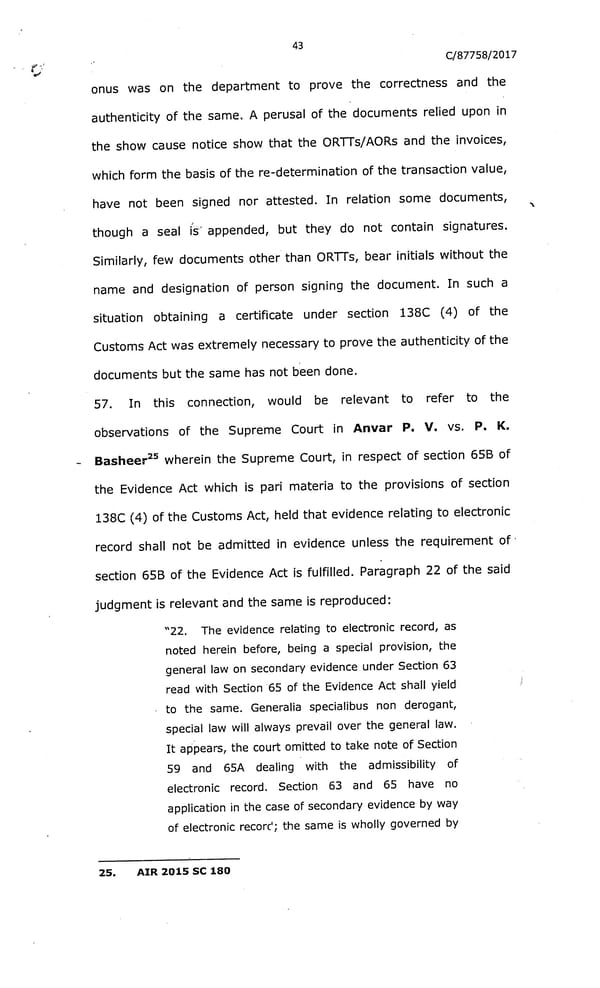
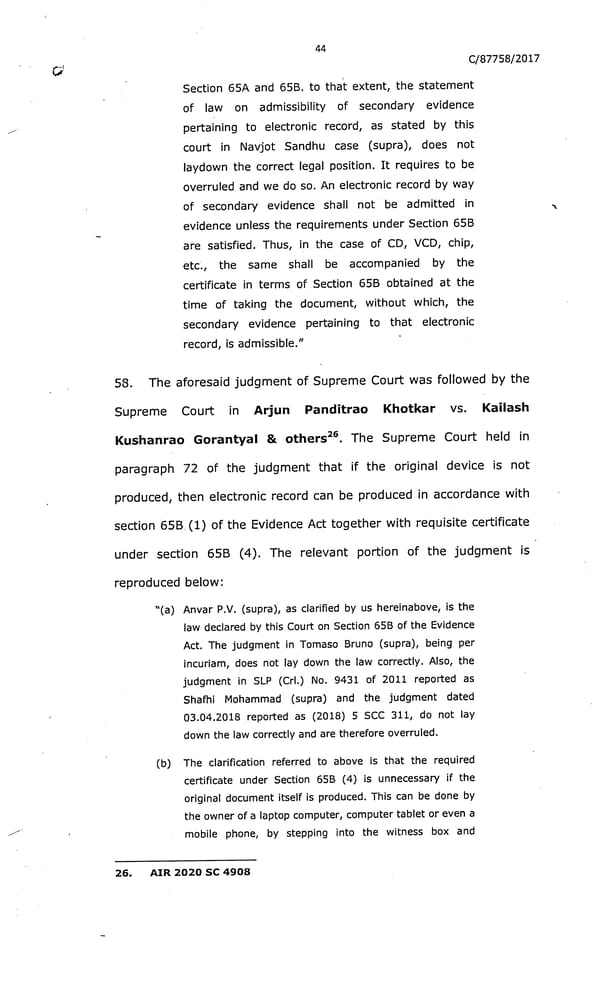
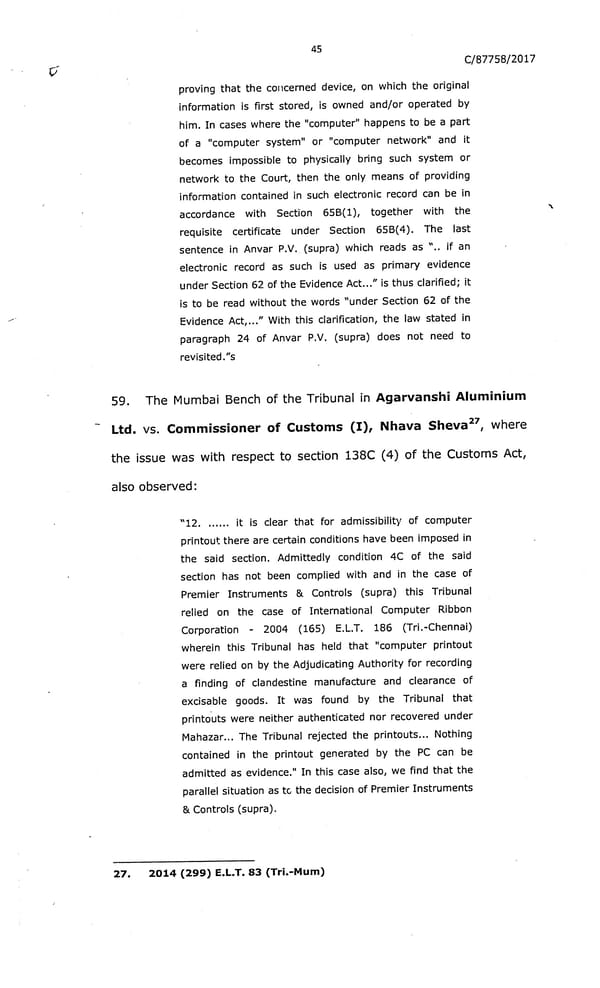
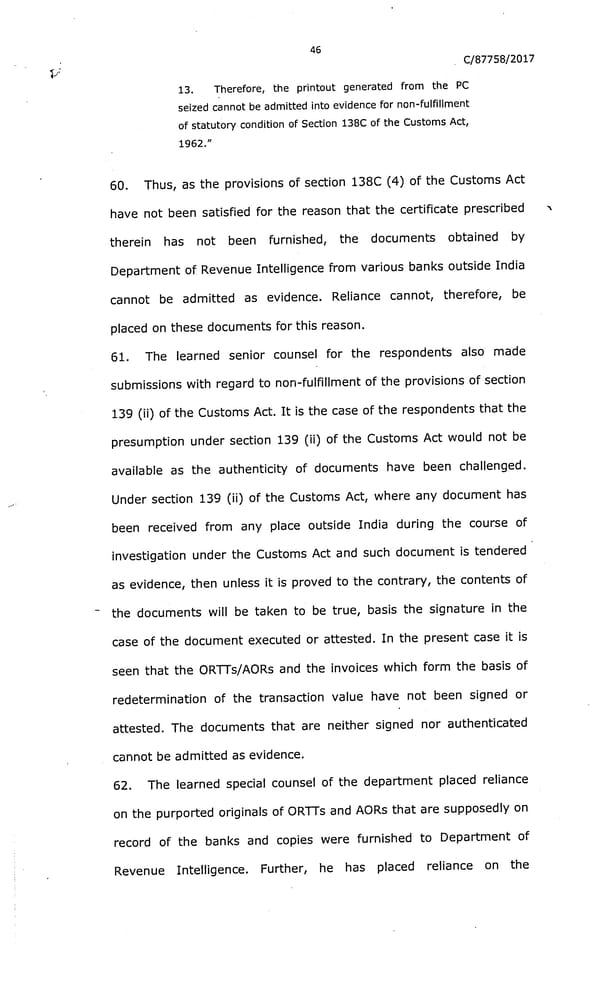
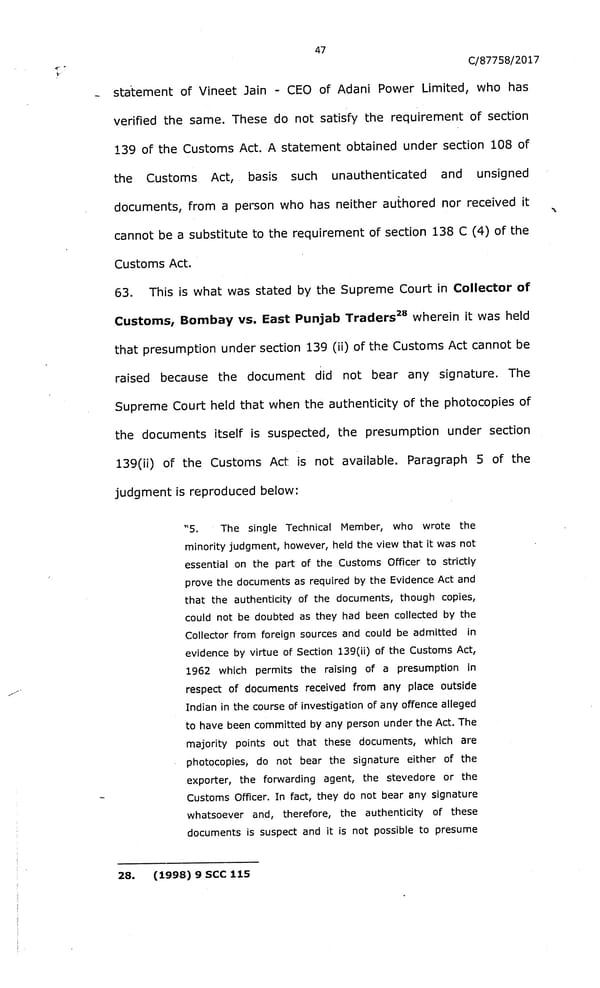
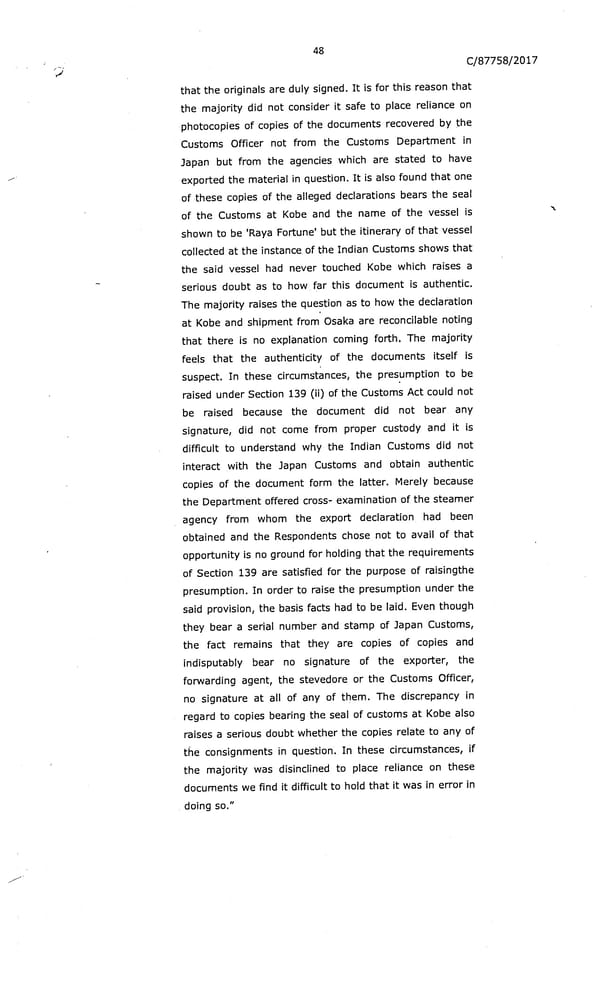
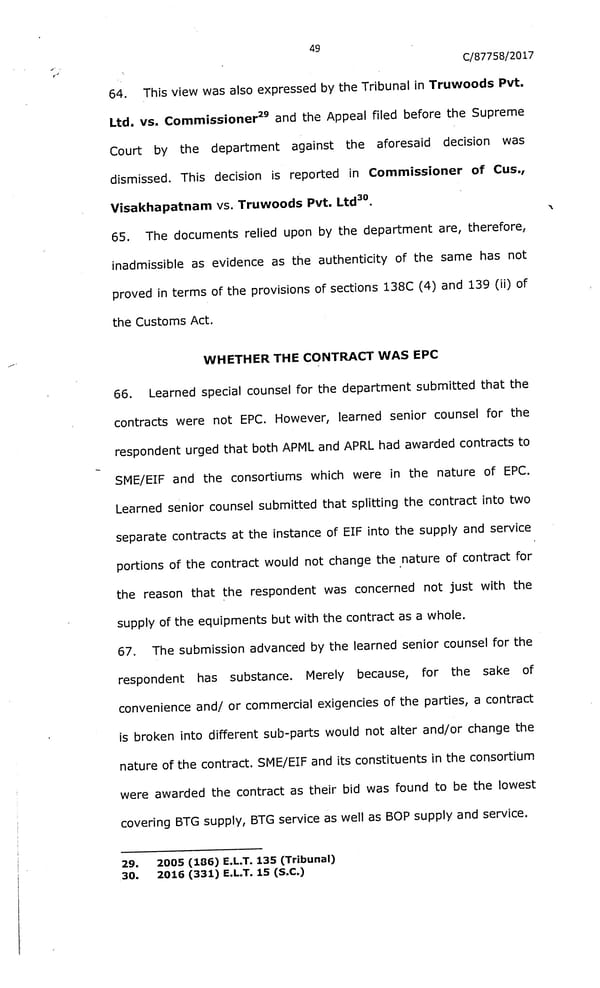
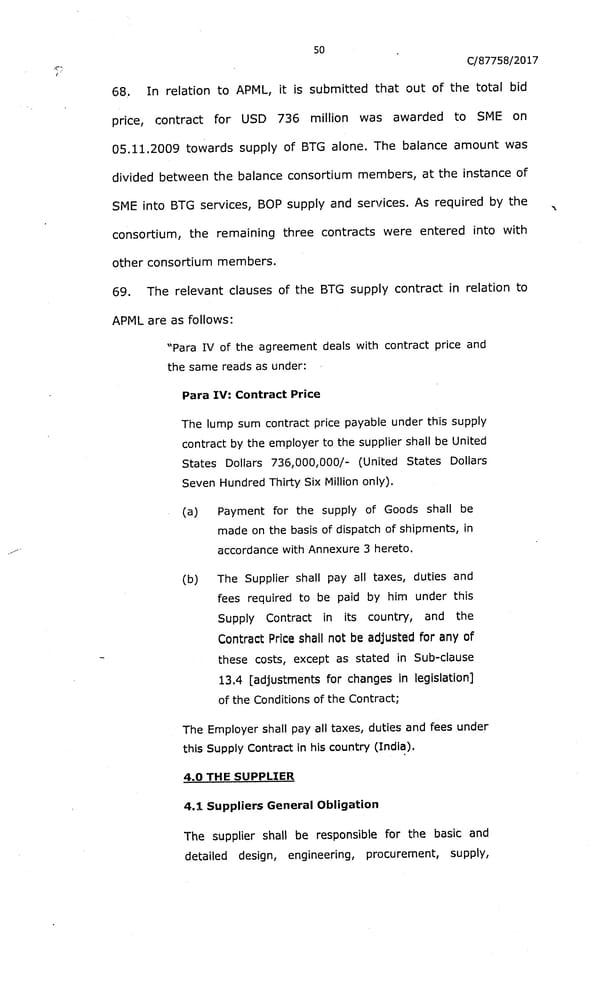
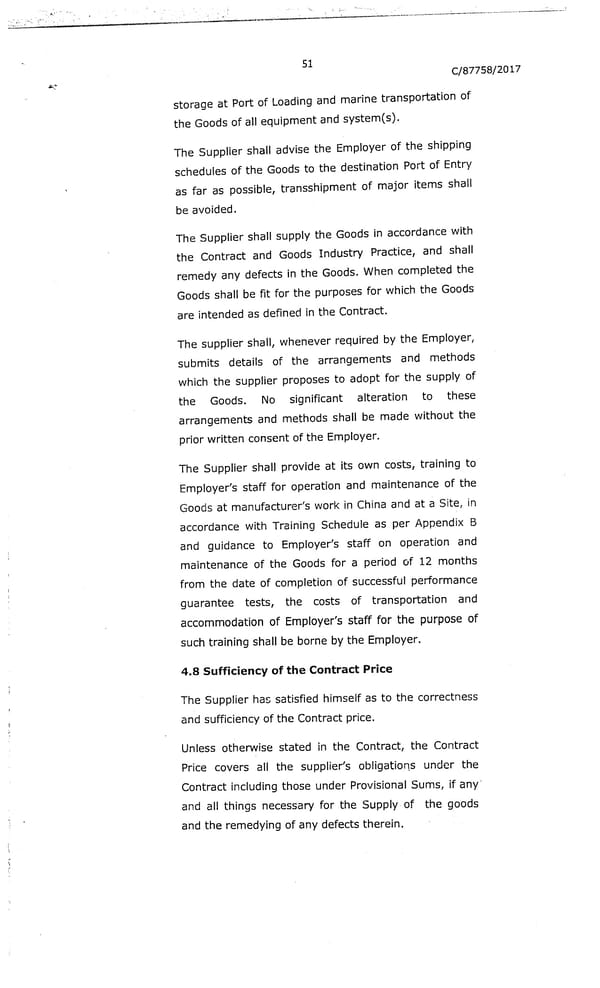
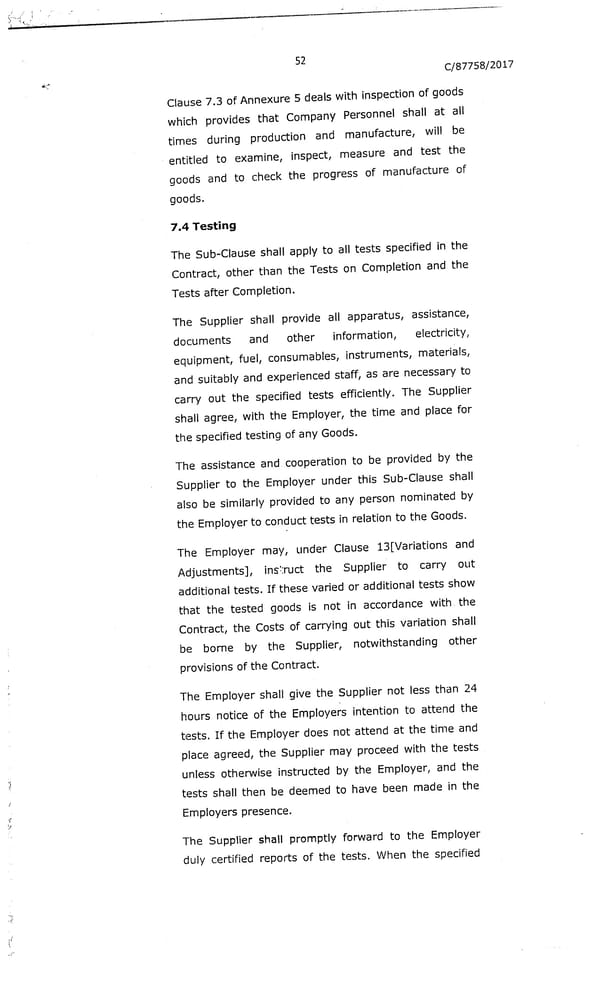
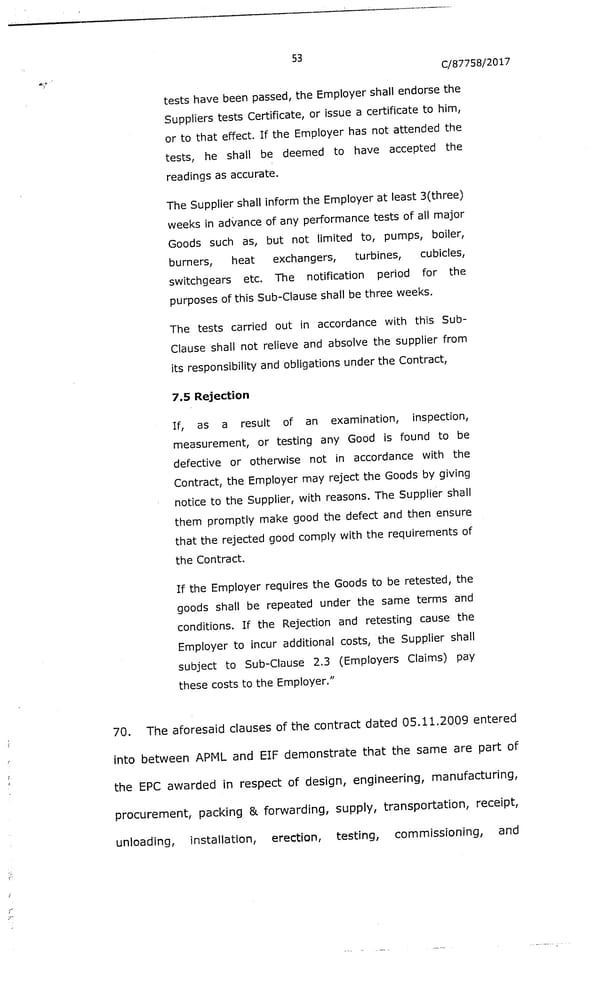
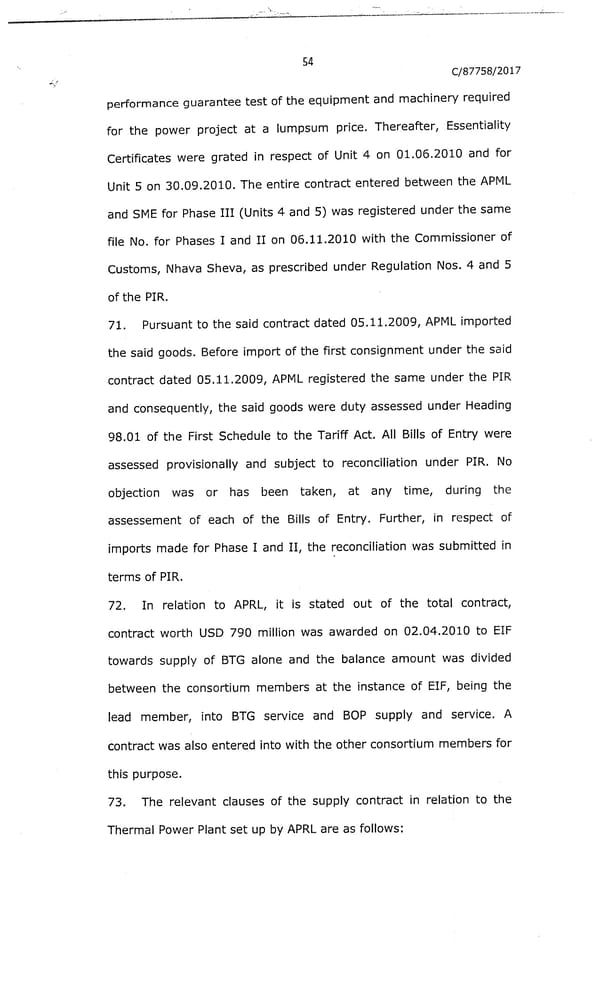
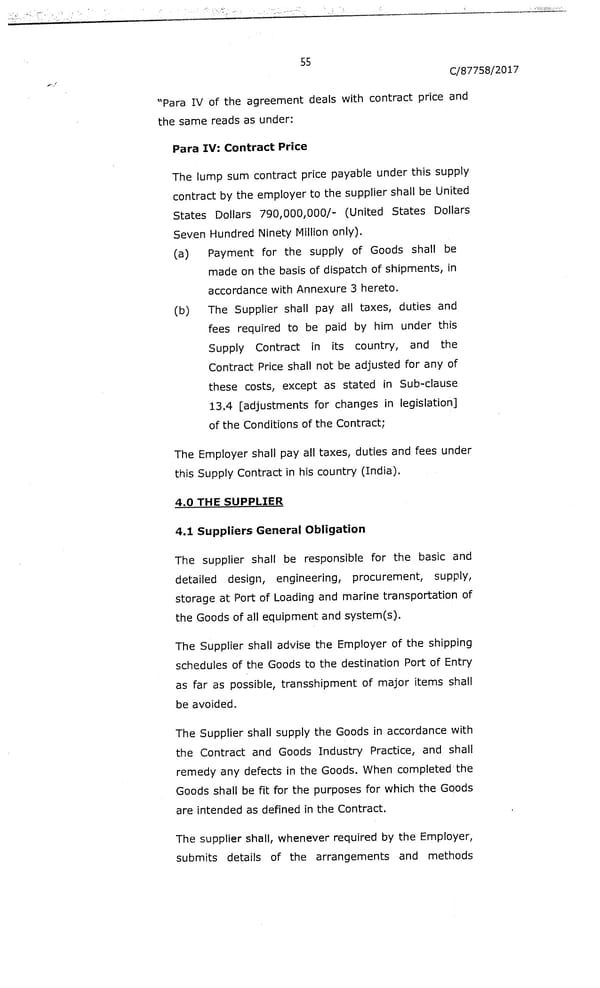
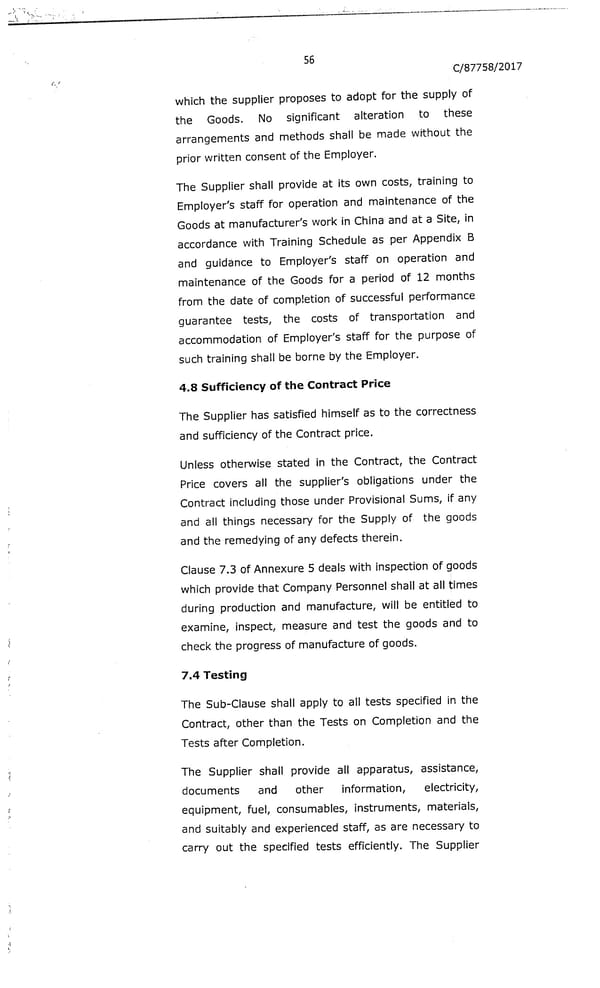
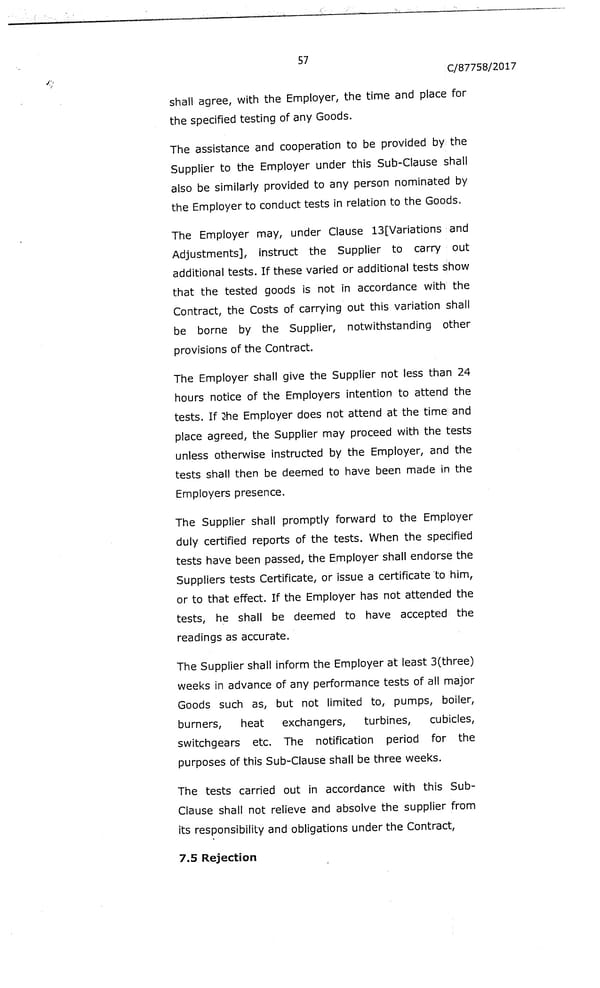
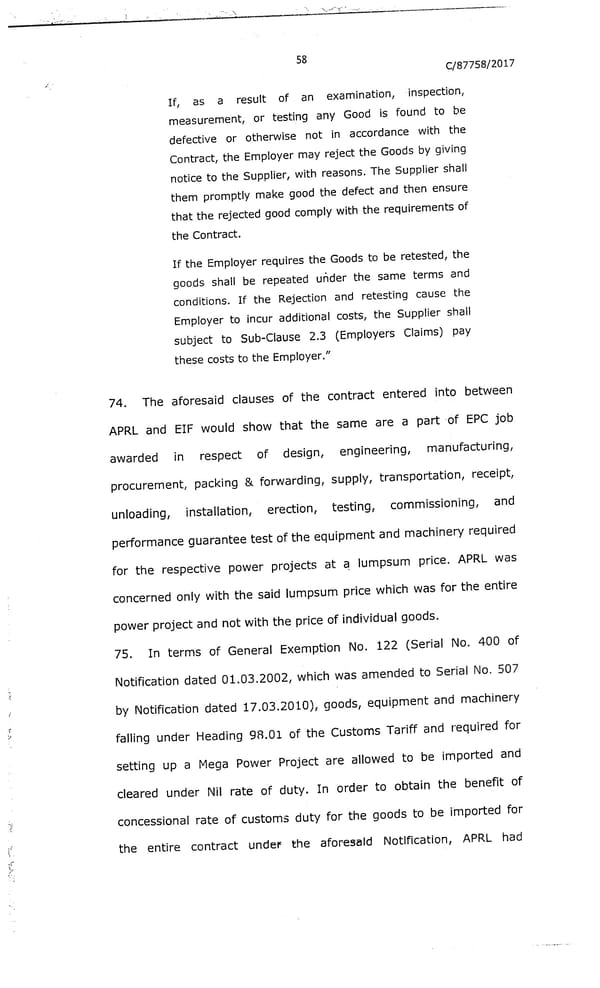
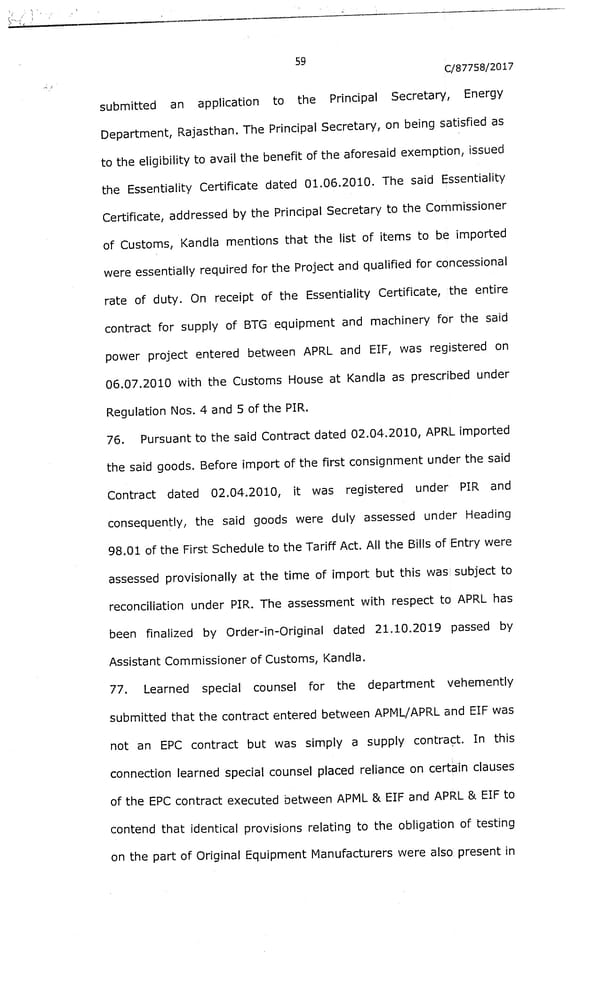
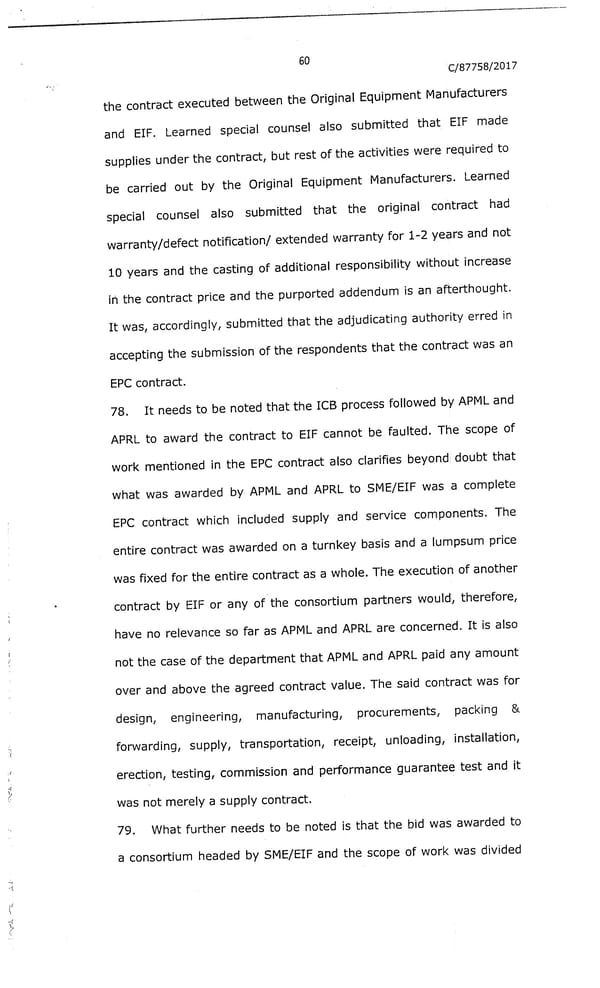
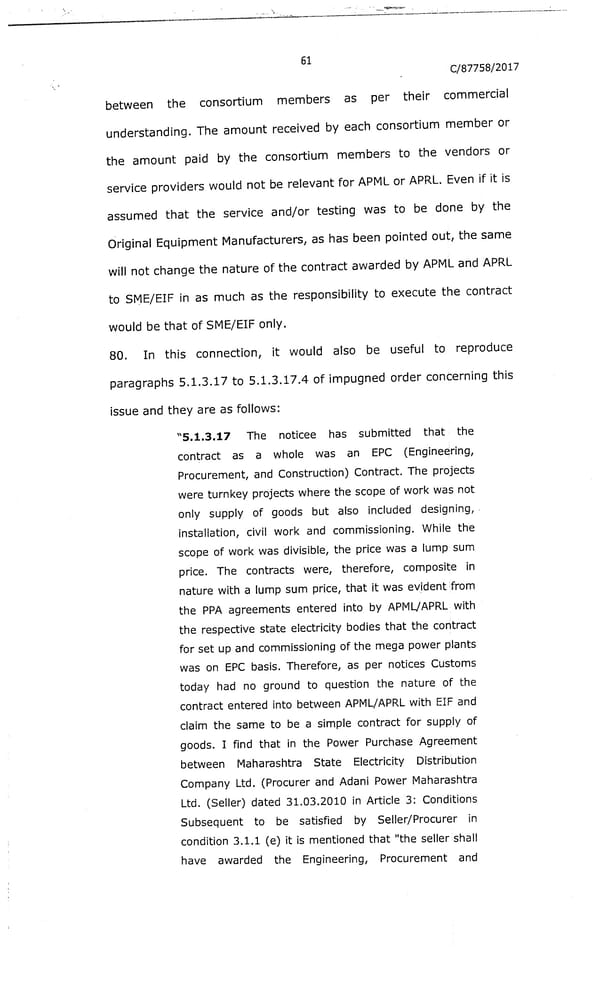
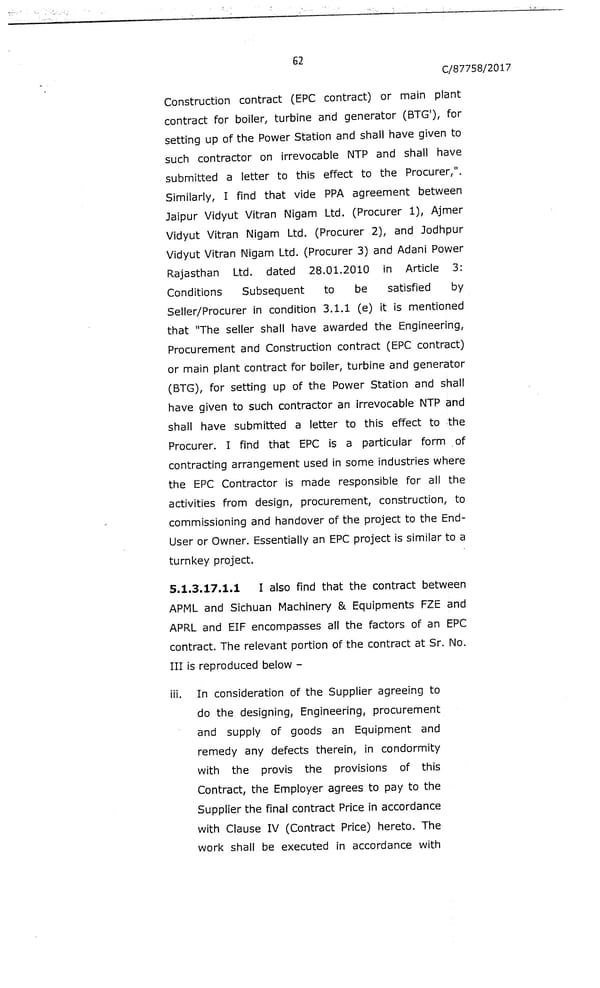
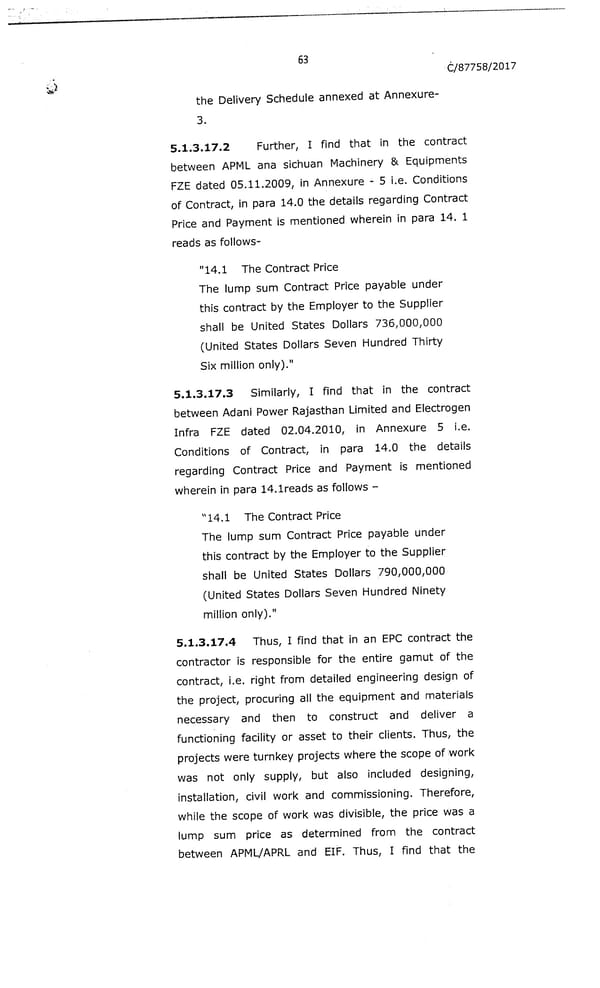
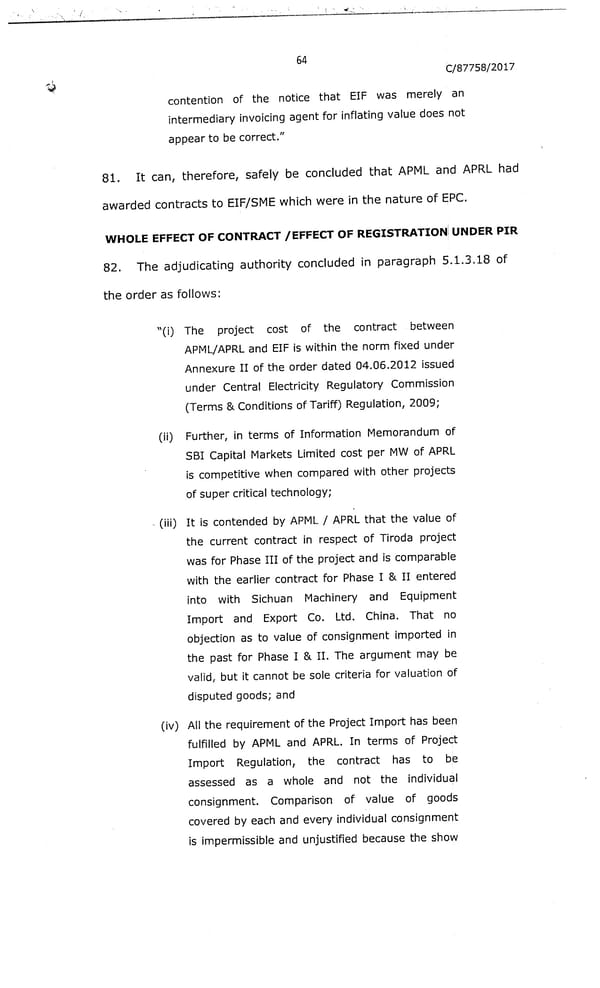
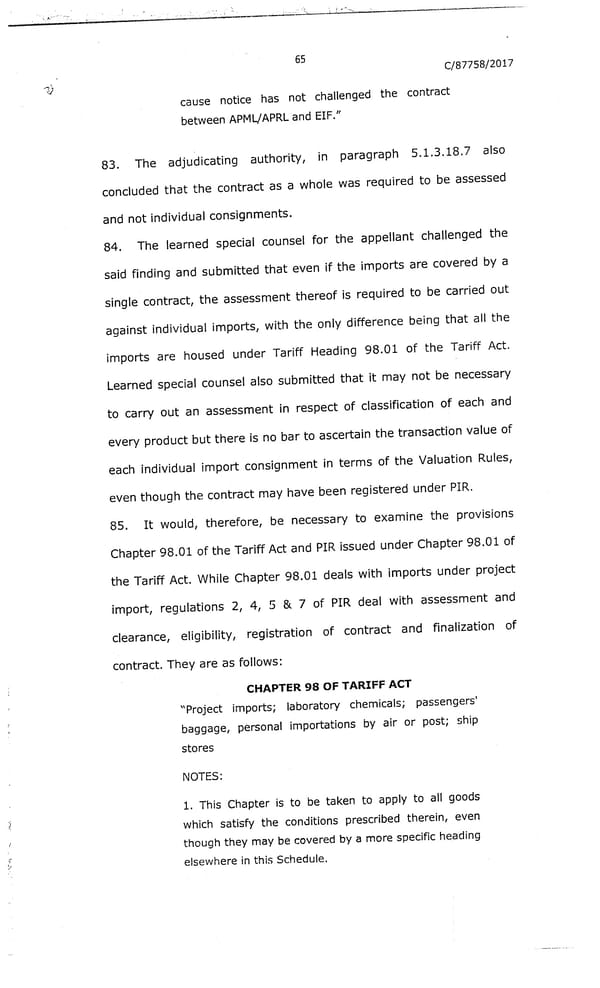
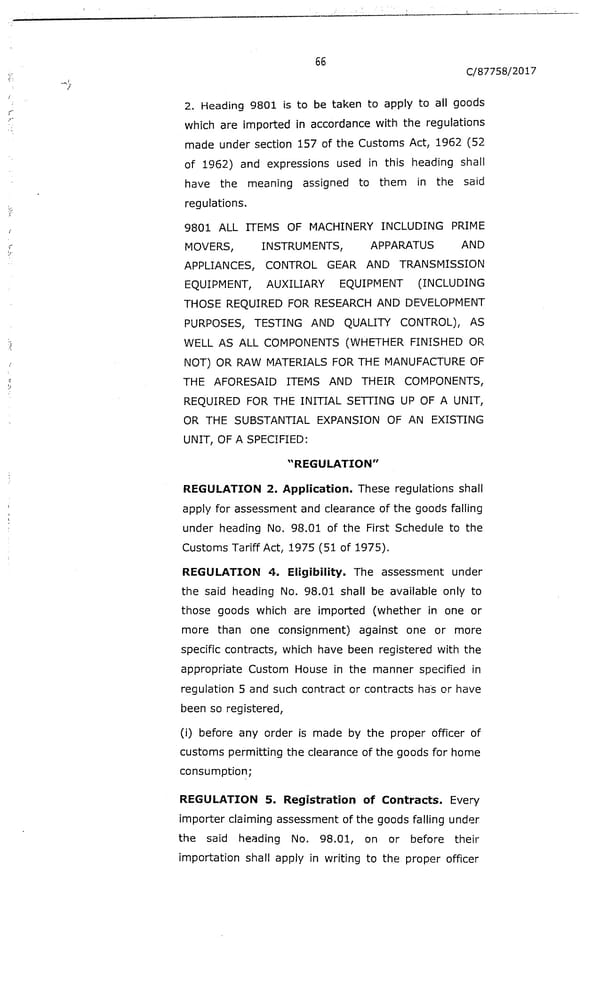
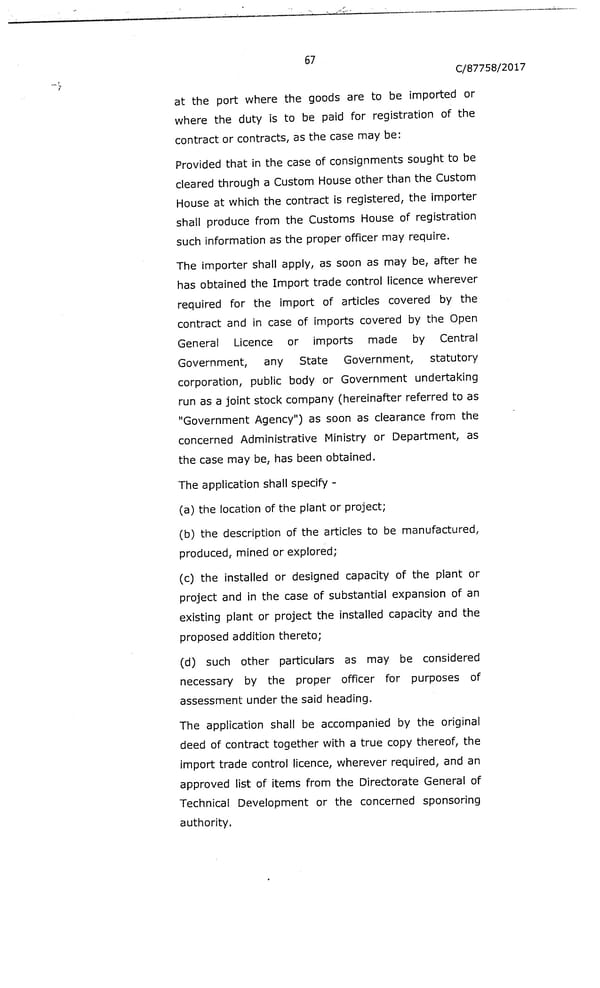
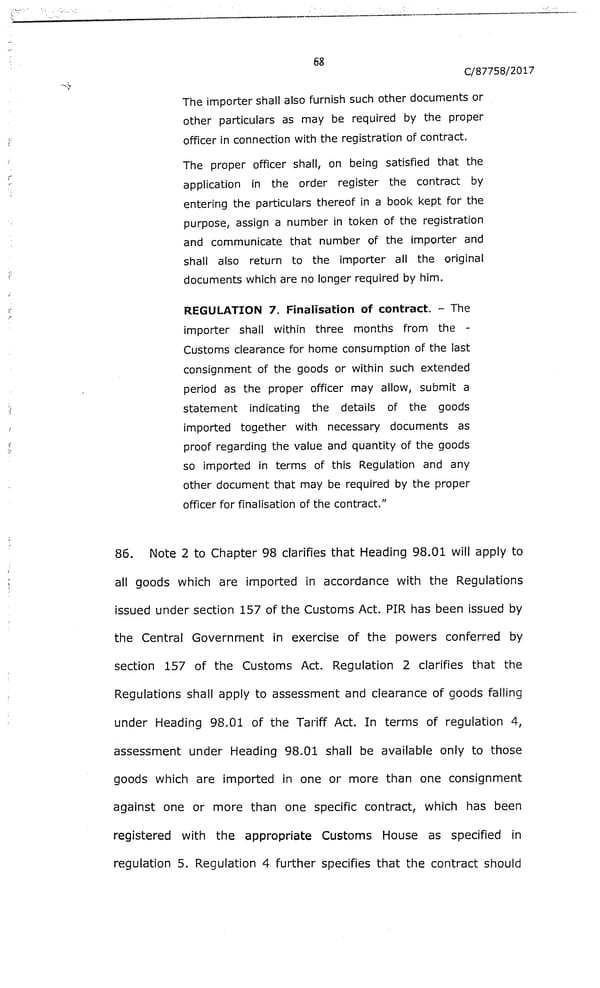
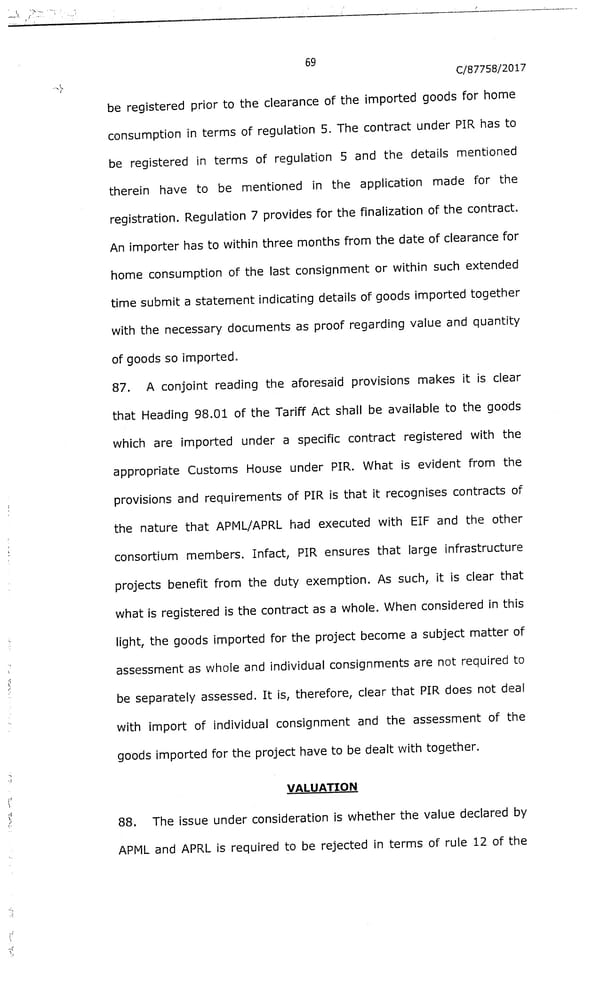
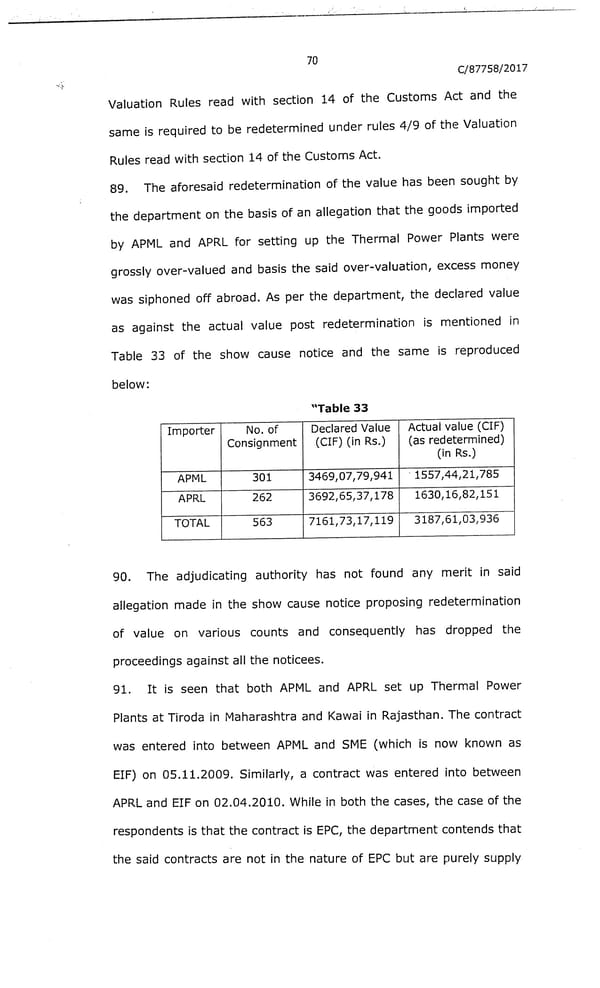
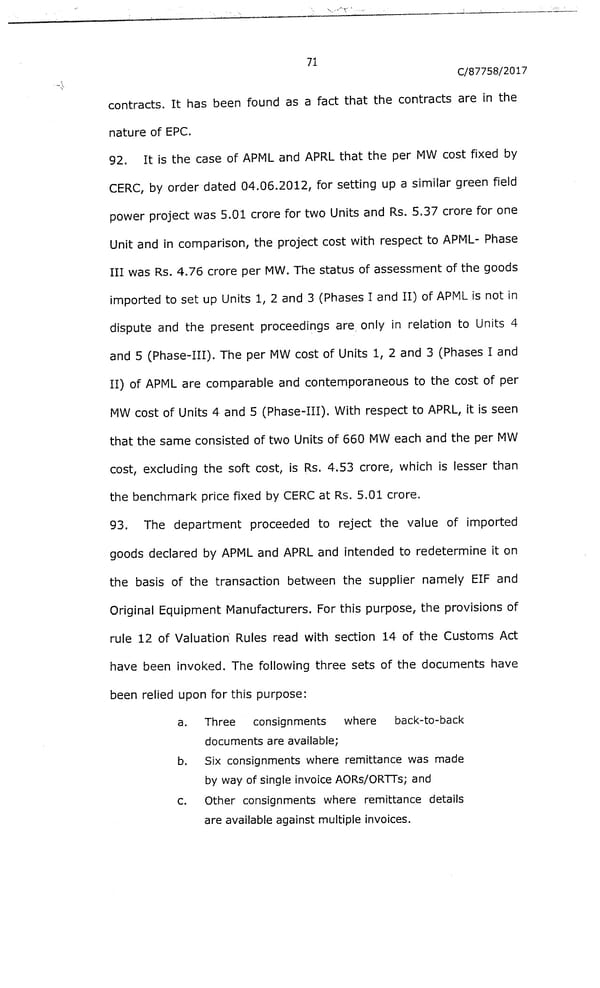
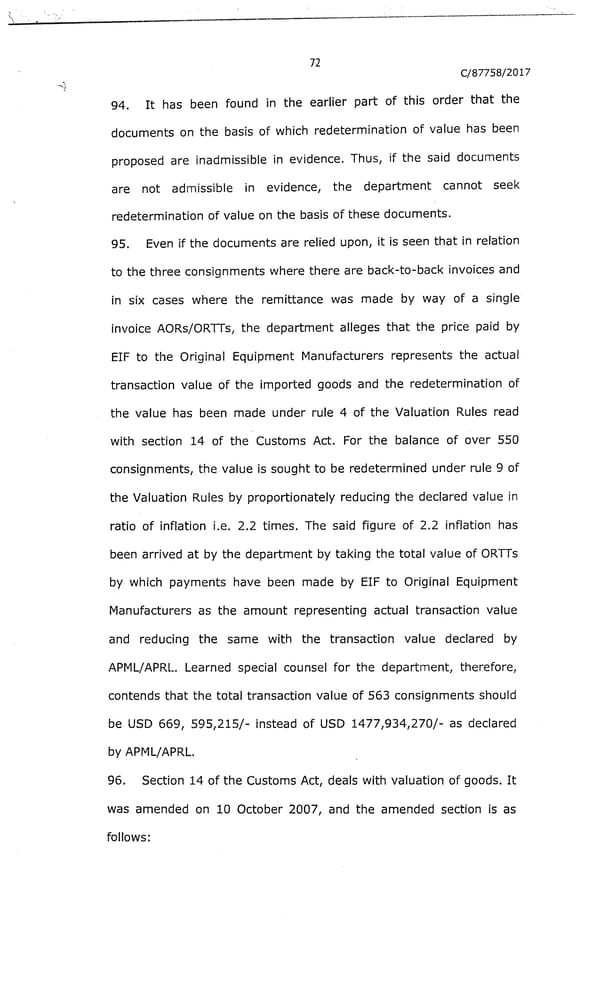
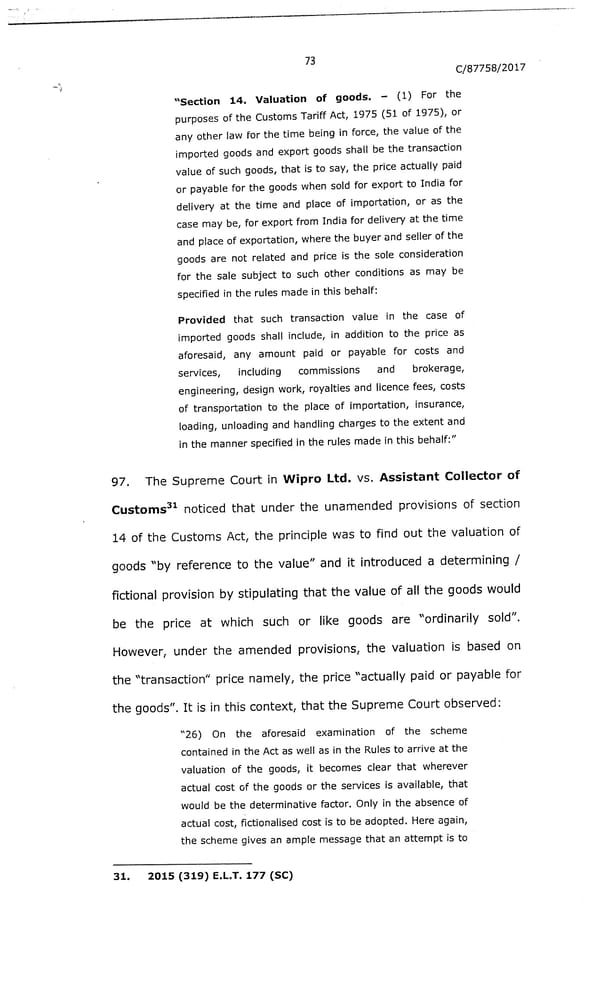
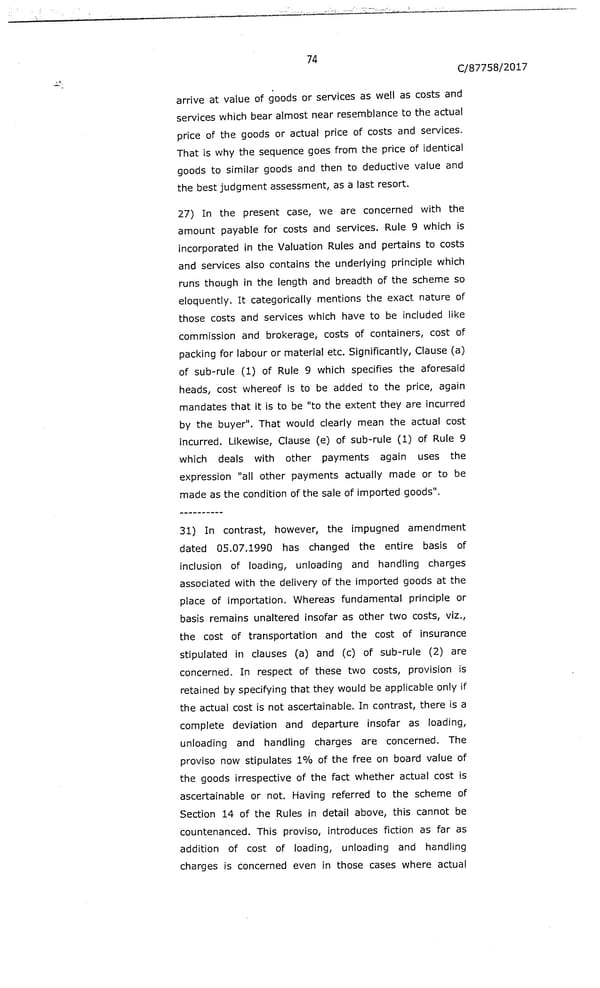
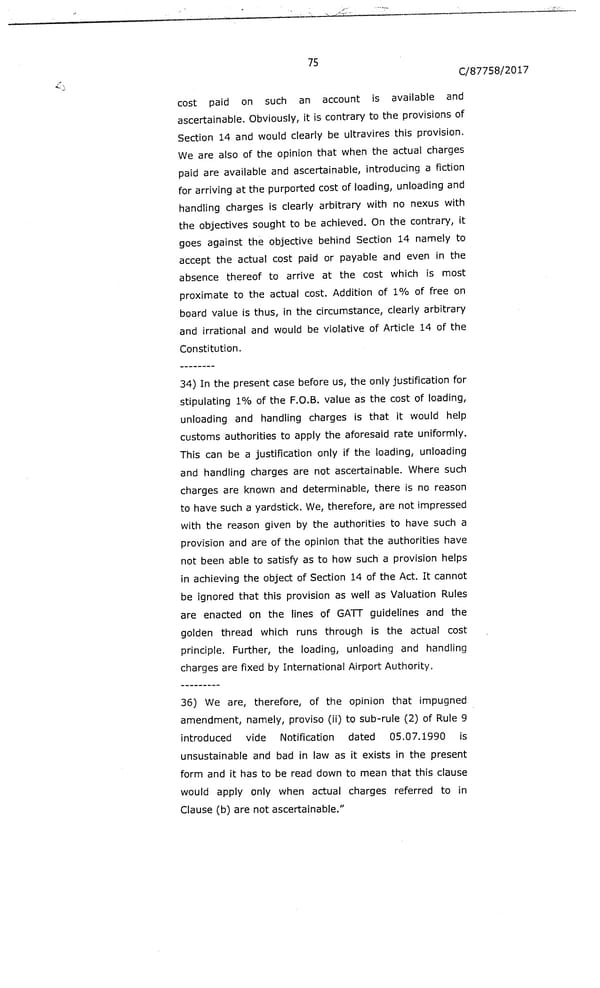
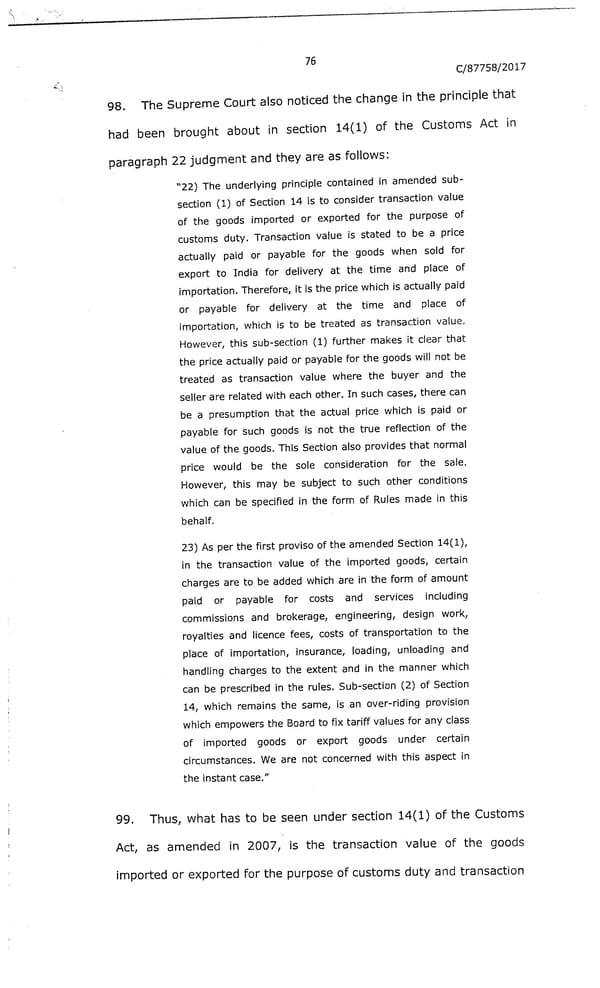
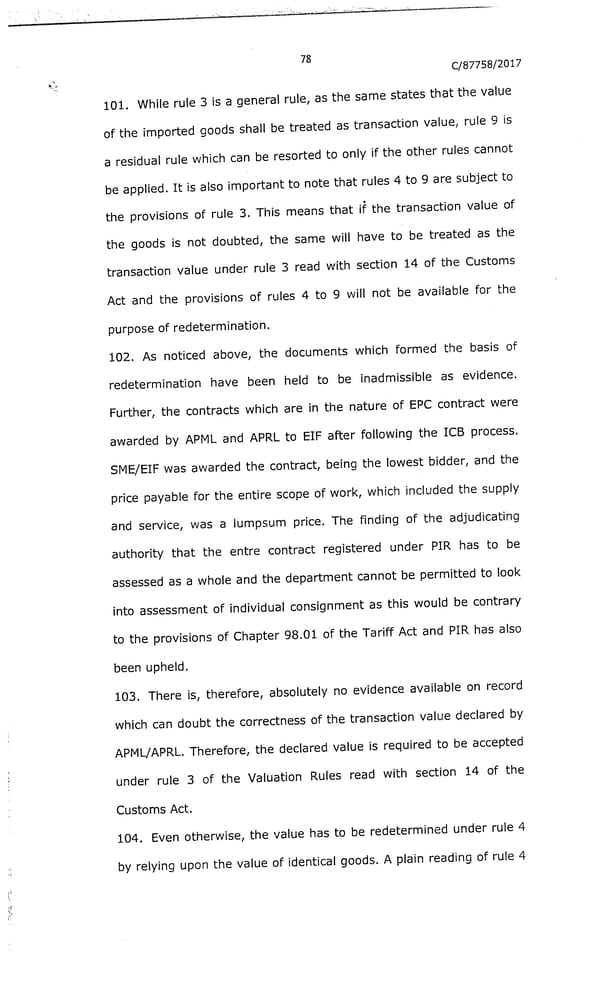
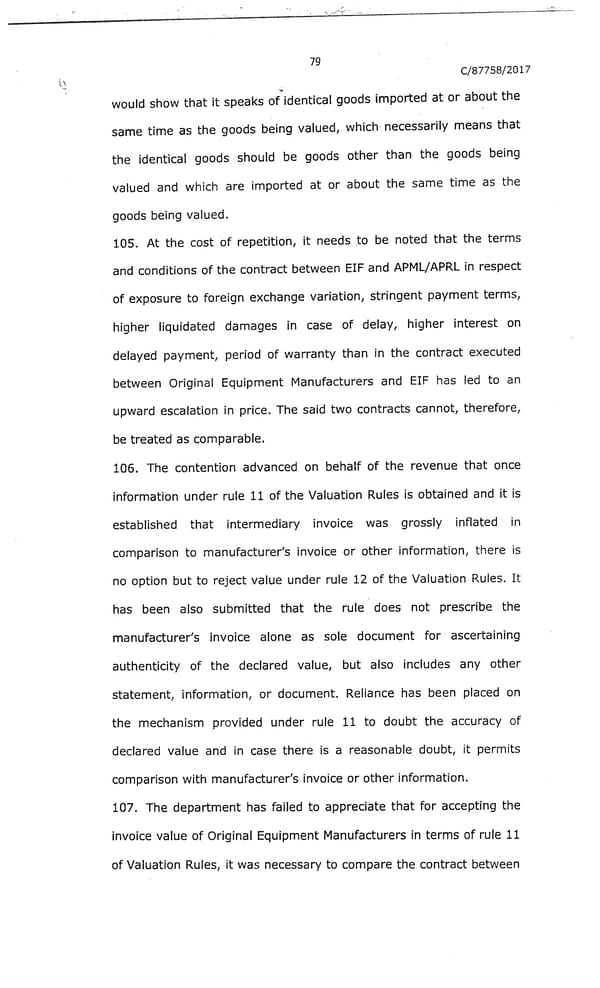
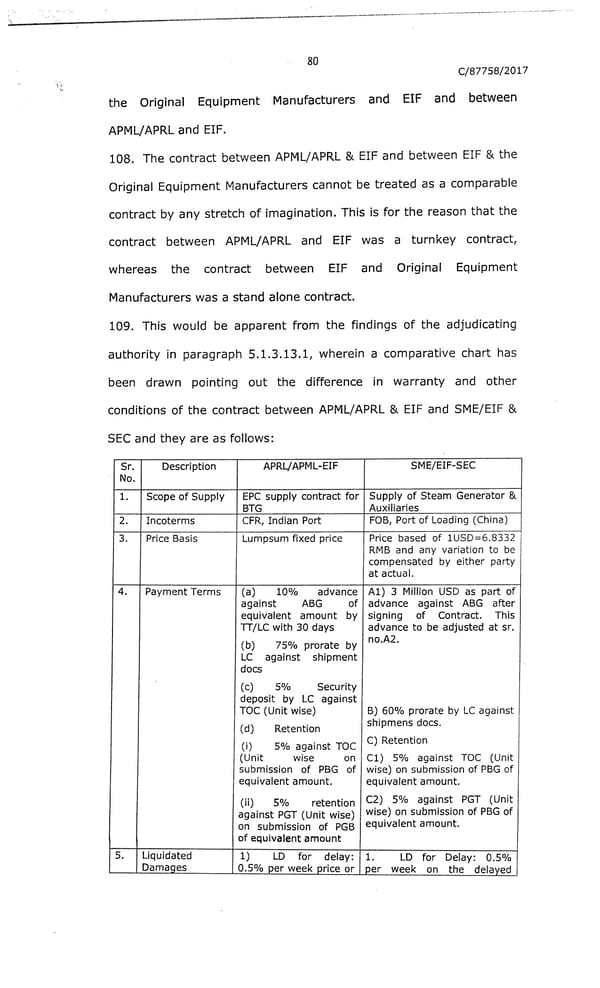
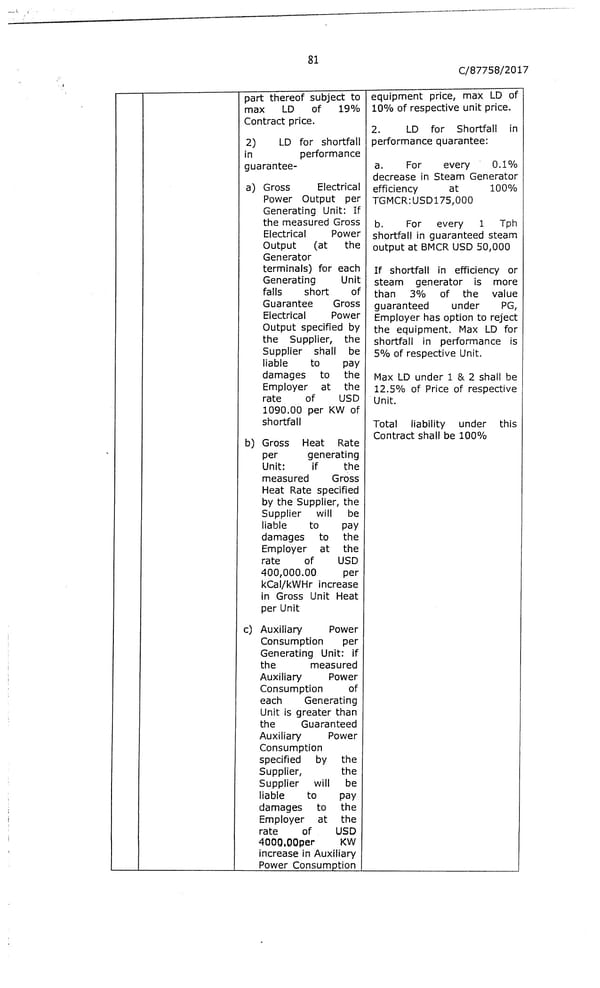
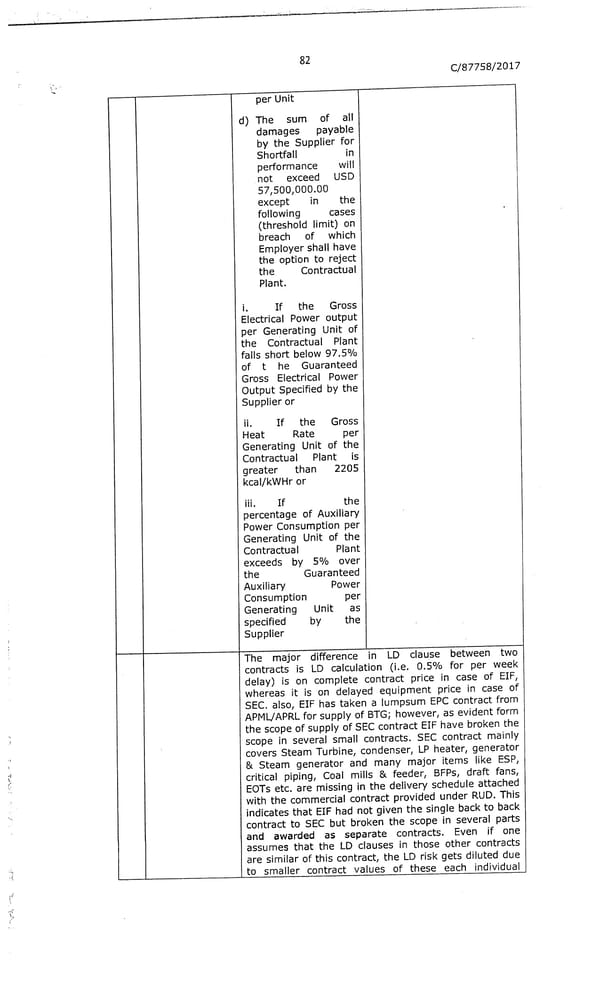
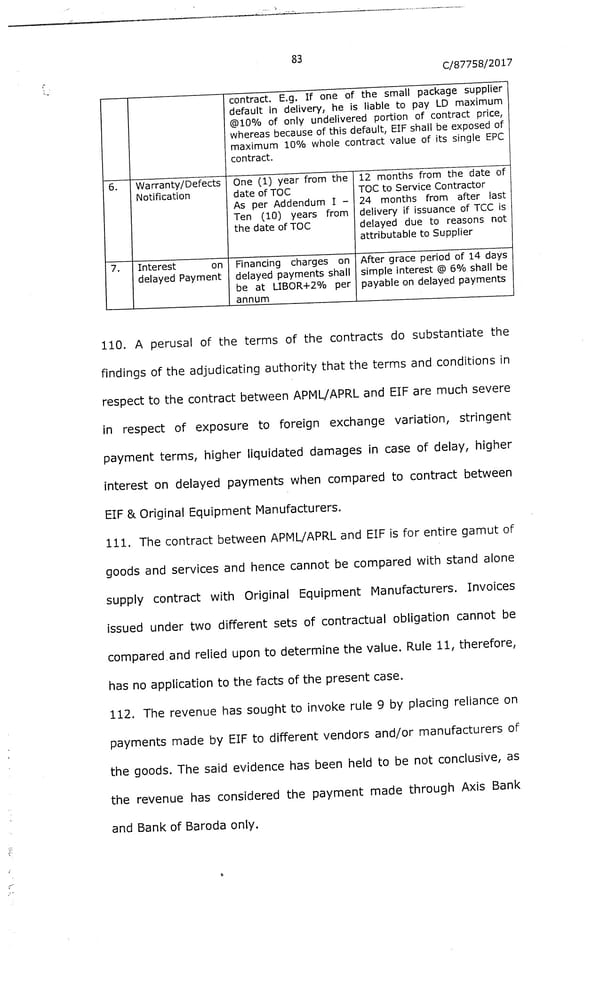
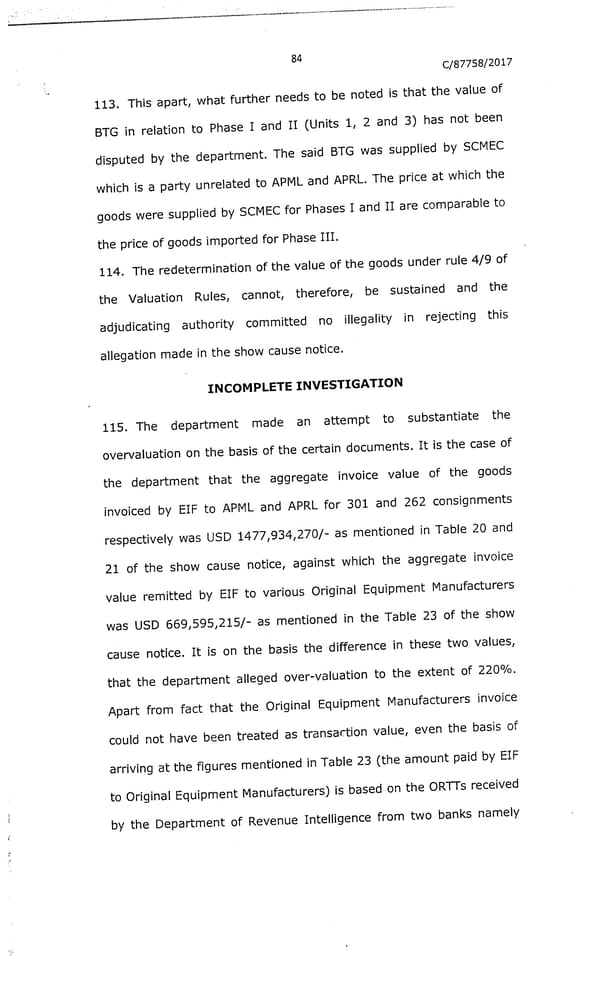
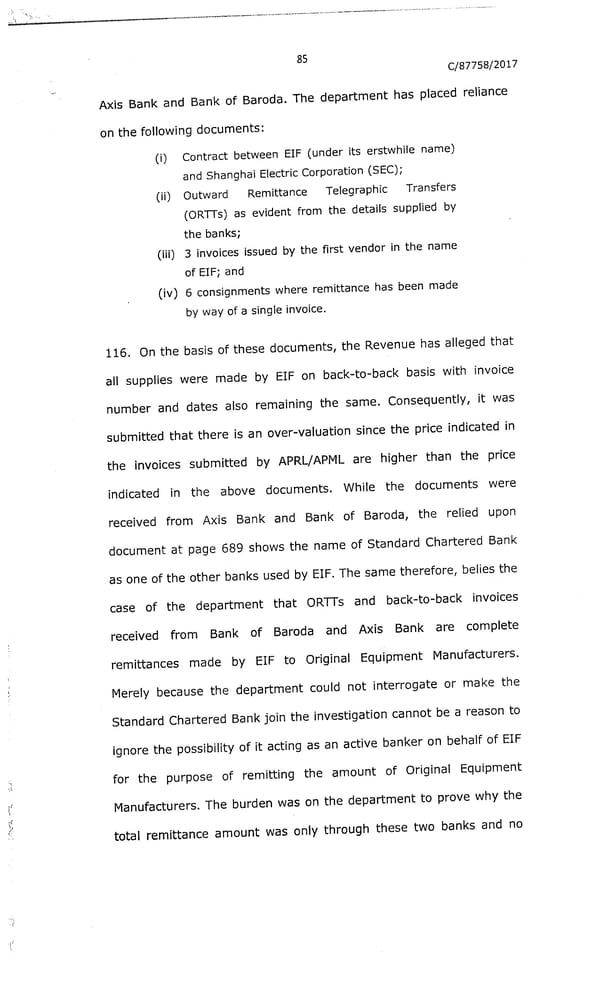
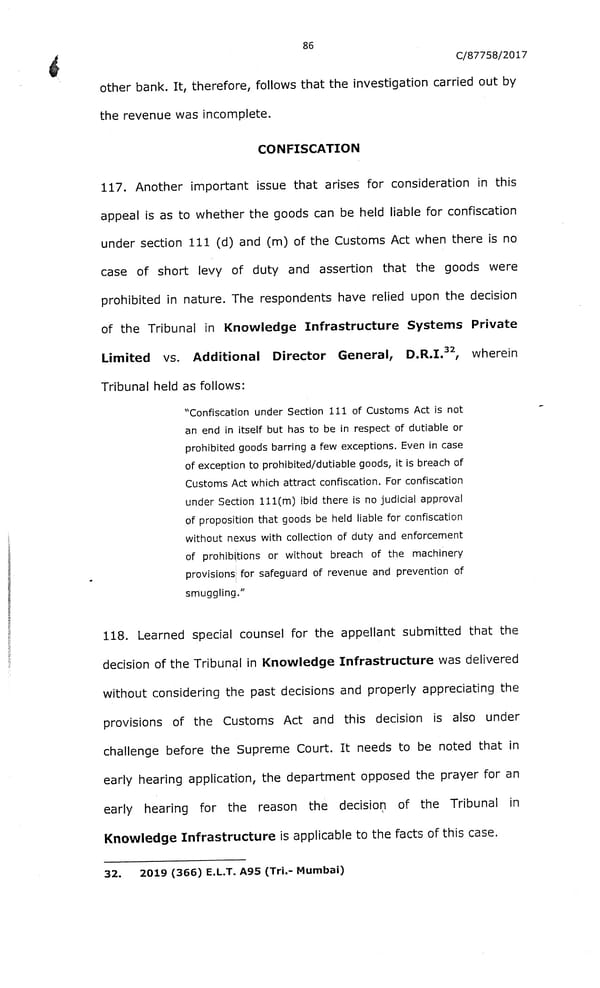
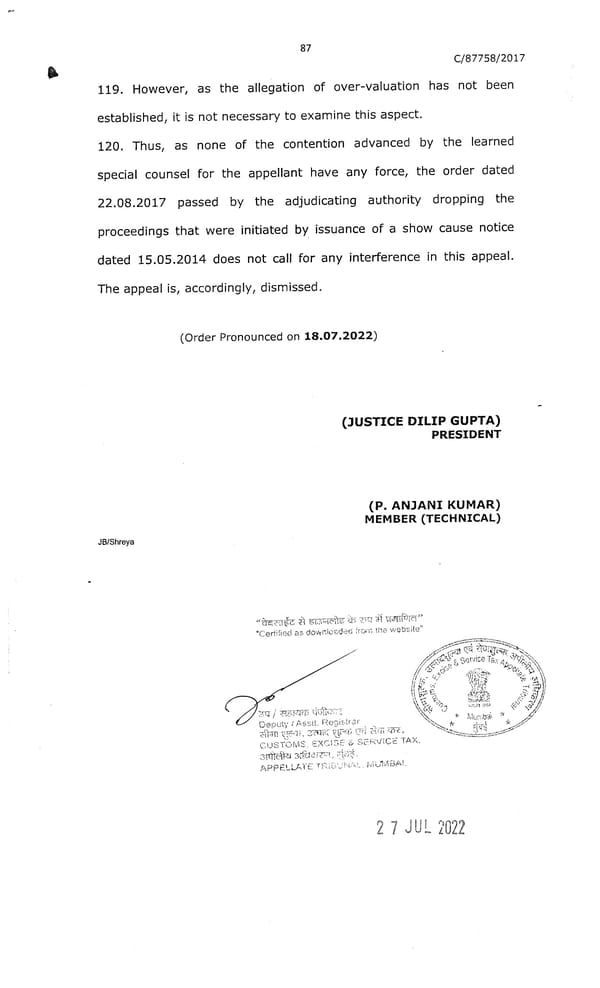
Annexure 7: Order of the National Company Law Tribunal NCLT approving Adani ower Limited’s resolution plan for Mahan Energen Limited 221
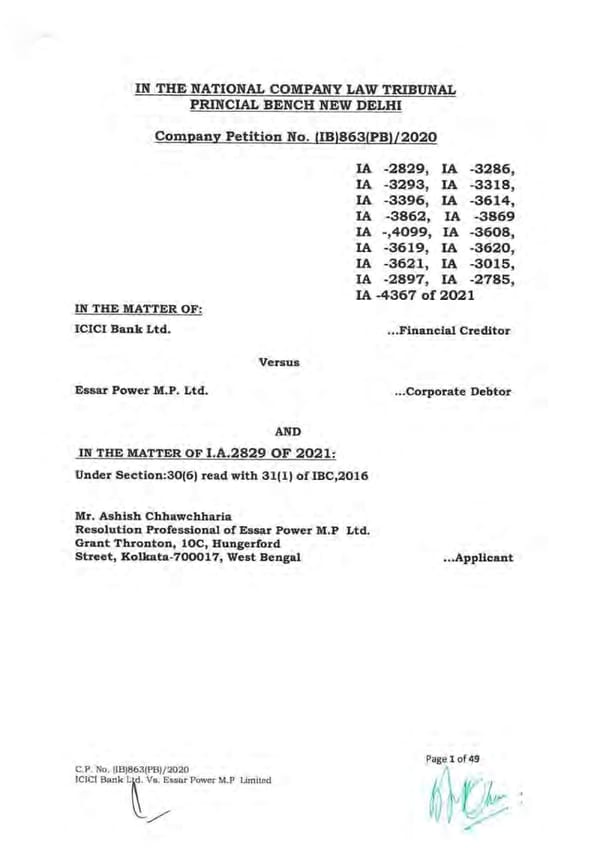
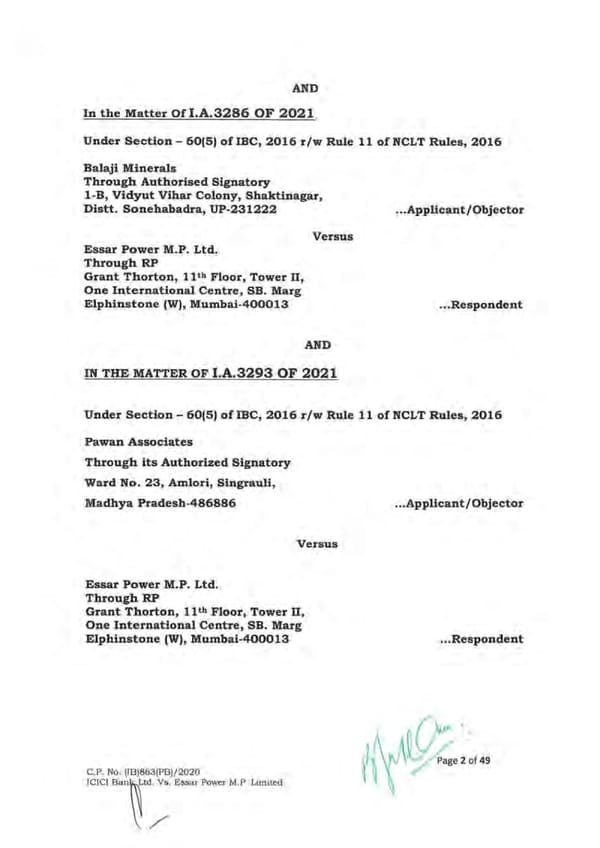
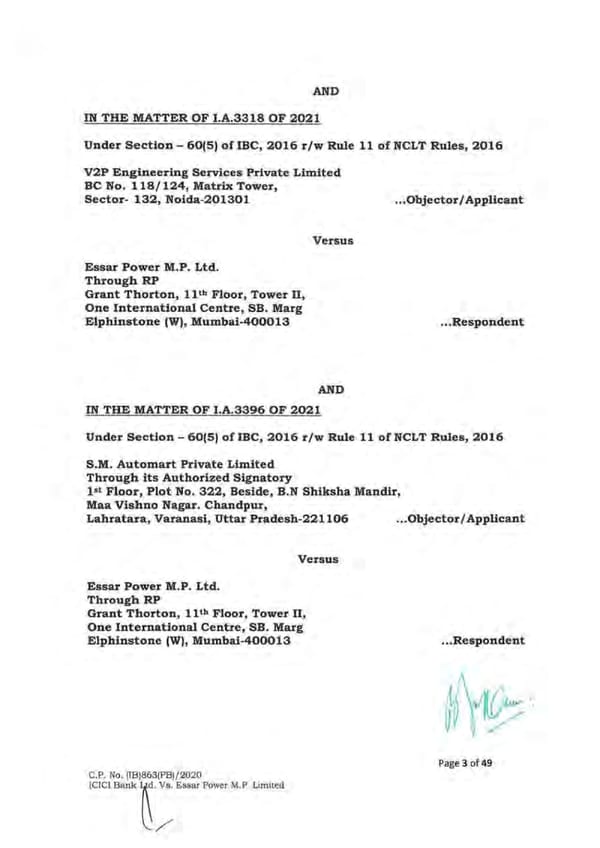
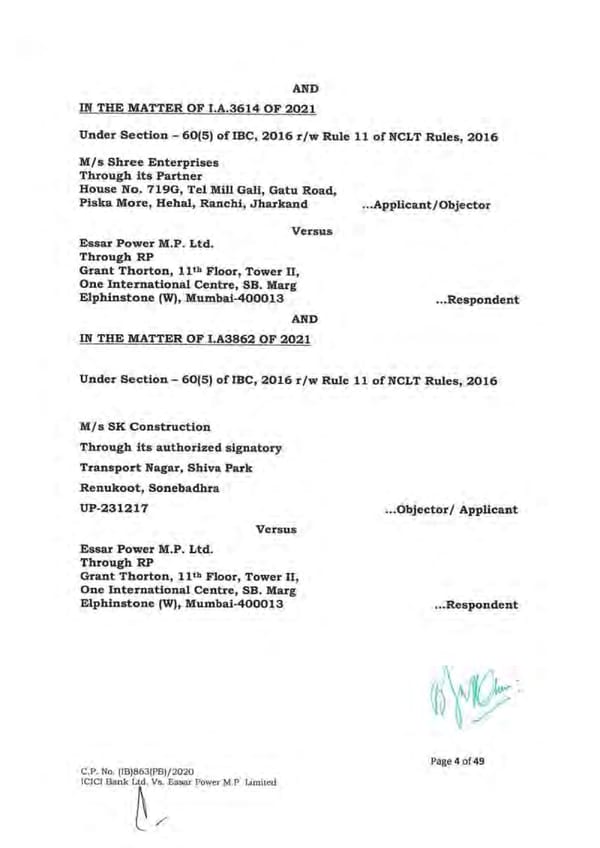
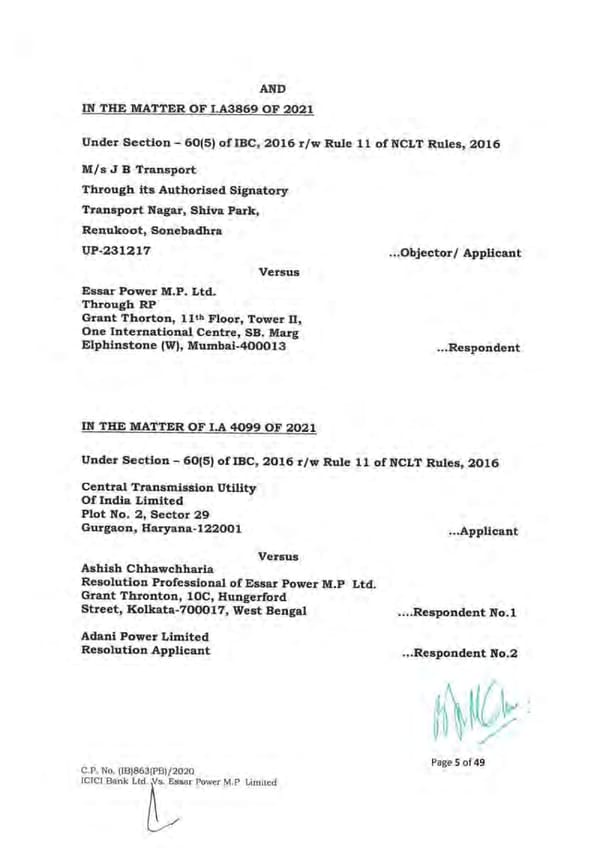
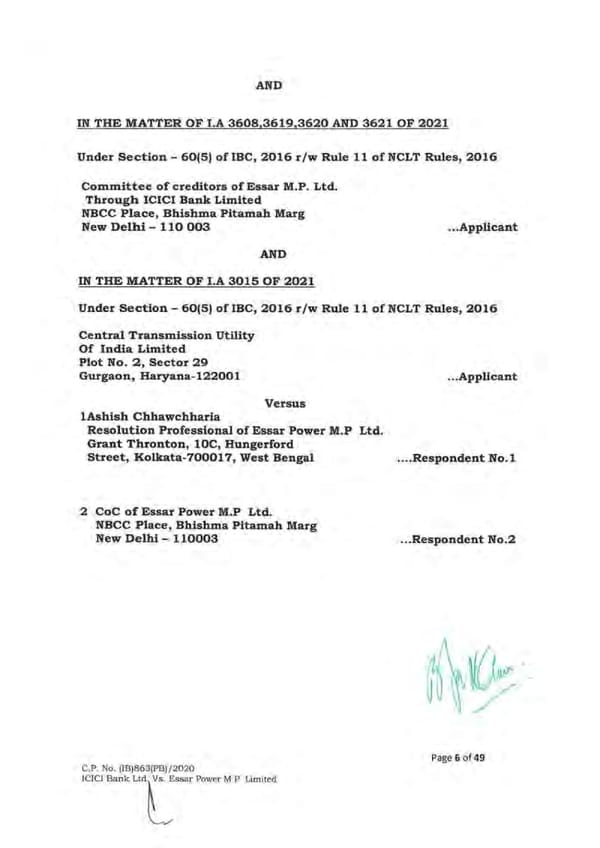
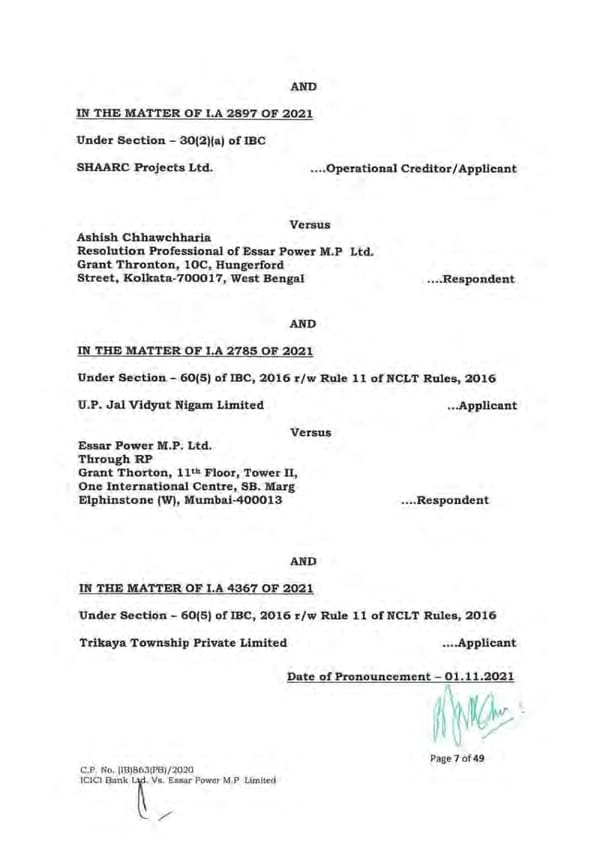
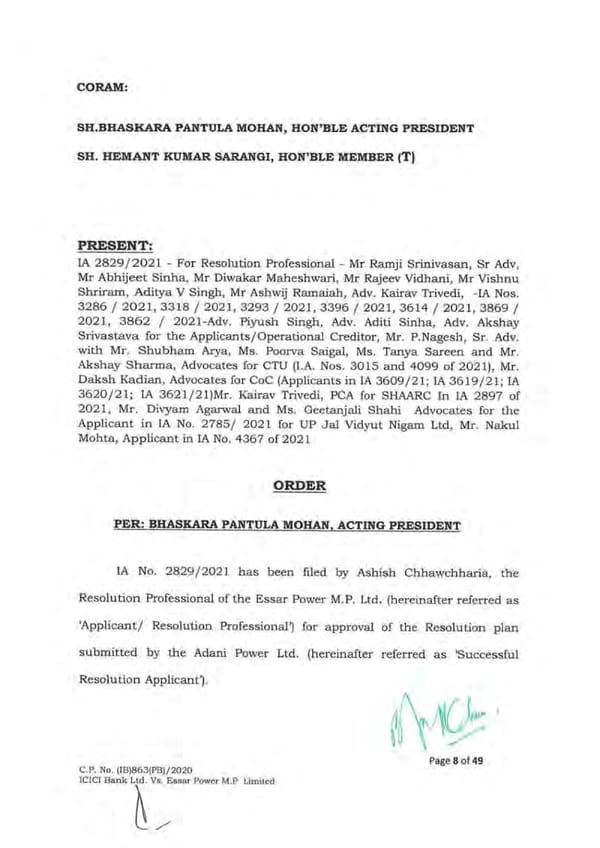
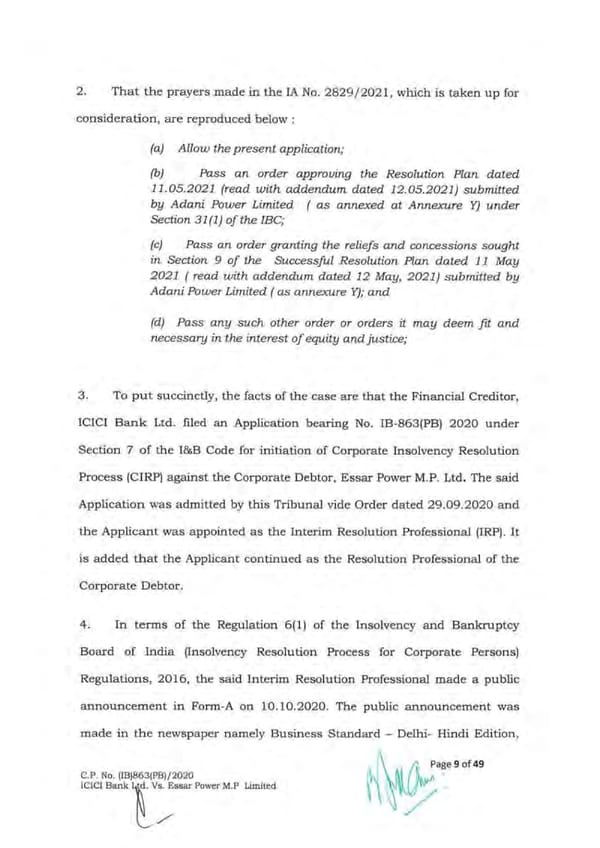
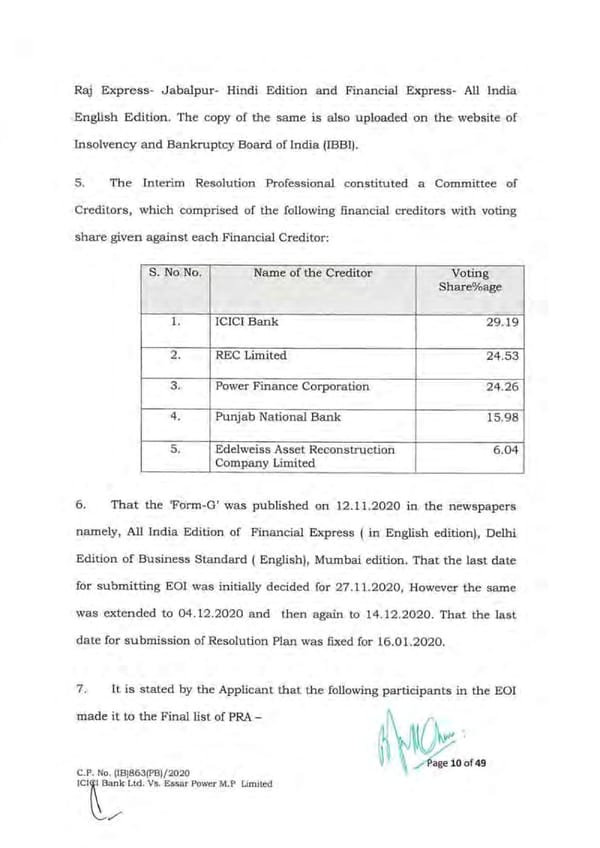
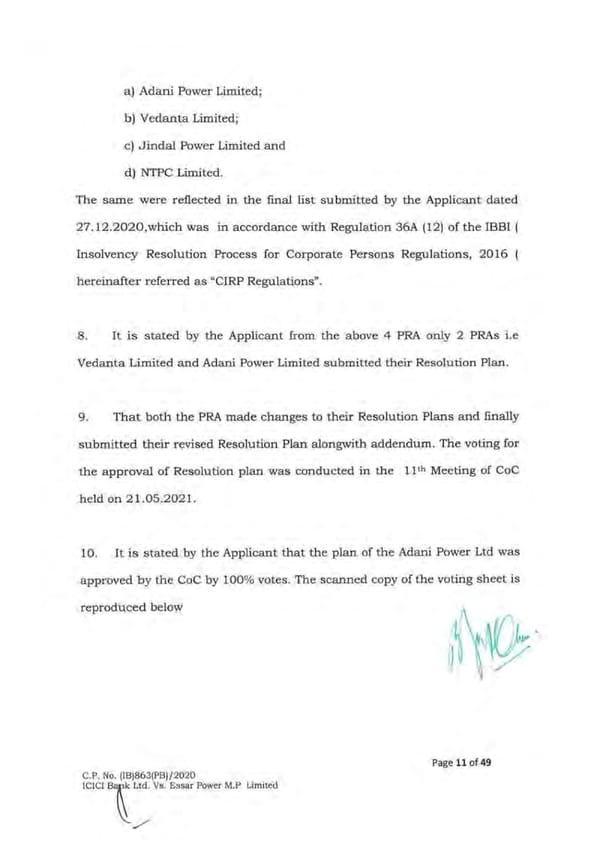
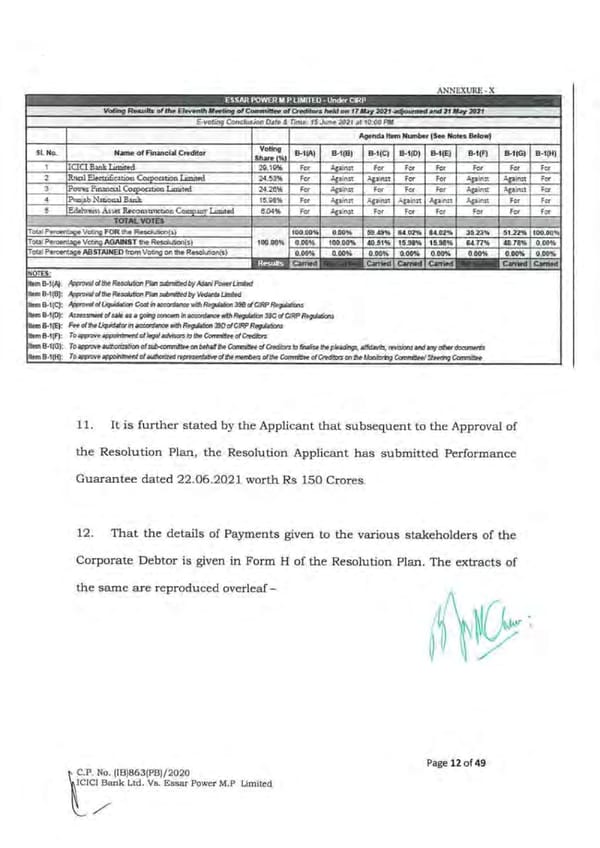
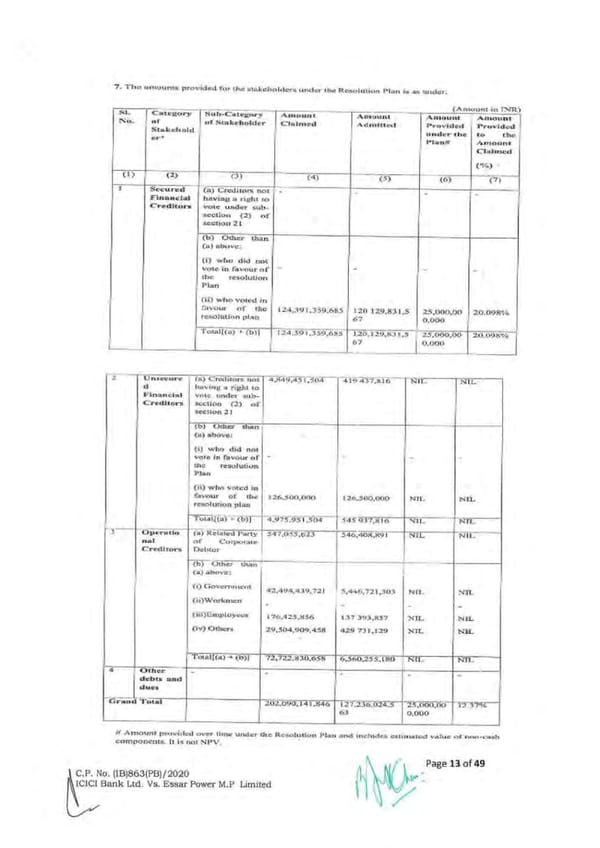
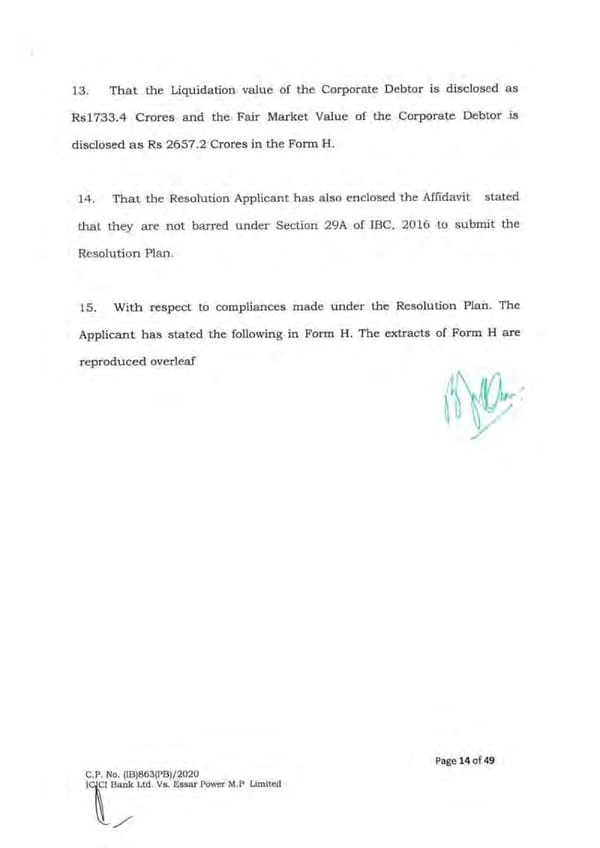
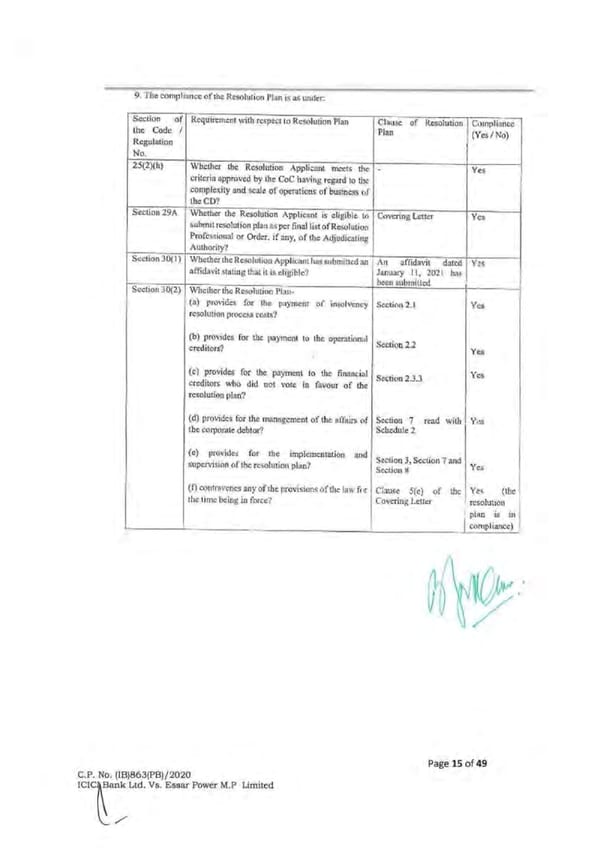
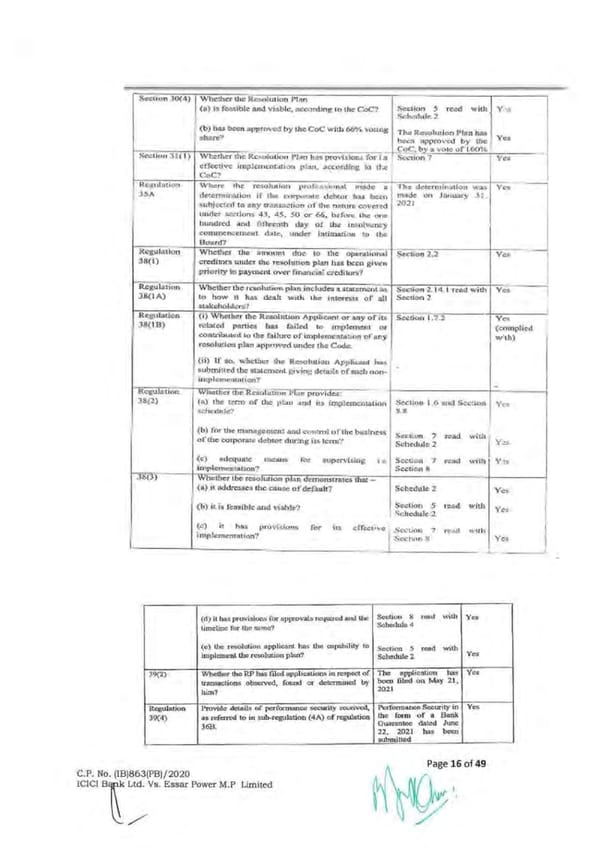
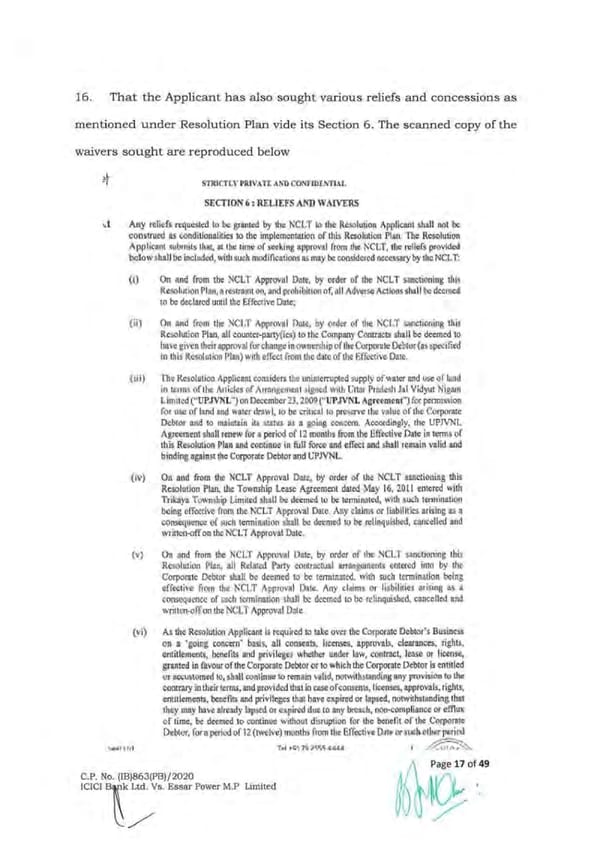
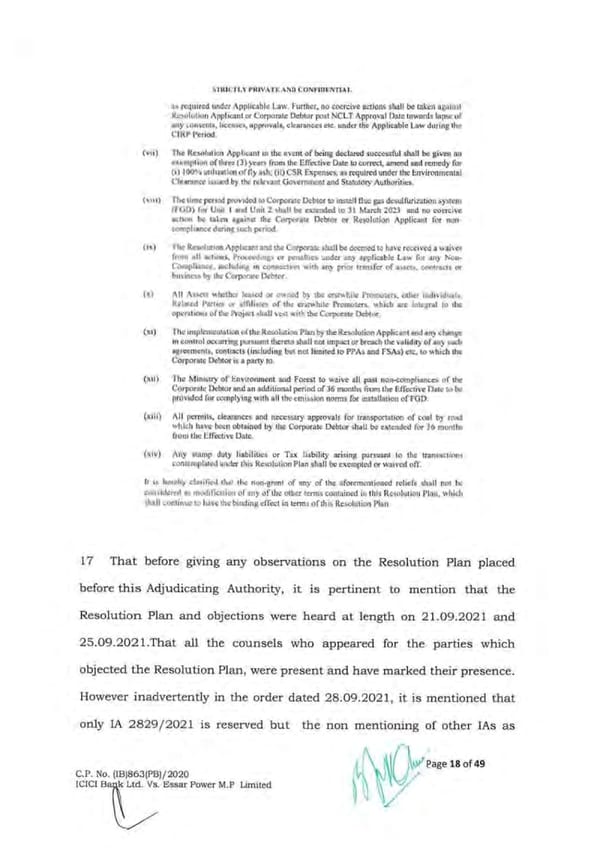
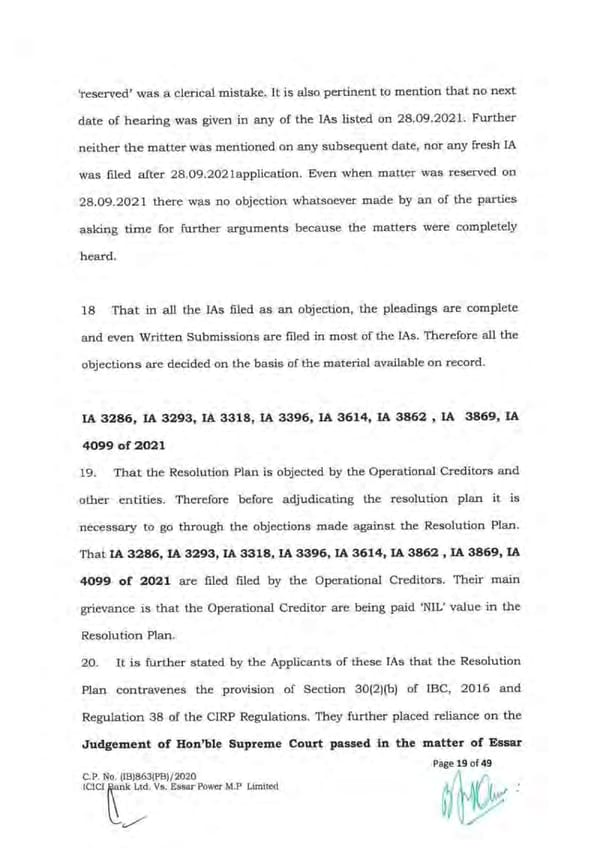
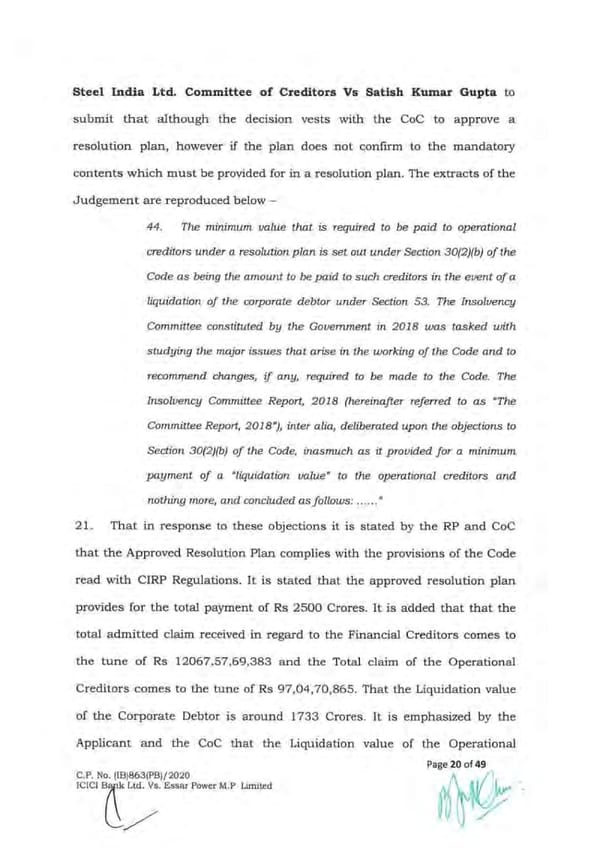
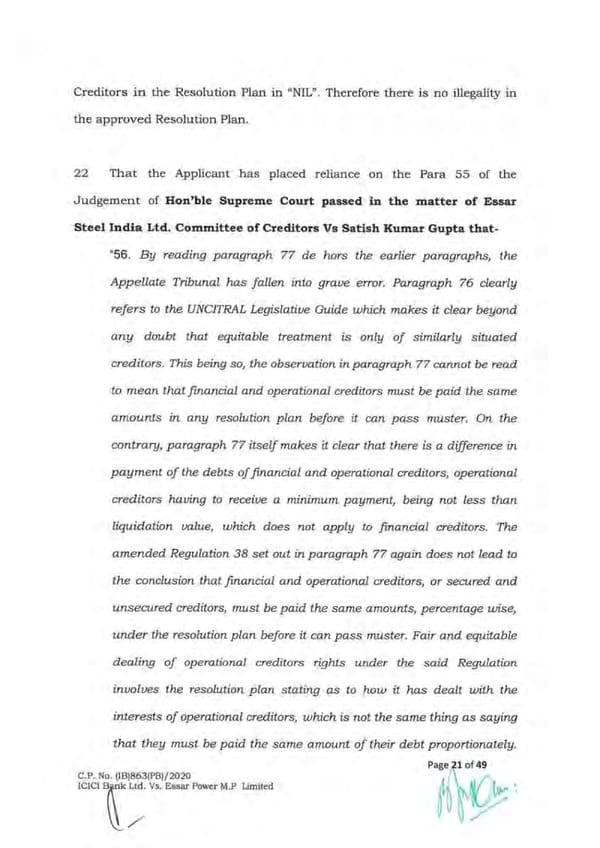
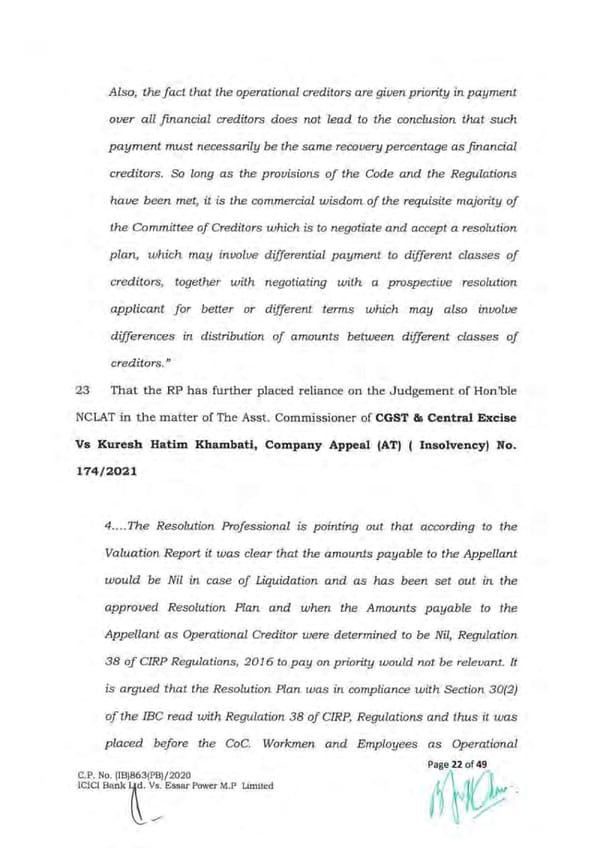
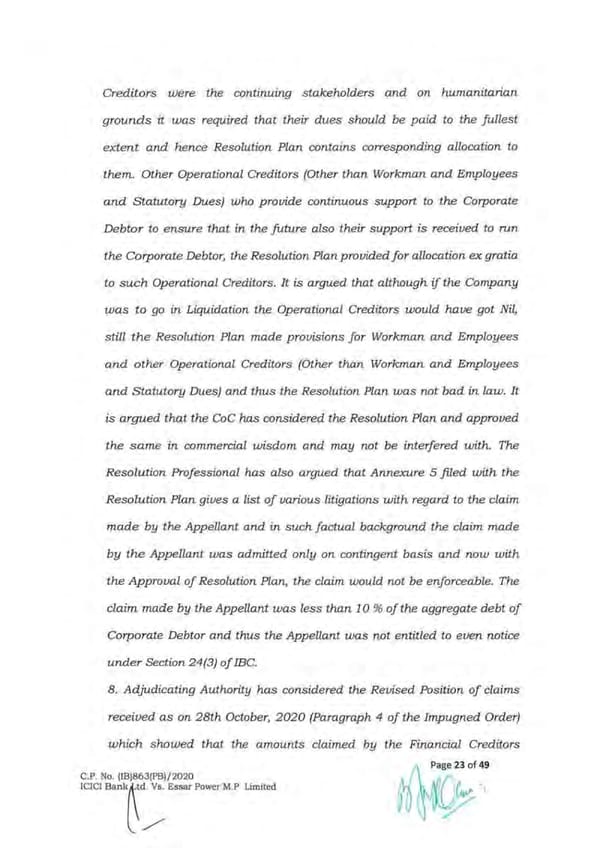
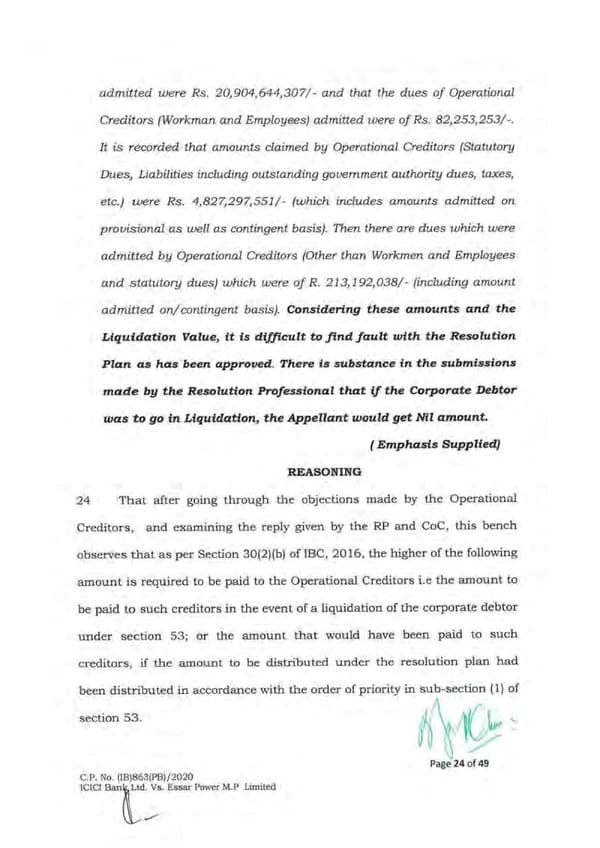
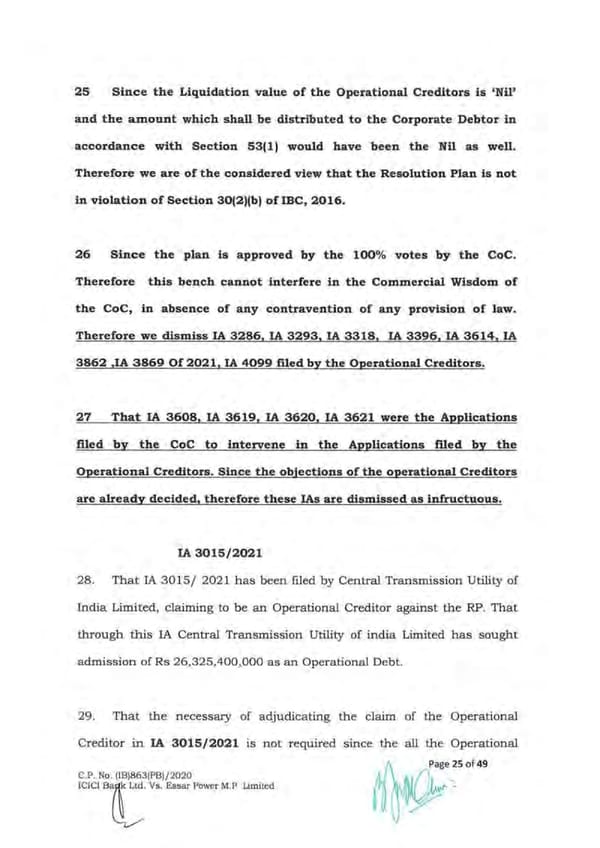
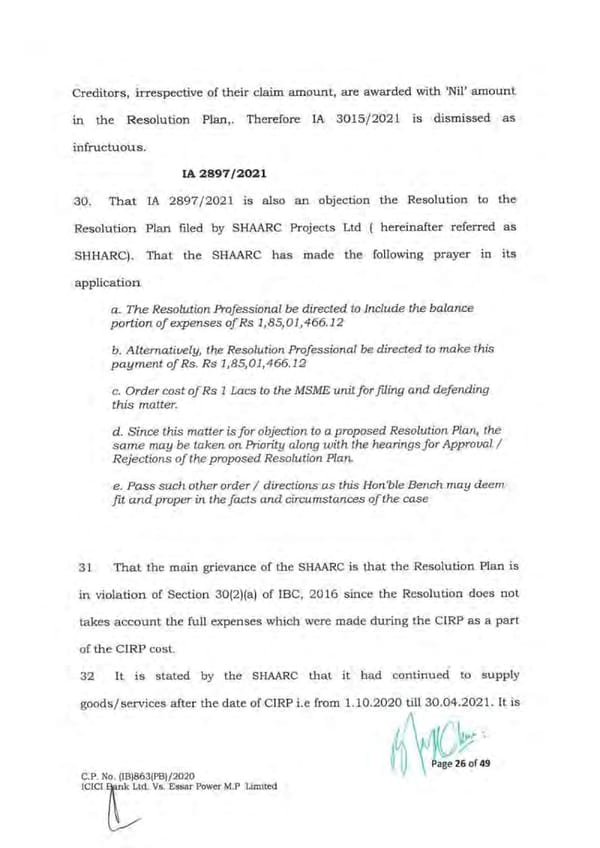
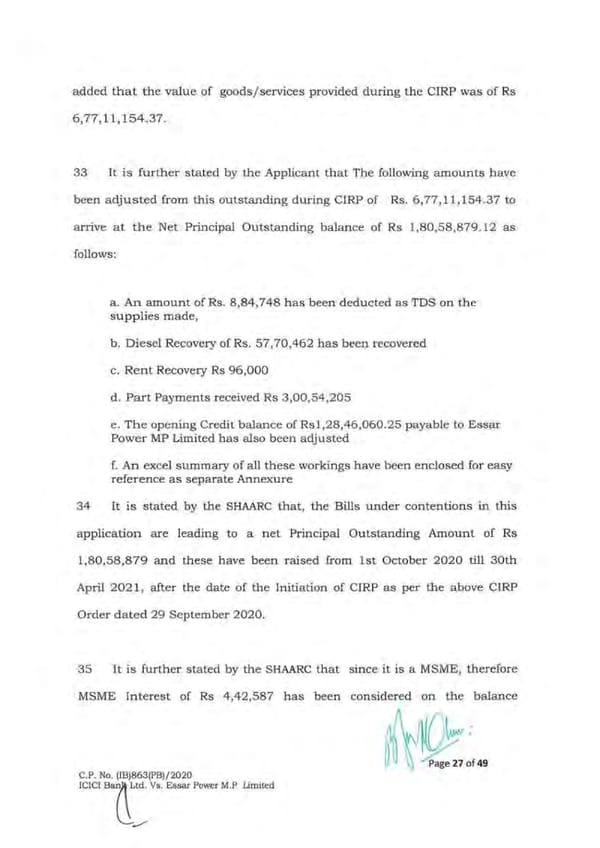
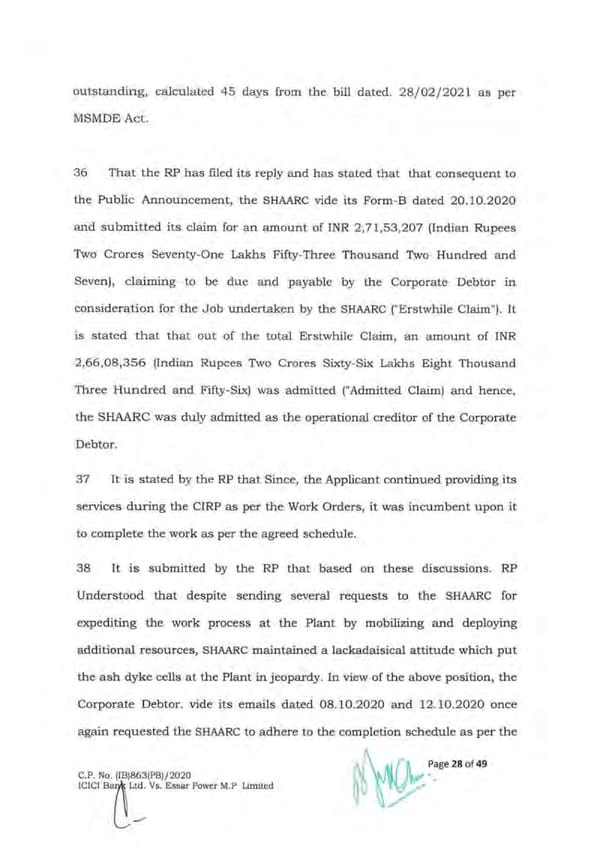
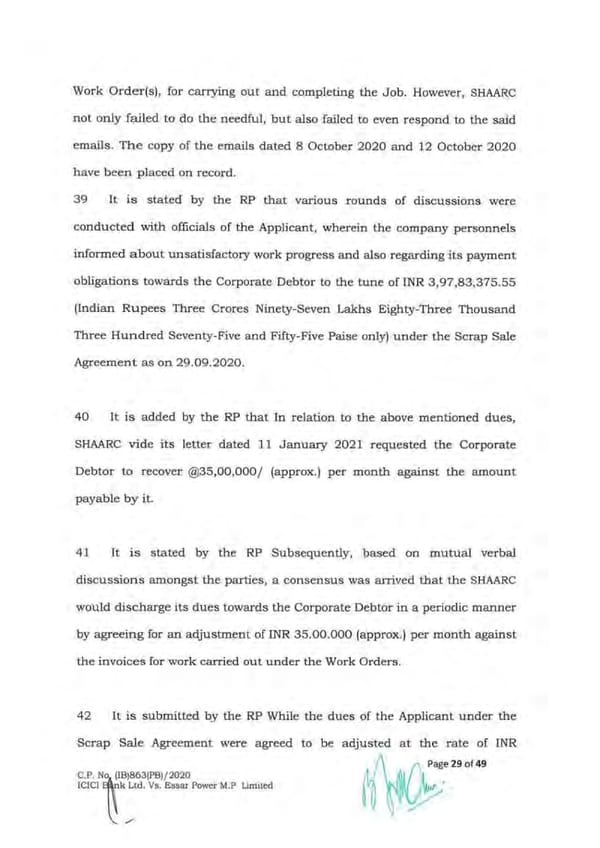
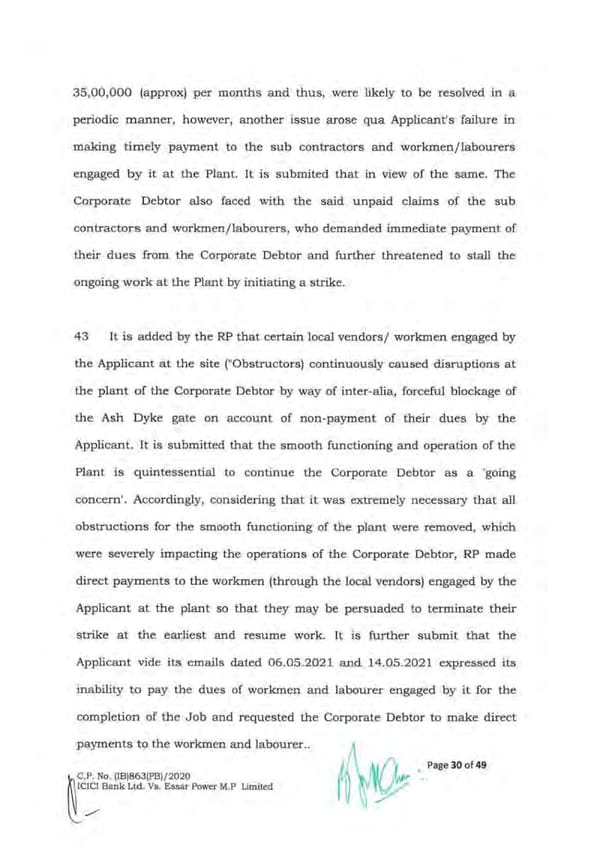
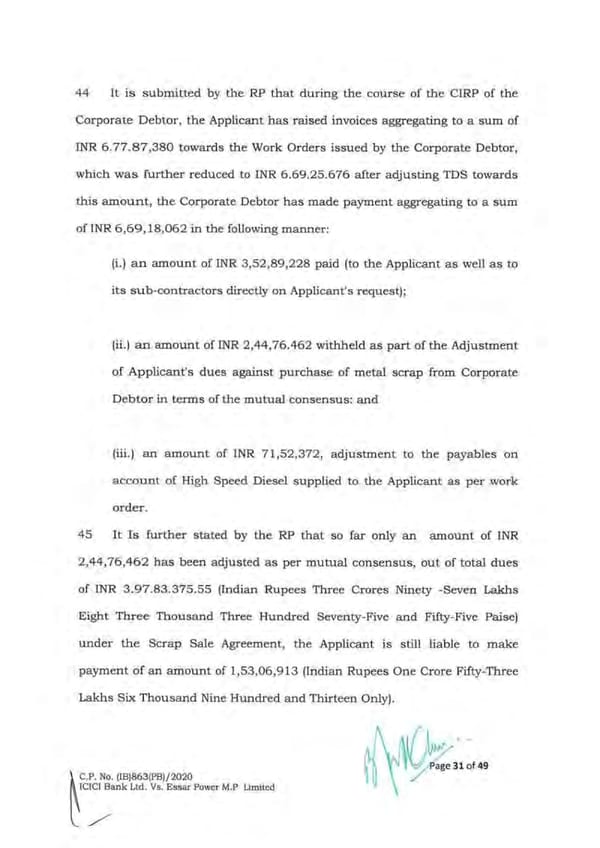
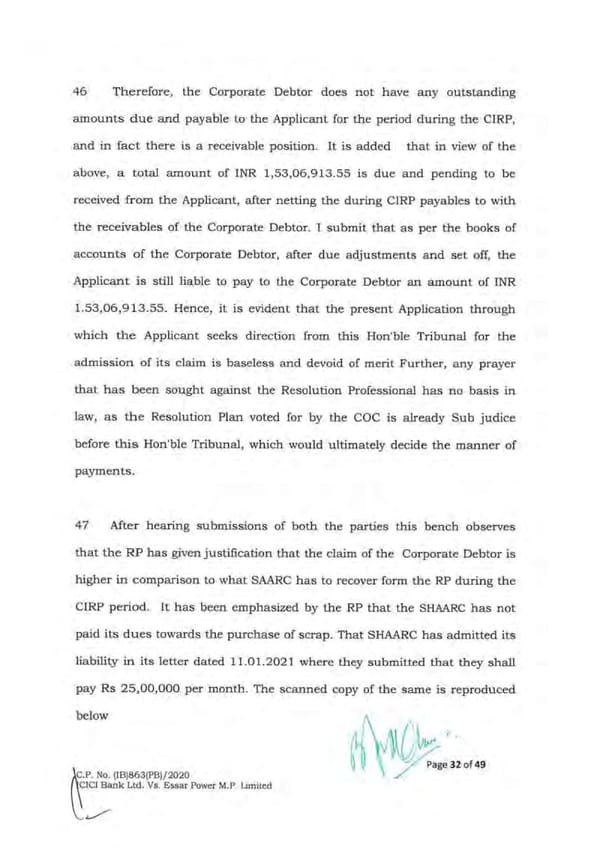
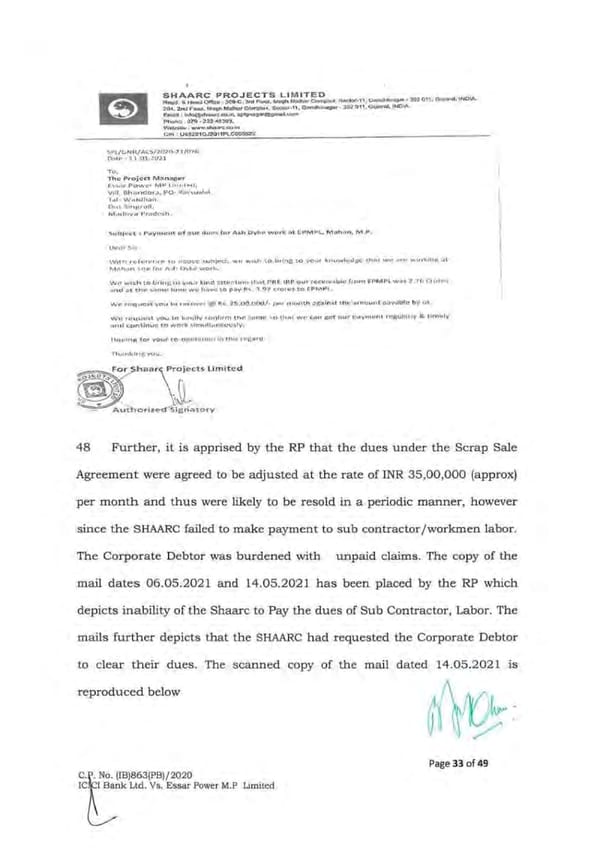
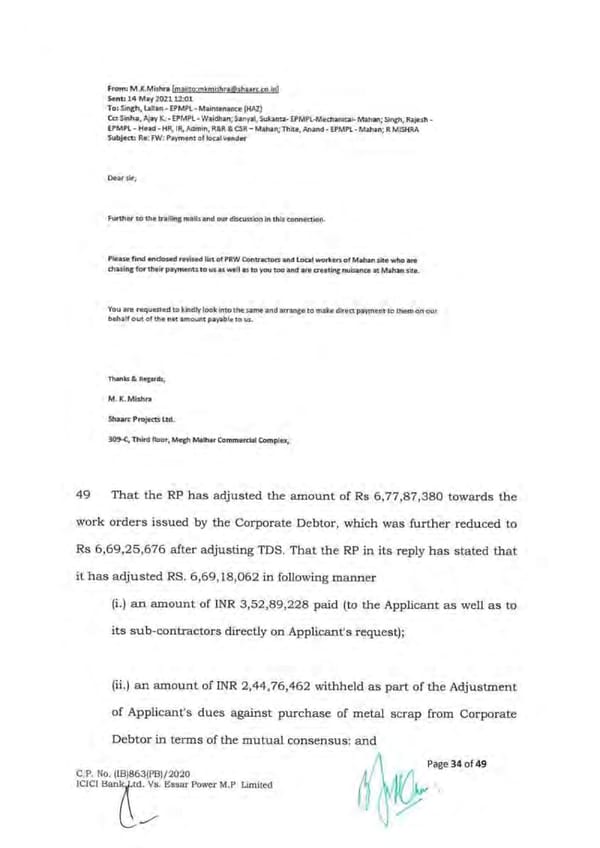
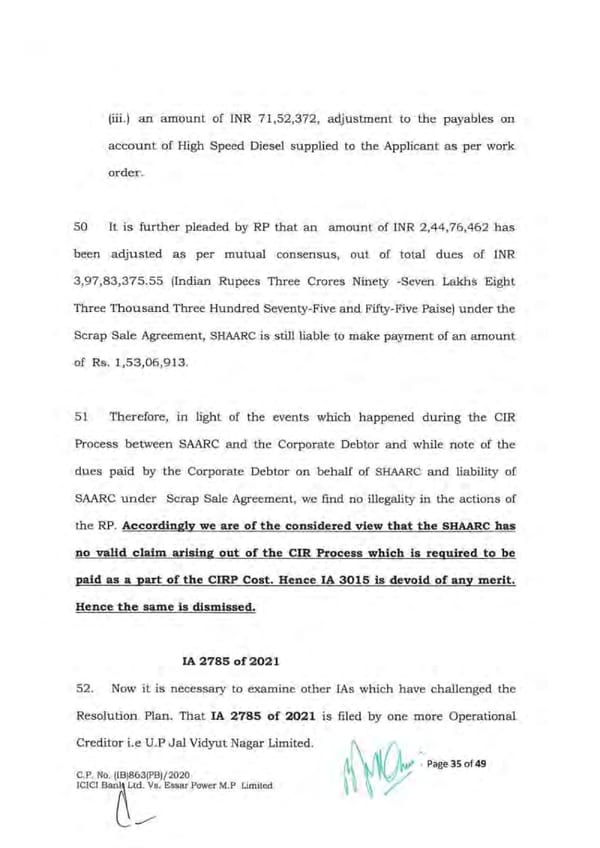
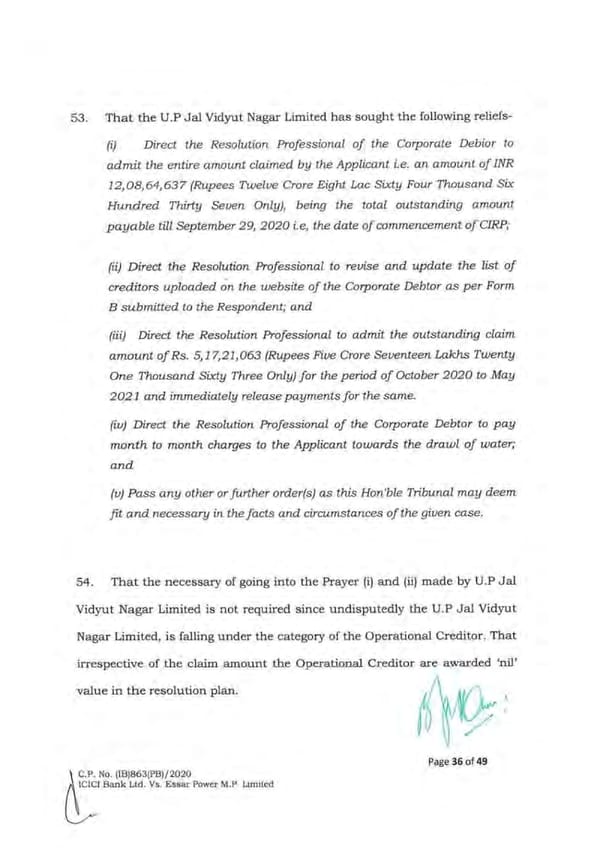
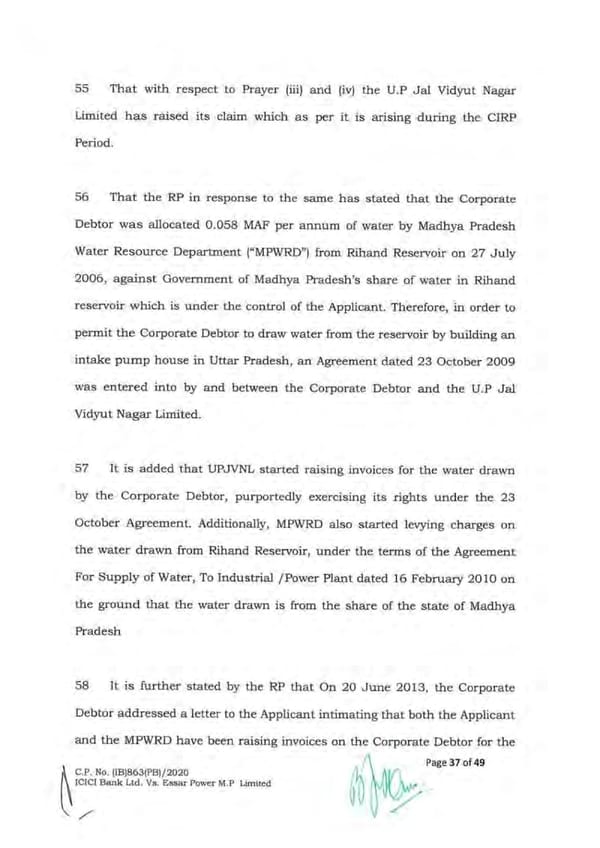
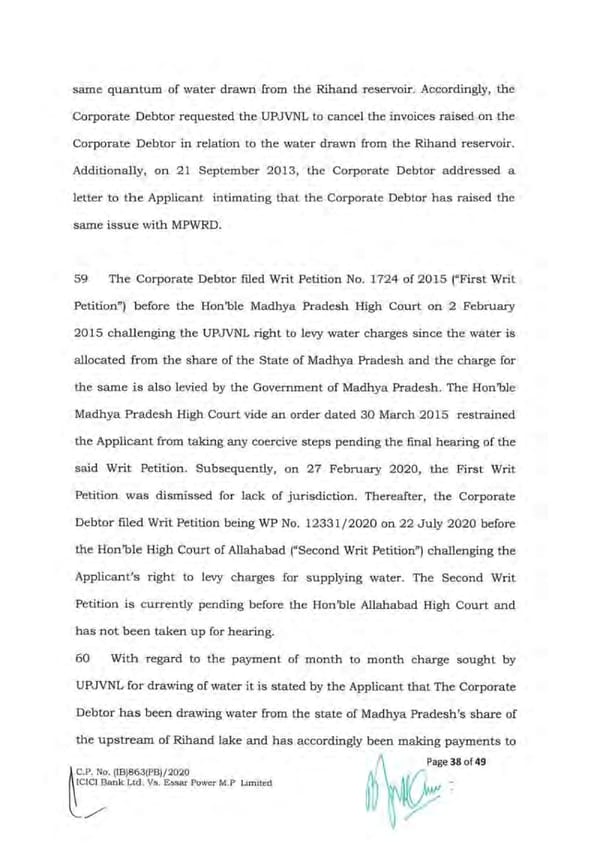
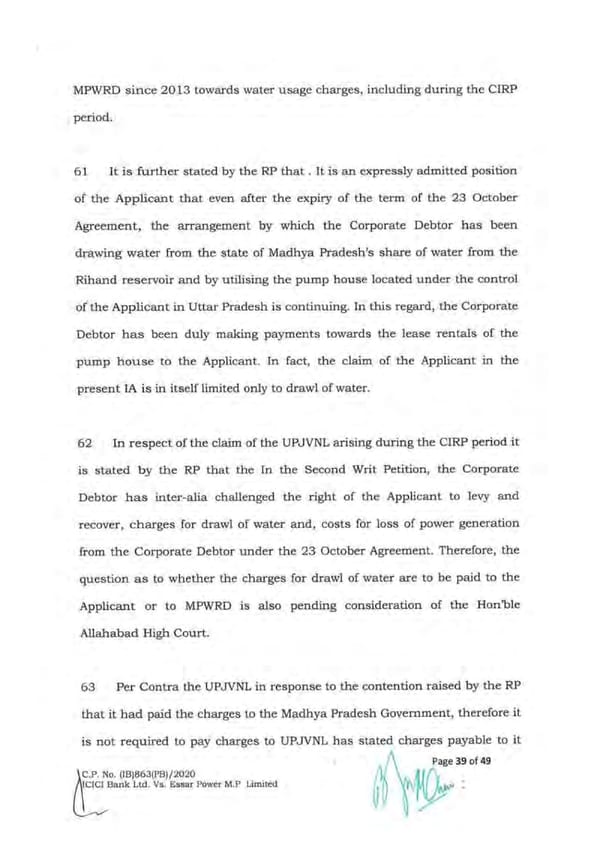
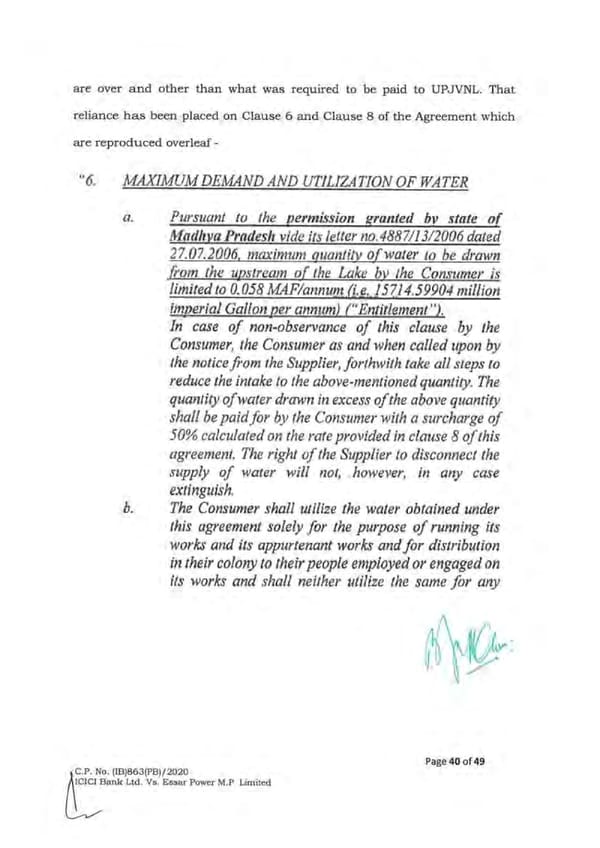
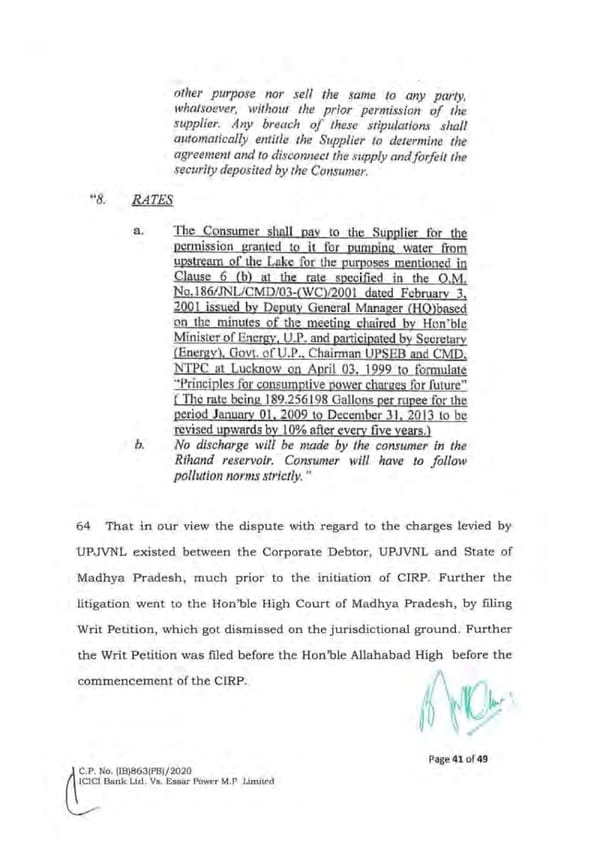
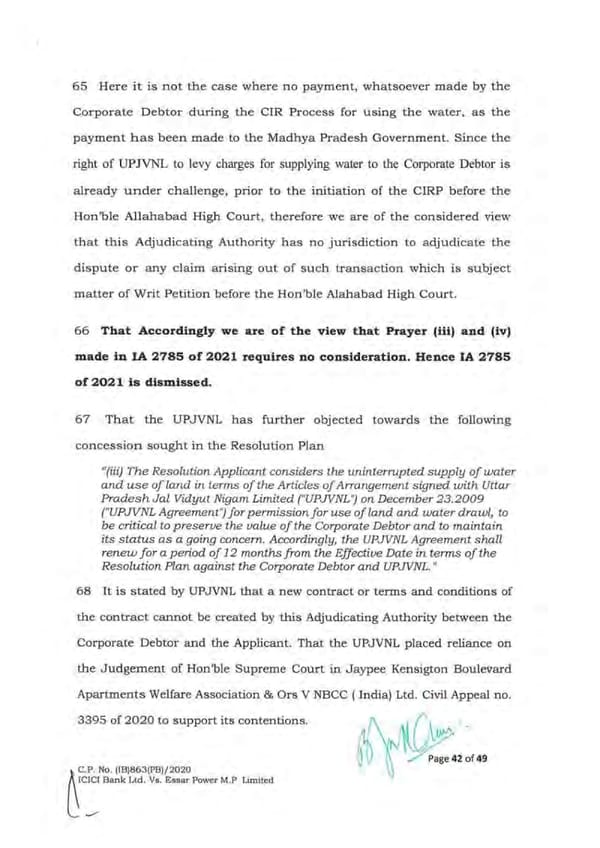
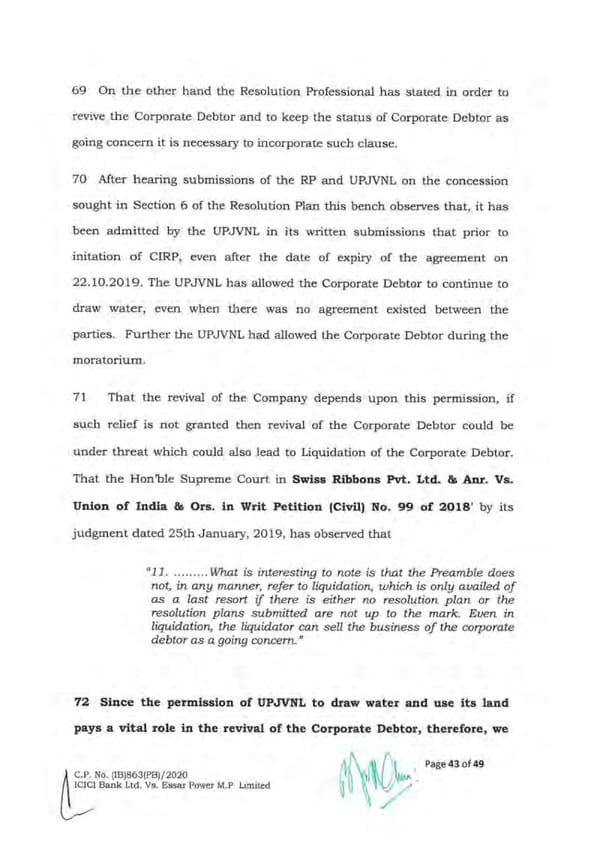
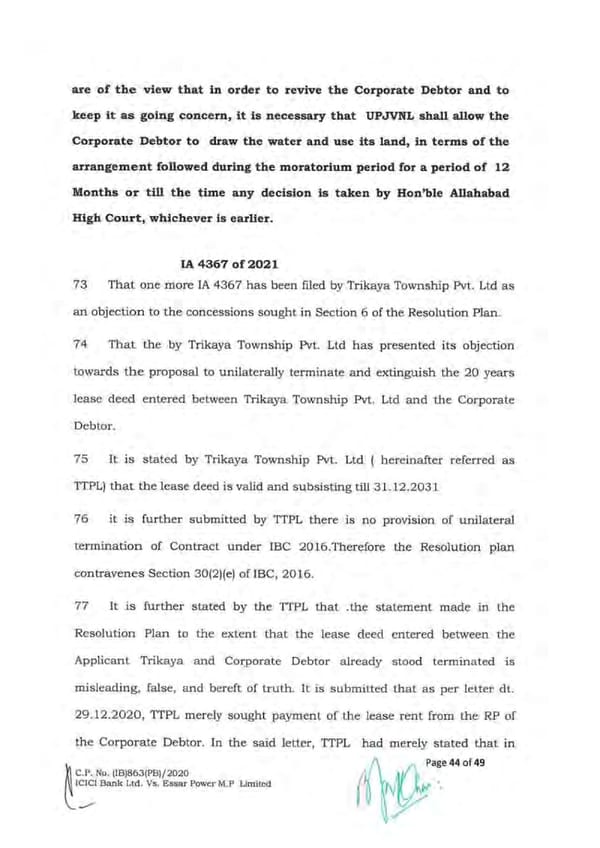
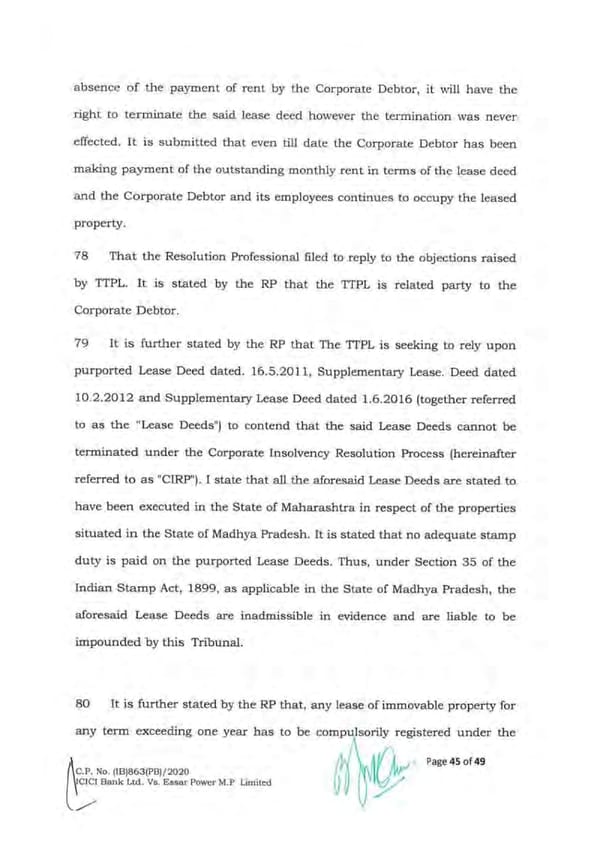
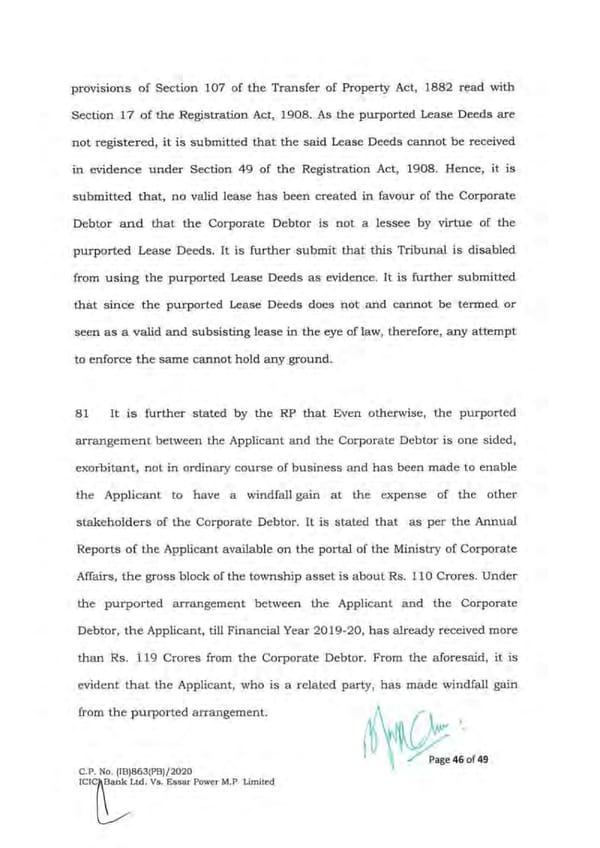
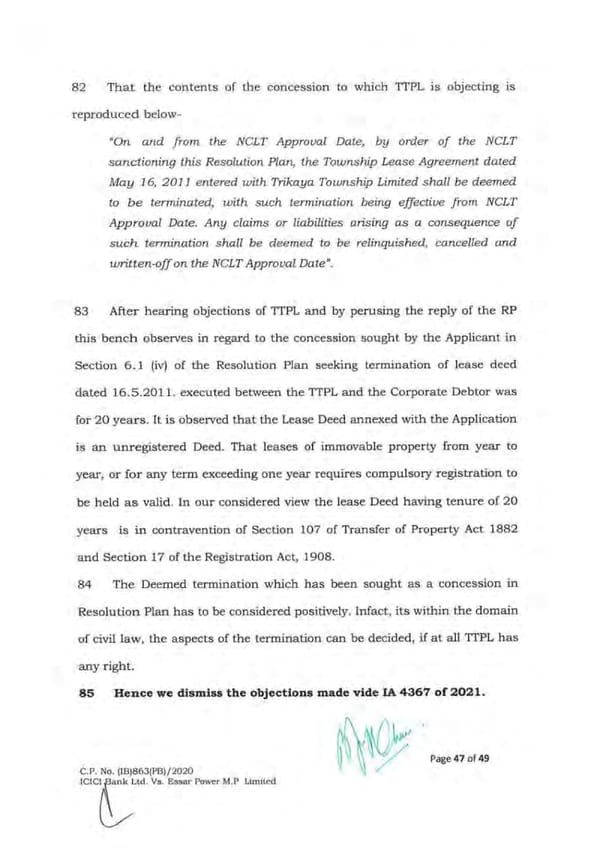
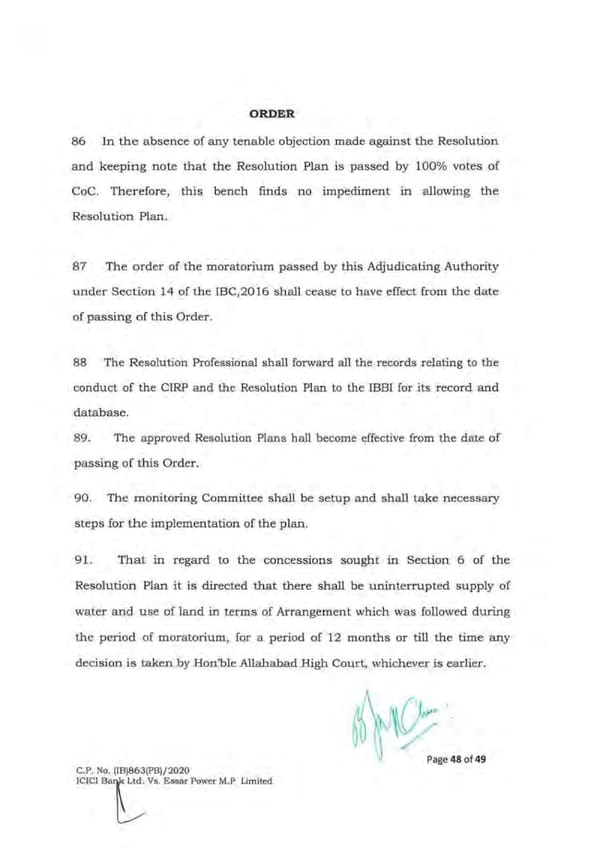
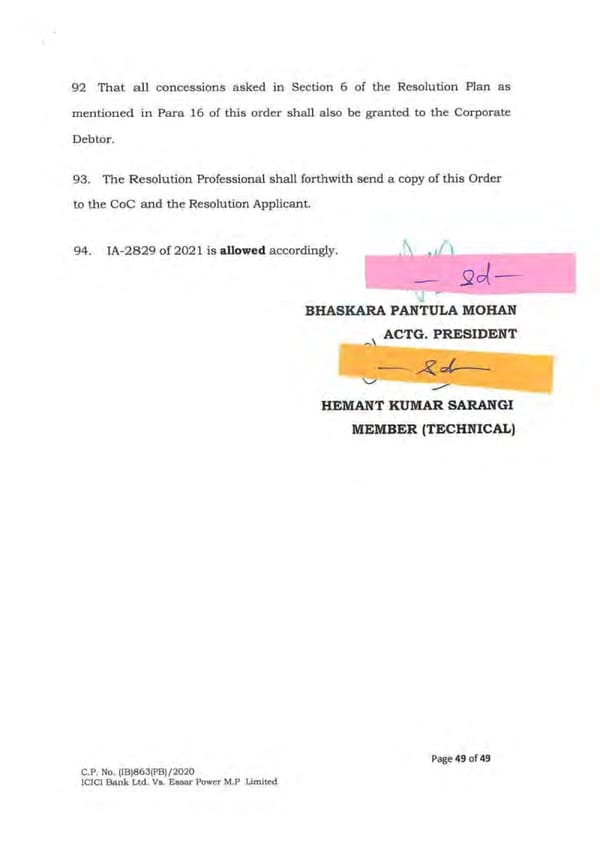
Annexure 8: Order of Customs, Excise & Service Tax Appellate Tribunal (CESTAT) dated 25th August 2022 271
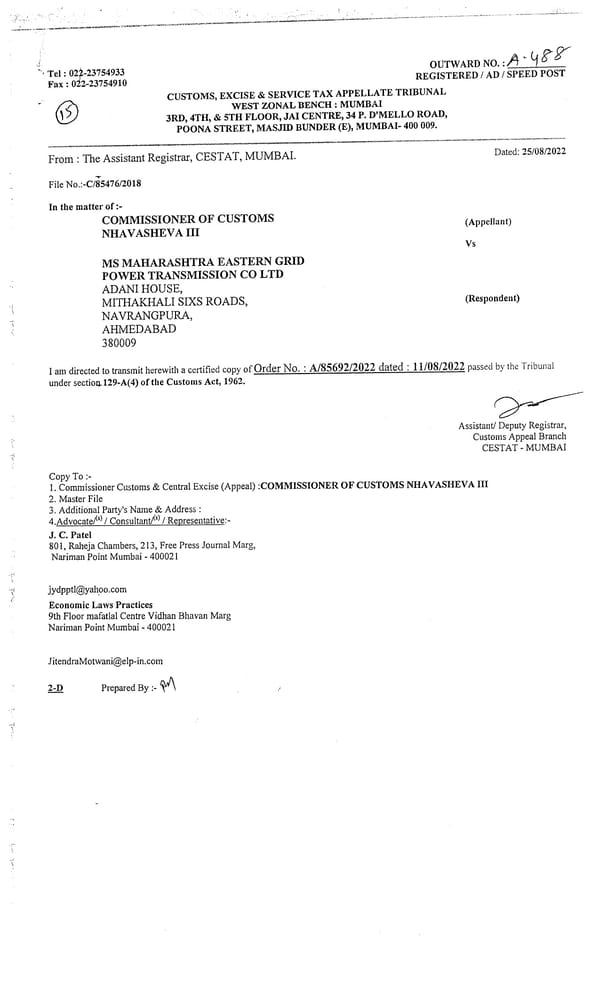
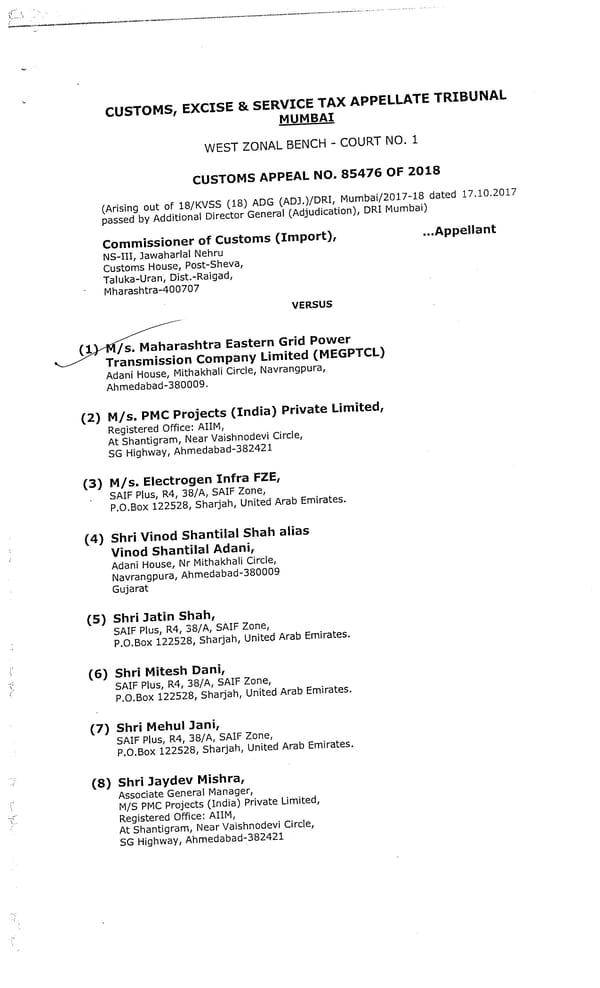
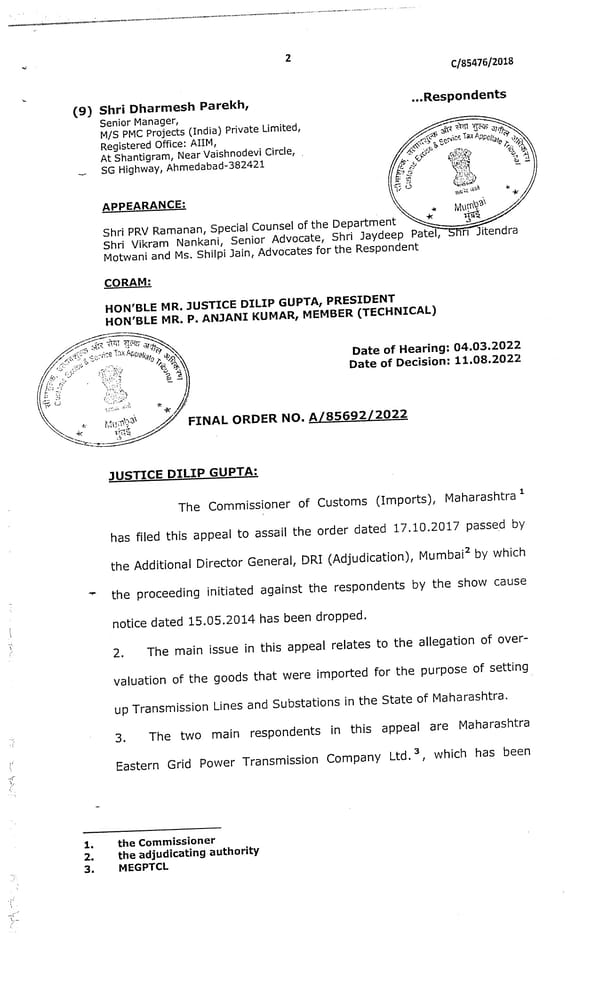
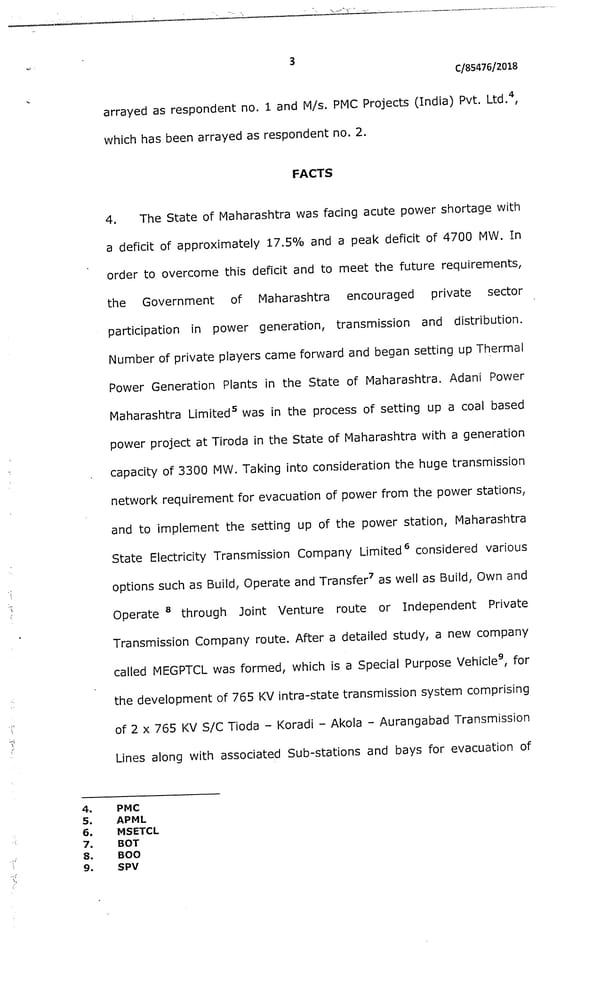
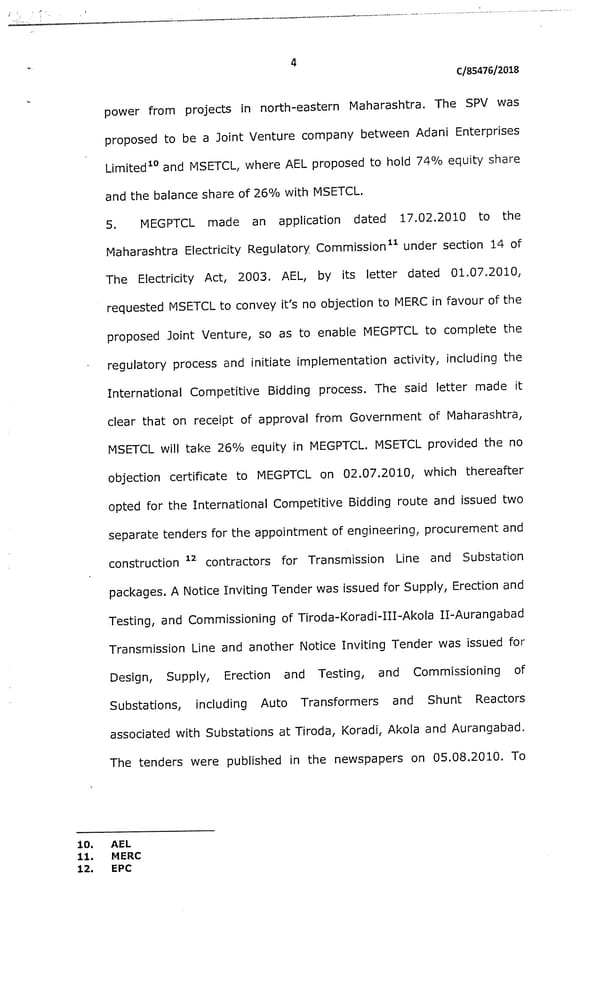
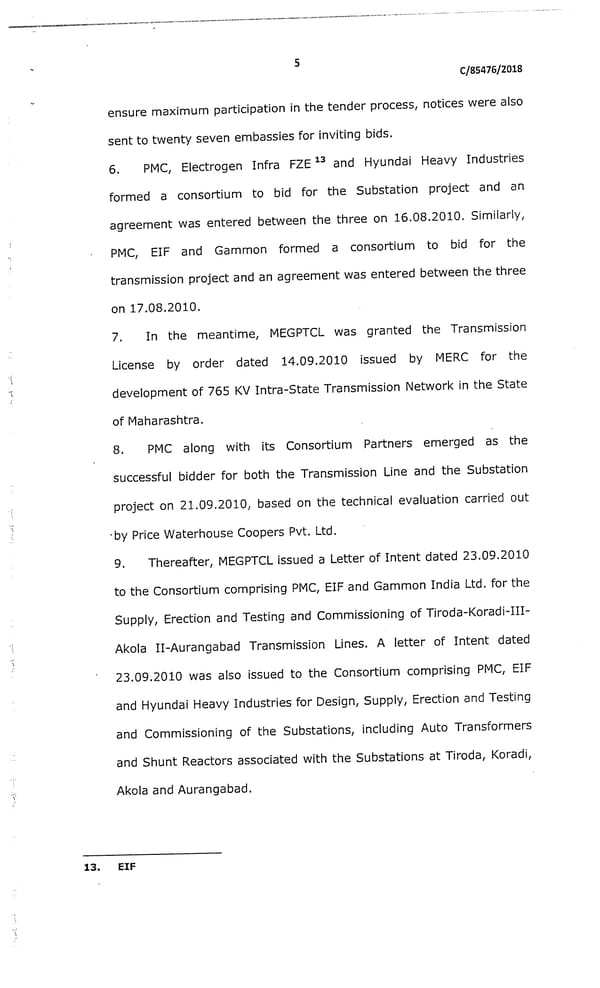
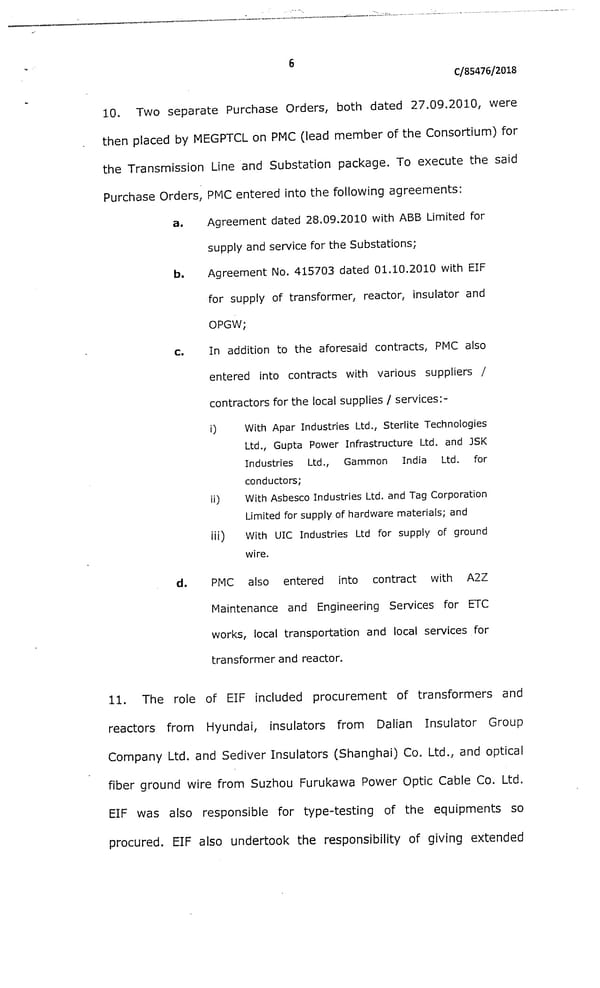
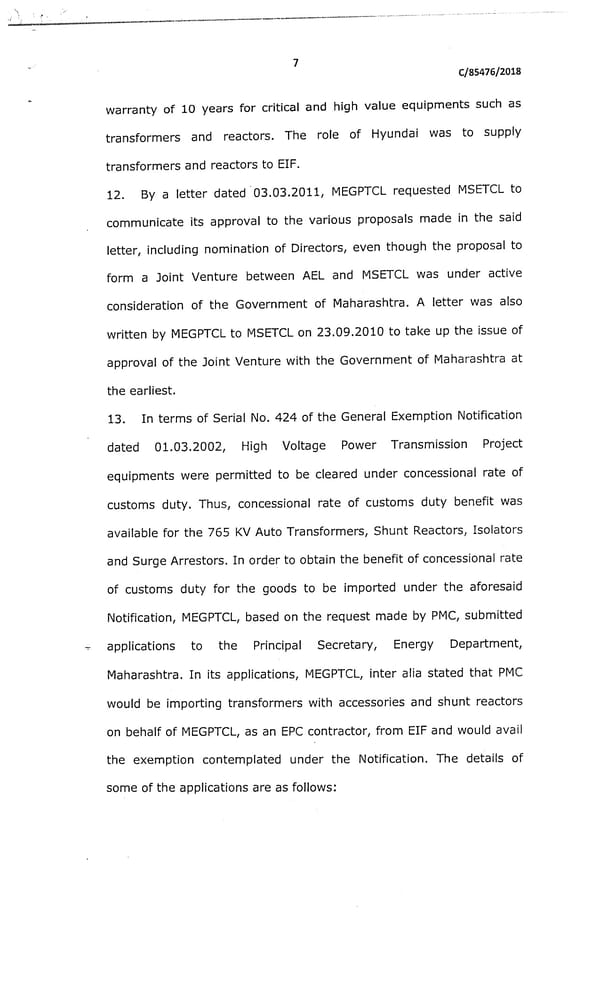
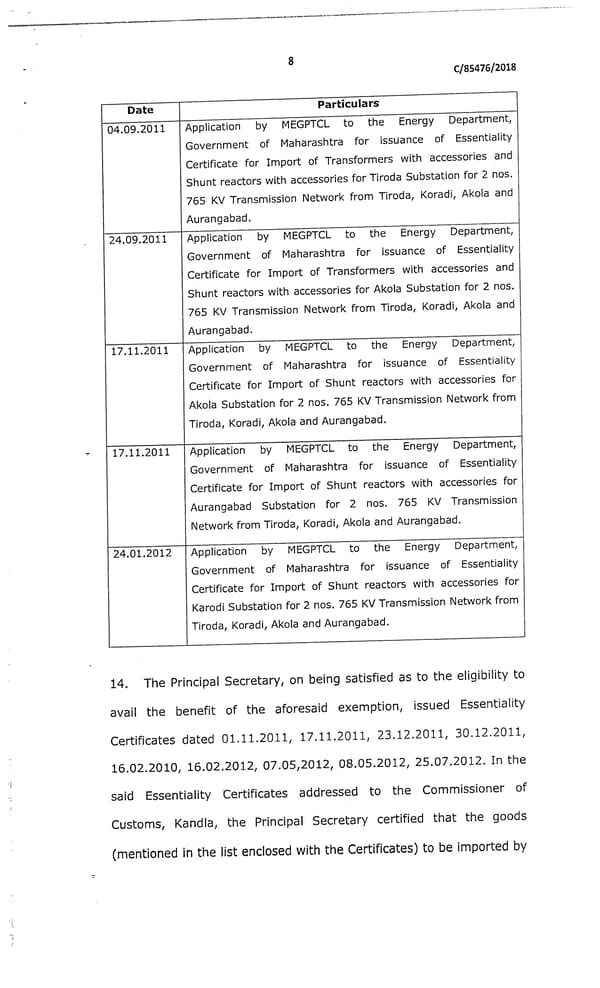
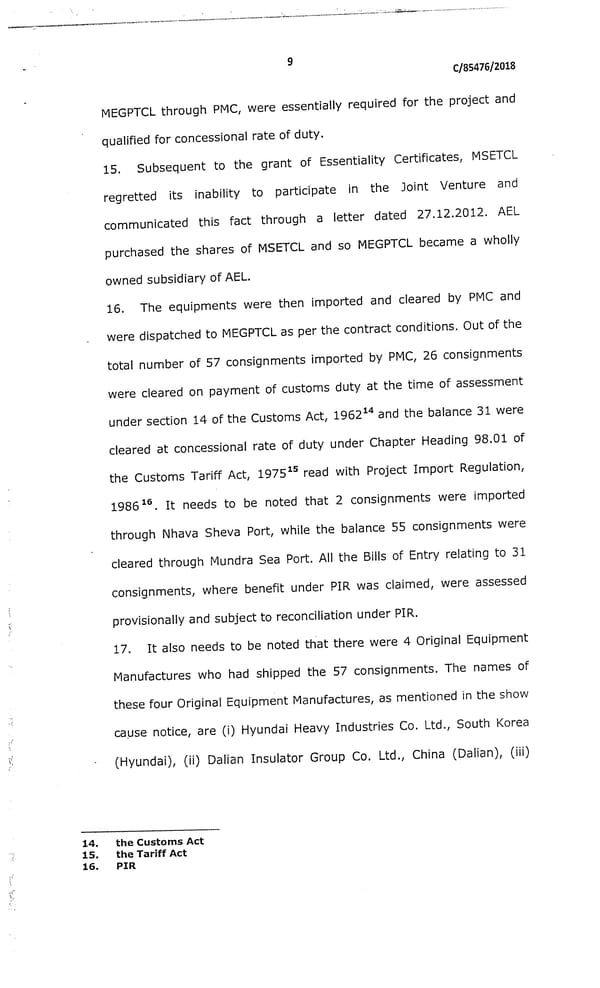
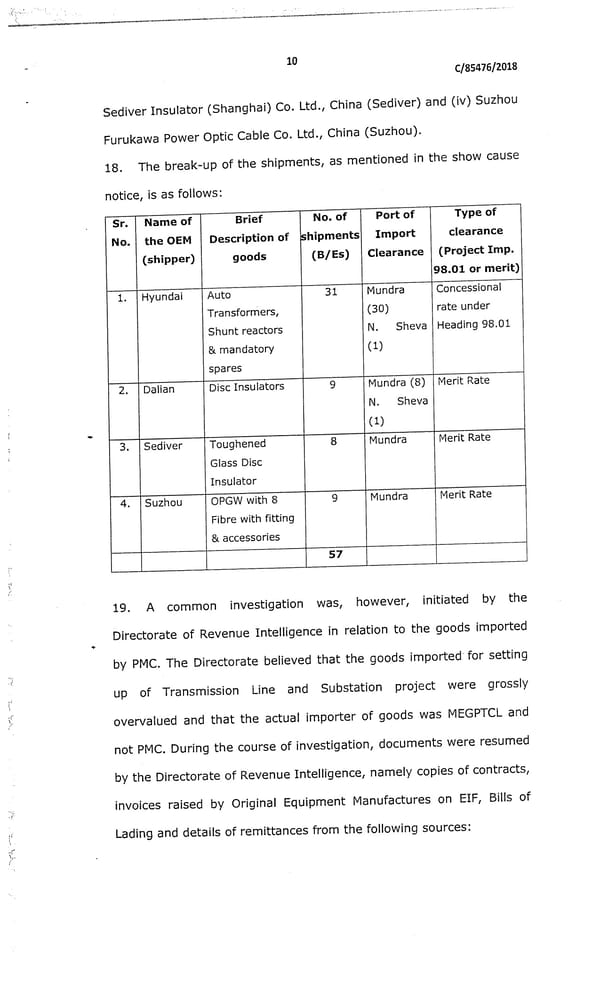
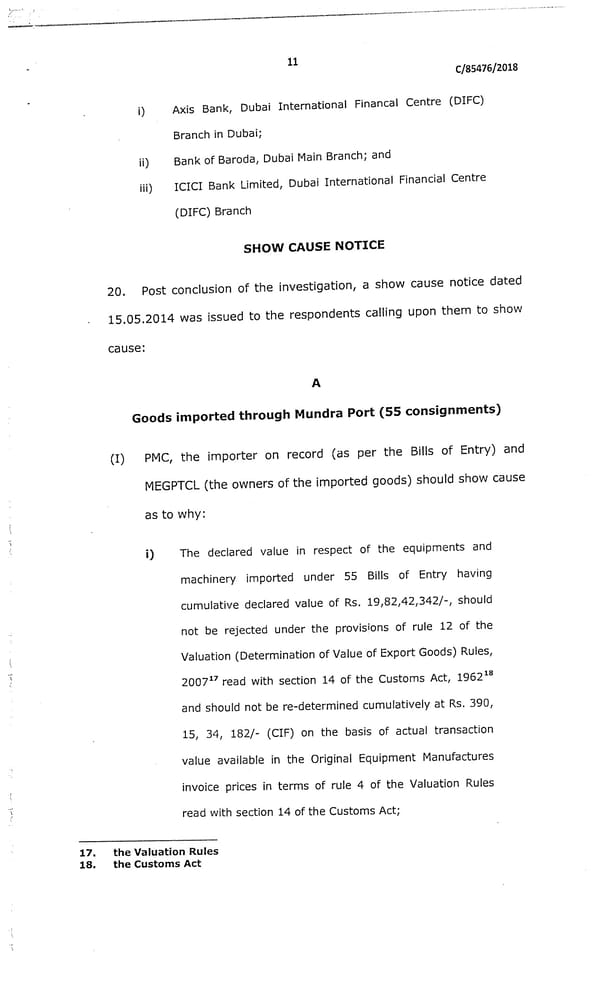
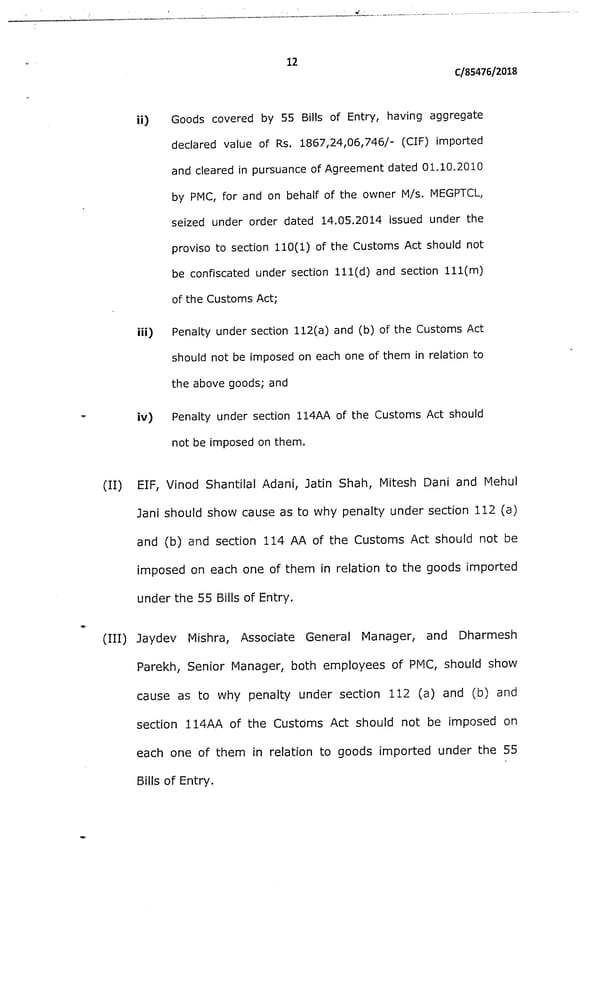
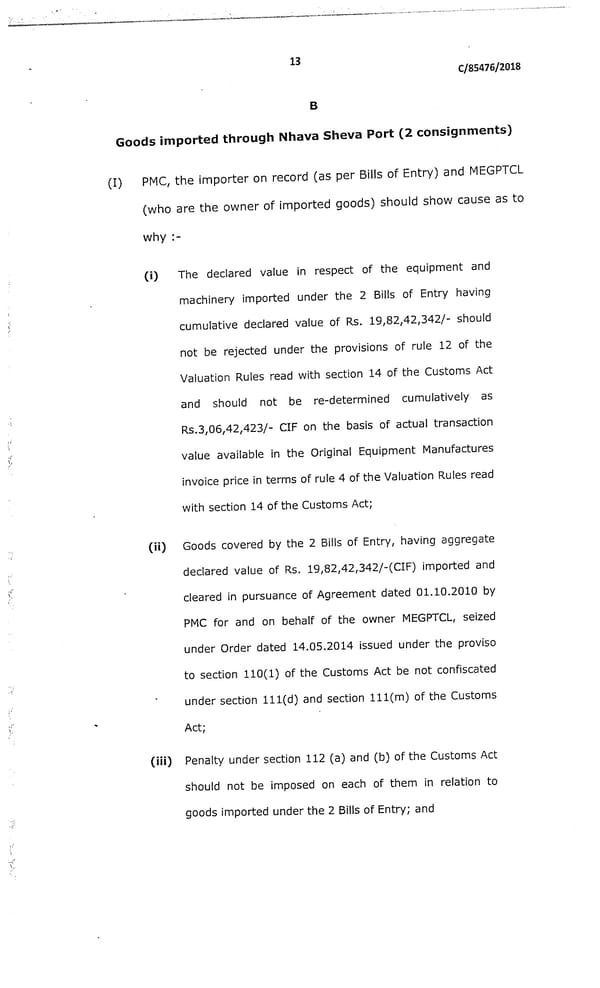
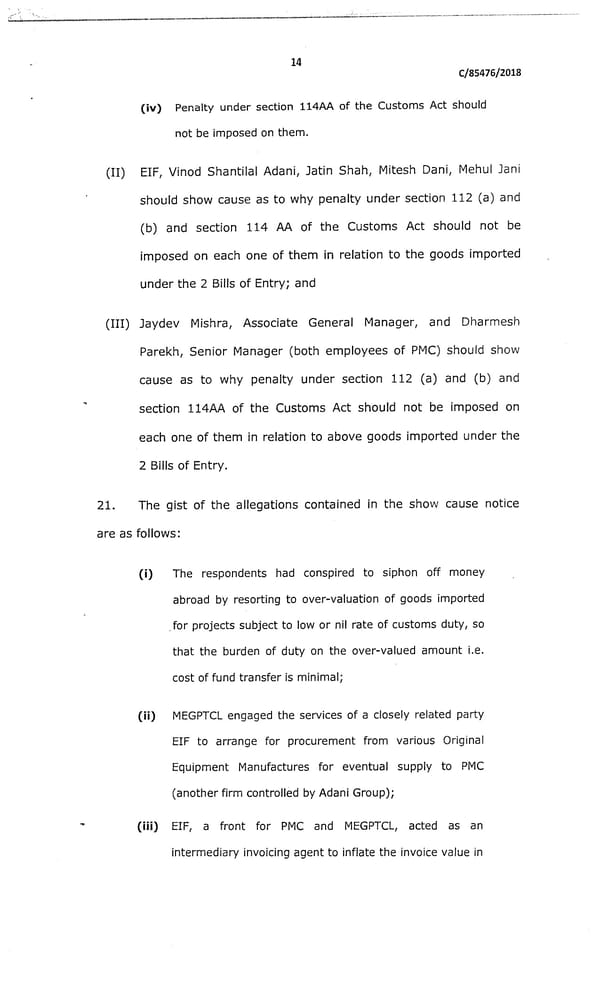
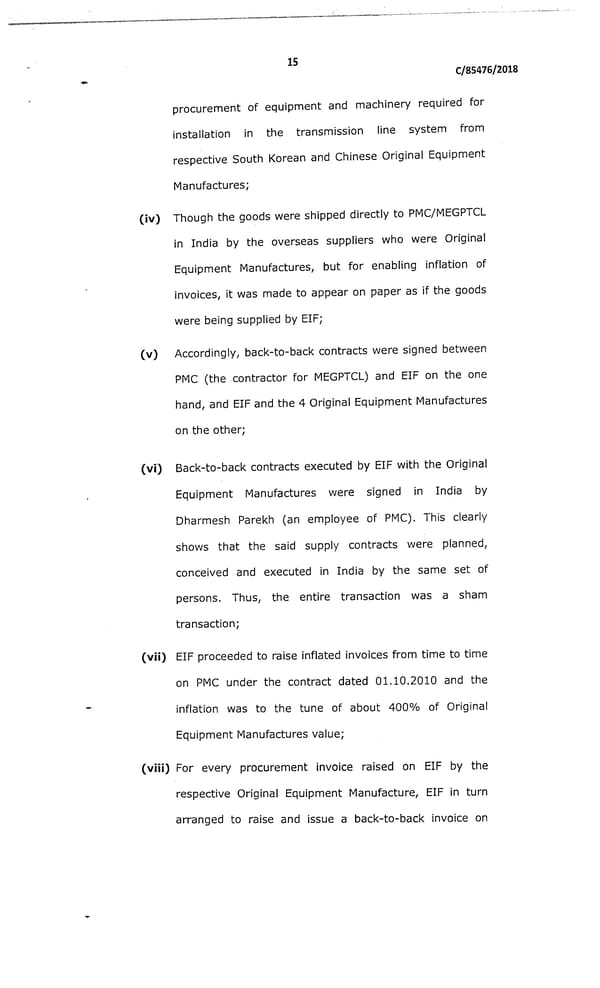
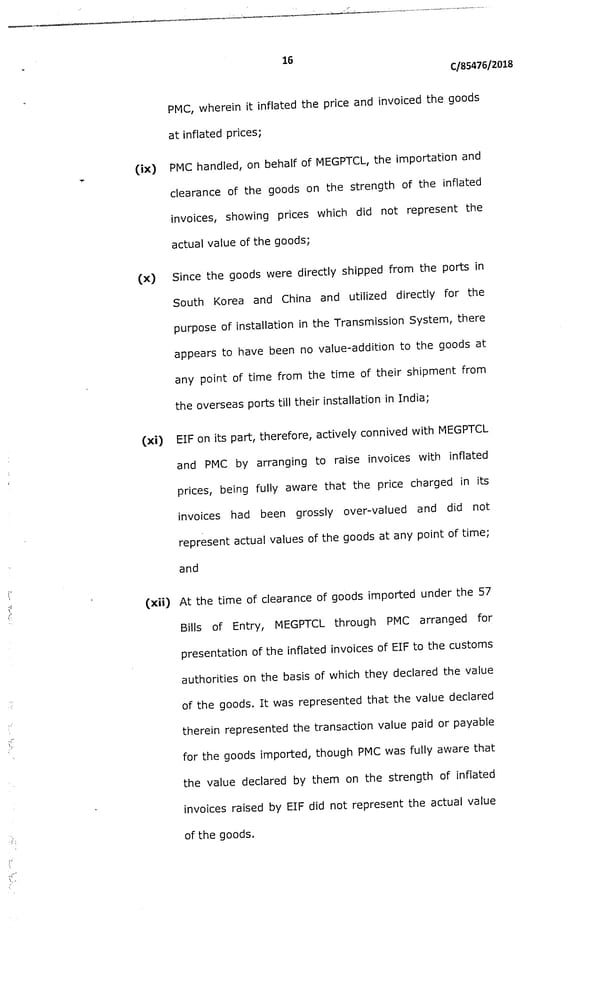
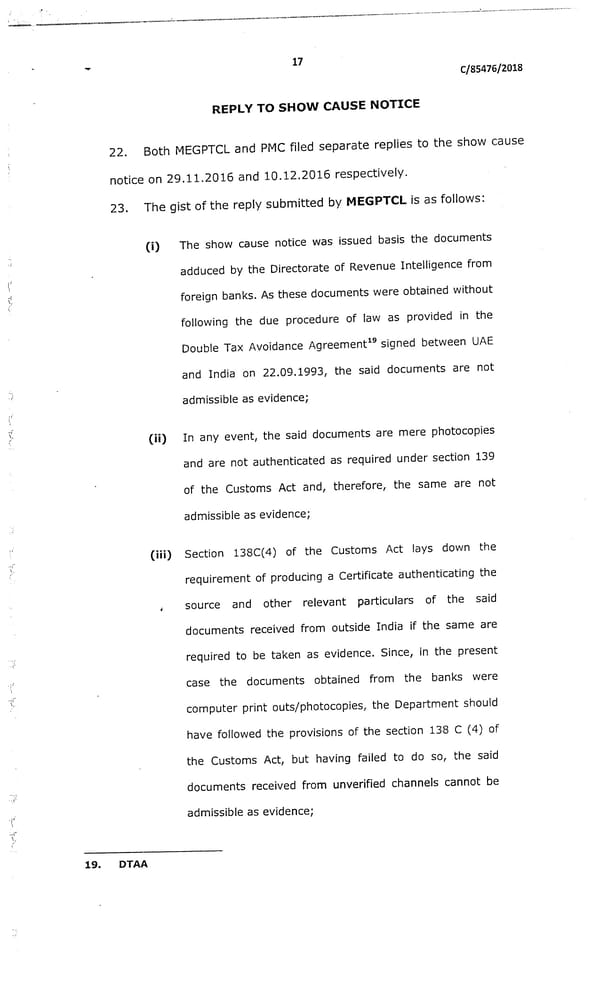
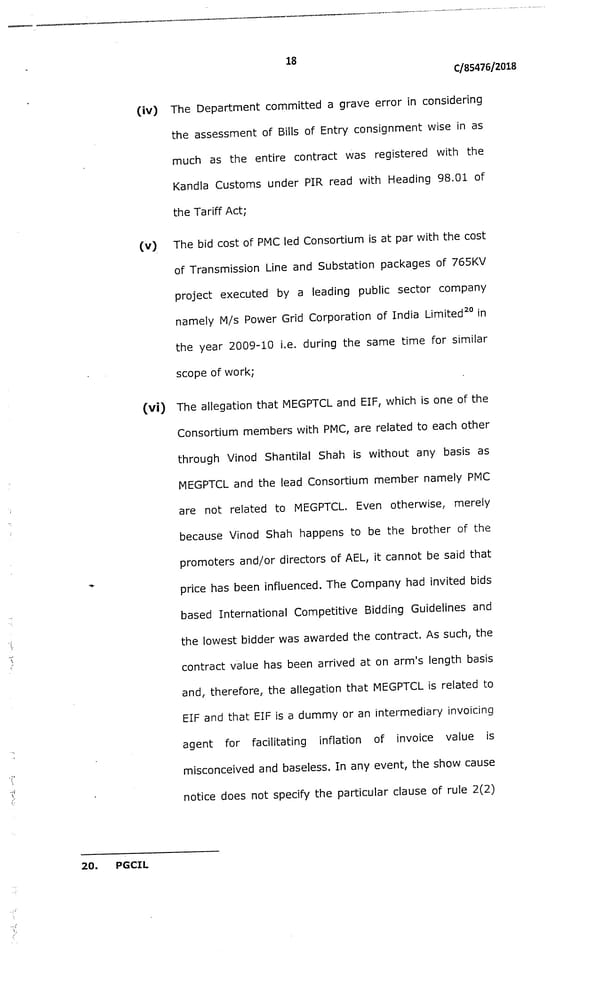
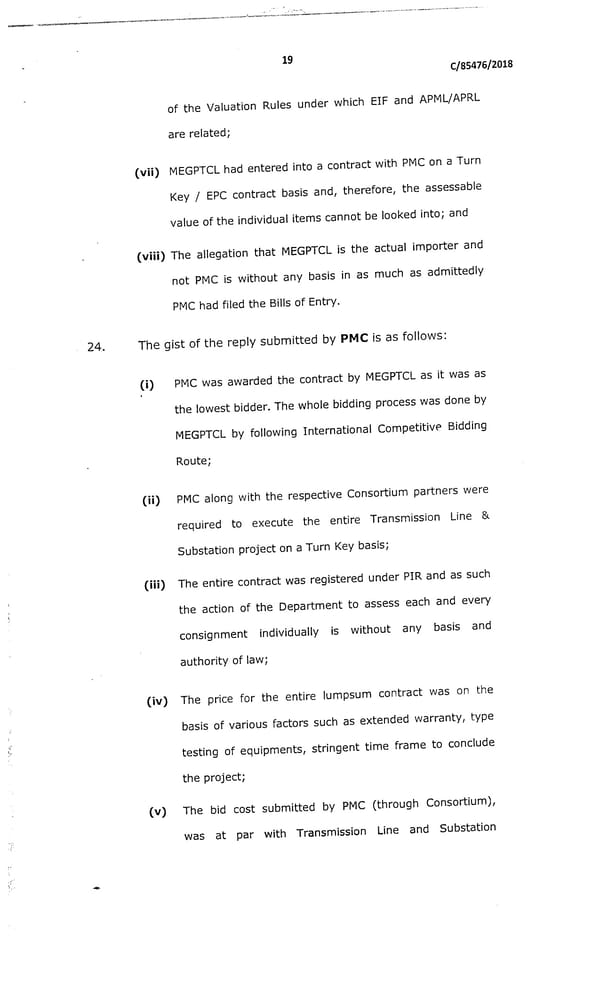
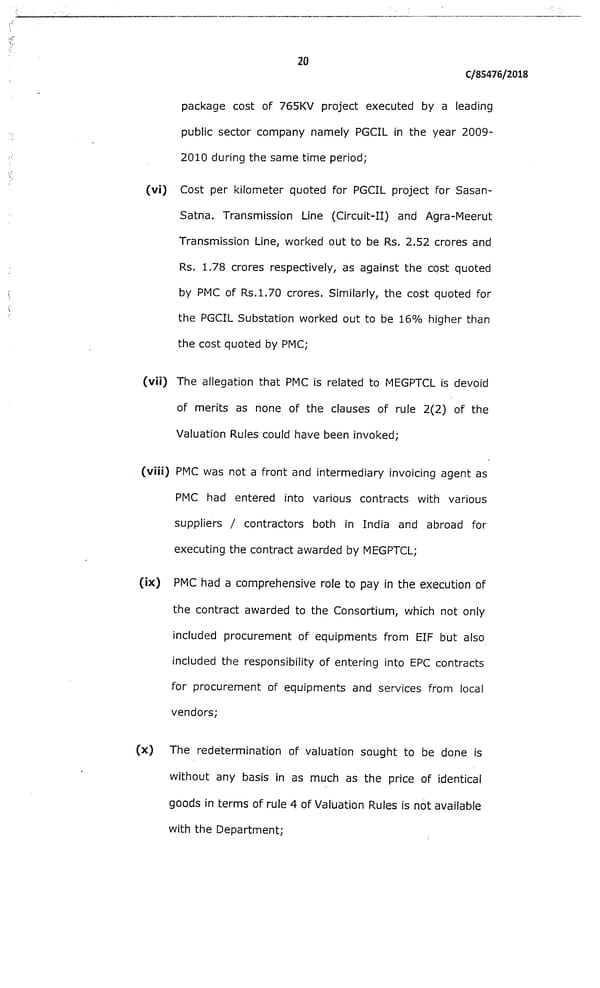
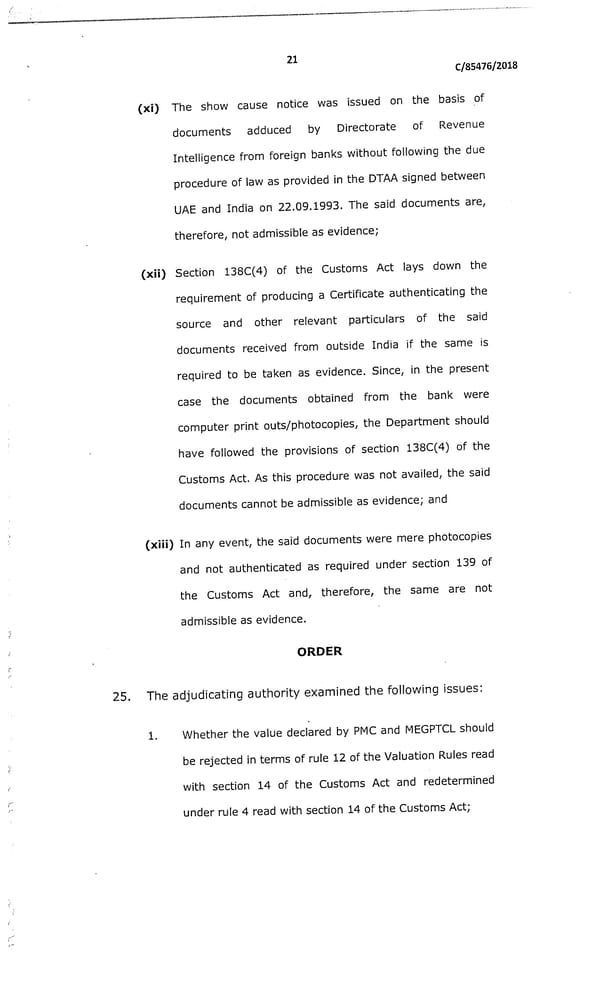
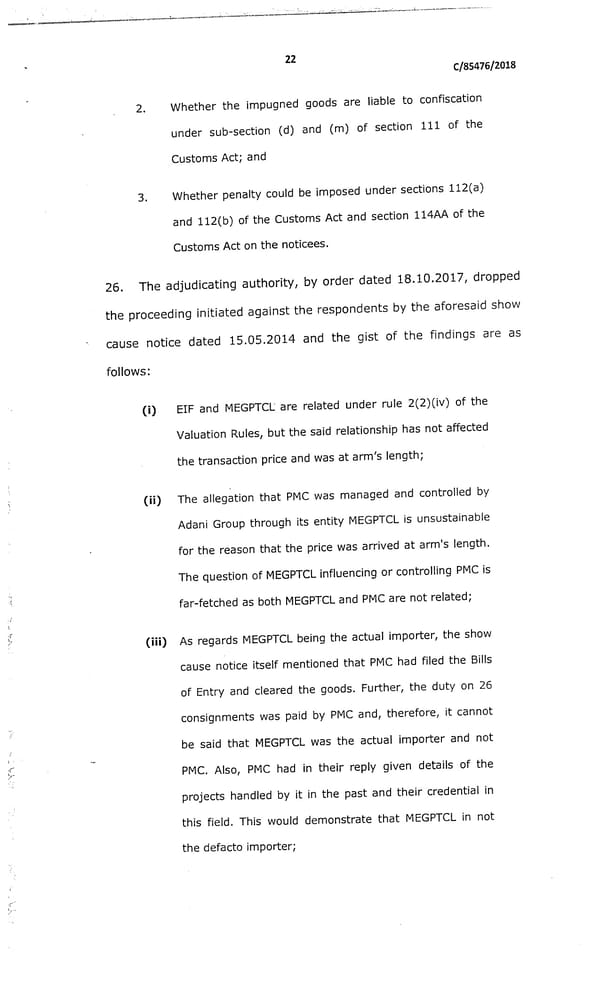
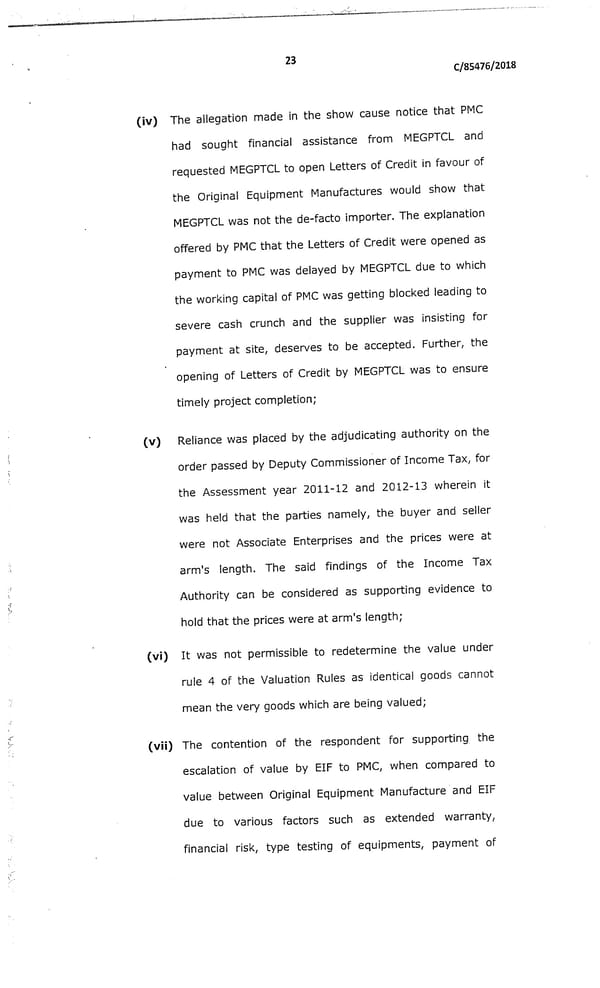
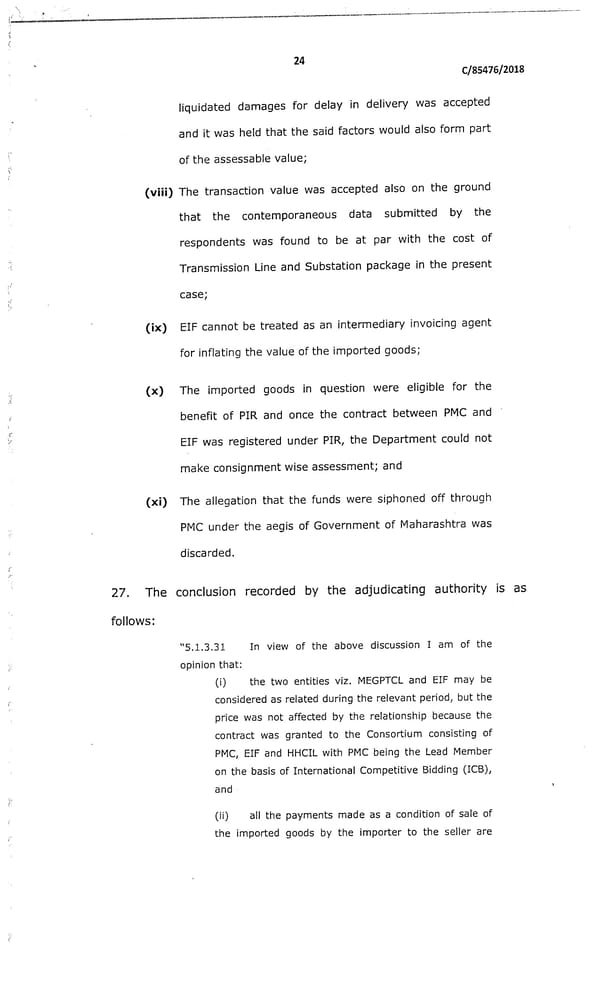
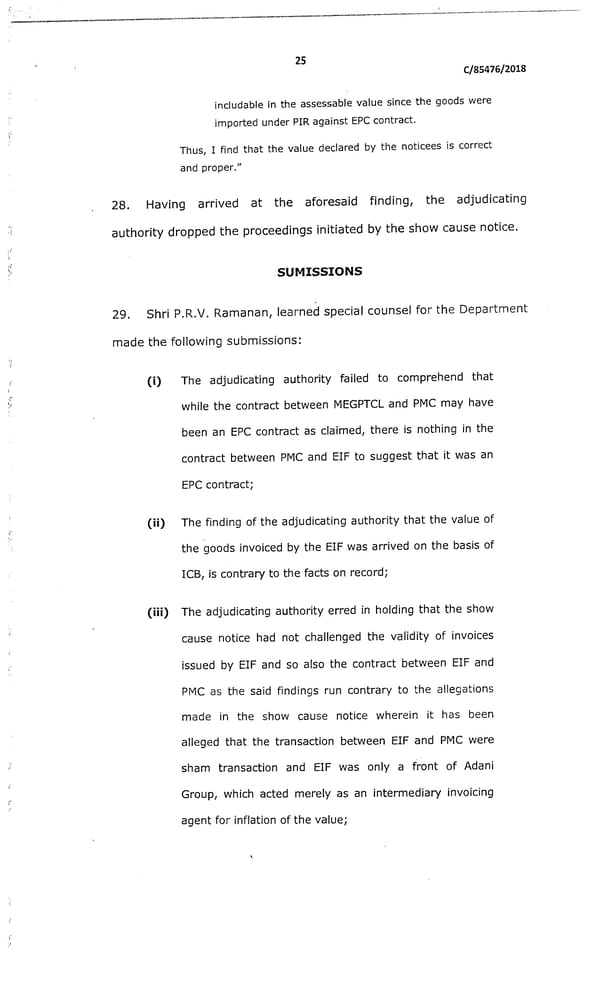
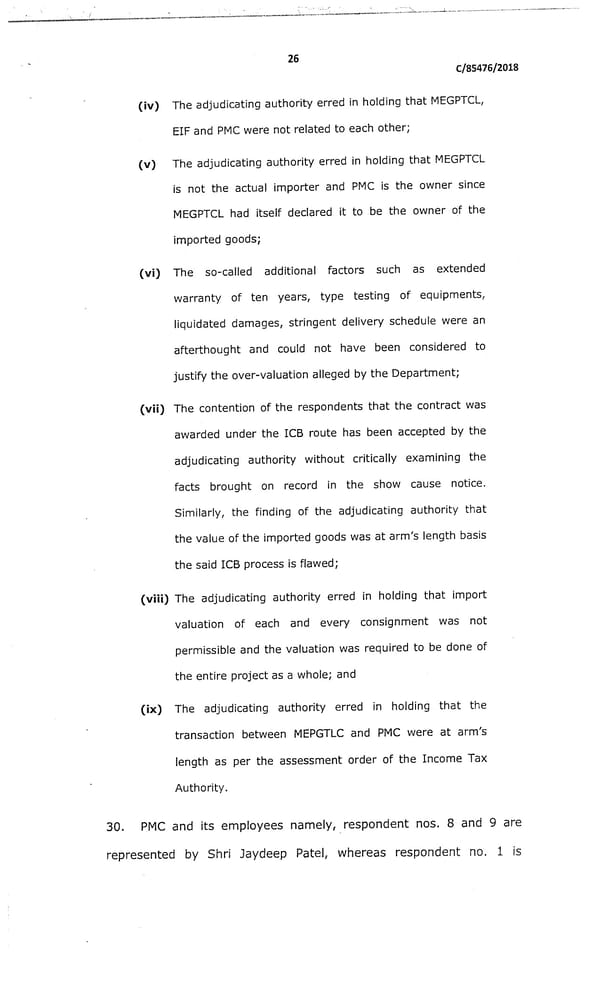
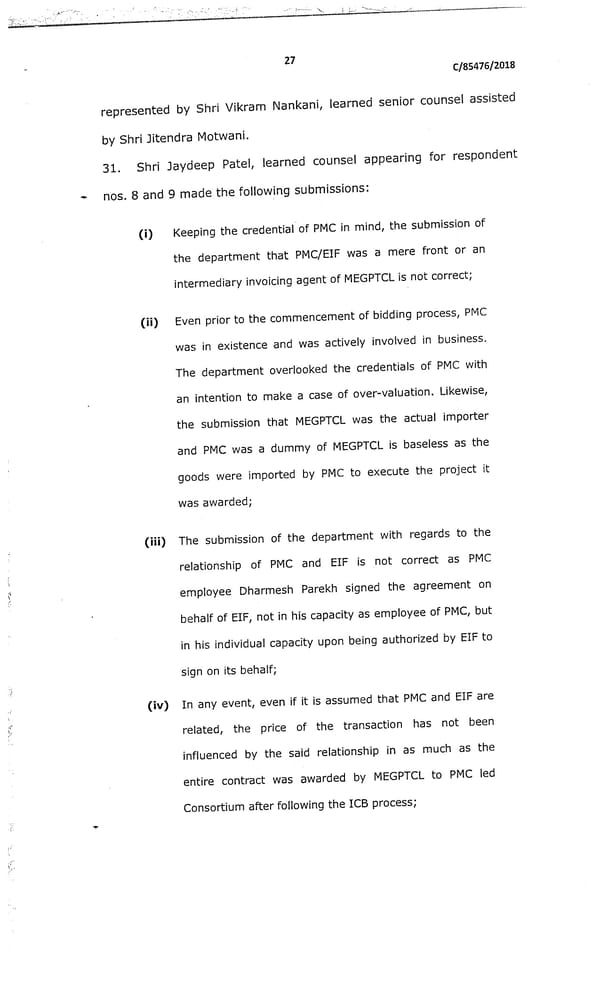
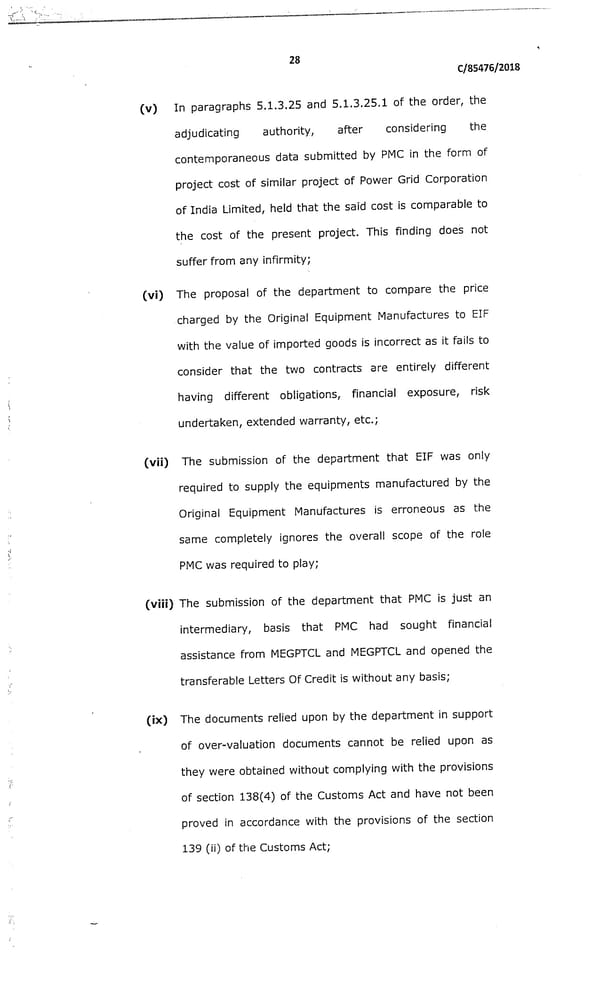
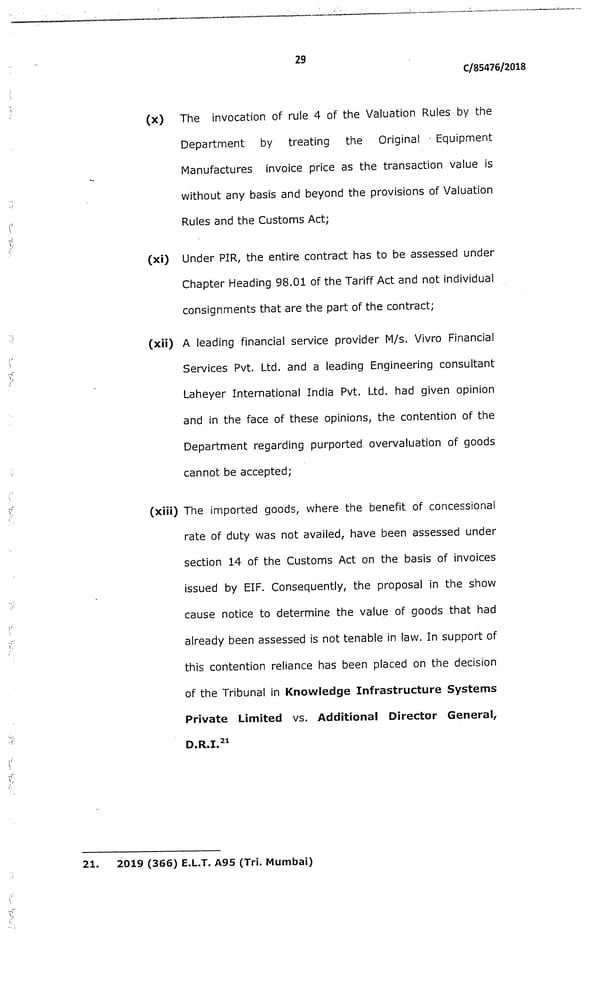
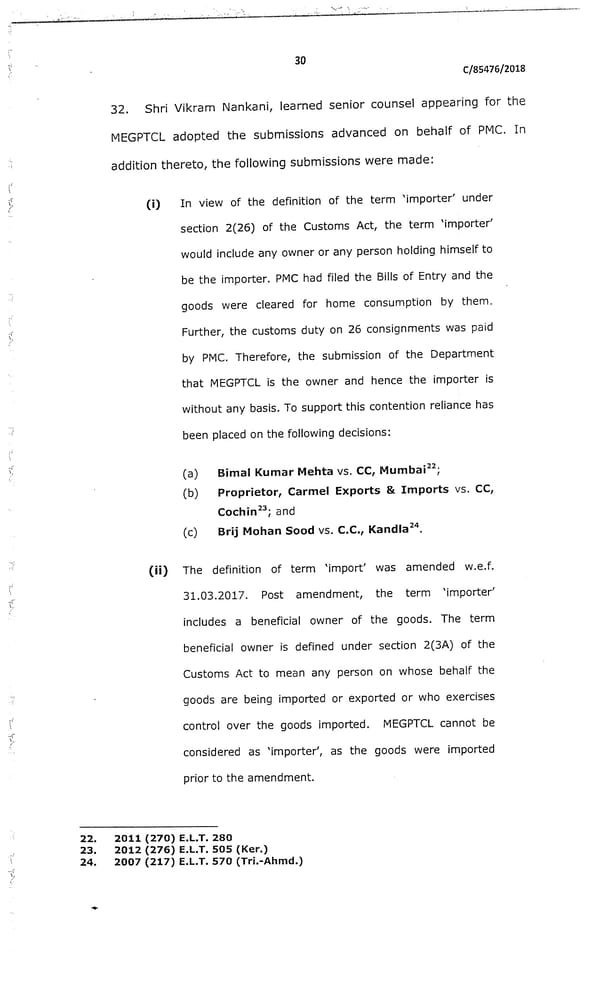
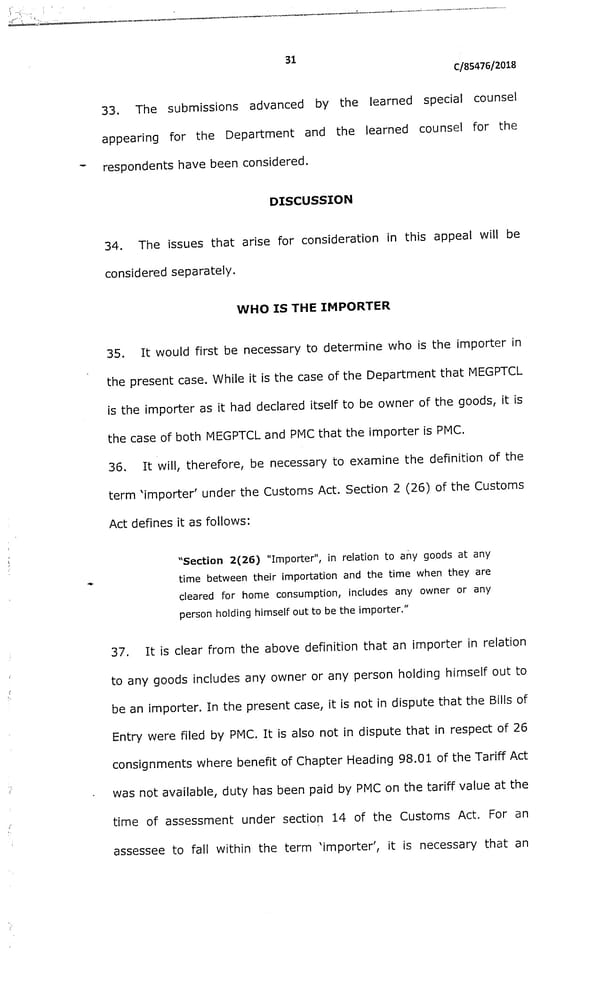
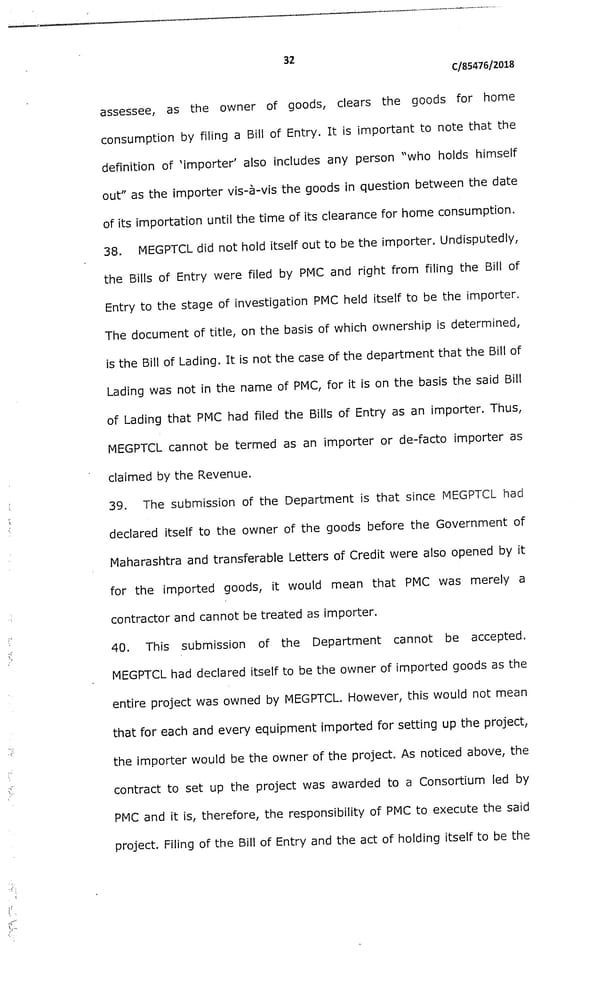
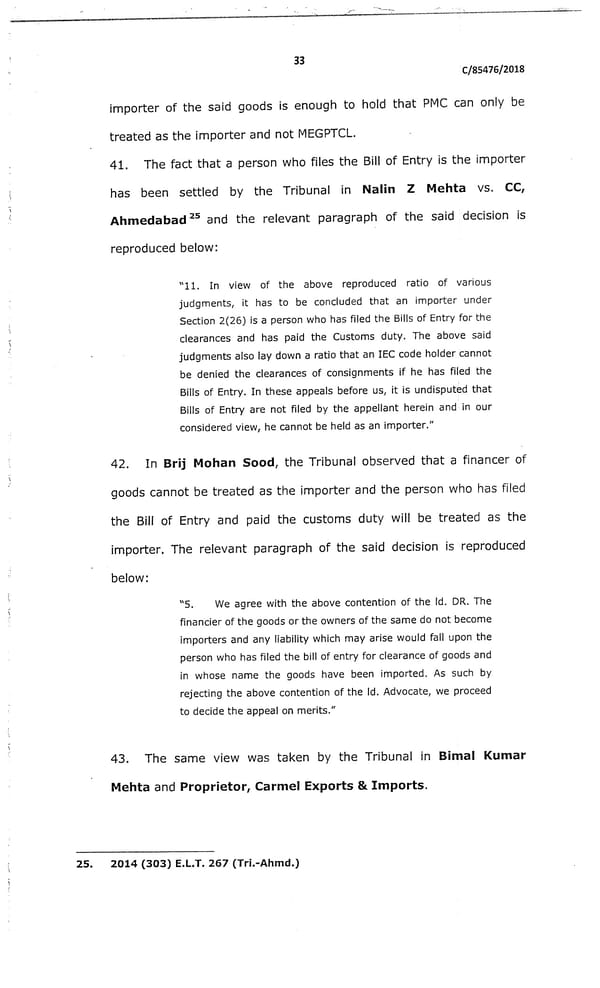
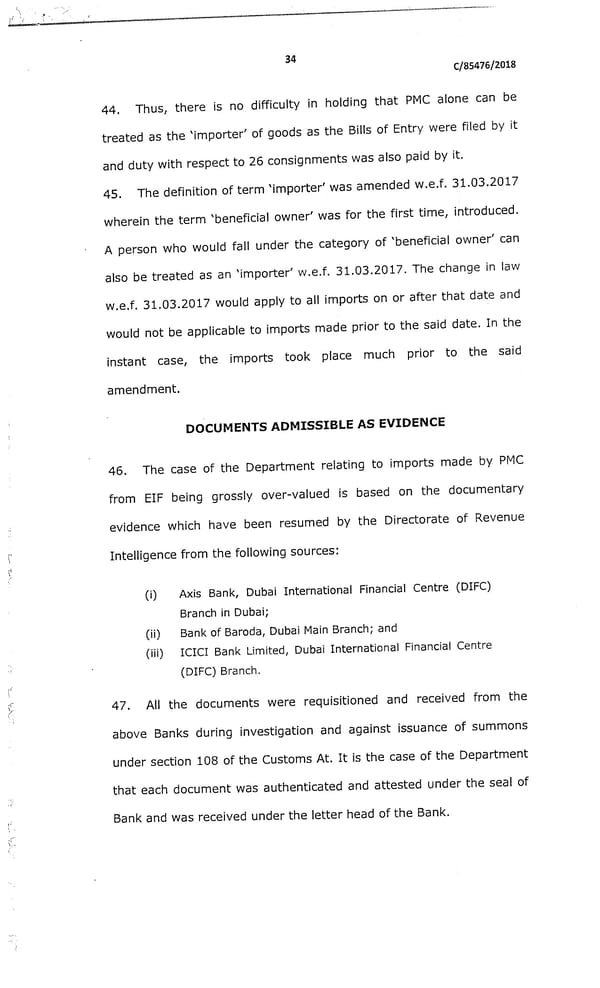
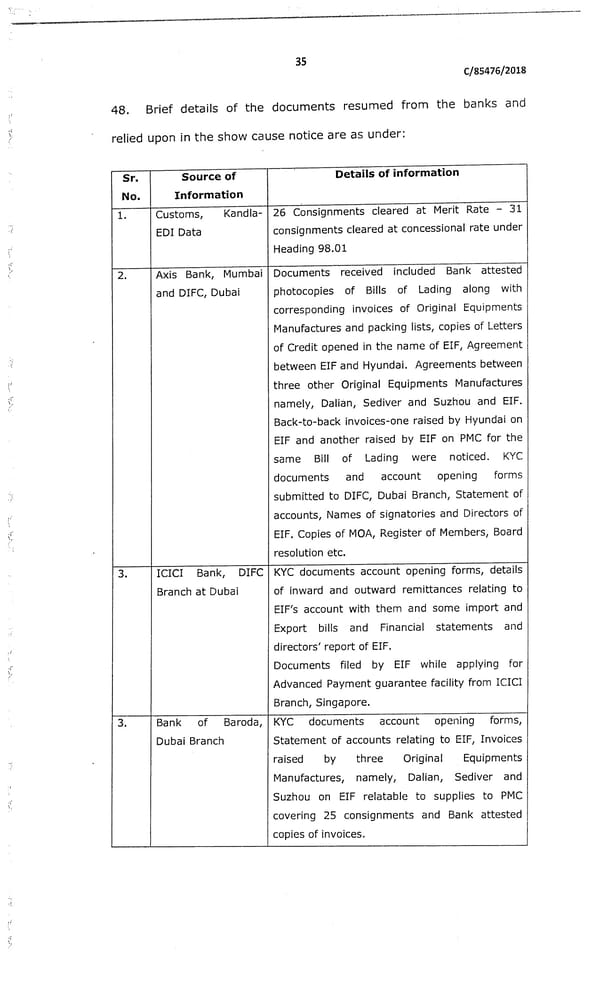
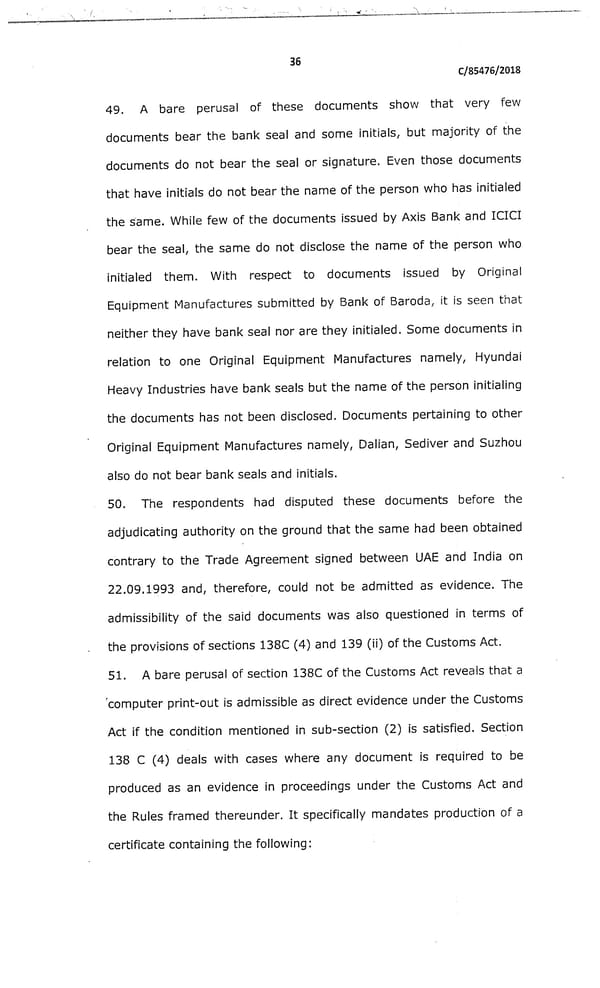
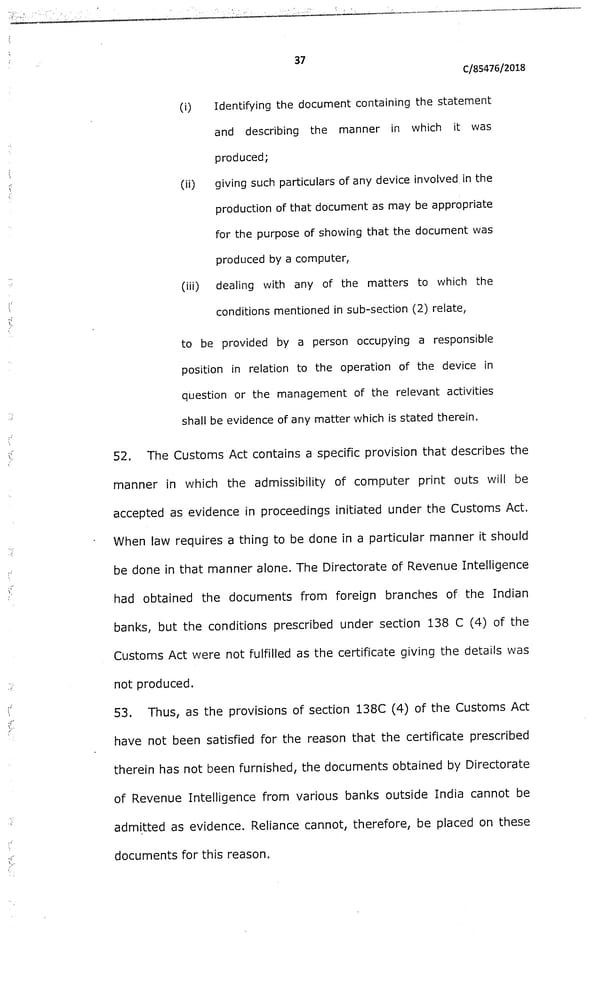
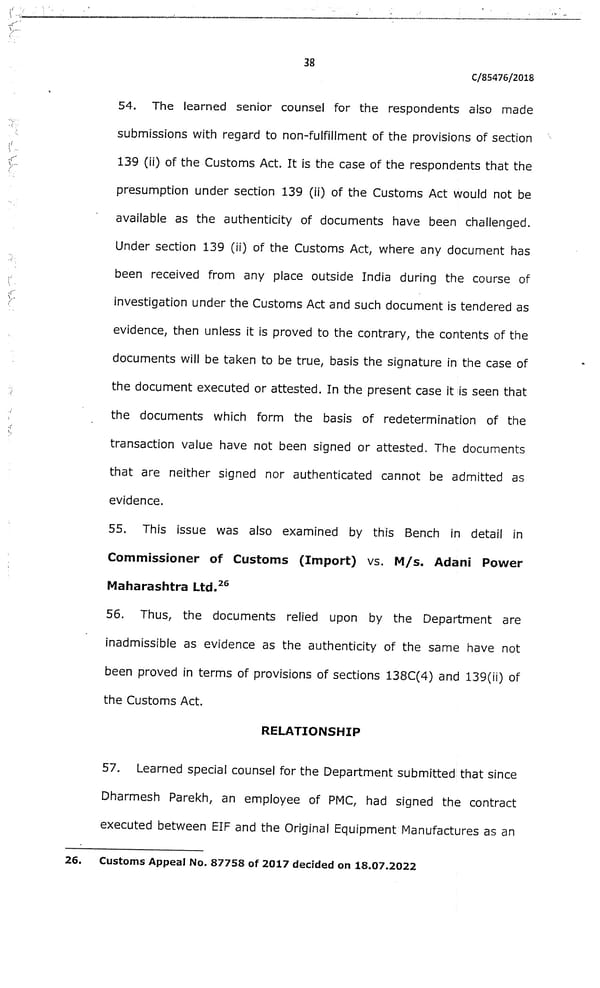
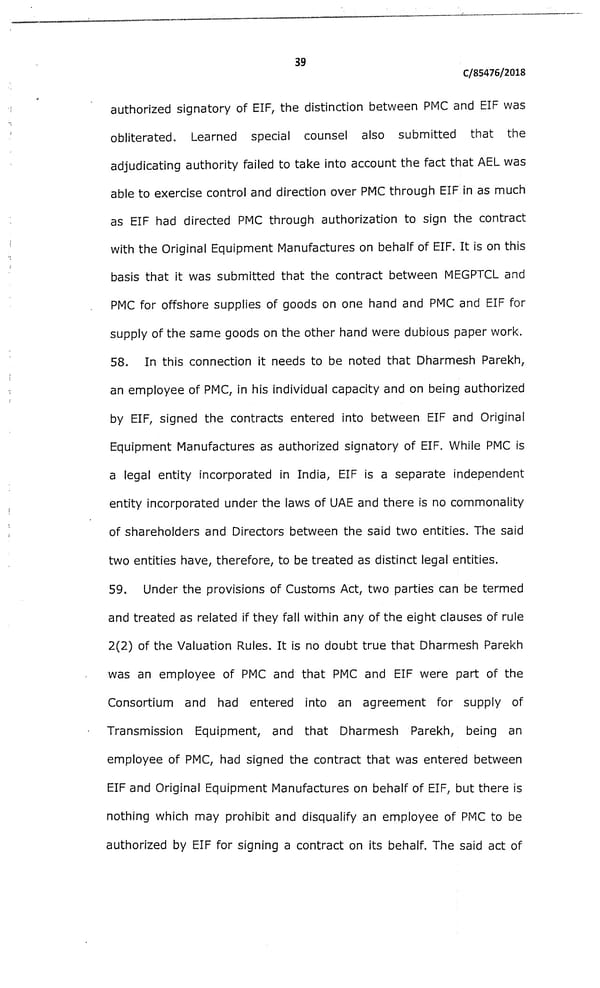
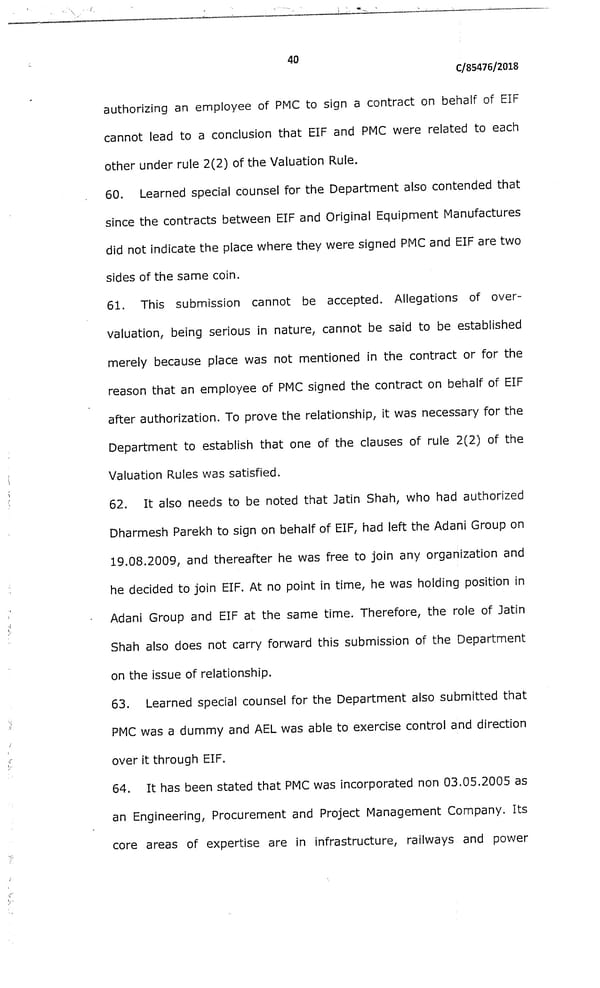
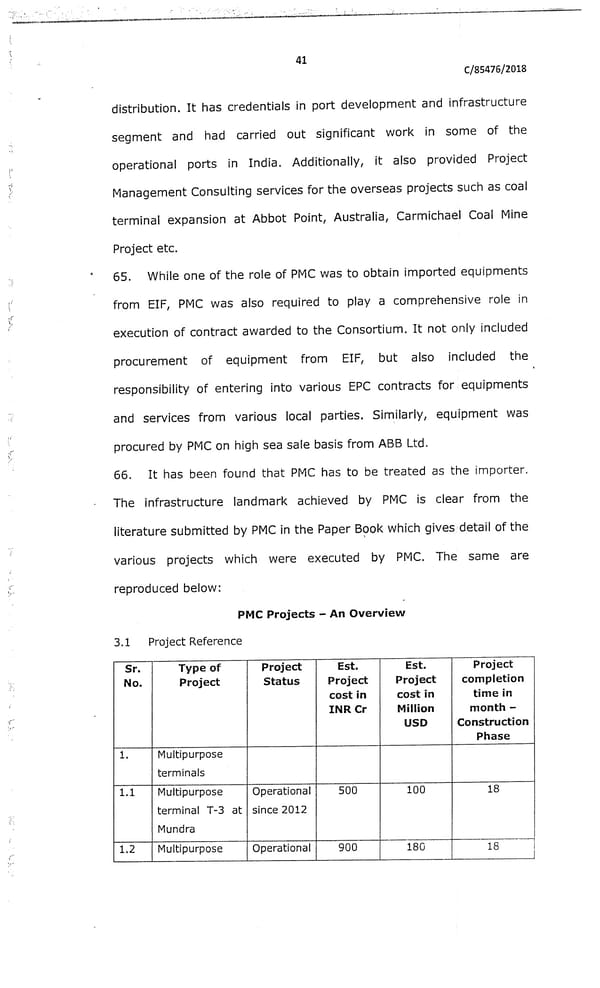
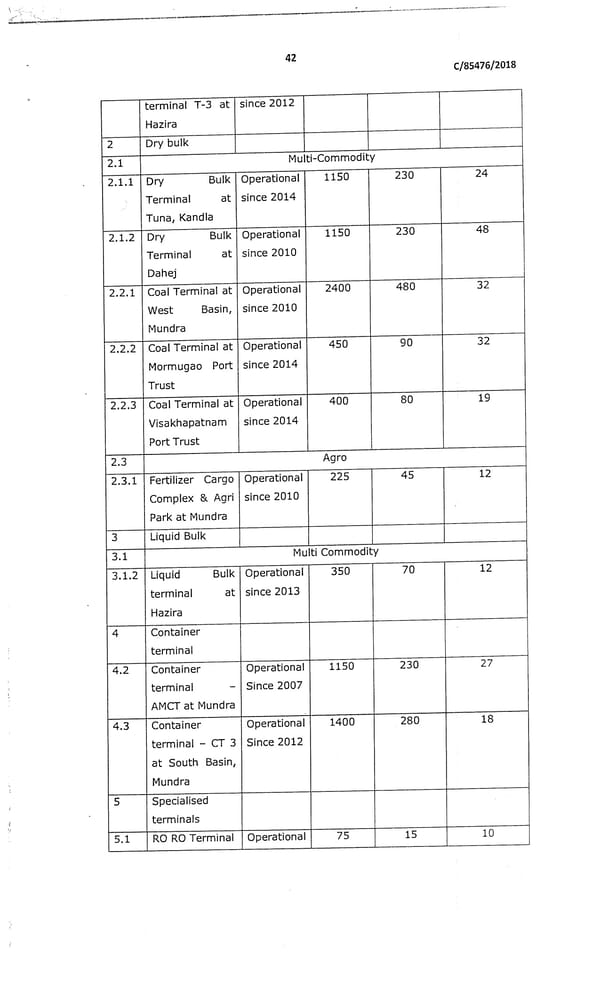
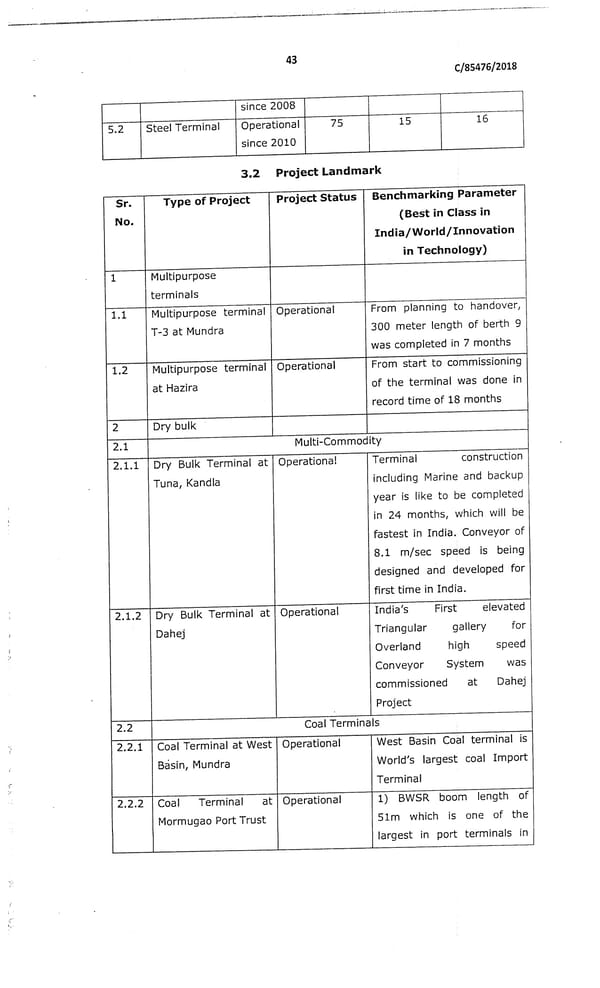
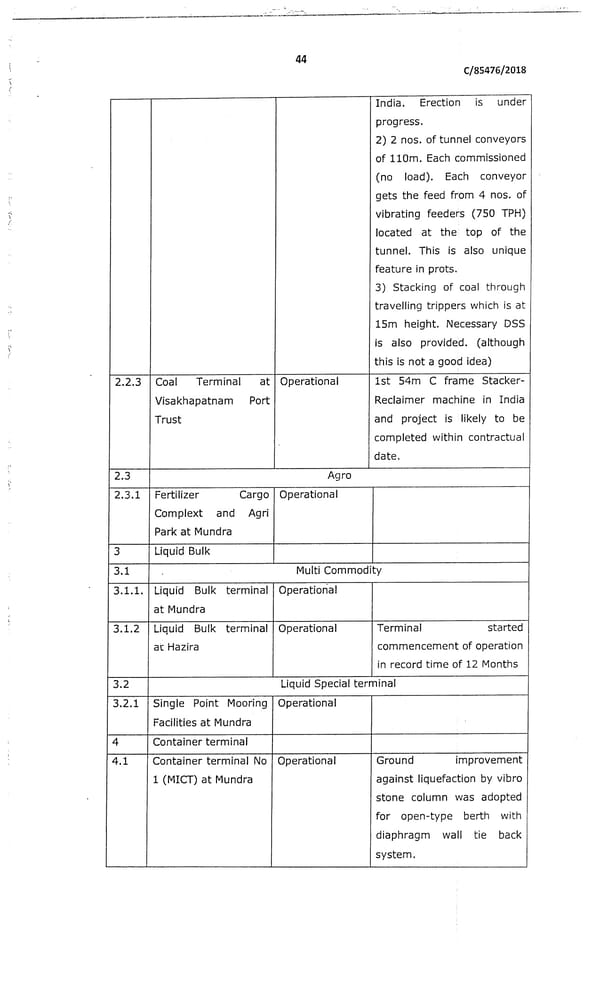
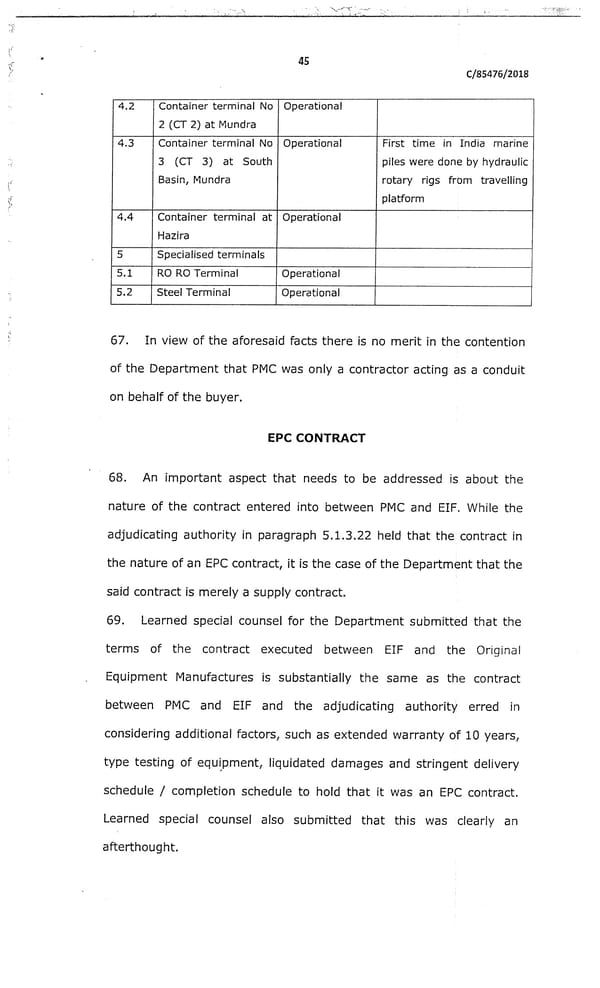
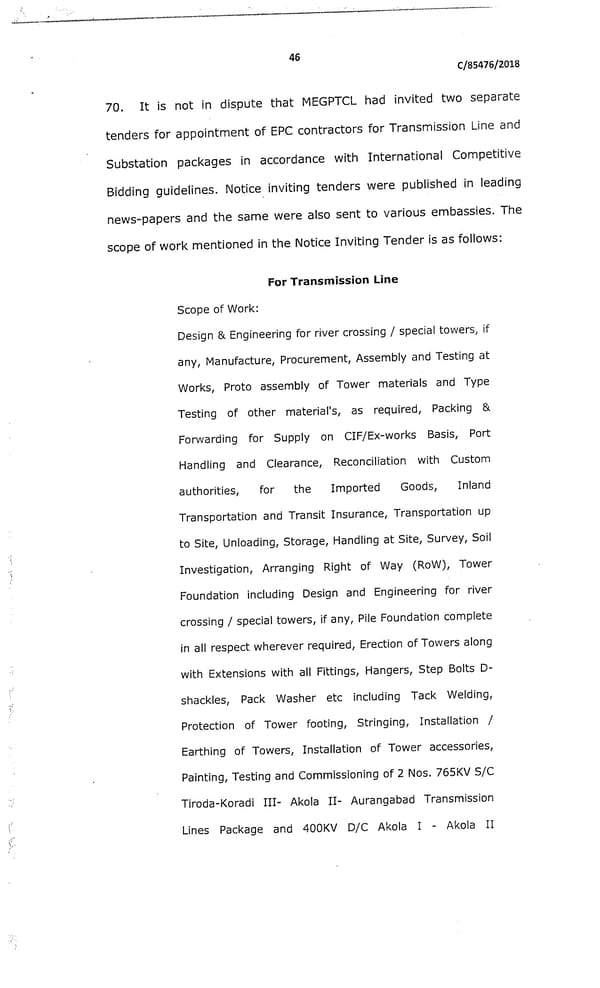
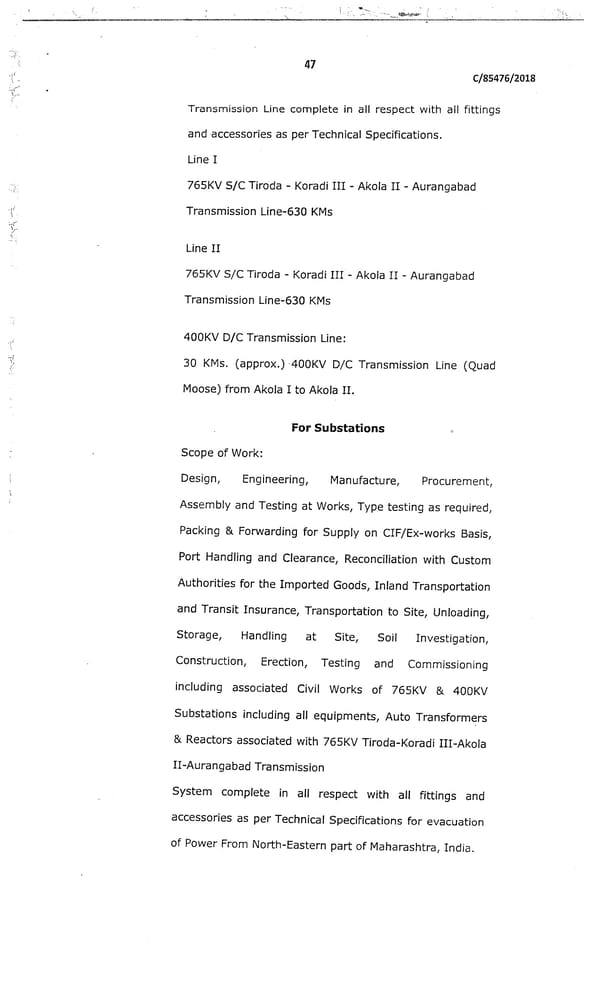
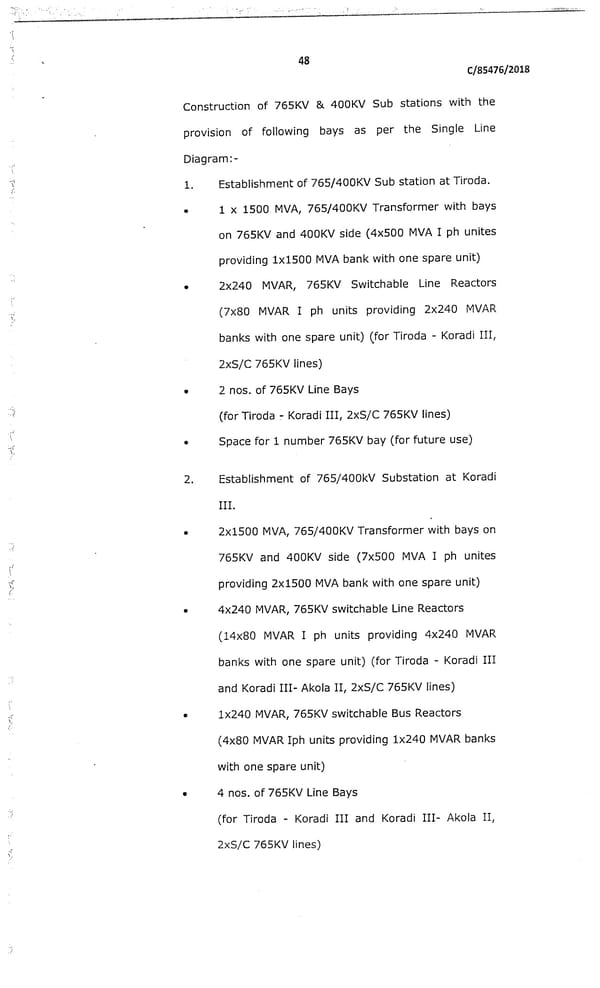
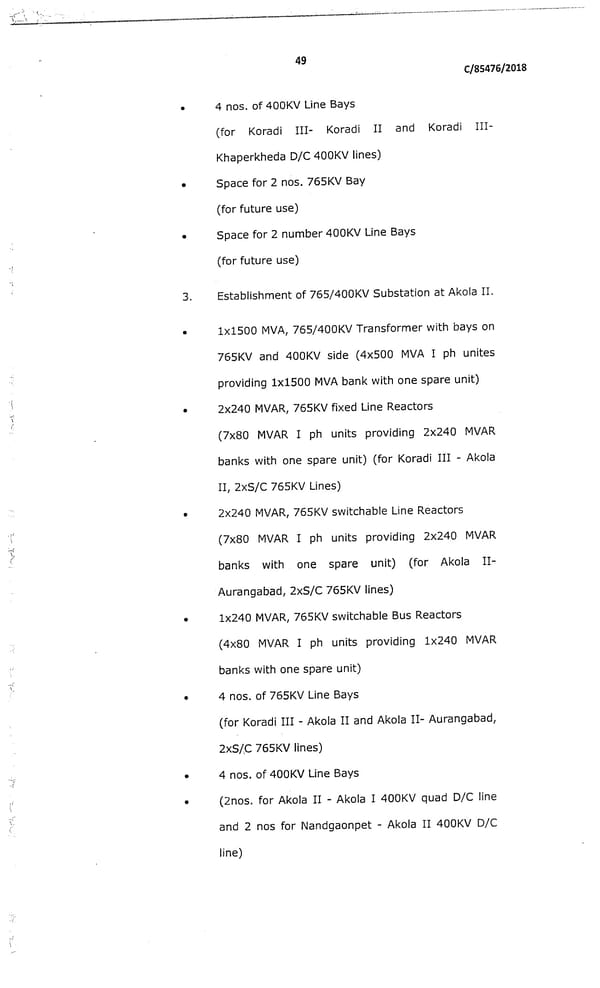
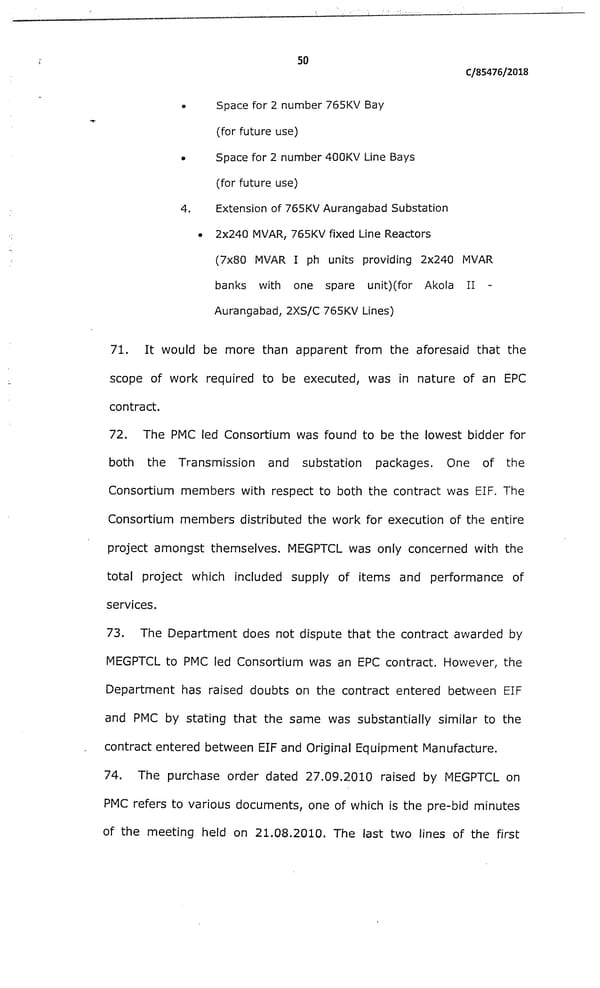
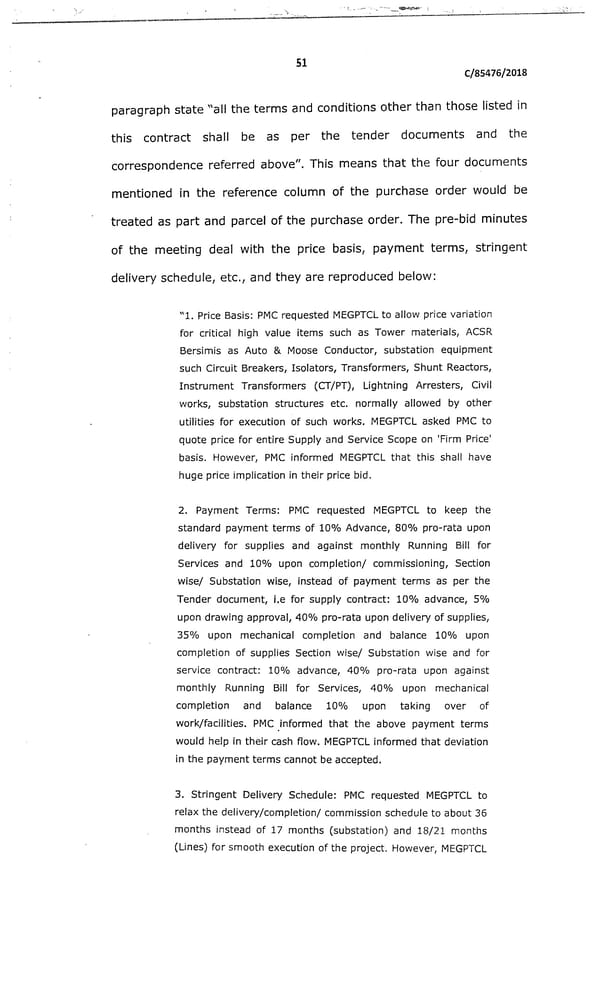
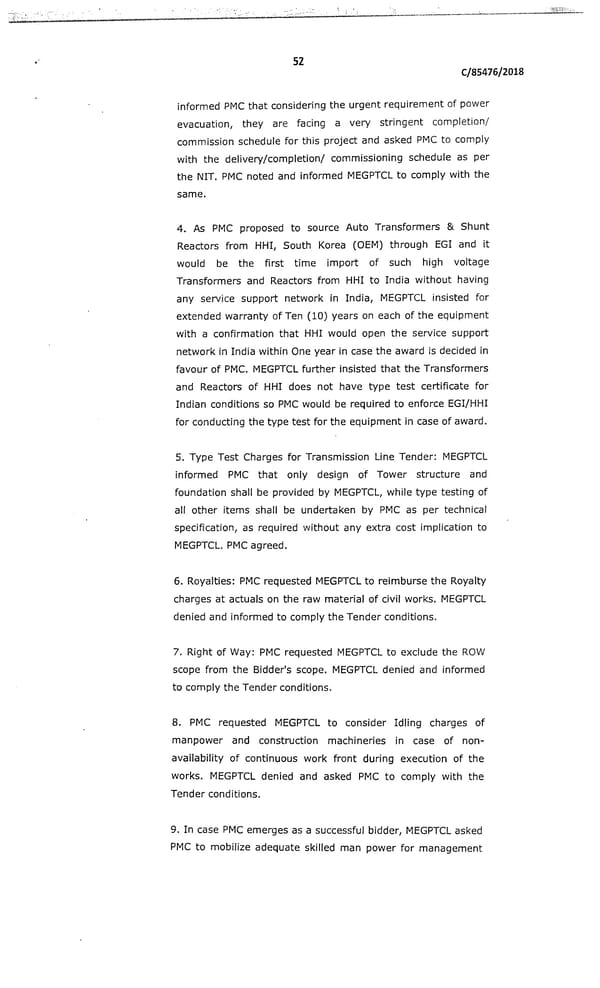
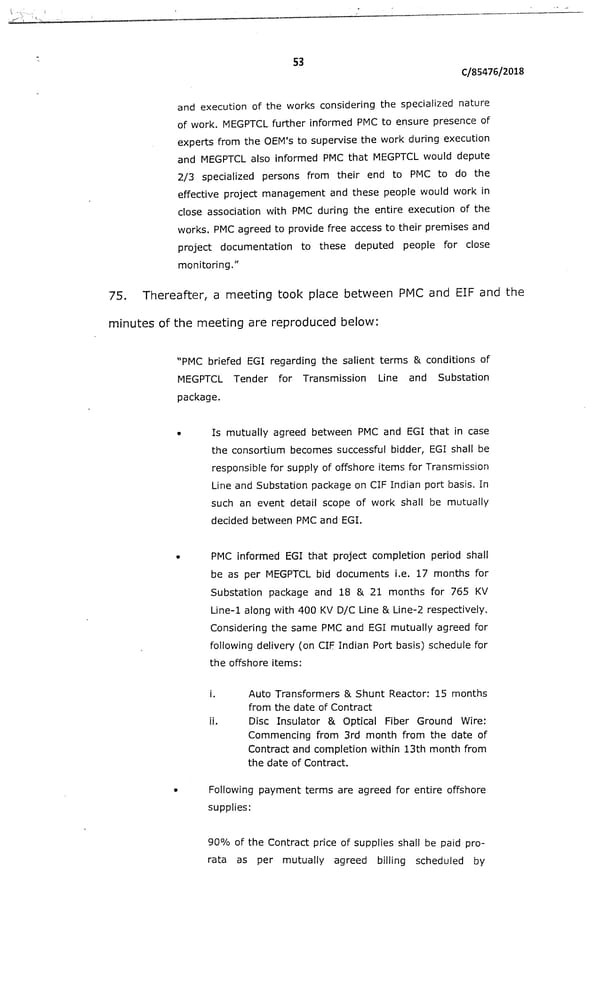
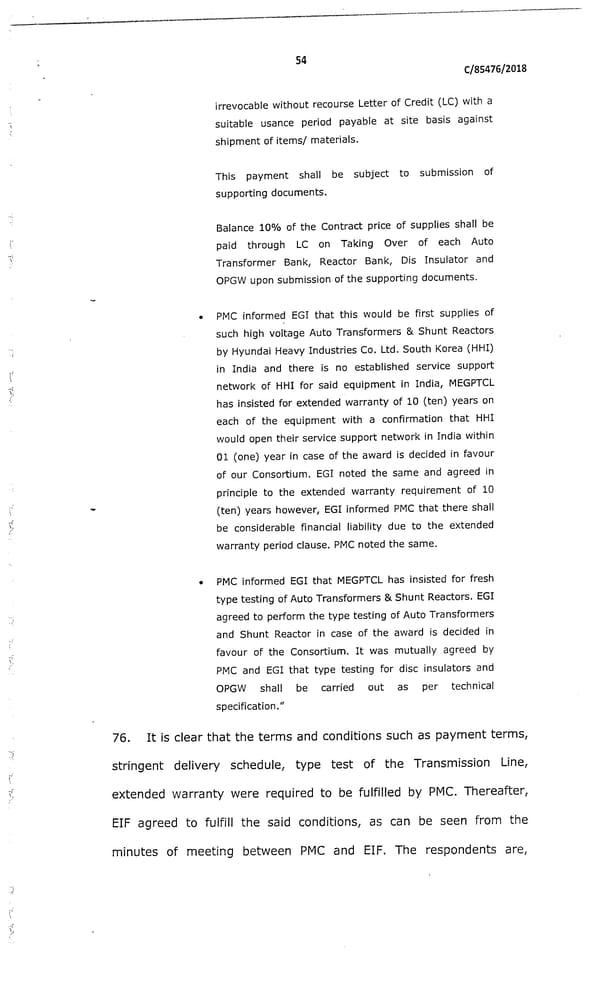
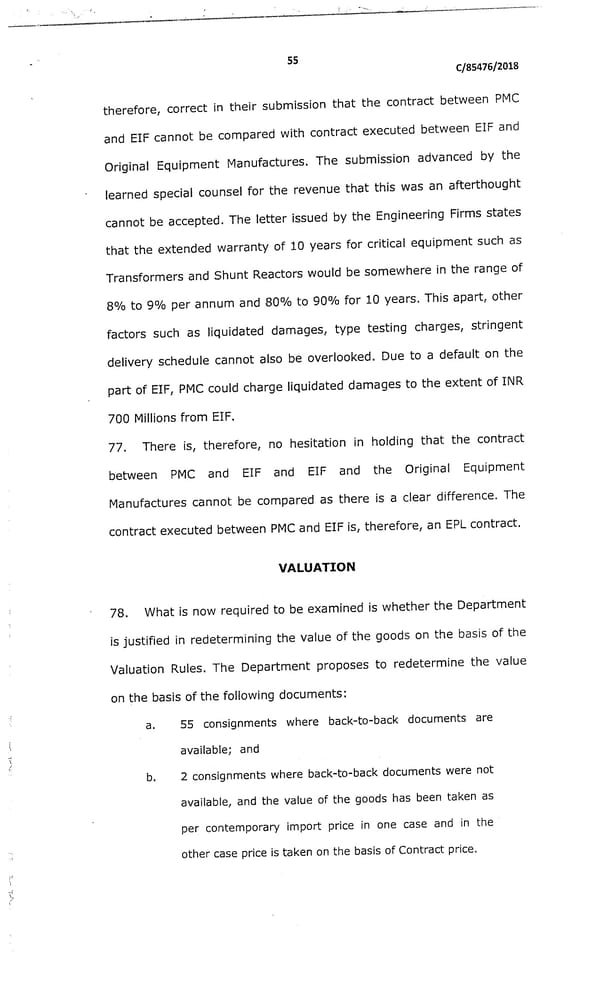
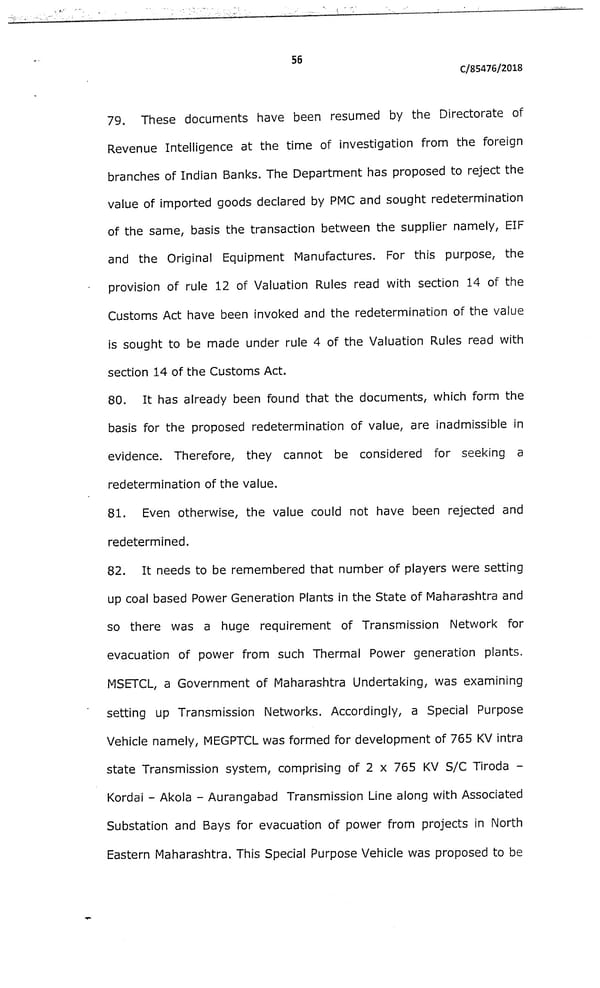
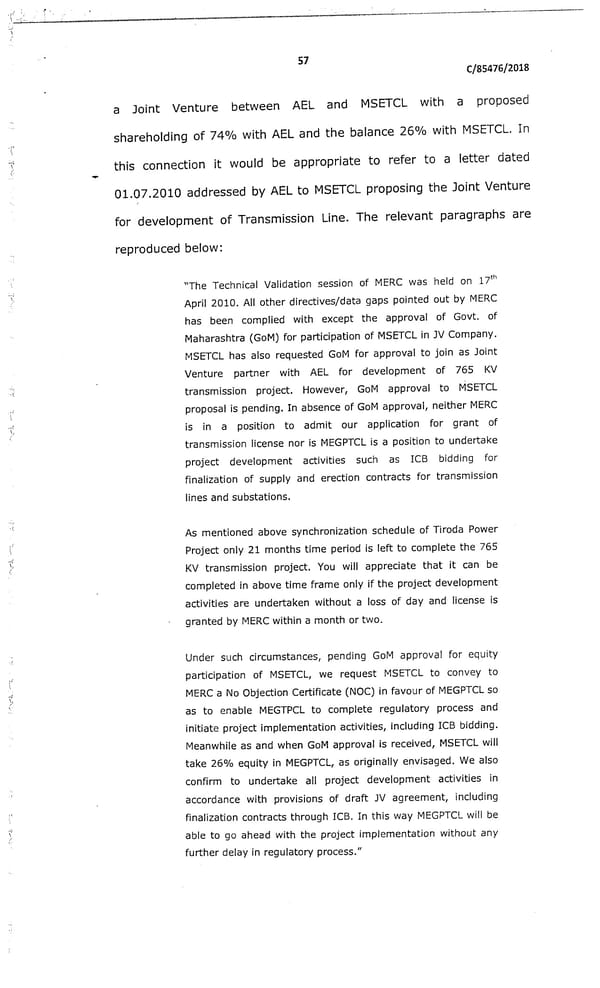
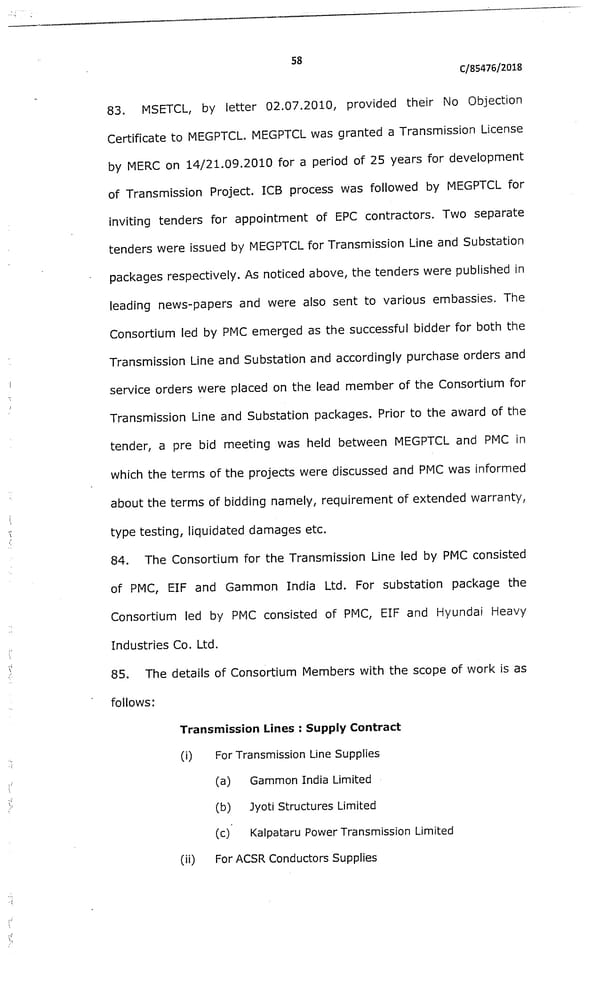
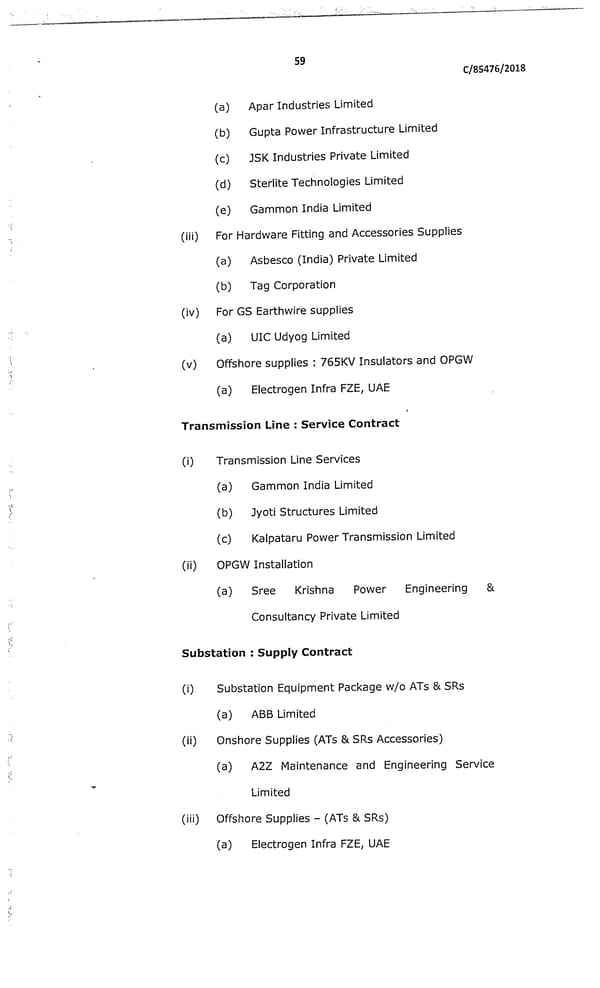
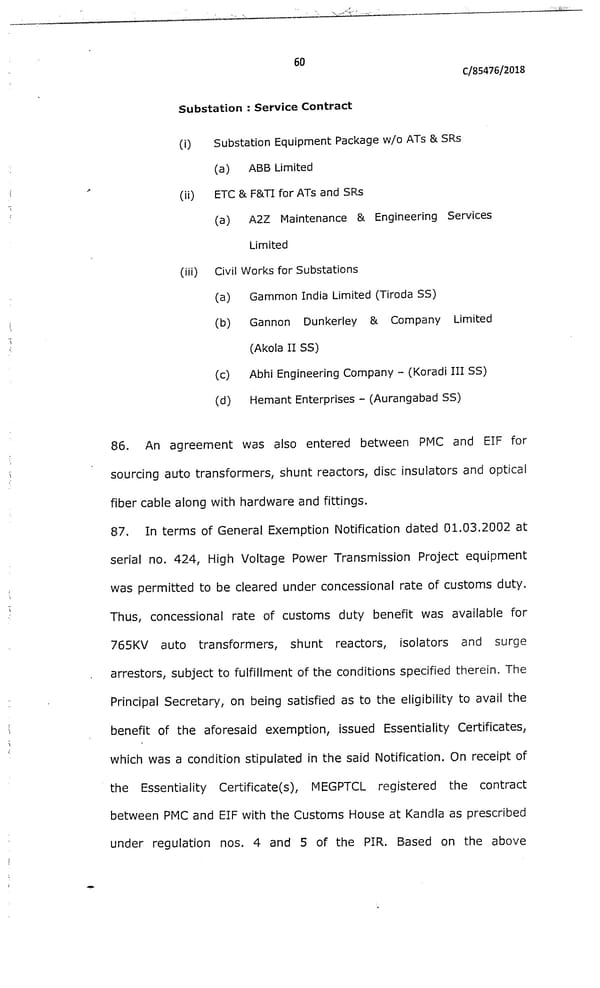
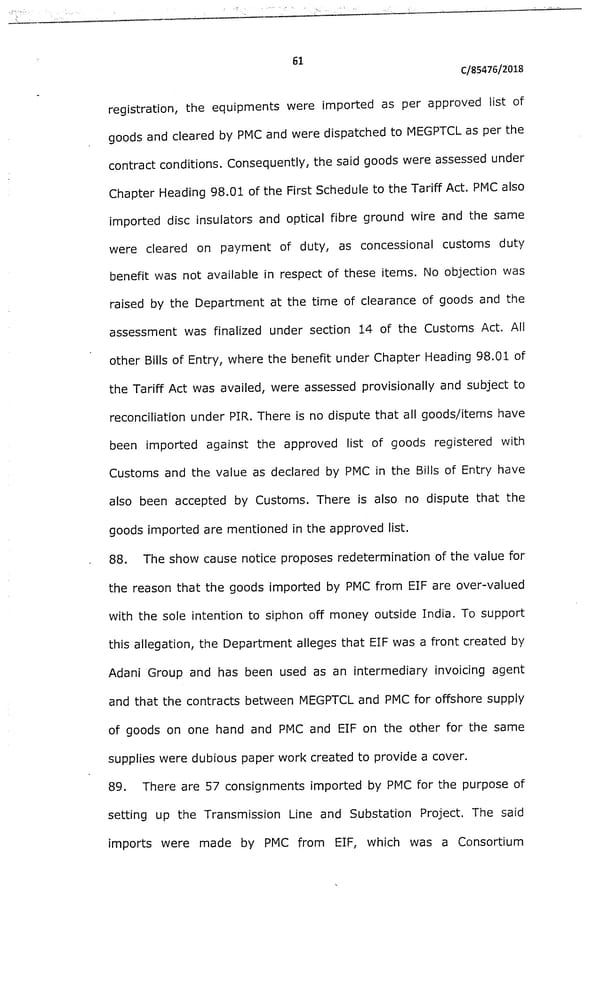
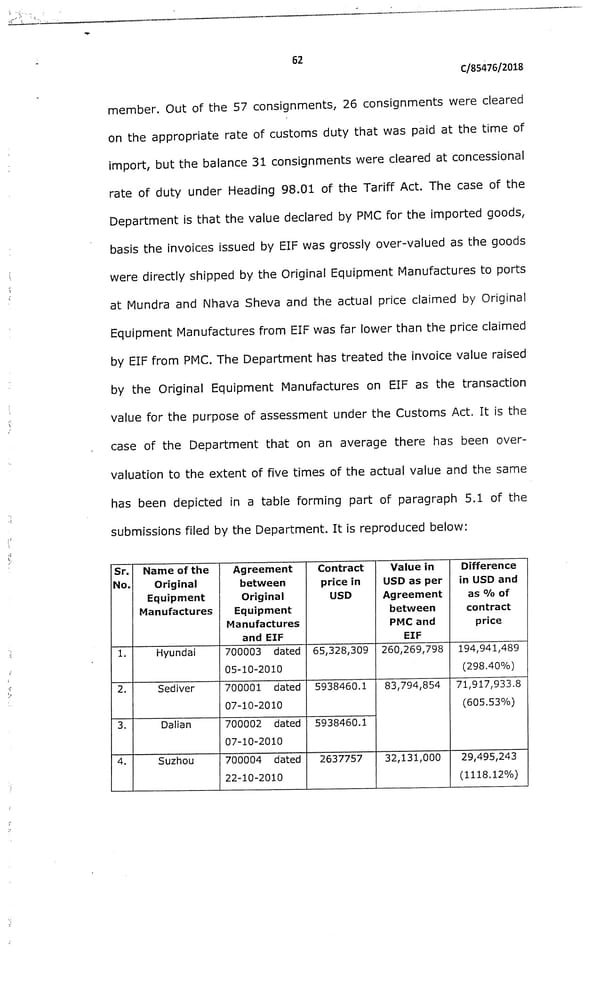
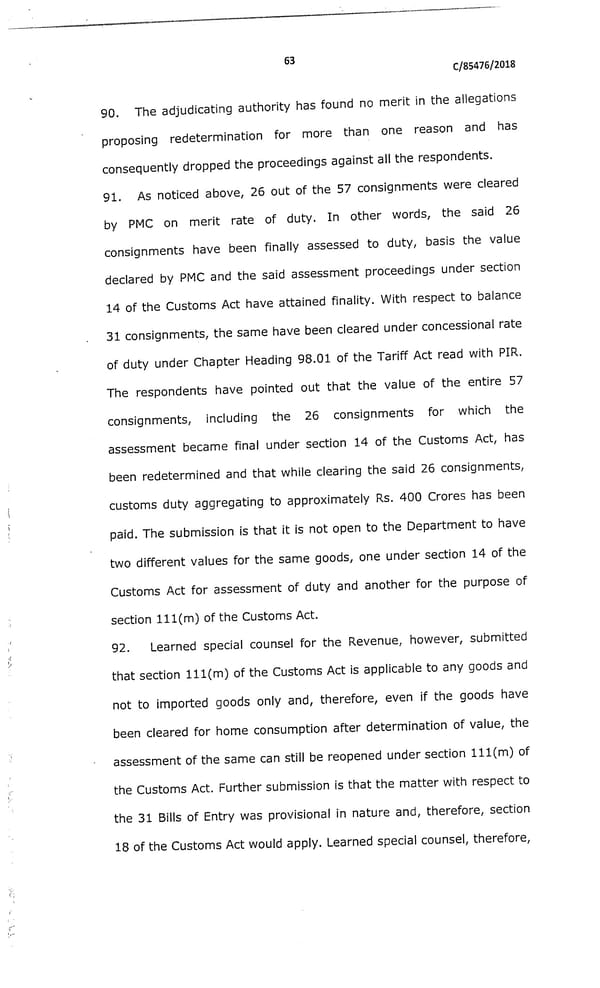
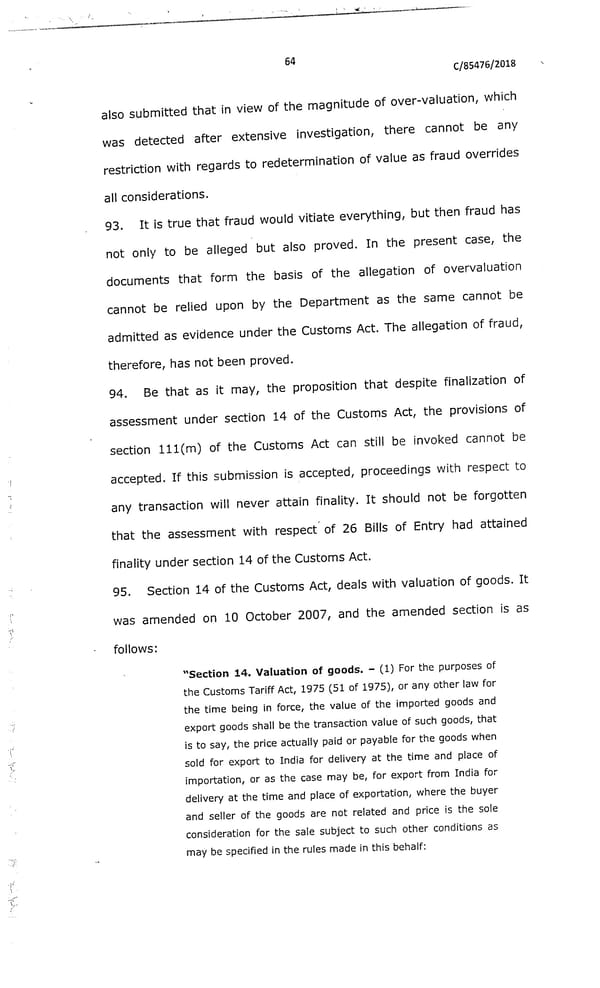
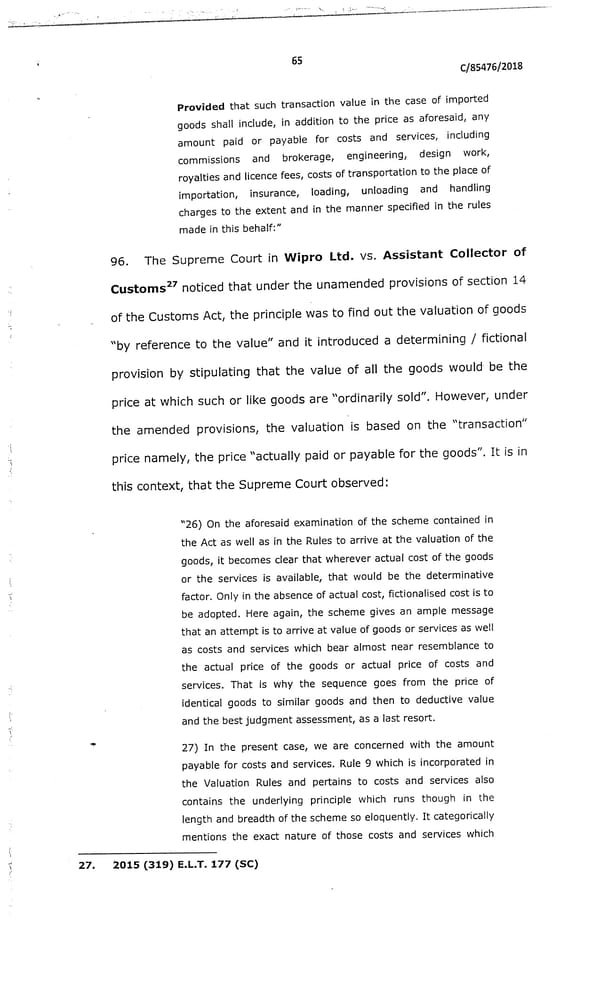
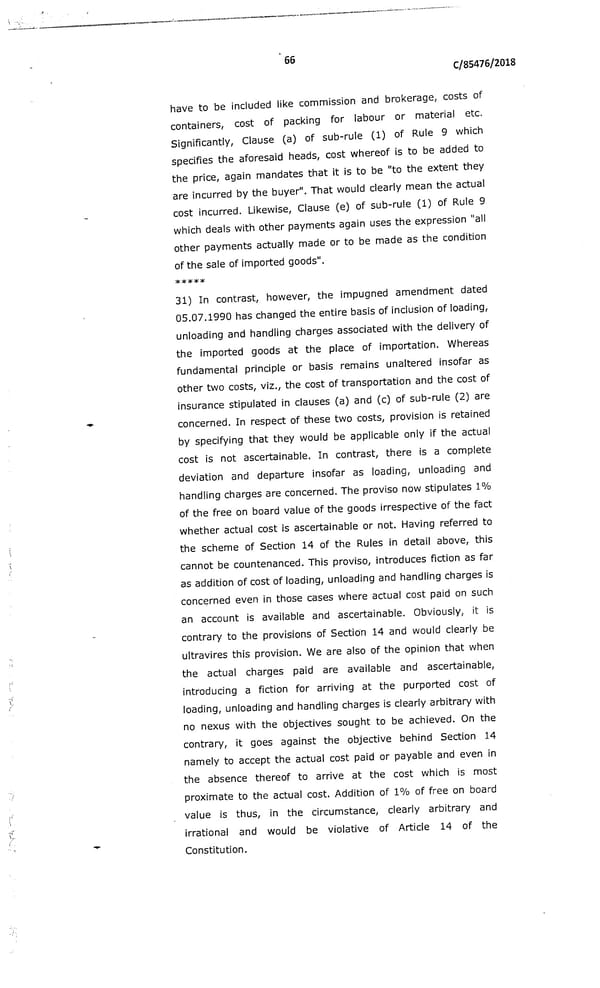
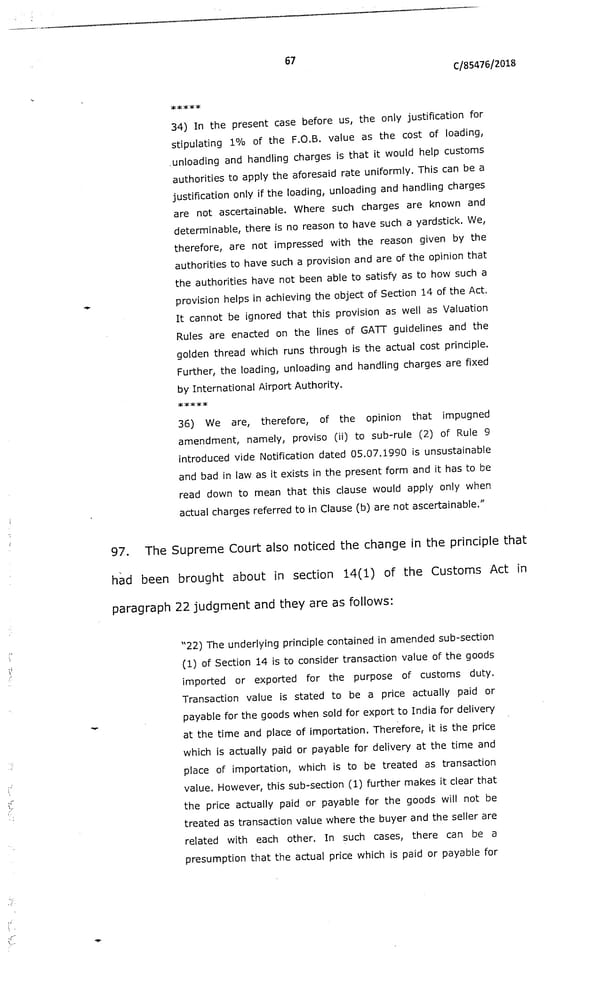
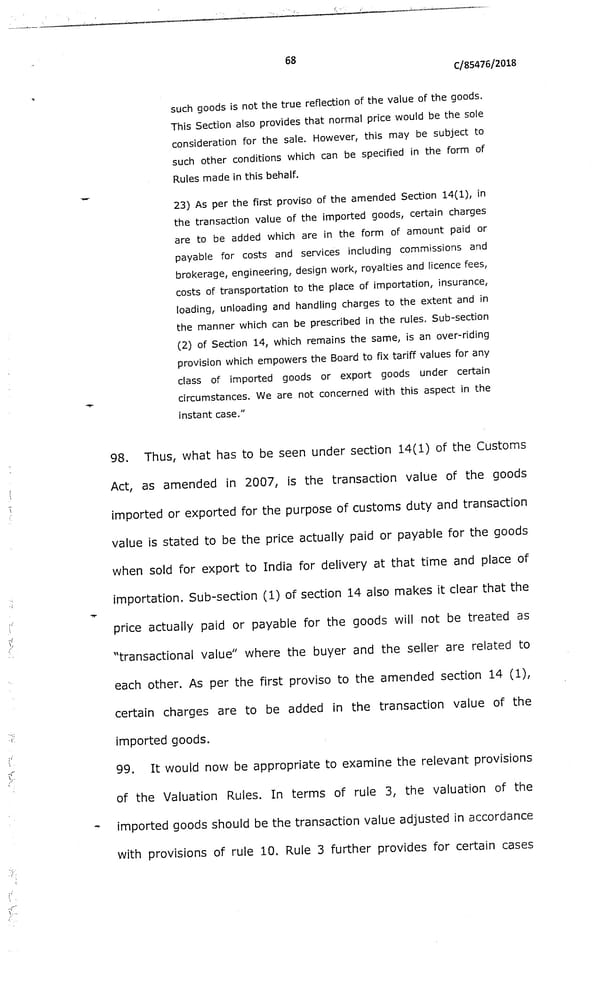
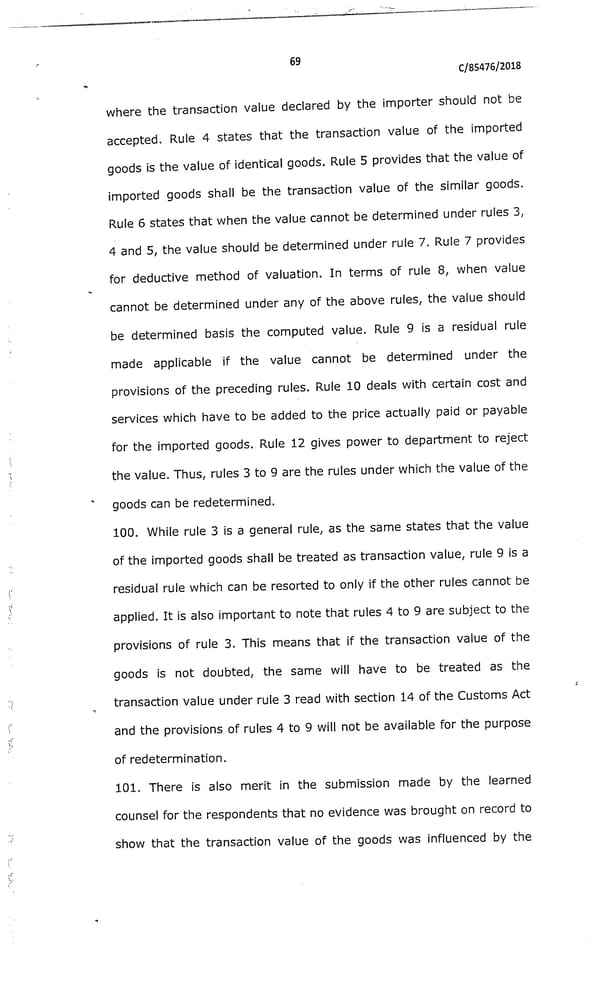
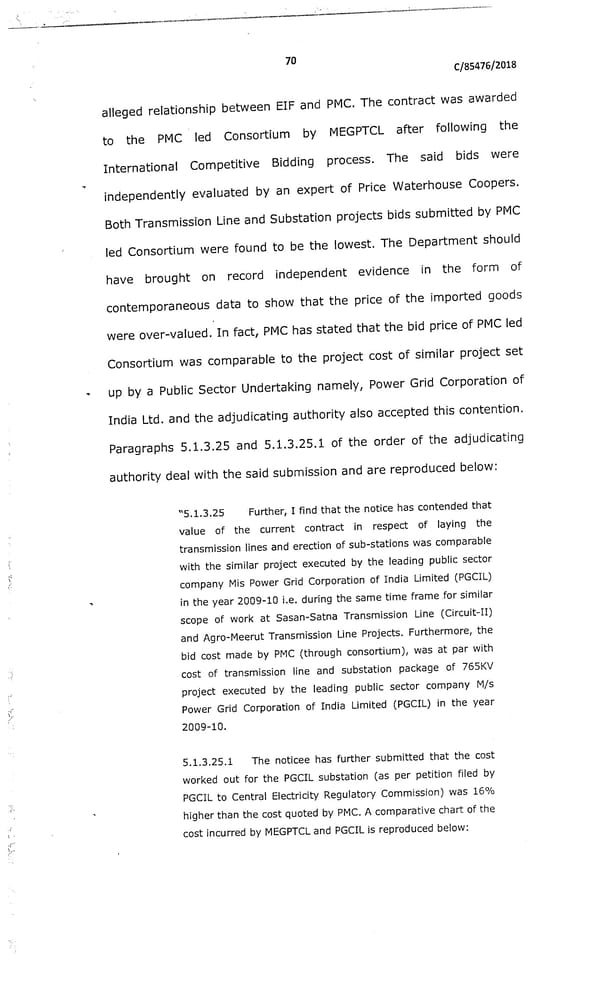
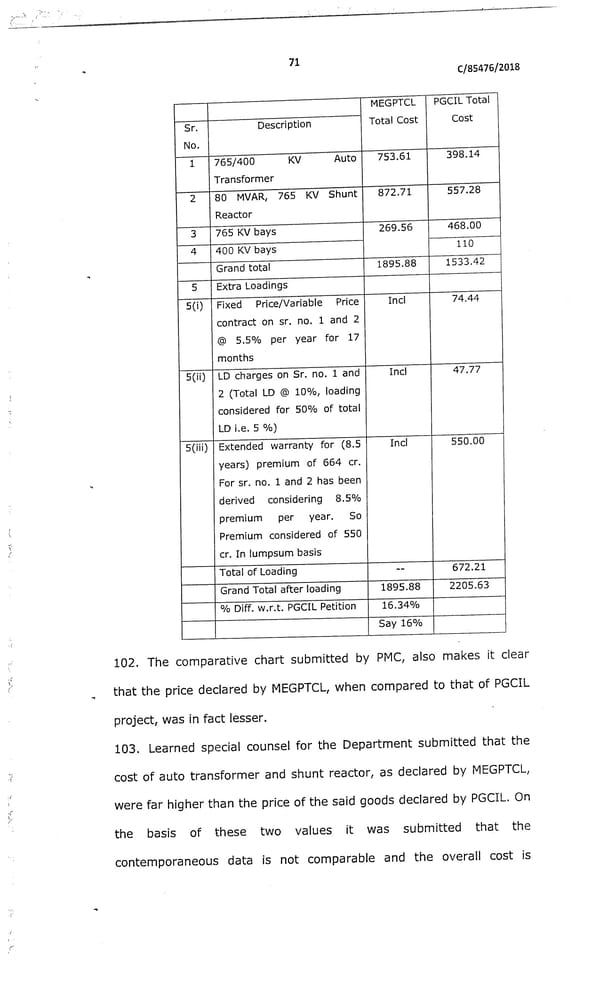
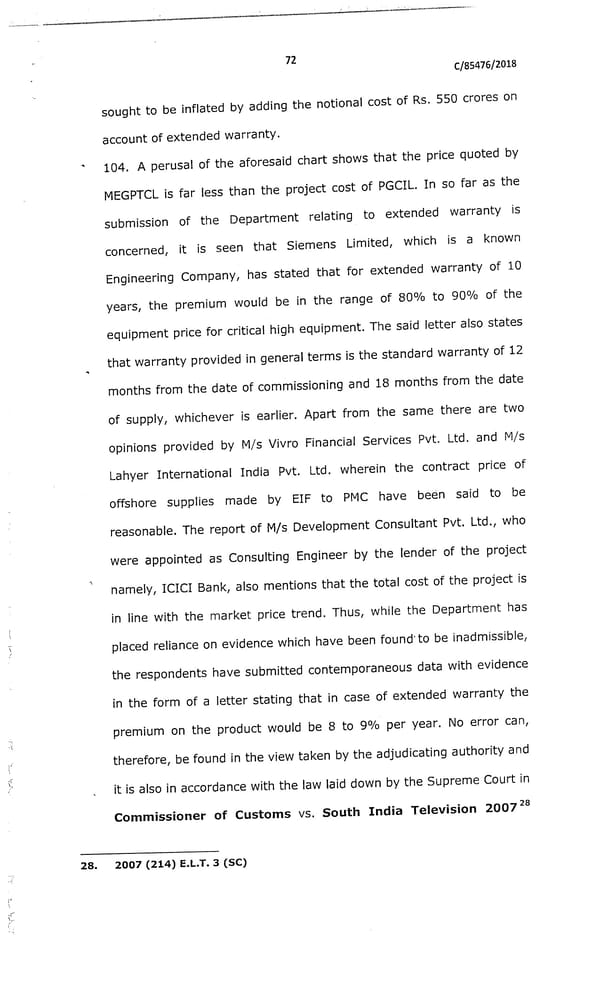
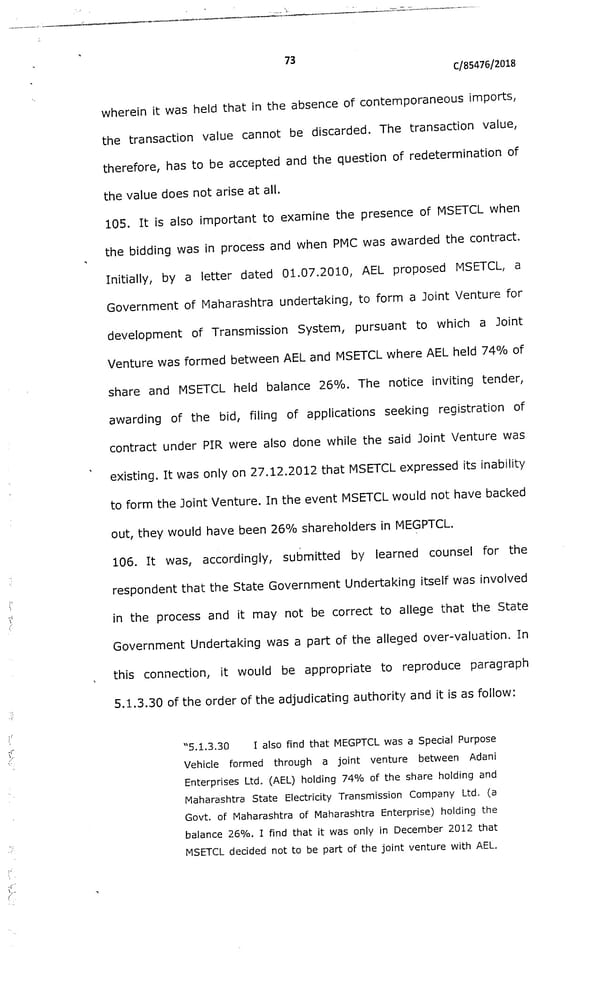
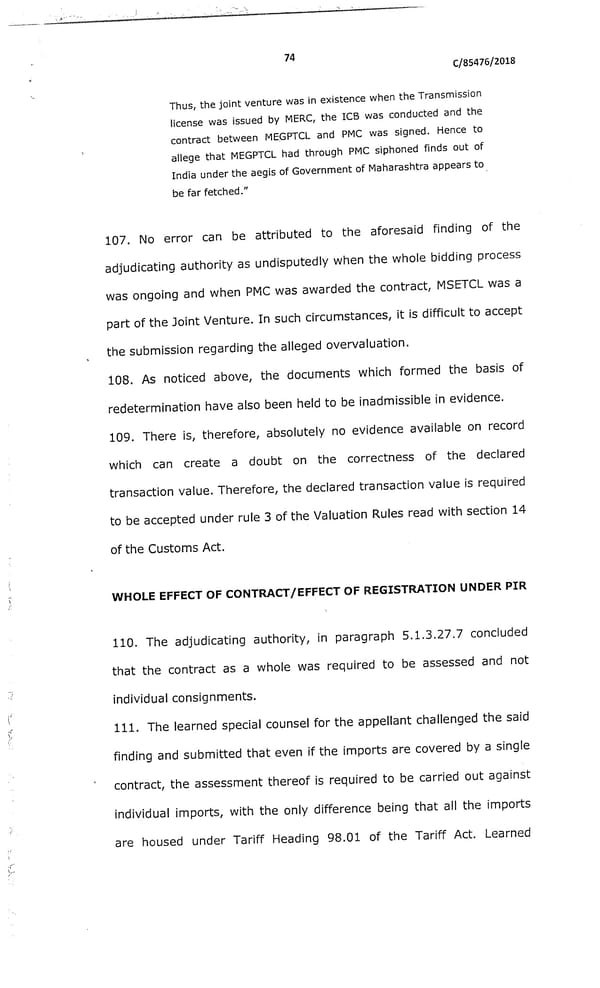
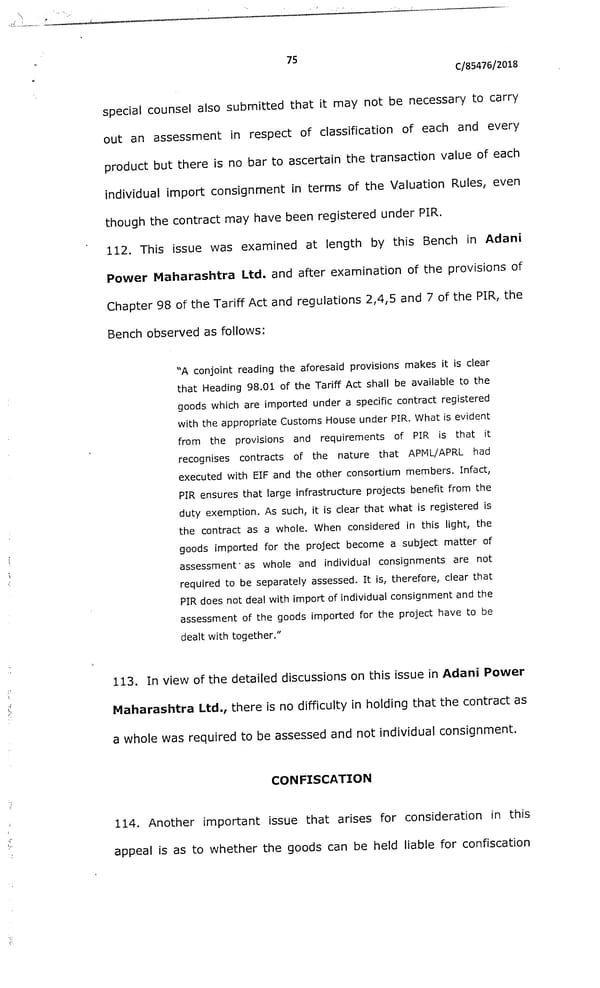
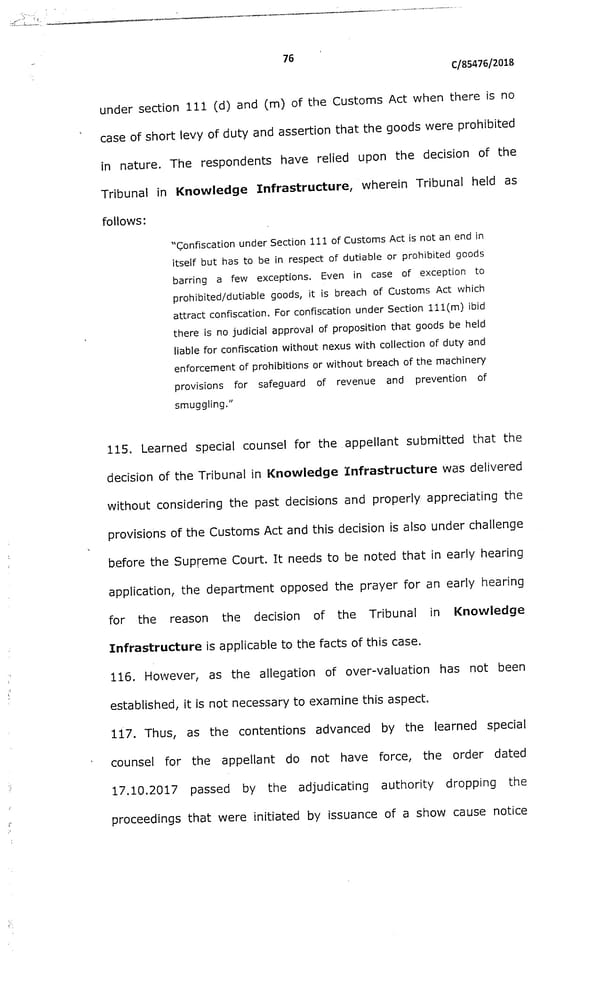
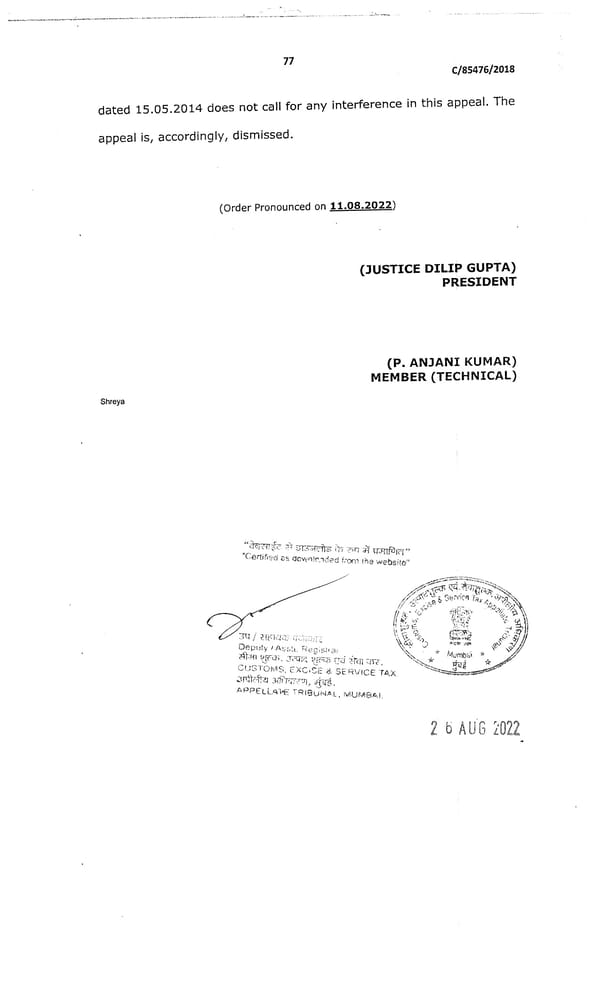
Annexure 9: Order of the High Court of Gujarat approving scheme of amalgamation of Growmore Trade and Investment Private Limited with Adani Power Limited dated 11th April 2012 350
COMP/135/2011 1/49 ORDER IN THE HIGH COURT OF GUJARAT AT AHMEDABAD COMPANY PETITION No. 135 of 2011 In COMPANY APPLICATION No. 400 of 2011 For Approval and Signature: HONOURABLE MR.JUSTICE K.M.THAKER ========================================= ADANI POWER LIMITED - Petitioner(s) Versus . - Respondent(s) ========================================= Appearance : MRS SWATI SOPARKAR for Petitioner(s) : 1, MR PS CHAMPANERI for Respondent(s) : 1, ========================================= CORAM : HONOURABLE MR.JUSTICE K.M.THAKER Date : 11/04/2012 CAV ORDER 1. Present petition is taken out under the provisions of Section 391 to Section 394 of the Companies Act, 1956, hereinafter referred to as the Act) with a prayer to sanction the proposed Scheme of Arrangement in nature of amalgamation of the Transferor Company with the Transferee Company. 2. The petitioner is the Transferee Company while the proposed Transferor Company is a company incorporated and registered in Mauratious and its registered office, as claimed by the petitioner is situate at C/o. Trust Link International Limited, Suite 501, St. James Downloaded on : Fri Jan 27 19:33:28 IST 2023
COMP/135/2011 2/49 ORDER Court, St. Denis Street, Port Louis, Mauritius. 2.1. Before taking out present petition the petitioner company had taken out Company Application No.400 of st 2011 wherein under order dated 1 August 2011 the petitioner company was directed to convene meeting of Equity Shareholders. It is claimed that the directions requiring the company to follow the procedure to convene meeting of the Equity Shareholders was duly followed and th the meeting was convened on 12 September 2011 as directed by the Court. The petitioner has claimed that the affidavit of compliance of publication of notice and other procedure has been filed on the record of the said application. It is also claimed that the resolution approving the proposed Scheme came to be passed by requisite majority of 95.76% in number and 99.99% in value by the Equity Shareholders present and voting at the meeting. It is also claimed that the Chairman of the meeting has filed his report with supporting affidavit th dated 17 September 2011. On perusal of the said report it comes out that the Chairman has reported that: “1. The meeting of Equity Shareholders was attended either personally or through proxy by 132 (One Hundred and Thirty Two) Equity Shareholders of the Company representing 170,80,12,463 (One Hundred and Seventy Crores Eighty Lacs Twelve Thousand Four Hundred and Sixty Three) Equity Shares aggregating to Rs.17,08,01,24,630/- (Rupees Seventeen Hundred and Eight Crores One Lac Twenty Four thousand Six Hundred and Thirty only) comprising of 53 (Fifty Three) Equity Shareholders in person, 2 (Two) through the Authorised Representatives and 77 (Seventy Seven) Equity Shareholders through proxy. 3. The result of the voting upon the said question was as follows: (i) Out of 132 shareholders who have attended the meeting (either in person or by proxy or through Authorised Downloaded on : Fri Jan 27 19:33:28 IST 2023
COMP/135/2011 3/49 ORDER representatives), 124 shareholders representing Rs.1708,00,37,700/- as the aggregate value of their shares, had cast their votes and 8 shareholders representing Rs.86,930/- as the value of their shares, abstained from voting. Out of 124 votes, 6 votes collectively representing Rs.7,530/- were declared invalid. The reasons for treating them invalid were: three of them had not marked their vote in favour or against the proposed scheme. In case of two shareholders, the signatures did not tally with the records of the company and in case of one ballot, the person was not a shareholder as per the records of the company. The votes cast by 118 shareholders representing the aggregate value of Rs.1708,00,30,170/- were found to be valid votes. Five ballots being in duplicate were cancelled and not taken into account. (ii) Out of the said 118 valid votes cast, 113 (One Hundred and Thirteen) shareholders holding representing value of shares at Rs.1708,00,22,440/- voted in favour of the proposed scheme, whereas o5 shareholders having the collective value of shares at Rs.7,730/- voted against the proposed scheme. Hence, the said meeting, by requisite statutory majority, was of the opinion that the Scheme of amalgamation should be approved and agreed to. (v) Thus, the resolution approving the proposed scheme was carried by requisite majority i.e. by 95.76% in number and 99.99% in value by the Equity Shareholders of the Company, present and voting a the said meeting. “ 2.2. The Chairman of the meeting has also placed on record copy of the scrutinizer’s report which, inter alia, reads thus: “Poll was taken at the Meeting Place at Ahmedabad Textile Mills Association (ATMA) Hall, Ashram Road, Navrangpura, Ahmedabad-380 009 in the State of Gujarat `at 11.00 a.m. and concluded at 12 noon. We have scrutinized the votes and have to report as under. Particulars Total % Value % Number (in Rs.) 1. Number of Equity Shareholders 132 - 17080124630 - present at meeting (either in person or through proxy) 2. Ballot Paper issued (including 5 duplicate issued against 5 cancelled) 137 -17080124630 - 3. Ballot Paper received 124 -17080124630 - 4. Members Abstained from Voting, if any 8 - 86930 - 5. Invalid Votes, if any 6 - 7530 - 6. Valid Votes Cast 118 100.00 17080030170 100 (a) Votes cast in favour of Resolution 113 95.76 17080022440 99.99 Downloaded on : Fri Jan 27 19:33:28 IST 2023
COMP/135/2011 4/49 ORDER (b) Votes cast against the Resolution 5 4.24 7730 0.01” 2.3. The petitioner company has also claimed that necessary approval and permission from concerned Stock Exchange i.e. Bombay Stock Exchange Limited and National Stock Exchange of India Limited have been obtained. 2.4. Upon completion of the prescribed procedure the petitioner company submitted present petition. After hearing the petitioner and upon considering the details mentioned in the petition, the petition came to be admitted by order dated 22.09.2011 and the petitioner company was directed to serve notice of admission of petition to Central Government through Regional Director and to also publish the advertisement in Daily Newspaper in English language and in Gujarati language. The petitioner has filed affidavit of compliance i.e. affidavit th dated 9 November 2011 declaring that the advertisement as per the direction by the Court were th th published on 16 October 2011 and 17 October 2011 in Daily Newspapers “Sandesh” and “Indian Express” (Ahmedabad Edition). 2.5. The record shows that in response to the advertisement two Shareholders viz. Mr. Bhupendra Gandhi and Mr. Rupesh S. Shah have filed objection in the office of Registrar of Companies/Regional Director. So far as the objections raised by the two shareholders are Downloaded on : Fri Jan 27 19:33:28 IST 2023
COMP/135/2011 5/49 ORDER concerned, it is relevant to mention that out of the two shareholders who raised objections during the meeting convened by the company, only one shareholder i.e. Mr.B.C.Gandhi appeared before the Court and submitted his objections and the second shareholder seems to have opted - out and has not appeared before the Court and has not submitted any objection. It is claimed by the learned Senior Counsel appearing for the petitioner that the office of petitioner’s Advocate has not received any other objections. The record of the petition also does not disclose that any other objection has been received by the Registry of the Court. 2.6. In response to the notice served to the Central Government it has filed, through the Regional Director (In-charge) North-Western Region, the observations and objections and for that purpose the Regional Director has th filed an affidavit dated 25 October 2011. One of the two objectors i.e. Mr. Bhupendra C. Gandhi also appeared before the Court. He was granted opportunity to file his objections and he was also granted opportunity to file written objections. The written objections dated 18th January 2012 by said Mr. Gandhi have been received on record and taken into consideration. 2.7. The Memorandum and Article of Association of the petitioner company are placed on record and the constitution of the Transferor Company is placed on record. A copy of the annual report for the period from 1st Downloaded on : Fri Jan 27 19:33:28 IST 2023
COMP/135/2011 6/49 ORDER st April 2010 to 31 March 2011 (of the petitioner company) and Audited Financial Statements of the Transferor th st Company for the period from 15 September 2010 to 31 March 2011 are placed on record. A copy of the Resolution passed by the Merger Committee of the Board of Directors approving the valuation report and to take necessary actions in furtherance of the proposed Scheme is also placed on record. In this background the petitioner has requested the Court to sanction the scheme. 3. The Regional Director has filed affidavit dated th 25 October 2011 making below mentioned observations and raising certain objections which read thus: “2(a) That, the Transferor company namely M/s. Growmore Trade and Investment Pvt. Ltd. is a company registered under the provisions of Companies Act, of Mauritius. From the list of members of the Transferee Company, provided by the Transferee Company, it has been observed that the said Transferor company is subsidiary of M/s. Opal Investments Pvt. Ltd., a foreign Company holding 100% shares in the said Transferor Company. Since shares are to be issued by the Petitioner Transferee Company to the said foreign Company, towards the consideration as per the exchange ratio of shares as provided in the Scheme, the Hon’ble Court may be pleased to direct the Petitioner Transferee Company to comply with the requirements of the FEMA and/or the approval of the Reserve Bank of India, if any, prior to the allotment of shares to such foreign/NRI shareholders. (b) That, the office of the Deponent has received two complaints from the Shareholders namely Mr. Rupesh S. Shah and Bhupendra Gandhi opposing the Scheme. The matter of the complaint of Mr. Rupesh Shah was taken up by the Registrar of Companies, Gujarat with the Transferee Company vide his letter dated 11.10.2011. The said company furnished its explanation/comments vide its letter dated 13.10.2011…………..the Complainants have right to raise any objection before this Hon’ble Court in pursuance to the notice of petition published in newspapers by the company. The Hon’ble Court may therefore, be pleased to issue appropriate directions to the complainants, if considered fit by this Hon’ble Court, to raise their objections if any, before Downloaded on : Fri Jan 27 19:33:28 IST 2023
COMP/135/2011 7/49 ORDER this Hon’ble Court by filing appropriate affidavit/application in the present proceedings of the Scheme presented by the Petitioner company. (c) ……….However, the meeting of the Creditors of the Transferee company have not been directed by this Hon’ble Court. This Hon’ble Court may, however, pass such orders as may be deemed fit and proper in the circumstances. (d) …………..the Transferor Company namely M/s. Growmore Trade and Investment Private Limited is registered under the Law of Mauritius, is not liable to be dissolved without winding up by this Hon’ble Court. The Hon’ble Court, may, therefore be pleased to direct the Transferee company namely Adani Power Limited to ensure the striking off/removal of the name of said Transferor Company situated in Mauritius upon sanctioning of the scheme of amalgamation/arrangement by this Hon’ble Court.” 3.1. Having made the aforesaid observations the Regional Director has then also made reference of the report received in his office from the Registrar of Companies. The Regional Director has, citing the said report of Registrar of Companies, mentioned that except the two complaints received from the two Shareholders, the office of Registrar of Companies has not received any compliant and/or representation against the proposed Scheme. 3.2. In the background of such observations, the Regional Director has, then, observed that: “2(f) …………there appears no other objection to the proposed scheme of amalgamation of M/s. Growmore Trade and Investment Private United (Mauritius) with the Petitioner Transferee company here in this present Petition and registered in India and the scheme does not, prima facie appear to be prejudicial to the interest of the shareholders of the Petitioner Transferee Company and the public at large.” Downloaded on : Fri Jan 27 19:33:28 IST 2023
COMP/135/2011 8/49 ORDER 3.3. In response to the observations made and objections raised by the Regional Director, the petitioner company has, through its Company Secretary and Authorized Signatory Mr. Rahul Shah filed an affidavit dated 21.01.2012 wherein it is clarified and asserted that: “2(i) ……..Since the Transferor company is subsidiary of one Opal Investments Limited which is a foreign company, the Regional Director has observed that directions should be issued for compliance of the requirements of FEMA and/or approval of the Reserve Bank of India, prior to the allotment of such shares to such foreign/NRI shareholders. It is hereby respectfully submitted that clause 10.4 of the Scheme has already provided for the said compliance and it reads as under: “10.4. For the purpose of issue of equity shares to the shareholders of the Transferor Company, the Transferee Company shall, if and to the extent required, apply for and obtain the required statutory approvals and other concerned regulatory authorities for the issue and allotment by the Transferee Company of such equity shares.” However, the petitioner Transferee Company hereby undertakes to comply with the applicable provisions of FEMA and obtain necessary permissions, if required, from the Reserve Bank of India. (iii) …….the proposed Scheme of Arrangement does not affect the rights and interests of the Creditors of the Transferee Company in any manner. The Transferee Company is a financial strong company having substantially positive net worth. The company has been regularly meeting all its financial commitments towards its creditors. Upon the scheme being effective, it shall continue its business in the same manner as at present and shall make the payments to its creditors in the normal course of business. As submitted in the petition, the Transferor Company is essentially an investment company and has no outstanding creditors. It is a company with positive net worth. The operative loss of US $4373 as per st the audited Balance sheet of the company at 31 March 2011 (annexed to the petition as Annexure D) is negligible arising merely out of the administrative expenses. Hence, even after the amalgamation of the Transferor Company with the Transferee Company, the rights and interests of the creditors of the Transferee Company shall not be affected in any manner. The said contention is further strengthened by the fact that no creditor of the Transferee Company has come out with any objection whatsoever to the proposed scheme. (iv) ………It is hereby respectfully submitted that as provided in the said Clause 13 of the Scheme, and as per the applicable provisions of the Mauritius Act, the Petitioner Company hereby undertakes to file the order passed by this Hon’ble Court, sanctioning the scheme, with the Office of the Registrar of Companies, Mauritius in order to enable the said authority to dissolve the said Transferor company without Downloaded on : Fri Jan 27 19:33:28 IST 2023
COMP/135/2011 9/49 ORDER winding up and remove the company from its Register. I clarify that the Scheme does not contemplate that the Transferor Company shall be dissolved by an order of this Hon’ble Court. 3.4. However, with a view to removing any doubt, it is, hereby directed that the petitioner and the transferor company shall diligently and completely comply all applicable Laws Rules and Regulations including all applicable provisions, conditions and requirements under FEMA, FERA and RBI Act and Companies Act and shall also strictly and completely comply all instructions - directions and guidelines issued by the RBI with reference to the issue / allotment of shares to Foreign/Non Resident Indian shareholders and subscribers and also regarding the process of amalgamation and obtain all necessary permissions, licences, authorization etc. as may be required and that it shall comply all directions, guidelines and instructions issued by RBI and/or Income Tax Department and/or Enforcement Directorate or any other body/authority in the matter of any transaction with foreign/NRI shareholders and/or foreign based/incorporated companies and for that purpose one of its Directors and the Company Secretary and Managing Director (if any) shall jointly file an affidavit and make declaration to the said effect that it shall comply. 3.5. In view of such stipulation, assurance and declaration by the company in its above referred affidavit and in light of the above direction, the observations and Downloaded on : Fri Jan 27 19:33:28 IST 2023
COMP/135/2011 10/49 ORDER remarks by the Regional Director would stand duly addressed and complied with. 4. Before proceeding further, it is appropriate to mention, at this stage, the objections dated 15th November 2011 filed by one of the two shareholders, viz. Mr. Bhupendra C. Gandhi who has, in his aforesaid written objections alleged, with reference to the proposed Scheme, inter alia, that: “7. I say that Growmore Trade and Investment Private Limited (Transferor) is a Private Limited Company th incorporated in Mauritius on 15 September 2010 under Mauritius Companies Act. The company has shown its Registered Office as C/o Trust Link International Limited, Suite 501, St. James Court, St. Denis Stree, Port Louis, Mauritius. (Point No.8 – Page No. non provided). I say the Transferor Company is based in a Tax Haven Country Mauritius and the company has no business income but some mount is shown as US $23 earned as interest and after adjustment of Expenses of US $4396 has shown loss of US $4373 as per the Audited Financial Statements provided with period as from 15th st September 2010 to 31 March 2011. 8. I say that our company Adani Power Limited is a profit making company with profits shown as Rs.523.75 crores as on st th 31 March 2011 (Page No.37 of the 15 Annual Report). I say that Adani Power has en-number of Subsidiaries with its holding in most at 100% and in only one subsidiary Adani Power Maharashtra Limited it is 74% (Page No.62 of 15th Annual Report). 9. I say that the Company Adani Power Limited with st Promoter Holding 73.50% as on 31 March 2011 (Page No.30 of Annual Report) rather than declaring dividend to benefit the Minority shareholders has been avoiding the same in the name of conserving the resources. I say the resignation of three of the Directors within a span of Two Months in February and March 2011 is a matter of concern and investigation to ascertain with regards to the proposed amalgamation. 10. I say that the proposed valuation done is unfair to the shareowners of Adani Power Limited. It is mentioned in Point No.10 under heading Issue and Allotment of shares that for every holding of 10000 shares of US $ 1/- each in transferor company Growmore, the transferee company Adani Power Limited would issue 16615 shares of Rs.10/- each. 11. I say that Adani Power Limited is already in Majority with 74% holding with Management Control in Adani Power Maharashtra Limited (APML) in which Growmore is said to be holding the balance and after amalgamation would become Downloaded on : Fri Jan 27 19:33:28 IST 2023
COMP/135/2011 11/49 ORDER wholly owned subsidiary (Point No.12). I say that APML has not shown any profits for 31st March 2011. I say the proposal for amalgamation is done in haste and may be with high valuation for the Company APML shares as the APML project is yet to take off. 12. I say that the Registered office address of Growmore is shown as C/o. Trust Link International Limited, Suite 501, St. James Court, St. Denis Street, Port Louis, Mauritius (Point No.8 Page No. not provided) and in the High Court order for Company Petition No.80 of 2010 in Point No.9 there is the reference of letter dated 23.04.2010 from Trustlink. I say that clarification may be sought for the similarity in name for this C/o. address and earlier ones. I submit the copies of email/s, Copy of Order, Newspaper articles collectively marked as Exhibit “A”. 13. I say that if the scheme is allowed, we shareowners would be deprived of the benefits which belongs to us and created from our wealth now and may be also in future.” 4.1. As against the written objections filed by Mr. Gandhi, the petitioner company has, through its Company Secretary and Authorized Signatory, Mr. Rahul Shah, filed st a composite additional affidavit dated 21 January 2012 wherein, while dealing with the objections raised by the Shareholder, it is stated, inter alia, that: “7(vi) ………It is true that the Transferee Company is a profit making company and has not declared dividend. It is pertinent to note that the company is in the process of developing several power projects and the Board of Directors has found it appropriate not to distribute the earnings in form of dividend and thought it prudent to conserve resources for the development of several projects being implemented at different stages. It is respectfully submitted that the same being the commercial decision of the board of Directors of the Company is strictly out of the realm of the shareholders for the purpose of consideration of the proposed scheme. (vii) ……the resignation of some of the Directors of the company for personal reasons and induction of new Directors is an issue totally irrelevant for the consideration of the proposed Scheme. (viii) ……..the Exchange ratio was worked out on the basis of the Valuation undertaken by Ernst & Young Private Limited, an independent valuer. The same was duly approved by the Board of Directors and the majority of shareholders at the meeting. It is pertinent to note that the concerned Stock Exchanges viz. BSE and NSE did not find the same objectionable or against the interest of the shareholders. It is also pertinent to note that apart from the bald allegation that the valuation is unfair, the said shareholder has not been in a Downloaded on : Fri Jan 27 19:33:28 IST 2023
COMP/135/2011 12/49 ORDER position to substantiate his contention. (ix) It is true that APML i.e. Adani Power Maharashtra Limited has not made any profits as yet as the project is yet in its development stage and has not started power generation. Once again it is in the realm of the Board of Directors’ commercial decision as to at which stage the interest in the said company should be acquired by the Petitioner Company. The only relevant issue for the consideration of the scheme has to be that the same is not to the detriment of the shareholders of the petitioner company. It is hereby asserted and reiterated that the present scheme is in the interest of the company and its shareholders and not to the detriment to the interest of the shareholders. 8. …..the Transferor Company has complied with the requisite process for amalgamation in compliance with the applicable provisions of Companies Act, Mauritius.” 4.2. With reference to the written submissions th (dated 18 January 2012) filed by the objector- Shareholder Mr. Gandhi in support of his written th objections dated 15 November 2011, the petitioner company has filed further affidavit wherein the Deponent Mr. Rahul Shah, Company Secretary and Authorized Signatory, for the company, stated, inter alia, that: “3………..the shareholder has suggested an alternate mode of presenting the result of the meetings. It is hereby respectfully submitted that the Chairman’s report is presented to the Hon’ble Court in consonance with the statutory format provided vide Form No.39 of the Company Court Rules, 1959. The petitioner is duty bound to present the result of the meeting in the given format only. Further, the bifurcation as per the shareholding pattern shall not impact the result of the meeting and the statutory compliance of Sec.391(2) of the Companies Act, 1956.” 4.3. As regards the petitioner company's submission against the shareholder's objections that the shareholder who has raised objections holds only five shares and therefore has no locus to raise objection, it is necessary and appropriate to observe at the outset that, merely because the shareholder raising objection is in minority Downloaded on : Fri Jan 27 19:33:28 IST 2023
COMP/135/2011 13/49 ORDER or holds only few shares it does not mean that such minority shareholder has no locus and/or that his objection should not be considered or should be or can be ignored. If any of the objections, even by a solitary or singular shareholder or shareholders holding only one share or couple of shares is found to be substantial or of such nature or scope or gravity which may persuade the Court to take different view or hold back the sanction, then such objection has to be given due weightage and consideration. 4.4. So far as the objections raised by the aforesaid shareholder who appeared before the Court are concerned, the company has filed its response and with reference to the said shareholder's submission that though the petitioner transferee company is a profit making company it has not declared dividend, the company has in its reply, submitted that it is in process of developing several power projects and therefore the Board of the company considered it appropriate to not to distribute the earnings and instead to conserve the resources for development of projects. It appears that since the inception – incorporation of the petitioner transferee company and until now i.e. all along the Annual Reports of the company have been approved by the Annual General Meeting of the members of the company and that therefore the Board's decision (of distributing profit and not declaring – paying the dividend) is said to have been ratified and approved and Downloaded on : Fri Jan 27 19:33:28 IST 2023
COMP/135/2011 14/49 ORDER accepted by the members of the company. In such situation it would not be for the Court to comment on the decision of the Board, much less to interfere with the said decision. Those are the matters which are within the realm of the management and internal administration of the company and are governed by the collective commercial wisdom with which the Court would rarely interfere i.e. unless it is shown that there is mis- management, malfeasance or fraud on shareholders. In present case, neither the said shareholder has made such allegation nor any data or material is placed before the Court to form even prima facie opinion to such effect and any proceedings before the competent authority do not appear to have been taken out, on such ground. Therefore, at this stage, it would not be justified or permissible for the Court to delve into the said submissions made by the said shareholder. 4.5. The said shareholder has, then, made reference of a company named Adani Power Maharashtra Limited (APML for short) and has raised objection on the ground that the APML project is yet to take off and the proposal for amalgamation is done in haste. He has also raised objection on the ground that APML has not shown any st profits in the financial year ending as on 31 March 2011. The said shareholder has also mentioned that the transferor company is holding about 26% shares of said APML while the petitioner transferee company is holding 74% of APML's shares and upon amalgamation, said Downloaded on : Fri Jan 27 19:33:28 IST 2023
COMP/135/2011 15/49 ORDER APML will become wholly owned subsidiary of the transferee company. 4.6. On this count, the petitioner company has mentioned, in its additional affidavit that, such decisions are in the realm of the Board of Directors and are always taken in light of commercial inputs and the interest of the company. It is also claimed that the Board has not found the decision detrimental to the interest of the company or the members and even the Central Government and/or members of the company have also not considered the decision detrimental or prejudicial to the interest of the company or its members. 4.7. So far as the said shareholder's objections or submissions with reference to the determination of exchange ratio are concerned, the petitioner transferee company has, in its reply, stated that the decision has been taken on the basis of the valuation report submitted by an independent valuer viz. Ernst & Young Private Limited. The exchange ratio fixed by the company does appear a little odd and out of ordinary and usual inasmuch as for every 10,000 ordinary shares in the value of US $ 1/-, 16,615 equity shares of Rs.10/- each are to be issued by the transferee company to the members of the transferor company. However, it is also noticed that majority shareholders, except two shareholders, have accepted and approved the said decision. Besides this, as submitted by the company, the decision is based on Downloaded on : Fri Jan 27 19:33:28 IST 2023
COMP/135/2011 16/49 ORDER valuation undertaken by an independent valuer. Furthermore, the Regional Director has also not raised any objection on this count and has found, after examining the report of the independent valuer, the said decision proper in the facts of the case and the Regional Director has not raised any objection or not offered any adverse comment. The concerned Stock Exchanges i.e. Bombay Stock Exchange and National Stock Exchange have also not found the said decision objectionable. On the other hand the shareholder has not placed any material, data or details on record to demonstrate as to how the determination of exchange ratio is improper, unjustified and unsustainable and he has also not placed any material, data or details to suggest proper ratio i.e. what could be proper exchange ratio having regard to the valuation and the financial and economical aspects and details of both companies as well as the market related position. Therefore, in background of such facts, any base or cause for interference by the Court is not available. Nonetheless, the clarification and directions contained in present order particularly the requirement to forward a copy of present order to the competent authority in Income-tax Department and also to the Enforcement Directorate would take care of the said aspect and if any irregularity is noticed, the said authorities would submit their objections. 4.8. On this count, having regard to the decision of the Apex Court in the case of Miheer H. Mafatlal v. Downloaded on : Fri Jan 27 19:33:28 IST 2023
COMP/135/2011 17/49 ORDER Mafatlal Industries Ltd. (AIR 1997 SC 506) the Court is not to sit in appeal over the decision of the Board of Directors which is duly approved, ratified and accepted by the statutory majority of members of the company, unless it is shown that the decision is rigged by the Board or by any interested Director or it is established, with appropriate and relevant and scientific data and details, that the decision is a commercial harakiri and fraud on the members, it would be difficult for the court to interfere with and upset such decision which is claimed to have been taken with collective commercial wisdom and not objected by anyone except the two shareholders. The shareholder has attempted to cast a shadow of doubt over the decision, however, any material whatsoever is not placed before the Court to justify such allegations or apprehension. Therefore, it is difficult and not possible for the Court to interfere with the said decision, particularly when the transferee company is, even as per the said shareholder, already holding more than 75% shares of said APML. 4.9. The said shareholder has, then, submitted that the minority shareholders would be deprived of the benefits which belong to them and created out of their wealth. The said submission is also unsubstantiated. There is no material available on record to lead the Court to such conclusion or to satisfy the Court on this count. Even the shareholder has not placed any material or data before the Court to demonstrate as to how the minority Downloaded on : Fri Jan 27 19:33:28 IST 2023
COMP/135/2011 18/49 ORDER shareholders would be deprived of their wealth or rights. 4.10. As regards the submissions made by the said shareholder with reference to the office and address of the transferor company, the petitioner company has, in its reply affidavit, tendered explanation by stating that according to the applicable provisions under the Mauritius Companies Act, 2001, particularly Section 187 of the said Act, every company is obliged to have its registered office in Mauritius to receive all communications and notices which shall constitute the address for service of legal proceedings on the company. The said provision, according to the deponent of the affidavit filed by the petitioner company and according to the submissions by the learned counsel appearing for the petitioner company, also provides that a company incorporated and registered under the Mauritius Companies Act, 2001 can have a registered office at the office of any firm of any Chartered Accountant or Attorney at Law or other person. It is also mentioned in the affidavit that it is in view of the provisions under the said Act that the registered office of the transferor company is shown at C/o. Trust Link International Limited, Suite 501, St. James Court, St. Denis Street, Port Louis, Mauritius. It is also clarified that Trust Link is appointed as an agent for the previous schemes of arrangement and also present scheme and to facilitate continuity of informations/communications. The said explanation, it seems addresses the remarks by the Downloaded on : Fri Jan 27 19:33:28 IST 2023
COMP/135/2011 19/49 ORDER shareholder but they also make it clear that the transferor company does not own any assets or property of its own, not even office premises. 4.11. So far as the suggestion made by the shareholder about the alternate mode of presenting the result of the meeting is concerned, it is submitted by the learned counsel for the petitioner that the Chairman's report is presented on the record of the Court in consonance with the statutory format provided vide form No.39 under Company Court Rules, 1959 and that the company is duty bound to present the result of the meeting in the given format. It is also stated that the bifurcation of the shareholding patent would otherwise also have no impact on the result of the meeting and statutory compliance under Section 391(2) of the Companies Act, 1956. 5. Having regard to aforesaid aspects and on overall consideration of the provisions under the scheme and the reply – explanation tendered by the petitioner company by its affidavit it emerges that the objections raised by the said shareholder are satisfactorily explained or dealt with by the petitioner company. It also emerges that the said shareholder has not placed any material, data or details or any scientific base to support the objections and he has also not offered any suggestion supported by any material or data to justify the objections raised by him. Downloaded on : Fri Jan 27 19:33:28 IST 2023
COMP/135/2011 20/49 ORDER Unless it is satisfactorily demonstrated that what is proposed in the scheme is a facade and the end result would be detrimental to or prejudicial to the interest of the shareholders and / or creditors, the Court would not be inclined to entertain the objection based on apprehensions or on the grounds suggested by the shareholder. In present case if the apprehension expressed by the said shareholder had any real base and substance then at least some substantial number of shareholders, if not majority of the shareholders, would have raised objection. However, when the scheme is unanimously (according to the result of the meeting declared on affidavit by the Chairman – which is not controverted or denied by anyone including present objector) approved by the shareholders of the companies and any apprehension (as expressed by the above named shareholder) is not ventilated by other shareholders and when the above named shareholder has not been able to substantiate and support or justify his apprehensions by any affidavit or appropriate and relevant figures or data and has merely come out with unsubstantiated apprehension, then the Court does not find it worthy of acceptance more particularly when any authority has also not raised objections (except the observations by Regional Director which are mentioned above). 5.1 Hence, not on the ground that the said shareholder is the only shareholder (or there are only 2 shareholders) raising objections against the scheme but on the ground that the objections are not substantiated and any material to take a different view, particularly contrary to the opinion given by the Registrar of Companies, the Regional Downloaded on : Fri Jan 27 19:33:28 IST 2023
COMP/135/2011 21/49 ORDER Director, the two Stock Exchanges and the independent valuer, and that too in absence of any material or scientific base and data to justify such different view is not made out or possible and having regard to the observations by the Apex Court in the case of Miheer Mafatlal (supra), the said objections are not accepted. 5.2 However, in respect of some of the aspects mentioned by the shareholder and some other aspects which the Court has noticed, appropriate directions and clarifications have been made in present order imposing certain conditions and obligations on the companies which shall have to be complied by them so as to make the scheme effective. Hence, on overall consideration of all these aspects the objections raised by the said shareholder would not survive. 6. Before proceeding further, it is relevant and necessary to note, at this stage, that the transferor company is not incorporated and registered in India but is incorporated and registered in Mauritius and that therefore the question would arise as to whether a company which is not incorporated and registered under the provisions of the Act and consequently is not “a company” under the provisions of the Act, can be wound up under the provisions of the Act or not. 6.1. The said issue had also come up for consideration and decision before the Court in case of Downloaded on : Fri Jan 27 19:33:28 IST 2023
COMP/135/2011 22/49 ORDER Essar Shipping Port and Logistic Limited in Re wherein the Court in the decision dated 16.1.2009 in Company Petition No. 280 of 2008 in Company Application No.490 of 2008 considered similar objection and relying on the decision Bombay High Court in case of Zenta P. Limited, in Re, the Court rejected the objection in light of the provisions contained under Section 394 (4)(b) holding that since the provisions contained under Section 394 (4) (b) includes the term “body corporate” the transferor company situated outside India can be amalgamated with the transferee company which is incorporated, registered and situate in India and the only condition would be that amalgamation should not be in violation of provisions contained under the companies act and the Act applicable and prevailing in such foreign Country or any laws prevailing and applicable in India. 6.2. Thus, as held in the aforesaid earlier cases if the transferor company is a “body corporate” as contemplated under Section 394 (4)(b) then though the transferor company is not incorporated and registered in India, it can be amalgamated with the transferee company so long as the transferee company is incorporated and registered and situate in India. However, it would be subject to the condition that such amalgamation must not be in violation of the provision contained under Reserve Bank of India Act, 1934 and / or Foreign Exchange Management Act, 1999 and also the provision of the Companies Act or any other law. Such amalgamation also Downloaded on : Fri Jan 27 19:33:28 IST 2023
COMP/135/2011 23/49 ORDER should not be in violation of any provision applicable to the transferor company i.e. should not be in violation of the laws applicable to the companies in the Country where the transferor company is formed and registered and situate. 6.3. Hence, it is necessary to examine and ascertain whether the said aspects exist and are complied with in present case, or not. 6.4. When the facts of present case are considered, it is noticed, as mentioned hereinabove, that the transferor company is incorporated, registered and situated outside India i.e. in Mauritius and under the provisions of the laws prevailing and applicable in Mauritius. From the proposed scheme and the details mentioned in present petition it comes out that the said transferor company fall within the purview of the terms “body corporate” which is defined under Section 2(7) read with Section 394(4)(b) of the Act and the petitioner transferee company is incorporated, registered and situated in India. 6.5. Thus, so as to support and justify the request for sanction and so as to satisfy the Court to grant the request, the transferor company and the petitioner company shall have to comply and fulfill all requirements under the laws applicable in Mauritius and in India and the transferor as well as the petitioner company shall Downloaded on : Fri Jan 27 19:33:28 IST 2023
COMP/135/2011 24/49 ORDER have to obtain, before the scheme can be implemented, all types and categories of permission, approval, licences, consents, etc. from all concerned and appropriate authorities, as may be necessary under the relevant and applicable laws. 6.6. In this context it is necessary to note at this stage that the learned Counsel for the petitioner has declared and stipulated that any provision under Reserve Bank of India Act, and / or FEMA Act and / or any applicable laws are not violated and that the scheme does not violate and it shall not result into any violation of any provisions under any applicable laws including the provisions under RBI Act and / or FEMA Act and all provisions shall be diligently complied with. 6.7. It is also clarified and declared / stipulated by the learned Counsel that the transferor company has also diligently followed and complied and shall always comply all relevant provisions applicable in Mauritius. The learned advocate for the petitioner company has stated that the petitioner company undertakes to comply with all provisions of law with respect to amalgamation under the laws of Mauritius and that the petitioner company also undertakes that upon the scheme being sanctioned by this Court, the petitioner company shall take necessary steps for getting the names of the amalgamating companies (Transferor Companies) struck-off in accordance with the Companies Act, 2001 as applicable in Mauritius. Downloaded on : Fri Jan 27 19:33:28 IST 2023
COMP/135/2011 25/49 ORDER 6.8. So as to satisfy the Court to consider the request in this petition, it appears, having regard to the provisions contained in the scheme, that:- (a) The transferor company shall have to obtain and accordingly then shall obtain appropriate orders, as may be necessary in law applicable in Mauritius sanctioning the proposed scheme from the competent Court, for satisfying the Court to consider the request for sanction. (b) Board of Directors, through one of the Directors of the petitioner company, the Company Secretary and the Managing Director (if any), must file an undertaking on affidavit that there is no violation of and there shall not be any violation of any provisions under any of the applicable laws, including the guidelines, instructions, policy or directions issued by RBI or other competent authority, particularly and including the provisions under RBI Act and FEMA and that the petitioner shall comply all conditions, provisions and requirements under all applicable laws, rules and regulations including RBI Act, FEMA and all guidelines, directions and instructions, Rules, etc. issued by RBI and/or by Enforcement Directorate and/or any other body-authority constituted by Central or State Government as may be applicable to cases of amalgamation of a body corporate/company incorporated and registered Downloaded on : Fri Jan 27 19:33:28 IST 2023
COMP/135/2011 26/49 ORDER outside India and/or for allotment of shares to foreign/NRI shareholders. Such undertaking shall be filed within two weeks, to satisfy the Court about the assurance to comply all conditions. (c) One of the directors shall file an undertaking on affidavit that all permission, licences, registrations, sanctions, approvals etc. including prior permission as may be required in India and in Mauritius shall be obtained from all competent authorities and that if the Scheme is sanctioned, it shall prepare all entries and accounts and shall maintain the Accounts as per AS 14 notified by Central Government. 7. The above discussed aspects and the clarifications as well as directions contained in this order would take care of the objections raised by the Regional Director and the shareholder. 8. Now, after considering the shareholder's objections and the observations-objections by the Regional Director, the petitioner’s request for sanction to the scheme may be considered. 9. Under the Scheme provisions are made, inter alia, for the Effective and Operative Date, Appointed Date, for transfer and vesting of the undertaking of the Transferor Company, for the contracts etc. to which the Transferor Company is party, legal proceedings and their continuation, the employees of Transferor Company, issue and allotment of shares by the Transferee Downloaded on : Fri Jan 27 19:33:28 IST 2023
COMP/135/2011 27/49 ORDER Company, accounting procedure, dissolution of Transferor Company, etc. Clause No.4 which contains provision regarding transfer and vesting of the undertaking, inter alia, reads thus: “4.1 Upon the coming into effect of this Scheme and with effect from the Appointed Date, and subject to the provisions of the Scheme in relation to the mode of transfer and vesting, the Undertaking of the Transferor Company shall, without any further act, instrument or deed, be and stand transferred to and vested in and/or be deemed to have been transferred to and vested in the Transferee Company as a going concern so as to become on and from the Appointed Date, the estate, assets, rights, title, interests and authorities of the Transferee Company, pursuant to Section 394(2) of the Act. 4.2. Without prejudice to Clause 4.1 above, in respect of the assets of the Undertaking of the Transferor Company as are movable in nature or are otherwise capable of transfer by manual delivery or by endorsement and/or delivery, the same shall be so transferred by the Transferor Company, and shall, upon such transfer, become the property, estate, assets, rights, title, interests and authorities of the Transferee Company as an integral part of the Undertaking of the Transferor Company transferred to the Transferee Company. 4.3. In respect of the assets of the Undertaking of the Transferor Company other than those referred to in clause 4.2 above, the same shall, without any further act, instrument or deed, be transferred to and vested in and/or to be transferred to and vested in the Transferee Company pursuant to the provisions of Section 394 of the Act. 4.4. All estates, assets, rights, title, interests and authorities accrued to and/or acquired by the Transferor Company after the Appointed Date and prior to the Effective Date shall be deemed to have been accrued to and/or acquired for and on behalf of the Transferee Company and shall, upon the coming into effect of this Scheme, pursuant to the provisions of Section 394(2) and other applicable provisions of the Act, without any further act, instrument or deed be and stand transferred to or vested in or be deemed to have been transferred to or vested in the Transferee Company to that extent and shall become the estates, assets, rights, title, interests and authorities of the Transferee Company. 4.7. Upon coming into effect of this Scheme and with effect from the Appointed Date, all debts, liabilities, duties and obligations of every kind, nature and description of the Transferor Company shall, pursuant to the provisions of Section 394(2) and other applicable provisions of the Act, without any further act, instrument or deed be and stand transferred to and vested in and/or be deemed to have been transferred to and vested in the Transferee Company, so as to become as and from the Appointed Date, the debts, liabilities, duties and obligations of the Transferee Company on the same terms and conditions as were applicable to the Transferor company and further that it shall not be necessary to obtain the consent of any person who is a party to any contract or arrangement by virtue of which such liabilities and obligations Downloaded on : Fri Jan 27 19:33:28 IST 2023
COMP/135/2011 28/49 ORDER have arisen in order to give effect to the provisions of this clause.” 9.1. Clause 5 of the proposed Scheme which makes provision regarding contracts etc. to which the Transferor Company is party, inter alia, provides that: “5.1 Upon coming into effect of this Scheme and subject to the provisions of this Scheme, all contracts, deeds, bonds, agreements, schemes, arrangements, understandings whether written or oral and other instruments, if any, of whatsoever nature to which the Transferor company are parties or to the benefit of which the Transferor Company may be eligible and which are subsisting or having effect immediately before the Effective Date, without any further act, instrument or deed, shall be in full force and effect or against or in favour of the Transferee Company, as the case may be, and may be enforced by or against the Transferee Company as fully and effectually as if, instead of the Transferor Company, the Transferee Company had been a party or beneficiary or oblige thereto. 5.2. Notwithstanding the fact that vesting of the Undertaking of the Transferor Company occurs by virtue of this Scheme itself, the Transferee Company may, at any time after coming into effect of this Scheme in accordance with the provisions hereof, if so required under any law or otherwise, execute such deeds (including deeds of adherence), writings, confirmations or enter into any tripartite arrangements or novations with any party to any contract or agreement to which the Transferor Company is a party or any writings as may be necessary to be executed in order to give formal effect to the provisions. The Transferee Company shall, under the provisions of this Scheme, be deemed to be authorized to execute any such writings on behalf of the Transferor Company and to carry out or perform all such formalities or compliances referred to above on the part of the Transferor Company to be carried out or performed.” 9.2. Clause 6 and Clause 7.1, which contain provisions with reference to the legal proceedings and employees, read thus: “6. Legal Proceedings Upon the coming into effect of this Scheme, all suits, actions, and other proceedings including legal and taxation proceedings, (including before any statutory or quasi-judicial authority or tribunal) by or against the Transferor Company, whether pending and/or arising on Downloaded on : Fri Jan 27 19:33:28 IST 2023
COMP/135/2011 29/49 ORDER or before the Effective Date shall be continued and/or enforced by or against the Transferee Company as effectually and in the same manner and to the same extent as if the same had been instituted and/or pending and/or arising by or against the Transferee Company. 7.1. The employees of the Transferor Company who are in service on the Effective Date, shall become the employees solely of the Transferee Company with the benefit of continuity of service and such that the terms and conditions of their employment with the Transferee Company are not less favourable than those applicable to them as employees of the Transferor Company on the Effective Date.” 9.3. So far as the issue and allotment of shares to the Transferor Company is concerned, this proposed Scheme provides, inter alia, that: “10.1 Upon the Scheme being effective, and in consideration of the transfer and vesting of the Undertaking of the Transferor Company in the Transferee Company in terms of the Scheme, the Transferee Company shall, without any further application, act, instrument or deed, issue and allot to the shareholders of the Transferor Company, whose names are recorded in the Register of Members of the Transferor Company, on a date (hereinafter referred to as “Record Date”) to be fixed in that behalf by the Board of Directors or a committee thereof of the Transferee Company, equity shares of the face value of Rs.10/- each in the Transferee Company, credited as fully paid-up, in the following manner: 16,615 equity shares of Rs.10/- each credited as fully paid up of the Transferee Company for every 10,000 ordinary shares of USD 1/- each fully paid- up held by such shareholder in Growmore; 10.2. The shares issued to the shareholders of the Transferor Company by the Transferee Company pursuant to clause 10.1 above shall be issued in dematerialized form by the Transferee Company. 10.4. For the purpose of issue of equity shares to the shareholders of the Transferor Company, the Transferee Company shall, if and to the extent required, apply for and obtain the required statutory approvals and other concerned regulatory authorities for the issue and allotment by the Transferee Company of such equity shares. 10.5. The equity shares of the Transferee Company issued in terms of this Scheme will be listed and/or admitted to trading on the Stock Exchanges where the shares of the Transferee Company are listed and/or admitted to trading. The Transferee Company shall enter into such arrangements and give such confirmations and/or undertakings as may be necessary in accordance with the applicable laws or regulations for complying with Downloaded on : Fri Jan 27 19:33:28 IST 2023
COMP/135/2011 30/49 ORDER the formalities of the Stock Exchanges.” 9.4. As regards the accounting procedure, it is, inter alia, provided that: “11.2. All assets and liabilities, including reserves, of the Transferor Company transferred to the Transferee Company under the Scheme shall be recorded in the books of the Transferee Company at the value as recorded in the Transferor Company books as on the Effective Date or in any other manner as may be deemed fit by the Board of Directors of the Transferee Company. 11.3. The Transferee Company shall account for the amalgamation in accordance with ‘Pooling of Interest Method’ laid down by Accounting Standard 14 (Accounting for Amalgamations) prescribed under Companies (Accounting Standards) Rules, 2006.” 9.5. So far as the transferor company is concerned, it is mentioned in the proposed scheme that: “14.1. Growmore is incorporated under the Mauritius Act. Presently, Growmore is holding a Category 2 Global Business License issued by Financial Services Commission under the laws of Mauritius. 14.2. In terms of the Mauritius Act, a company holding a Category 2 Global Business License can merge with one or more companies incorporated under the laws of jurisdiction other than that of Mauritius.” 9.6. In the scheme it is also mentioned and clarified that in view of the terms of para 4(2)(a) of part-II of fourteenth Schedule to the Mauritius Act, the transferor company shall have to comply with the laws of India and that it shall so do. Under para 14.5 of the scheme the details about the documents and material which the companies will have to submit before the Registrar of Companies of Mauritius are also mentioned. 9.7. Another relevant aspect with reference to the Downloaded on : Fri Jan 27 19:33:28 IST 2023
COMP/135/2011 31/49 ORDER transferor company which is mentioned in the scheme is that the said transferor company has passed resolution approving the scheme and the shareholders of the transferor company have also approved the scheme. 9.8. However, copy of the said resolution is not placed on record. 9.9. Therefore, the petitioner company is directed to place on record of present petition a copy of the resolution passed by the shareholders of the transferor company and the details about the date when the meeting of the shareholders of the transferor company was convened, the names and total number of shareholders who attended the meeting and the result of voting, along with copy of the resolution said to have been passed. Before taking final decision and passing final order, the Court would prefer to be satisfied about these aspects. 9.10. In this context, before proceeding further it would be appropriate to take into account some of the observations made by the Apex Court in the decision in the case of Mihir H. Mafatlal vs. Mafatlal Industries (supra) wherein the Apex Court has observed that:- “The aforesaid provisions of the Act show that compromise or arrangement can be proposed between a company and its creditors or any class of them, or between a company and its members or any class of them. Such a compromise would also take in its sweep any scheme of amalgamation/merger of one company with another. When such a scheme is put forward by a company for the sanction of the Court in the first instance the Court has to direct holding of meetings of creditors or class of creditors, or members or class of members who are concerned with such a scheme and once the majority in number representing three fourths in value of creditors of Downloaded on : Fri Jan 27 19:33:28 IST 2023
COMP/135/2011 32/49 ORDER class of creditors, or members or class of members, as the case may be, present or voting either inn person or by proxy at such a meeting accord their approval to any compromise or arrangement thus put to vote, and once such compromise is sanctioned by the Court, it would be binding to all creditors or class of creditors, or members or class of members, as the case may be, which would also necessarily mean that even to dissenting creditors or class of creditors or dissenting members or class of members such sanctioned scheme would remain binding. Before sanctioning such a scheme even though approved by a majority of the concerned creditors or members the Court has to be satisfied that the company or any other person moving such an application for sanction under sub-section (2) of Section 391 has disclosed all the relevant matters mentioned in the proviso to sub-section (2) of that Section. So far as the meetings of the creditors or members, or their respective classes for whom the Scheme is proposed are concerned, it is enjoined by Section391 (1)(a) that the requisite information as contemplated by the said provision is also required to be placed for consideration of the concerned voters so that the parties concerned before whom the scheme is placed for voting can take an informed and objective decision whether to vote for the scheme or against it. On a conjoint reading of the relevant provisions of Sections 391 and 393 it becomes at once clear that the Company Court which is called upon to sanction such a scheme has not merely to go by the ipse dixit of the majority of the shareholders or creditors or their respective classes who might have voted in favour of the scheme by requisite majority but the Court has to consider the pros and cons of the scheme with a view to finding out whether the scheme is fair, just and reasonable and is not contrary to any provisions of law and it does not violate any public policy. This is implicit in the very concept of compromise or arrangement which is required to receive the imprimatur of a Court of law. No Court of law would ever countenance any scheme of compromise or arrangement arrived at between the parties and which might be supported by the requisite majority if the Court finds that it is an unconscionable or an illegal scheme or is otherwise unfair or unjust to the class of shareholders or creditors for whom it is meant. Consequently it cannot be said that a Company Court before whom an application is moved for sanctioning such a scheme which might have got the requisite majority support of the creditors or members or any class of them for whom the scheme is mooted by the concerned company, has to act merely as a rubber stamp and must almost automatically put its seal of approval on such a scheme. It is trite to say that once the scheme gets sanctioned by the Court it would bind even the dissenting minority shareholders or creditors. Therefore, the fairness of the scheme qua them also has to be kept in view by the Company Court while putting its seal of approval on the concerned scheme placed for its sanction. It is, of course, true that so far as the Company Court is concerned as per the statutory provisions of Sections 391 and 393 of the Act the question of voidability of the scheme will have to be judged subject to the rider that a scheme sanctioned by majority will remain binding to a dissenting Downloaded on : Fri Jan 27 19:33:28 IST 2023
COMP/135/2011 33/49 ORDER minority of creditors or members, as the case may be, even though they have not consented to such a scheme and to that extent absence of their consent will have no effect on the scheme. It can be postulated that even in case of such a Scheme of Compromise and Arrangement put up for sanction of a Company Court it will have to be seen whether the proposed scheme is lawful and just and fair to the whole class of creditors or members including the dissenting minority to whom it is offered for approval and which has been approved by such class of persons with requisite majority vote. 28-A. However further question remains whether the Court has jurisdiction like an appellate authority to minutely scrutinise the scheme and to arrive at an independent conclusion whether the scheme should be permitted to go through or not when the majority of the creditors or members or their respective classes have approved the scheme as required by Section 391 sub-section (2). On this aspect the nuture of compromiser arrangement between the company and the creditors and members has to be kept in view. It is the commercial wisdom of the parties to the scheme who have taken an informed decision about the usefulness and propriety of the scheme by supporting it by the requisite majority vote that has to be kept in view by the Court. The Court certainly would not act as a Court of appeal and sit in judgement over the informed view of the concerned parties to the compromise as the same would be in the realm of corporate and commercial wisdom of the concerned parties. The Court his neither the expertise nor the jurisdiction to delve deep into the commercial wisdom exercised by the creditors and members of the company who have ratified the Scheme by the requisite majority. Consequently the Company Court's jurisdiction to that extent is peripheral and super-visory and not appellant. The Court acts like an umpire in a game of cricket who has to see that both the teams play their game according to the rules and do not overstep the limits. But subject to that how best the game is to be played is left to the players and not to the umpire........... .........It is obvious that the supervisor cannot ever be treated as the author or a policy maker. Consequently the propriety and the merits of the compromise or arrangement have to be judged by the parties who as sui juris with their open eyes and fully informed about the pros and cons of the Scheme arrive at their own reasoned judgment and agree to be bound by such compromise or arrangement. The Court cannot, therefore, undertake the exercise of scrutinising the scheme placed for its sanction with a view to finding out whether a better scheme could have been adopted by the parties. This exercise remains only for the parties and is in the realm of commercial democracy permeating the activities of the concerned creditors and members of the company who in their best commercial and economic interest by majority agree to give signal to such a compromise or arrangement.................But before we do so we may also usefully refer to the observations found in the oft-quoted passage in Bucklay on the Companies Act, 14th Edition. They are as under: "In exercising its power of sanction the Court will see, first that the provisions of the statute have been complied with, Downloaded on : Fri Jan 27 19:33:28 IST 2023
COMP/135/2011 34/49 ORDER secondly, that the class was fairly represented by those who attended the meeting and that the statutory majority are acting bona fide and are not coercing the minority in order to promote interest adverse to those of the class whom they purport to represent, and thirdly, that the arrangement is such as an intelligent and honest man, a member of the class concerned and acting in respect of this interest, might reasonably approve. The Court does not sit merely to see that the majority are acting bona fide and thereupon to register the decision of the meeting, but at the same time, the Court will be slow to differ from the meeting, unless either the class has not been properly consulted, or the meeting has not considering the matter with a view to the interest of the class which it is empowered to bind, or some bolt is found in the Scheme." Learned single Judge of the Calcutta High Court in the case of Re, Mankam Investments Ltd.,(1995) 4 Comp LJ 330 (Cal.) relying on a catena of decisions of the English Courts and Indian High Courts observed as under on the power and jurisdiction of the Company Court which is called upon to sanction a scheme of merger and amalgamation of companies: "It is a matter for the shareholders to consider commercially whether amalgamation or merger is beneficial or not. The Court is really not concerned with the commercial decision of the shareholders until and unless the Court feels that the proposed merger is manifestly unfair or is being proposed unfairly and/or to defraud these other shareholders. Whether the merged companies will be ultimately benefited or will be able to economise in the matter of expenses is a matter for the shareholders to consider. If three companies are amalgamated, certainly, there will be some economies in the matter of maintaining accounts, filing of returns and various other matters. However, the Court is really not concerned with the exact details of the matter and if the shareholders approved the scheme by the requisite majority, then the Court only looks into the scheme as to find out that it is not manifestly unfair and/or is not intended to defraud or do injustice to the other shareholders." We may also in this connection profitably refer to the judgment of this Court in the case of Hindustan Lever Employees' Union v. Hindustan Lever Ltd. 1995 Supp (1) SCC 499:(1994 AIR SCW 4701) wherein a Bench of three learned Judges speaking through Sen, J. on behalf of himself and Venkatachaliah, C.J., and with which decision Sahai, J., concurred. Sahai, J., in his concurring judgment in the aforesaid case has made the following pertinent observations in the connection in paras 3 and 6 of the Report: "But what was lost sight of was that the jurisdiction of the Court in sanctioning a claim of merger is not to ascertain with mathematical accuracy if the determination satisfied the arithmetical test. A Company Court does not exercise an appellate jurisdiction. ....” 9.11. Now, the proposed scheme should be examined in Downloaded on : Fri Jan 27 19:33:28 IST 2023
COMP/135/2011 35/49 ORDER light of the observations by the Apex Court in the above referred judgment and while keeping in focus that the Court has to balance the examination or the scrutiny of the scheme in such a way that it does not take up the examination – scrutiny of the scheme as if sitting in appeal and at the same time it does not merely concentrate and merely ensure whether majority has taken the decision bonafide or not. 9.12. However, so far as the commercial perspective of the decision is concerned, unless and until the Court is of the opinion that the proposal is manifestly unfair or amounts to fraud on the shareholders, it ought not be deeply concerned with the commercial decision including the issues as to whether the amalgamation, merger or demerger are beneficial or not. 9.13. As explained by the Apex Court “the Court is really not concerned with the exact details of the matters and if the shareholders approved the scheme by the requisite majority, then the Court only looks into the scheme to find out that it is not manifestly unfair and/or is not intended to defraud or do injustice to the other shareholders." The Apex Court has also observed that “ It is the commercial wisdom of the parties to the scheme who have taken an informed decision about the usefulness and propriety of the scheme by supporting it by the requisite majority vote that has to be kept in view by the Court and the Court certainly would not act as a Court of appeal and sit in judgment over the informed view.” The Apex Court has also observed that “the Court has neither the expertise nor the jurisdiction to delve deep into the commercial wisdom exercised by the creditors and Downloaded on : Fri Jan 27 19:33:28 IST 2023
COMP/135/2011 36/49 ORDER members”. The Apex Court has then mentioned the broad contours which the Court has to keep in focus. They are: “In view of the aforesaid settled legal position, therefore, the scope and ambit of the jurisdiction of the Company Court has clearly got earmarked. The following broad contours of such jurisdiction have emerged: 1. The sanctioning Court has to see to it that all the requite statutory procedure for supporting such a scheme has been complied with and that the requisite meetings as contemplated by Section 391 (1)(a) have been held. 2. That the scheme put up for sanction of the Court is backed up by the requisite majority vote as required by Section 391, sub-section(2). 3. That the concerned meetings of the creditors or members or any class of them had the relevant material to enable the voters to arrive at an informed decision for approving the scheme in question. That the majority decision of the concerned class of voters is just and fair to the class as a whole so as to legitimately bind even the dissenting members of that class. 4. That all necessary material indicated by Section 393 (1)(a) is placed before the voters at the concerned meetings as contemplated by Section 391,sub-section (1). 5. That all the requisite material contemplated by the proviso to sub-section (2) of Section 391 of the Act is placed before the Court by the concerned applicant seeking sanction for such a scheme and the Court gets satisfied about the same. 6. That the proposed scheme of compromise and arrangement is not found to be violative of any provision of law and is not contrary to public policy. For ascertaining the real purpose underlying the Scheme with a view to be satisfied on this aspect, the Court, if necessary, can pierce the veil of apparent corporate purpose underlying the scheme and can judiciously X-ray the same. 7. That the Company Court has also to satisfy itself that members or class of members or creditors or class of creditors, as the case may be, were acting bona fide and in good faith and were not coercing the minority in order to promote any interest adverse to that of the latter comprising of the same class whom they purported to represent. 8.That the scheme as a whole is also found to be just, fair and reasonable from the point of view of prudent men of business taking a commercial decision beneficial to the class represented by them for whom the scheme is meant. 9. Once the aforesaid broad parameters about the requirement of a scheme for getting sanction of the Court are found to have been met, the Court will have no further jurisdiction to sit in appeal over the commercial wisdom of the majority of the class of persons who with their open eyes have given their approval to the scheme even if in the view of the Court there would be a better scheme for the company and its members or creditors for whom the scheme is framed. The Court cannot refuse to sanction such a scheme on that ground as it would otherwise amount to the Court exercising appellate jurisdiction over the scheme rather than its supervisory Downloaded on : Fri Jan 27 19:33:28 IST 2023
COMP/135/2011 37/49 ORDER jurisdiction. The aforesaid parameters of the scope and ambit of the jurisdiction of the Company Court which is called upon to sanction a Scheme of Compromise and Arrangement are not exhaustive but only broadly illustrative of the contours of the Court's jurisdiction.” 10. In this background now, at the outset, it is relevant and appropriate to take into consideration the facts emerging from the record of present petition. It comes out that the Board of Directors of both the companies have, after considering the report of the independent valuer and other financial adviser, approved the proposed scheme and thereafter the scheme was placed for consideration and approval by the shareholders/members of the companies. It is mentioned in the proposed scheme that the shareholders of the transferor company have approved the proposed scheme. So far as the transferee company is concerned, the report of the Chairman of the meeting convened pursuant to the orders of the Court reveals that the statutory majority of shareholders/members of the petitioner – transferor company have also approved the scheme. It is also declared by the petitioner company in the affidavits filed by it that the concerned stock exchanges have also not raised any objections against the proposed scheme and have not found anything objectionable in the provisions under the scheme. The authorities viz. the Regional Director and the Registrar of Companies have also observed that anything objectionable and/or prejudicial to the interest of the company and/or interest of the shareholders or creditors or public has not been found in the scheme and the scheme does not appear to be prejudicial to the interest of the company or the members or the creditors or the public. The Registrar of Companies has, in the report submitted to the Regional Director, Downloaded on : Fri Jan 27 19:33:28 IST 2023
COMP/135/2011 38/49 ORDER clarified that except the objections by two shareholders (of which reference has been made in present order) any other objections from any member or creditor have not been received in the office of Registrar of Companies. Similar declaration and clarification is made by the Senior Counsel for the company. 11. Upon considering the provisions in the scheme and also having regard to the fact that neither the shareholders/members (except the two shareholders referred to hereinabove) of the transferee or transferor company neither the Regional Director nor the Stock Exchanges or any other person or authority have raised any objection even pursuant to the public advertisement about the scheme or any of the provisions therein and also having regard to the explanations offered and assurance, undertaking given by the petitioner in the additional affidavits, it would, prima facie, emerge that the petitioner has made out case for sanction. 11.1. However, in view of the two important aspects or provisions in the scheme, the Court considers it appropriate to first call for certain details and reports, in addition to the compliance of the conditions and requirement demanded by the Court by way of the direction in present order, before taking final decision and before passing final order. In view of the law laid down by the Apex Court about the Court's role and scope of examination in the matter of arrangement or amalgamation, the Court is conscious about the limitation Downloaded on : Fri Jan 27 19:33:28 IST 2023
COMP/135/2011 39/49 ORDER in examining the scheme as well as about the duty of the Court to examine the scheme. 11.2. One of the two aspects is about the exchange ratio and the second is the fact that the transferor company does not have any assets or properties. So far as the first aspect is concerned, some of the issues connected therewith have been discussed and dealt with hereinabove earlier while taking note of the fact that against 10 ,000 shares in the value of US$ 1/-, the members of the transferor company are to be issued/allotted 16615 shares in the vaule of Rs.10/- each of the transferee company. It is also noticed that the valuation has been done by financial expert and independent valuer. It is also noticed that the statutory majority shareholders of the transferee company have accepted the valuation and exchange ratio. In this context, reference is also required to be made, besides the decision in case of Miheer Mafatlal (supra) to the decision in case of Alembic Limited v. Deepakkumar J. Shah [(2002) Volume 112 Company Cases P. 64]. In the said case one shareholder holding about 30 shares of the resulting company had raised objection to sanction being granted and against the scheme on the ground that the share exchange ratio and the share valuation was not proper. In the said case, 6 equity shares of Rs.10/- each of the resulting company i.e. Alembic Ltd. was proposed to be issued and allotted at par against 100 equity shares of Rs.10/- each to the shareholders of the demerged Downloaded on : Fri Jan 27 19:33:28 IST 2023
COMP/135/2011 40/49 ORDER company. The proposal was approved by the majority shareholders of 90.85% in number and 99.32% in value. In present case, as mentioned hereinabove earlier while considering the Chairman's report, it is noticed that majority of 95.76% in number and 99.99% in value have approved the scheme including the provisions related to exchange ratio. In the said decision in case of Alembic Ltd. (supra) the Court considered the judgment of the Apex Court in case of Miheer Mafatlal and the Court also took into consideration the broad contours laid down by the Apex Court which should be considered by the Company Court while examining scheme for arrangement or amalgamation and then the Court dealt with the objections raised on ground of exchange ratio. Thereafter, the Court observed, in the said decision that:- “Apart from the fact that the objector has not been able to make any dent in the reasoning given by the Chartered Accountants for adopting the discounted cash flow technique as the basis of valuation, the objector himself has not suggested any other alternative method or ratio. In the aforesaid decision in the case of Miheer H Mafatlal (Supra), the Apex Court has already held that when the majority of the shareholders with their open eyes have given their approval to the scheme, even if in the view of the Court there would be a better scheme for the Company and its members, the Court cannot refuse to sanction such a scheme on that ground as it would otherwise amount to the Court exercising appellate jurisdiction over the scheme rather than its supervisory jurisdiction. In the aforesaid decision, the Apex Court has also quoted with approval the following observations made by the Madras High Court in Kamla Sugar Mills Ltd., (1984) 55 Company Cases 308 dealing with an identical objection about the exchange ratio adopted in the Scheme of Compromise and Arrangement : "Once the exchange ratio of the shares of the transfereecompany to be allotted to the shareholders of the transferorcompany has been worked out by a recognized firm of chartered accountants who are experts in the field of valuation and if no mistake can be pointed out in the said valuation, it is not for the Court to substitute its exchange ratio, especially when the same has been accepted without demur by the overwhelming majority of the shareholders or the two companies or to say that the shareholders in their collective wisdom should not have accepted the said exchange ratio on the ground that it Downloaded on : Fri Jan 27 19:33:28 IST 2023
COMP/135/2011 41/49 ORDER will be detrimental to their interest." In the facts of the instant case also, the aforesaid exchange ratio and the other features of the Scheme of Arrangement and Restructure have been accepted by an overwhelming majority of shareholders (90.85% in number and 99.32% in value) out of the shareholders who responded to the postal ballot under the Companies (Passing of Resolutions by Postal Ballot) Rules, 2001. The scheme is also unanimously approved by the secured creditors and all the unsecured creditors who were present at the meeting convened pursuant to the orders of this Court in Company Application No. 213 of 2001. In view of the above, the first as well as the second objections raised by the objector cannot be sustained.” 11.3. Thus, if the exchange ratio determined in present case is considered in light of the observations by the Apex Court in the case of Miheer Mafatlal (supra) and this Court in case of Alembic Ltd. (supra) then there does not appear to be any ground or material available on record to justify any reservation on that count or to suggest any other ratio or direct the company to adopt any other exchange ratio. However, so as to remove any doubt or reservation and to ensure that there may not be any breach of any provision of any applicable laws, Rules, policy, etc. or any illegality or irregularity, more particularly in view of the fact that the shares of the transferee company are proposed to be issued and allotted in the above mentioned ratio to the members of the transferor company which has no assets, the Court has considered it appropriate to pass final order only after and subject to the reports/views from the concerned and competent authority of Income Tax and Enforcement Directorate and upon compliance of the clarifications and directions mentioned in present order. 11.4. The Court is conscious of the fact that the Court cannot probe deeper into the object and purpose of the Downloaded on : Fri Jan 27 19:33:28 IST 2023
COMP/135/2011 42/49 ORDER amalgamation / scheme and such aspects are mainly in the realm of the commercial wisdom of the Board of Directors and the members of the company. However, as observed by the Apex Court in the decision in the case of Miheer H. Mafatlal (supra) the Court has to consider the pros and cons of the scheme with a view to find out that the scheme is just, fair and reasonable and is not contrary to any provisions of law and does not violate any public policy. The Apex Court has also observed that, it cannot be said that a company Court before whom application for sanctioning the scheme is moved has to act merely as a rubber stamp and must almost automatically puts its seal of approval to such a scheme. Therefore, the Court has considered it appropriate and necessary to pass certain directions, more particularly because the transferor does not have any assets, which are mentioned in present order and to defer the final order regarding sanction until the reports by the above mentioned authorities are submitted. 12. Having clarified these aspects the Court considers it appropriate to also mention that when present scheme is examined then it is noticed that the Regional Director for the Central Government has clarified that the scheme is not prejudicial to the interest of the shareholders or the company or the public. The Stock Exchanges have also not found any provisions objectionable. The statutory majority shareholders of both the companies have also approved the scheme. Under the circumstances, on overall consideration of the scheme there does not appear, except the above mentioned aspects, any other objectionable feature in the scheme which would oblige the Court to decline the sanction requested for. The Regional Director, the Downloaded on : Fri Jan 27 19:33:28 IST 2023
COMP/135/2011 43/49 ORDER Registrar of Companies and the counsel for the company have stipulated and declared that even after the public advertisement any objection has not been received from any shareholders (except from the above mentioned two shareholders), creditors or anyone else. Therefore also there does not appear any reason or justification for declining the consent as prayed for. So far as the objections or observations by the Regional Director are concerned (as mentioned in the affidavit filed by the Regional Director) the same have been considered hereinabove along with the explanation tendered by the company and appear to have been satisfactorily dealt with by the company. So far as the objections by one shareholder who appeared before the Court are concerned, the same have been discussed and dealt with hereinabove earlier. However, before making final order regarding the request for sanction, the Court would want to receive the reports from Income Tax Department and Enforcement Directorate for being satisfied that the proposed arrangement is not contrary to any applicable law, guidelines, policy, etc. and/or it may not be a mask to cover any clause in the Scheme which may be contrary to law and/or adverse to the interests of members. Hence, before passing the final order, the company is directed to ensure compliance of all observations, directions and conditions prescribed in present order, including those mentioned in para 3.4, 6.5, 6.8, 9.9, and those mentioned in the following paragraph (i.e. para 13) etc. and the final order shall be passed only after the compliance of conditions and observations in this order is reported and certified and after the reports from the concerned authorities are submitted/received and placed on record and provided the said reports do not raise Downloaded on : Fri Jan 27 19:33:28 IST 2023
COMP/135/2011 44/49 ORDER any objectionable grounds or features and all directions are complied. 13. It is further clarified, observed and directed that:- A. The petitioner company shall apply for and obtain, within prescribed time limit and in prescribed manner, all necessary permissions, licences, registrations, certificates, etc. as may be required under all relevant and applicable laws, rules and regulations. B. A copy of present order shall be immediately forwarded by the Regional Director to the concerned officer in Enforcement Directorate and to the concerned Commissioner or Dy. Commissioner of the concerned section/division of the Income-tax Department under which the petitioner is registered as the assessee with a request to submit, within 40 days the Directorate's/Department's views, objections and comments with reference to the transferor company, the holding company of the transferor company, the legality of the proposed merger having regard to the conduct, business and affairs of the transferor company and its holding company and the relevant provisions of all applicable laws and Rules and to also report as to whether the proposed scheme, if Downloaded on : Fri Jan 27 19:33:28 IST 2023
COMP/135/2011 45/49 ORDER sanctioned, will result into and/or is/are likely to result into breach of any provision of any applicable Acts including the Income Tax Act and Companies Act. The Court shall pass final order only after and subject to the objections, if any, and after the period for submitting the objections expire. It would be open to the office of Enforcement Directorate and Income Tax Department to seek comments from RBI. The petitioner is permitted to serve sufficient number of certified copies of this order to the Regional Director with a request to forward the copies to the concerned authorities. C. A copy of the order shall also be forwarded to the office of concerned and competent Superintendent of Stamps and Registrar of Documents, for the opinion as to whether stamp duty shall be payable if the Scheme is sanctioned and is to be implemented and in that event whether the document shall have to be registered or not. D. The observations in this order shall not absolve and/or release and/or exempt and/or protect (and/or provide any type of protection to) the companies, and/or the promoters and/or the officers and/or the executives and/or the directors and/or any responsible/ accountable Downloaded on : Fri Jan 27 19:33:28 IST 2023
COMP/135/2011 46/49 ORDER person from any obligation and/or from any action already initiated or proposed to be initiated or under contemplation by any authority and/or Government and/or anyone competent or authorised or having right to take any action against the company and/or directors and/or officers / executives / managers / promoters. E. It is clarified that present order will not stand in way of the authorities to initiate any action as may be required under any applicable law, rules, regulations, etc. and/or from continuing any and all actions if already initiated. F. The petitioner shall comply the directions in para 3.4, 6.5, 6.8, 9.9 and 13 as well as the stipulation and declaration by their counsel as recorded in this order (e.g. in para 6.6 and 6.7). G. One of the Directors of the petitioner company, and the Company Secretary and Managing Director (if any) shall jointly file, an undertaking on affidavit, that the Scheme is not in contravention of any provision of any relevant and applicable laws, rules, regulations, etc. including the applicable policies and guidelines issued by Central/State Government, Reserve Bank of India or other Statutory Downloaded on : Fri Jan 27 19:33:28 IST 2023
COMP/135/2011 47/49 ORDER Authorities and/or the provisions under Income- tax Act, FEMA, FERA and also declaring, undertaking and stipulating that all necessary and prescribed permissions, licences, registrations, etc. shall be applied for and obtained within prescribed time frame and in prescribed manner and that so far as the Transferor Company is concerned appropriate order from the Court of competent jurisdiction in Mauritius shall be requested for in accordance with relevant and applicable provisions of law in Mauritius and that the companies shall comply all requirements, conditions and provisions under FEMA - FERA and/or RBI Act and shall obtain all prior permissions and approval of RBI and shall follow all guidelines and instructions (as are relevant and applicable including those under FEMA – FERA and/or issued by RBI) with reference to amalgamation as well as for allotment of shares to foreign / NRI shareholders. H. A copy of the resolution said to have been passed by the shareholders of the transferor company shall be placed on record to satisfy the Court on the count that all conditions and formalities required to be complied have been complied. Downloaded on : Fri Jan 27 19:33:28 IST 2023
COMP/135/2011 48/49 ORDER I. The Regional Director shall forthwith forward a copy of this order to the Enforcement Directorate (ED) and/or DRI with intimation that in light of and with reference to the conduct of affairs and business of the transferor company and the holding company of the transferor company and relevant provisions of the scheme a report with their views, objections or comments stating whether there is any objectionable feature/provision in the scheme and/or in the affairs and conduct of the companies may be conveyed, within 40 days to the office of the Regional Director and the Regional Director shall, by filing an application, immediately place on record such objections. The final decision and order shall be passed only after and subject to such reports and after the period for submitting such reports is over. 14. Upon completion of the period within which the above mentioned authorities are asked to submit their report, the Regional Director shall immediately move an application placing before the Court the reports or he shall inform the Court if the reports are not received. The Regional Director shall also clarify in the application/report as to whether any objectionable features or facts are noticed by the authorities. After the reports are placed on record and if the reports do not Downloaded on : Fri Jan 27 19:33:28 IST 2023
COMP/135/2011 49/49 ORDER contain any objections then further-final order with regard to the Scheme will be passed. However, if any objections are raised by the authorities with regard to any provision, then appropriate orders will be passed on such application filed by the Regional Director. For the aforesaid purpose, the petition shall remain pending and shall be placed for further-final order alongwith the application that may be filed by the Regional Director. Orders accordingly. [K.M.Thaker, J.] jani Downloaded on : Fri Jan 27 19:33:28 IST 2023
Annexure 10: Press Release of Ministry of Information and Broadcasting dated 18th August 2022 400
Ministry of Information & Broadcasting Ministry of I&B blocks 8 YouTube channels for spreading disinformation related to India’s national security, foreign relations and public order 7 Indian and 1 Pakistan based YouTube news channels blocked under IT Rules, 2021 Blocked YouTube channels had over 114 crore views; and 85 lakh 73 thousand subscribers Fake anti-India content was being monetized by the blocked channels on YouTube Posted On: 18 AUG 2022 11:27AM by PIB Delhi The Ministry of Information & Broadcasting, utilizing the emergency powers under the IT Rules, 2021, has issued orders on 16.08.2022 for blocking of eight (8) YouTube based news channels, one (1) Facebook account, and two Facebook posts. The blocked YouTube channels had a cumulative viewership of over 114 crore, were subscribed by over 85 lakh users. Analysis of Content The purpose of the content published by some of these YouTube channels was to spread hatred among religious communities in India. False claims were made in various videos of the blocked YouTube channels. Examples include fake news such as the Government of India to have ordered demolition of religious structures; Government of India to have banned celebration of religious festivals, declaration of religious war in India, etc. Such content was found to have the potential to create communal disharmony and disturb public order in the country. The YouTube channels were also used to post fake news on various subjects such as the Indian Armed Forces, Jammu and Kashmir, etc. The content was observed to be completely false and sensitive from the perspective of national security and India’s friendly relations with foreign States. The content blocked by the Ministry was found to be detrimental to sovereignty and integrity of India, security of the State, India’s friendly relations with foreign States, and public order in the country. Accordingly, the content was covered within the ambit of section 69A of the Information Technology Act, 2000. Modus Operandi
The blocked Indian YouTube channels were observed to be using fake and sensational thumbnails, images of news anchors and logos of certain TV news channels to mislead the viewers to believe that the news was authentic. All the YouTube channels blocked by the Ministry were displaying advertisements on their videos having false content detrimental to communal harmony, public order and India’s foreign relations. With this action, since December 2021, the Ministry has issued directions for blocking of 102 YouTube based news channels and several other social media accounts. The Government of India remains committed towards ensuring an authentic, trustworthy, and safe online news media environment, and thwart any attempts at undermining India’s sovereignty and integrity, national security, foreign relations, and public order. Details of Social Media Accounts and URLs Blocked YouTube Channels Sl. No. YouTube channel Name Media Statistics 1. Loktantra Tv 23,72,27,331 views 12.90 lakh subscribers 2. U&V TV 14,40,03,291 views 10.20 lakh subscribers 3. AM Razvi 1,22,78,194 views 95, 900 subscribers 4. Gouravshali Pawan Mithilanchal 15,99,32,594 views 7 lakh subscribers 5. SeeTop5TH 24,83,64,997 views 33.50 lakh subscribers 6. Sarkari Update 70,41,723 views 80,900 subscribers 7. Sab Kuch Dekho 32,86,03,227 views 19.40 lakh subscribers 8. News ki Dunya (Pakistan based) 61,69,439 views 97,000 subscribers
Total Over 114 crore views, 85 lakh 73 thousand subscribers Facebook Page Sl. No. Facebook Account No. of Followers 1. Loktantra Tv 3,62,495 Followers Exemplars of Blocked Content Loktantra Tv
U&V TV AM Razvi
Gouravshali Pawan Mithilanchal SeeTop5TH
Sarkari Update Sab Kuch Dekho
News ki Dunya (Pakistan based) The screenshot as under claims that 100 crore Hindus will kill 40 crore Muslims, and that Muslims should to go Pakistan or Bangladesh otherwise they will be massacred.
The below screenshot claims that India’s Qutub Minar mosque has been demolished. Saurabh Singh (Release ID: 1852785) Visitor Counter : 2414
Annexure 11: Details about AIMSL Adani Infrastructure Management Services Limited (AIMSL) has implemented the practices to achieve business excellence by focusing on systematic and structured way of operational & maintenance that leads Adani portfolio companies towards its asset’s performance improvement. AIMSL is one stop shop for all O&M needs for renewable power plants (Solar & Wind), transmission system & thermal power plants ensuring a very high reliability & availability and leverage tenets of operational excellence to reduce the O&M costs without compromising on the quality. AIMSL is an integral part of the Adani portfolio’s commitment to O M excellence and offers an integrated power solution under a single roof with strong network of engineers and world class project management professionals and O&M experts. AIMSL has well established systems & processes and is complying with the Integrated Management System (IMS) certification in ISO 9001, ISO 14001, ISO 45001, ISO 50001, ISO 55001, ISO 27001, ISO 27031, ISO 22301 & ISO 26000, 5S (AWMS - Adani Workplace Management System), lean six sigma, Adani Business Excellence Model (ABEM). AIMSL has adopted the world class technologies to upkeep the system availability & performance. AIMSL business model offers in-house design & value engineering capability to ensure long-lasting world-class asset and consumer experience to the Adani Portfolio. It offers services in the areas of Operations & Maintenance Services, O&M Advisory Services, cluster based maintenance van, technical partnerships for different one time critical testing etc. to name a few. AIMSL business model aims to create value for clients by leveraging economies of scale, deploying state of the art technological solutions, innovative business excellence strategies coupled with KPI based outsourcing. AIMSL is the Centre of Excellence for providing Infrastructure Management Solutions and provides range of services across the platform, 410
Currently, AIMSL has a total team of 128 experts providing these services and the team has vast experience in all aspects of infrastructure projects from concept to commissioning. AIMSL O&M Capabilities: Harnessing Innovation & Technology to Drive Excellence: – Drone Inspection for Asset Maintenance. Usage of drones through Light Detection and Ranging (LiDAR) method – Thermography measurement and analysis of assets – Automatic Power Factor Correction (APFC) at Mahendragarh HVDC – Solar Projects Installation for lower carbon footprint & reducing auxiliary power consumption cost – Emergency Restoration System (ERS) technique for early operationalisation and higher reliability of systems – SCADA for real-time data gathering, monitoring and analysis – GPS and Surveillance camera system – Use of Semi-Automatic Machines in solar power plants for reduction in water consumption – Fully automated module cleaning systems through robots – Certified for Zero Waste to Landfill (ZWL) Use of Technology for Preventive Maintenance – Use of Drones for Coal PV Measurement, Chimney inspection, IDCT internal & external inspection, Coal bunker internal inspection – Deployment of Honeywell Plant Information Management System (PIMS) in cloud – Setup and develop Adani Data Analytics Center of Excellence (ACoE) for capability development and propagate use of data analytics across thermal power business. – Thermo-vision Camera for Stockpile Temperature Monitoring 411
– Improving plant performance by deploying Data Analytics and associated analytical tools. – Underwater sea water pipeline inspection & desilting by Robot AIMSL handles the technology enabled operational excellence for Adani portfolio power plants where it centrally monitors all thermal stations, renewable power plant and substation assets from a single location. It has a cluster based operating model enabling smooth governance and efficient utilization of manpower and spares. Operation through Energy Network Operation Centre (ENOC): Energy Network Operation Centre (Adani-ENOC), a cloud-based platform which adopts machine learning, uses drones for monitoring project progress and digital asset mapping, and geospatial technologies for surveys and others. It enables the businesses to get the following key outcomes: – Centralized monitoring of all thermal stations, Renewable power plant and transmission assets from a single location – Cluster based operating model enabling smooth governance and efficient utilization of manpower and spares: Personnel spread across Central office → Cluster teams → Site personnel – Remote management of all sites from single location - to help rapid scale-up of capacity – Cutting-edge advanced analytics cloud-based platform ▪ Provides predictive maintenance inputs reducing frequency of scheduled maintenance and reduced mean time between failure ▪ Automatically recommends smart corrective actions in real time reducing mean time to repair ▪ Detailed insights into plant and portfolio performance with access across multiple devices /locations ▪ Backend machine learning and artificial Intelligence for continuously improving insights ENOC Capabilities ENOC as a Gateway: Facilitating Intelligent & Data Driven Decision making – Deliver crisp Business MIS to all users – Creation of CXO dashboards with management takeaways – Automation of Energy Business flash report & internal MIS 412
– Creation of Products/Asset Database – Creation of FIR incident database & track its RCA/CAPA – Implementation of APM for asset health monitoring and generating advance warnings – Implementation of RCM to move from time-based maintenance to need based maintenance thereby increasing longevity – Implementation of AI/ML based model utilizing predictive analytics – Tracking of unmanned asset security through GIS Optimization of O&M costs through ENOC – Predictive Analytics alerts for equipment maintenance planning – Tracking of Inventory through Analytics – Monitoring of MTTR and its benchmarking – Monitoring and tracking of APC and generate exceptions – Implementation of closed loop control health monitoring Leveraging inhouse/ external expertise: – Devise method to highlight critical Alarms and issues to inhouse SMEs and tracking of the same till closure – Create mechanism to connect to internal expert or External expert/OEM Effective Disaster Management Response – Implementation of EWS ( Early Warning System ) – Devise methodology to coordinate during disaster AIMSL remains a critical part of Adani Portfolio to operate and maintain assets in the energy and utility sectors in a world class manner through development of inhouse technology and processes to enhance the O&M protocols, automate maintenance issue identification and activation of remedial actions, and deploy latest technologies to improve the efficiency of our existing assets and new assets through use of learning across the portfolio companies. 413
